
Catholics for Renewal
Subtitle
News 2017

A Christmas Message from the Royal Commission
Extract from Editorial, 23 December 2017
It was fortuitous, perhaps
even providential, that the Royal Commission into Institutional Responses to
Child Sexual Abuse published its Final Report just days before Christmas, for its
many volumes contain one very simple and powerful message: we must all take responsibility for placing the child at the centre of
our thinking and acting and, above all, for protecting the child from harm....Full Editorial HERE
---------------------------------------------------------------------

Extract from Truth Justice and Healing Commission Newsletter, 21 December 2017
Francis Sullivan, CEO of the Truth Justice and Healing Council writes in the National Catholic Reporter that this Royal Commission confirms previous reports that cite the lack of accountability and transparency within the church's culture, the propensity for clericalism to create a self-protective caste where power and privilege are the operating principles for addressing conflict and personal promotion, and, finally, where the image of the institution meant more than the welfare of children....(more)
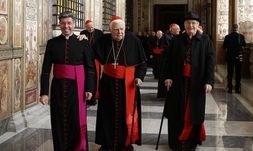
Extract from Kevin Clarke,The Jesuit Review, 20 December 2017
As a younger man he was hailed for his courageous positions on desegregation and civil rights and his pastoral leadership of one of the poorest communities in the U.S. South, but his legacy is marred by his role in the cover-up and the persistence of the church’s sexual abuse crisis and the suffering it engendered. That scandal, smoldering for years, exploded into national view in Boston in 2002 after 18 years of Cardinal Bernard Law’s leadership. Cardinal Law passed away today in Rome after a lengthy illness; he was 86. His death was reported by local media and was confirmed by a church official to the Boston Globe. After months of bad news emerged out of a Boston Globe Spotlight team investigation, Cardinal Law was subpoenaed in December 2002 to appear before a grand jury reviewing “possible criminal violations by church officials who supervised priests accused of sexually abusing children.” Just a few days later, a letter signed by 58 priests, many of them from his diocese, asked him to resign as archbishop. Not long after, on Dec. 13, 2002, he did.....(more) Photo: The Jesuit Review, CNS / PaulHaring
Holy see says it will support Australian church as it listens to and accompanies victims and survivors ‘in an effort to bring about healing and justice’ Extract from The Guardian, AAP, Saturday 16 December 2017
The Vatican and Australia’s Catholic leaders say they will seriously consider the royal commission’s call for sweeping reforms, although archbishops refuse to break the seal of confession to reveal child abuse. It will be up to the Pope and his advisers to consider many of the inquiry’s far-reaching recommendations, including changes to canon law and voluntary celibacy for its priests. The government of the Roman Catholic church, the Holy See, says the commission’s final report “deserves to be studied seriously”. “The Holy See remains committed to being close to the Catholic church in Australia – lay faithful, religious, and clergy alike – as they listen to and accompany victims and survivors in an effort to bring about healing and justice,” it said in a statement. The royal commission recommended a number of changes to canon law, finding the disciplinary system for dealing with clergy and religious who sexually abuse children contributed to the church’s failure to provide an effective and timely response to perpetrators. It also criticised the Vatican for being slow to respond to petitions from Catholic church authorities in Australia to dismiss those found to have committed child sexual abuse. “It is clear that their approach to child sexual abuse by clergy was protective of the offender,” its final report said. The commission suggested new canons that frame child sexual abuse as crimes against the child, not as moral failings or breaches of the obligation to observe celibacy. It also called for amendments to remove the “pontifical secret” or confidentiality imposed during church investigations of child sexual abuse. Other amendments include making it easier to take internal disciplinary action and permanently remove from ministry priests or religious against whom abuse complaints have been substantiated, or their dismissal if they have been convicted. The Australian Catholic Bishops Conference president, Melbourne archbishop Denis Hart, and Sydney archbishop Anthony Fisher rejected the inquiry’s call for priests to break the seal of confession to reveal child abuse. Hart did not expect the church to change its stance on confession, saying the cardinal secretary of state confirmed as recently as last month that the seal is inviolable. But he said Australia’s bishops have asked the Holy See to clarify the extent of the seal and what it includes, after questions about whether it applies to a child revealing their abuse. The Vatican recently said the matter was still being seriously considered, the archbishop told reporters....(more)

Extract from Peter Johnstone, Pearls and Irritations, John Menadue Website, 15 December 2017
The damning findings of the Royal Commission on Institutional Responses to Child Sexual Abuse in the recent reports on the Catholic dioceses of Melbourne and Ballarat seem to have elicited a standard Church response: 1. Accept critical findings; 2. Express regret to victims and families; 3. Apologise for failings of the incompetent bishop at the time; 4. Accept responsibility.
The PR spin doctors have no doubt earned their keep: the message is that the scandal of clerical child sexual abuse is a matter of the past which has now been addressed by new protocols, and Church leaders will now get on with business as usual . . . but please don’t ask why so many bishops throughout the world, with the support of the Holy See, protected paedophiles and betrayed innocent children. The final report of the Royal Commission will demand answers.....(more)
Royal Commission's final report released today
Extract from Media Release, Truth Justuce and Healing Council, Friday 15 December 2017
On 15 December 2017 the Royal Commission presented a final report to
the Governor-General, detailing the culmination of a five year inquiry
into institutional responses to child sexual abuse and related matters.....(more)
A copy of the report is available on the Royal Commission's website
Read Preface and Executive Summary of Final Report
Read section of report relating to Catholic Church
Read Commission recommendations relating specifically to Catholic Church
Read Commission summary on Catholic Church
Royal Commission report released - Catholic Church must act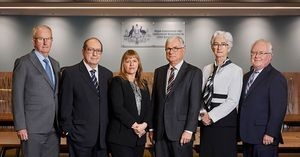
The Royal Commission into Institutional Responses to Child Sexual Abuse has recommended the establishment of a national strategy to prevent child abuse, as part of its final report.
Extracts from SBS News, 15 December 2017
The $500 million five-year inquiry into how churches, charities and other organisations handled abuse of children has made 189 recommendations. Sir Peter Cosgrove received the final report from the Royal Commission into Institutional Responses to Child Sexual Abuse, with the chair of the royal commission, Justice Peter McClellan, handing over the 17-volume report. Criminal prosecutions have been launched against a string of alleged abusers during the course of the inquiry. To avoid prejudicing court proceedings, two versions of the report have been submitted, one redacted and one unredacted. Some recommendations have already been made and acted upon, including toughening background checks and establishing a redress scheme, which is still in progress. Refusing compensation to survivors of child abuse who have gone on to commit serious crimes is of serious concern to advocates.....Independent senator Derryn Hinch, a longtime warrior against child abuse, says he has been asked by Mr Turnbull to chair a parliamentary committee overseeing the response to the royal commission. However, Mr Turnbull says no such decision has been made. "I've spoken to Derryn about all of these issues but the chairmanship of the committee is not something that's been finalised," he said.....(more)
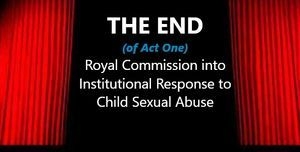
A Catholic reflection on the Royal Commission as the curtain closes on Act One.
Extract from Frank Brennan, Pearls and Irritations, John Menadue Website, 14 December 2017
On Friday, the Royal Commission into Institutional Responses to Child Sexual Abuse, which has been part of the Australian political and ecclesial landscape for the last five years, will cease to exist. The commission will present its report to the Governor-General, and the commissioners will return to private life or to their previous public offices. The task of implementation will fall to governments and institutions such as the Catholic Church. The task of public scrutiny will fall to parliaments and the media but without the ongoing forensic activity of a royal commission. The commission has unearthed a continent of human suffering and mountains of institutional obfuscation. The task of change within the Catholic Church will fall mainly to committed Catholics, and not just the clerics. Already and thankfully, many institutional responses which were routine in the past are now unthinkable because they did not put the interests of children first. And yet, as a Catholic priest, I am still feeling perplexed. My church, like all institutions caring for children, contained child abusers. My church, more than many other institutions caring for children, failed to weed out those abusers and even harboured them in the name of maintaining the public standing of the institution and in the hope of protecting the abusers, giving them a second, third or tenth chance. I think these lessons have been learnt. BUT. And it’s a big BUT.....(more)
Extract from TJHC report with transcripts om the final sitting of the Royal Commission on 14th December
The Royal Commission held its Final Sitting in Sydney on Thursday 14 December 2017. Justice McClellan said that for victims and survivors, telling their stories has required great courage and determination. 'Most are stories of personal trauma and many are of personal tragedy. It is impossible not to share the anger many survivors have felt when they tell us of their betrayal by people they believed they were entitled to trust,' he said....Links to Opening Address, Transcripts from today and Royal Commission's message to Australia.

The Seal of Confession: resorting to the Age of Christendom
Extract from Peter Johnstone, Pearls and Irritations, John Mendaue Blog, 13 December 2017
The
Royal Commission into Institutional Responses to Child Sexual Abuse has
recommended to Australian federal and State governments, that the
Catholic ‘seal of confession’ should not exempt priests from a proposed
offence of ‘failure to report’. The response of some Church commentators
has been dismissive and disrespectful of the work of the Commission,
foreshadowing defiance of civil law. The
Commission’s Criminal Justice Report in August 2017, proposed that
people in institutions who ‘know, suspect or should have suspected’ that
a child is being sexually abused and fail to act should face criminal
charges. The Royal Commission, after thoroughly documented discernment,
has decided that Catholic priests who know that a sexual predator is at
large in the community should not be exempted from this requirement to
report. The Church is protesting that
there should be an exemption from this provision to allow priest
confessors to comply with its ‘seal of confession’, a church-made law.
This protest comes from a church which has been shown, not only in
Australia but throughout the world, to have failed to protect children
from sexual abusers, indeed to have chosen to protect those abusers
rather than vulnerable children. The arguments for exemption implicitly
assert a moral superiority of canon law, instead of reviewing that canon
law in light of the Commission’s substantial arguments. It would seem
that my Church has learnt little from this criminal failure of pastoral
responsibility that ruined the lives of so many children....(more)
Extract from TJHC Media Release, 12 December 2017
The CEO of the Catholic Church’s Truth Justice and Healing Council , Francis Sullivan , has called on the P rime M inister, state premiers and chief ministers to immediately set up a COAG committee to implement the recommendations in the Royal Commission’s final report . Mr Sullivan says once the report is in the public domain , which is expected to be this Friday, all participants including the Catholic Church need to start working immediately on implement ing its recommendations . “And it is up to Prime Minister Turnbull to lead the way ,” Mr Sullivan said . " The Prime Minister has to show that this report is going to be taken 100 per cent seriou sly, that it's not going to be put in a drawer," Mr Sullivan says. " Governments should consider announc ing the establish ment of a joint COAG working party very soon after the release of the report , then institutions and others need to s et up their own implementation processes to engage with the government process .
We cannot afford for this to get lost over the summer, to get shouted down by the current political point scoring that's going on....(more)
Extracts from Kieran Tapsell, Pearls and irritations, John Menadue website, 8 December 2017
On 5 December 2017, the Royal Commission into Institutional Responses to Child Sexual Abuse released a redacted version of its Report of Case Study No. 35: the Archdiocese of Melbourne. It strongly criticized Church personnel for failure to protect children under its care. It blamed both the culture of secrecy and inadequate structures for the failure, and described those failures a number of times as “appalling.” The Report was redacted so as not to prejudice current or future criminal or civil proceedings. An unredacted version of the report is expected to be tabled and published at a later date......The Commission does not discuss the historical reasons for this “culture of secrecy”, but is likely to do so in its final report. It has found that many other institutions covered up child sexual abuse to protect their reputations, but the Catholic Church is unique, because no other institution has imposed secrecy over child sexual abuse by writing it into its internal laws......No doubt we will be hearing much more about the above issues in the Commission’s Final Report expected on 15 December 2017....(more)

Victims’s lawyers say uncertainty over whether report will be publicly released when inquiry concludes next Friday risks creating ‘another round of trauma’. The royal commission into institutional responses to child sexual abuse will sit for the final time on 14 December.
Extract from The Guardian, Friday 8 December 2017
With seven days until the royal commission into institutional responses into child sexual abuse delivers its final report and recommendations to the governor general, survivors and their advocates have called on the government to reveal if and when the report will be made public....(more)

Pope concerned by U.S. move to recognise Jerusalem as Israel’s capital
Extract from Junno Arocho Esteves, Catholic News Service, Melbourne Catholic, Thursday 7 December 2017 Following
reports that U.S. President Donald Trump planned to recognize Jerusalem
as the capital of Israel, Pope Francis expressed his concern that such a
move would further destabilize the Middle East. Pope
Francis said he could not 'keep silent about my deep concern' for
Jerusalem and urged respect for 'the status quo of the city in
accordance with the relevant resolutions of the United Nations.' The
pope spoke at the end of his weekly general audience 6 December, the
same day Trump announced his decision to move the U.S. embassy to
Jerusalem from Tel Aviv, fulfilling a promise he made during his
presidential campaign. Former presidents
Bill Clinton and George W. Bush had made the same promises during their
campaigns, but once in office, they did not carry through with the
move, citing its potential negative impact on Israeli-Palestinian peace
talks. Trump drew warnings from Middle
Eastern and European leaders that overturning the United States'
long-standing policy would further complicate peace negotiations. According
to Vatican Radio, the pope received a telephone call from Palestinian
President Mahmoud Abbas 5 December regarding Trump's plan to move the
U.S. embassy to Jerusalem.....(more) Photo: Melbourne Catholic, Inside Edition.
Extracts from CathNews, 7 December 2017
The abuse of hundreds of children at the hands of pedophile priests in and around Ballarat has been described as a “catastrophic institutional failure” of the Church, the Herald Sun reports. Two years after it first started its probe of the Ballarat Diocese, the Royal Commission into Institutional Responses to Child Sexual Abuse handed down its much anticipated final report yesterday. It came a day after the release of a scathing report into the Melbourne Archdiocese and its handling of sexual abuse complaints. The commission was scathing of the late Ballarat Bishop Robert Mulkearns for orchestrating a widespread cover-up of abuse during his reign between 1971 and 1997. It found on no occasion did the Bishop or any other member of the clergy report allegations or complaints of child sexual abuse to the police or other authority. “The welfare of children was not the primary concern of senior members of the Diocese when responding to complaints and allegations of child sexual abuse,” the commission said. “There is no doubt it should have been”. It found the most likely explanation for the conduct of Bishop Mulkearns and other senior clergy was to minimise the risk of scandal and protect the reputation of the Church. “This case study exposed a catastrophic failure in the leadership of the Diocese and ultimately in the structure and culture of the Church over decades,” the report found. “That failure led to the suffering and often irreparable harm to children, their families and the wider community. “That harm could have been avoided if the Church had acted in the interests of children rather than in its own interests.” Current Ballarat Bishop Paul Bird said the mishandling of complaints against priests and church personnel and a lack of response to such complaints led to unnecessary suffering for many victims. “Where the failures of my predecessors allowed abuse to occur, I offer my heartfelt apology,” he said....(more)
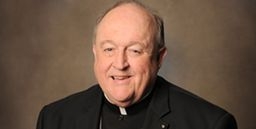
Archbishop Wilson stands trial in Newcastle
Extract from CathNews, 7 December 2017
Adelaide
Archbishop Philip Wilson attended court yesterday, accused of
concealing information about the abuse of an altar boy by a priest in
the NSW Hunter region in the 1970s, AAP/Nine News reports. Crown
prosecutor Gareth Harrison told the Newcastle Local Court that
Archbishop Wilson had allegedly been involved in a number of cases where
he had tried to prevent abuse claims being reported to police from
between 1976 and 2004 to protect the Church. In
his opening address, Mr Harrison said the evidence would show the
Archbishop had failed to report widespread child abuse by the Catholic
clergy and a teacher. The prosecutor said Archbishop Wilson had been a
priest at a parish in 1976 when an altar boy came to him in the
presbytery to reveal he had been sexually abused by James Fletcher when
he was 10 years old. The altar boy
claimed Archbishop Wilson was shocked by the abuse claims and promised
to look into it but nothing happened. Mr Harrison said another altar
boy, aged between eight and nine years old, went to see Archbishop
Wilson in the confessional box in late 1976 to complain about being
abused by Fletcher but Archbishop Wilson told the boy he was lying....(more)
Extracts from Cameron Houston, Chris Vedelago, The Age, 5 December 2017
The Catholic Archdiocese of Melbourne has been found to have ignored, dismissed or covered up allegations of appalling child abuse by seven of its priests in a bid to protect the church's reputation and avoid scandal. The Royal Commission into Institutional Responses to Child Sexual Abuse delivered a withering assessment of the Archdiocese's handling of clerical abuse, with much of its opprobrium reserved for former Archbishop Frank Little who died in 2008........Archbishop Hart said the mishandling of complaints against priests had led to unnecessary suffering for victims and their families. "Where this abuse occurred resulting from the passivity or inactivity of predecessors of mine, I sincerely apologise and accept responsibility," Archbishop Hart said.....(more)
Extract from Bishop Vincent Long, Catholic Outlkook, 6 December 2017
The Royal Commission into Institutional Responses to Child Sexual Abuse will shortly release its final findings on public hearings, and its recommendations, related to the Catholic Church in Australia. These case studies included evidence around the pain and hurt that was inflicted upon victims of abuse by Church authorities, including Diocese of Parramatta personnel. Once again, I apologise on behalf of the Catholic Church and the Diocese of Parramatta for the irreparable harm caused to people who were betrayed by clergy, religious and lay people who were entrusted to lead ministry in this Diocese. Our response and processes at the time were clearly inadequate. For these failings, I wish to express my profound sorrow. Throughout the Royal Commission, the Diocese of Parramatta has strived to engage in their processes with openness, transparency and a commitment to learning about our history so that our child protection policies and procedures are strengthened and there is restored confidence in Church ministry. As we await the final reports and recommendations to be handed down, I would like to remind you that should anyone wish to report abuse by Church personnel to the Diocese, or require support......(more)
Extracts from Cameron Houston, Chris Vedelago, The Age, 5 December 2017
The Catholic Archdiocese of Melbourne has been found to have ignored, dismissed or covered up allegations of appalling child abuse by seven of its priests in a bid to protect the church's reputation and avoid scandal. The Royal Commission into Institutional Responses to Child Sexual Abuse delivered a withering assessment of the Archdiocese's handling of clerical abuse, with much of its opprobrium reserved for former Archbishop Frank Little who died in 2008........Archbishop Hart said the mishandling of complaints against priests had led to unnecessary suffering for victims and their families. "Where this abuse occurred resulting from the passivity or inactivity of predecessors of mine, I sincerely apologise and accept responsibility," Archbishop Hart said.....(more)

Extract from Royal Commission into Institutional Responses to Child Sexual Abuse, 5 December 2017
A redacted version of the Royal Commission into Institutional Responses to Child Sexual Abuse’s report of Case Study 35 –Catholic Archdiocese of Melbourne – was released today. This report follows a public hearing held in Melbourne in November and December 2015 and in Sydney in February and March 2016 during which the Royal Commission heard about the response of Catholic Church authorities within or associated with the Archdiocese of Melbourne to allegations and complaints of child sexual abuse made against seven priests of the Archdiocese. Redactions: The Royal Commission’s Terms of Reference require that the work of the Royal Commission not prejudice current or future criminal or civil proceedings. For this reason, Commissioners recommended that at this time a redacted version of the report be tabled and published. It is expected that an unredacted version of the report will be tabled and published at a later date. Archbishop Little’s response: The Royal Commission heard that Archbishop Thomas Francis Little, who headed the Archdiocese from 1974 to 1996, dismissed or ignored serious allegations of child sexual abuse against a number of priests. He did not investigate the many allegations that were brought to his attention and did not report them to the police. He also moved offending priests to other parishes where they continued to offend......(more - with link to report)
Pope Francis has given his seal of approval to Argentinian bishops’ interpretation of his apostolic exhortation on the family.
Limited extract from Marie Malzac. subscription journal La Croix International, 5 December 2017
It amounted to four lines of Latin written by Vatican Secretary of State Cardinal Pietro Parolin and snuck into the more than 1,000 pages of Acta Apostolicae Sedis, the official gazette of the Holy See. This publication, issued about 12 times a year, contains documents the pope wishes to make public. The paragraph in question was dated June 5 but was published in texts going back to October 2016. It bestows the character official Magisterium – or the teachings of the pope – on an exchange of letters between Francis and bishops of the Buenos Aires pastoral region on the subject of the bishops’ plans to allow....(source)

Extract from Media Release, Concerned Catholics of the Canberra-Goulburn Archdiocese,
1 December 2017
The contrast between the number of women employed by the Australian Catholic Church and their absence from the central power structures, highlights the need for a deep rethink at the top of the Church, Concerned Catholics of Canberra Goulburn, says. The Our Work Matters report for the Australian Catholic Bishops Conference shows there are more than 220,000 employees in church organisations and 77 per cent of them are women. "This statistic alone should prompt the bishops to question why the earthly authority of the church should be the preserve of men only," the chairman of Concerned Catholics, Emeritus Professor John Warhurst says. "It is good that the Church has commissioned a report into the huge workforce given the many important ways the workers of the church contribute to society, in education, health and social support. "The whole report reinforces once again how much the church relies on women to fulfil its mission. "But it is telling that this overwhelming reliance on women is not reflected when it comes to the gender of decision-makers at the highest level.....(full Media release HERE)
Extract from Truth Justice and Healing Council, Friday 1 December 2017
Sexual abuse of children has occurred in almost every type of institution in Australia where children lived or attended.
Australia's Royal Commission into Institutional Responses to Child Sexual Abuse is to have a final public sitting in Sydney next month, on the eve of delivering its final report to Governor-General Sir Peter Cosgrove on 15 December, to thank the community for its support.
Frankly speaking... (by Francis Sullivan)
This week I spoke at a plenary session of the Australian Catholic Bishops Conference meeting in Sydney. Little surprise that the main topic was the forthcoming release of the Royal Commission’s final report. But even before the report is released the bishops and religious leaders must commit to a future that is not characterised by a ‘business as usual’ mentality.....(more).

Extracts from Australian Catholic Bishops Cinference, Melbourne Cathjolic, Friday 1 Decenber 2017 ACBC
The Holy Father has today appointed Fr Brian Mascord, currently the Vicar General of the Diocese of Maitland-Newcastle, the fifth Bishop of Wollongong. Australian Catholic Bishops Conference president Archbishop Denis Hart said Bishop-Elect Mascord brings a wealth of experience in parish ministry, education, chaplaincy and governance. ‘Fr Mascord has been a fine, hard-working parish priest for many years and will be a worthy Bishop of Wollongong. I congratulate him on his appointment on behalf of the Australian bishops,’ Archbishop Hart said. ‘I also wish to acknowledge Bishop Peter Ingham, who is in his 25th year as a bishop and has spent the last 16 years as shepherd to the faithful in Wollongong. Bishop Ingham has been a source of energy and joy and holiness for his people, his priests and his brother bishops.’ Bishop-Elect Mascord said priests who have spent time with Bishop Ingham have often sought to emulate his approach. ‘I look up to Bishop Ingham as a pastoral priest and a pastoral bishop, and the example he gives in his ministry and life as priest and bishop is something I’ve admired,’ he said........‘I look forward to encountering people who have that ‘down-to-earthness’ that comes with the diversity of the people who live in coastal, city and rural areas,’ he said....(more) Photo: Melbourne Catholic, mn news.
Extract from Bruce Duncan, Pearls amd irritations, John Menadue Website, Friday 1 December 2017, 2:00pm
Myanmar’s neighbours were watching closely the Pope’s visit, worried that the shocking treatment of the Rohingya Muslims could inflame inter-religious conflicts throughout the region. Francis has intervened personally to promote deeper mutual understanding among the major religions, urging them to draw from their traditions to protect those in distress and promote social inclusion and universal human values. Some western groups, including Amnesty International, have criticised Pope Francis for not speaking strongly against the persecution of Muslims in Rakhine state and their expulsion into Bangladesh. His advisors, and especially the Myanmar Cardinal Bo, advised the Pope not even to mention the word ‘Rohingya’ lest it be seen as provocative in the agitated political climate, resulting in further conflict, including against Christians. Pope Francis has protested about the plight of the Rohingya in Rome on several occasions, so his views are well known. He would have been foolish to ignore the advice of the local church in Myanmar, which asked him to avoid the possibly inflammatory word but speak to the issues nonetheless. Few listening to the Pope in Myanmar during 27-30 November were in any doubt about the meaning of his talks, which were scrutinised very carefully. Moreover, the Pope’s visit is being closely watched by neighbouring countries that are also trying to deal with conflict between religious groups and need the support of religious traditions to develop social inclusion and a culture of religious dialogue and harmony. Francis is alert to Asian culture and sensitivities. Attacking military people publicly could have caused them to ‘lose face’ and be seen as very offensive coming from a guest in their country. Instead he emphasised that Myanmar could take another path away from fanning a Buddhist-style populism, especially by drawing from traditional universal values in Buddhism...(more) Fr Bruce Duncan is a Redemptorist priest who teaches history and social ethics at Yarra Theological Union, a college of Melbourne’s University of Divinity.
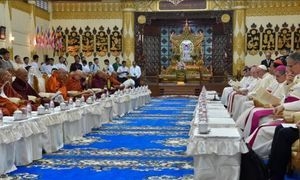
Meeting with Myanmar’s Buddhist leaders in Yangon, Pope Francis again pleaded for interreligious dialogue. Repeating what he had earlier told 150,000 faithful at a papal mass, he emphasized that religions need to work to “heal the wounds” of a still divided nation.
Limited Extract from Nicolas Senèze, Yangon, Myanmar, Subscription Journal La Croix International, 30 November 2017
In a meeting at the Kaba Aye pagoda in Yangon on November 29, Pope Francis challenged Myanmar’s Buddhist monks by comparing Buddha and St Francis of Assisi. “Overcome anger with non-anger; overcome wickedness with goodness; overcome the miser with generosity; overcome the liar with truth,” Pope Francis said, quoting the Dhammapada, a collection of sayings of the Buddha. He illustrated the parallel with the prayer of St Francis of Assisi: “Lord, make me an instrument of your peace. Where there is hatred, let me sow love. Where there is injury, let me bring pardon…” Against the background of a golden altar with a white Buddha illuminated by blinking multi-colored LED lights, the pope exhorted the local monks, who were seated opposite him, to play their role in promoting dialogue. “It is the particular responsibility of civil and religious leaders to ensure that every voice is heard,” he told the Supreme Council of the Sangha, a body created in 1980 by the military junta to ensure closer control over the nation’s 500,000 monks. During democracy demonstrations of 2007, it was the Sangha which admonished movement leaders while this year it acted slowly and feebly in condemning the ultranationalist Ma Ba Tha movement......(source). Photo: La Croix International, AP
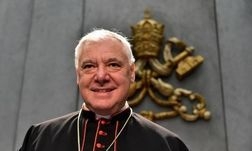
The former prefect of the Congregation for the Doctrine of the Faith has requested Church authorities to listen to the “fair complaints” of Pope Francis’ opponents, the Italian daily "Il Corriere della Sera" has reported.
Limited Extract from Narie Malzac, subscription journal La Croix International, 29 November 2017
“There is a front made up of traditionalist groups as well as a number of progressives, who would like to see me lead a movement against the pope, but I will never do it." These were the words of Cardinal Gerhard Ludwig Müller, the former prefect of the Congregation for the Doctrine of the Faith, to Massimo Franco, columnist at the Italian daily Il Corriere dela Sera, in an interview published on Sunday, November 26. Müller, who has previously distanced himself from a series of pontifical moves, revealed that he was both bitter and concerned with the direction the Church is taking. Insisting that he believed in “the unity of the Church", Cardinal Müller nevertheless called on Church authorities “to listen to those who have serious questions and fair complaints". We must not ignore them or, worse, humiliate them,” he emphasized. “If not, without intending it, the risk of a slow separation may grow and lead to a schism by a section of the Catholic world that feels disoriented and disappointed," Cardinal Müller warned. “The history of Martin Luther’s Protestant schism 500 years ago should indicate the kind of mistakes we need to avoid," he said.....(source) Photo La Croix International, Alberti Pizzilo, AFP

Extract from Voice Of The Faithful, Associated Press, 28 November 2017
“The allegations are part of a growing trend: While Pope Francis struggles to make good on his ‘zero tolerance’ pledge to fight clerical sex abuse worldwide, victims in his native Argentina are denouncing abuses in unprecedented numbers. An analysis by The Associated Press shows that the number of clerics publicly identified as alleged sexual abusers has increased dramatically in the last two years.” (The Associated Press)....(more). Photo AP/Natacha Pisarenko. (In this Oct. 11, 2017 photo, Karen Maydana, center, Mailin Gobbo, behind right, and Yasmin Detez, behind left, pose for a photo at San Jose Obrero church in Caseros, in the province of Buenos Aires, Argentina. The schoolmates returned to the church and adjacent school they’d attended to describe to journalists what had happened, saying they hoped it would help protect children.)
Adelaide Archbishop Philip Wilson, 67, has failed to appear in Newcastle Local Court less than a week after having had a pacemaker fitted. Extract from News.com.au 28 November 2017
A NSW court hearing involving the most senior Catholic official worldwide to be charged with concealing child sex assault has been delayed because of concerns about his physical and mental health. Adelaide Archbishop Philip Wilson, 67, did not appear in Newcastle Local Court on Tuesday after having had a pacemaker fitted on November 22. Defence barrister Stephen Odgers SC told the court Wilson had been advised by his doctors not to travel from Adelaide to Newcastle for at least a week. Mr Odgers said a neurologist had also expressed concerns about Wilson's mental health and his ability to understand the case against him. The case was briefly adjourned to give Magistrate Caleb Franklin time to read submissions from Wilson's lawyers. Wilson, who claims he should be well enough to be in court on Thursday, has been accused of concealing information about the alleged sexual assault of a 10-year-old boy in 1971 by the now-dead pedophile priest James Fletcher in the NSW Hunter region town of Maitland. Wilson allegedly had information between 2004 and 2006 about Fletcher which might have helped to have the priest prosecuted. The archbishop is the most senior Catholic official worldwide to be charged with the offence of concealing child sex assault. Mr Odgers told the court Wilson was "very keen" to participate in the trial despite his recent heart surgery and hoped to fly into Newcastle on Wednesday night to be ready to attend court the following day.....(more)

Extracts from Melbourne Catholic, Friday 24 November 2017
The introduction of 360-degree virtual reality technology in Catholic schools throughout October has been hailed a success by educators around Australia. Catholic Mission’s Mission in 360 technology, complete with custom viewing goggles, was a hit in schools in Sydney, the Gold Coast, and Melbourne, according to teachers and students alike. ‘I think it’s really good to see things from a different perspective, and when we’re looking at Gospel values and showing compassion and love to other people, it’s important to see those who are living less fortunate than us,’ said Michelle Gear, Religious Education Coordinator at St Mary’s Catholic Primary School in Georges Hall, where the technology was piloted......Mission in 360 was equally popular in Melbourne, where Marymeade Catholic College in South Morang incorporated the technology into their student formation. ‘Being able to teach our students using real life examples that they can feel a part of rather than just listening to or reading is so beneficial,’ said Kelly Hack, a teacher at Marymeade....(more) Photo: Melbourne Catholic
Cardinal George Pell's legal team has requested documents from an ABC journalist, her book publisher and Victoria Police as the team prepares his defence against historical sexual offences, The Age reports.
Extract from CathNews, The Age, 24 November 2017
Cardinal Pell, 76, is facing charges involving multiple complainants. Details of the charges are yet to be revealed. He has repeatedly denied the alleged offending. Before the Cardinal was charged by Victoria Police in June, a book by ABC journalist Louise Milligan titled Cardinal: The Rise and Fall of George Pell was published. At an administrative hearing in Melbourne Magistrates Court yesterday, Ms Milligan was called on to provide documents relating to her book and the allegations in it. The ABC and Melbourne University Press, which published the book, were also requested to provide documents, along with Victoria Police. Defence counsel Ruth Shann said Cardinal Pell's team had been provided with some of the documents, and were awaiting other papers. The court was not told why the documents were being sought. Cardinal Pell was not in court yesterday as his defence team, prosecutors and lawyers for Victoria Police discussed the documents with magistrate Belinda Wallington. The parties are due to return to court next month to continue discussing the release of the documents. Melbourne University Press withdrew Ms Milligan's book from Victorian stores when Cardinal Pell was charged. The Cardinal is due to front the court in March for a committal hearing, which will determine whether he stands trial. Up to 50 witnesses could be called during that hearing, which is expected to run over four weeks....(more)

Extract from CathNews, 23 November 2017
Jesuit priest and lawyer Fr Frank Brennan has been appointed to a panel tasked with reviewing protections for religious freedom in the wake of the same-sex marriage vote, the ABC reports. The panel is to be chaired by former attorney-general Philip Ruddock, and will also include Human Rights Commission president Rosalind Croucher and former Federal Court judge Annabelle Bennett. The bill to legalise same-sex marriage contains provisions so that ministers of religion cannot be forced to conduct same-sex marriages, but some MPs have raised concerns these provisions do not go far enough. Ministers have been at odds over whether religious protections should be dealt with this year, as amendments to the same-sex marriage legislation, or delayed until 2018. Prime Minister Malcolm Turnbull has now asked Mr Ruddock to conduct the review of religious freedoms and report back by the end of March next year.....(more) Photo: CathNews CSSA
Extract from CathNews, 23 November 2017
Voluntary euthanasia is poised to become legal in Victoria after an assisted dying bill passed the upper house yesterday following a marathon debate, The Age reports. The bill passed with 22 votes to 18 in a conscience vote, after a 28-hour sitting that began on Tuesday afternoon and ended just after 4pm yesterday. Victoria now looks set to become the first Australian state to legalise euthanasia or assisted suicide and the only jurisdiction in the country to have enacted such legislation since the federal government repealed the Northern Territory’s Rights of the Terminally Ill Act in 1997. The bill will allow terminally ill patients of sound mind with a life expectancy of six months or less to end their lives by taking a lethal drug prescribed by a doctor. Where a patient is unable to take the drug themselves, a doctor may be permitted to administer it. That timeframe will be extended to 12 months for people with neurodegenerative diseases such as Motor Neurone Disease. The scheme is scheduled to begin in June 2019.....(more)
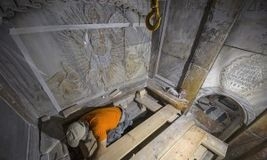
Extract from The Tablet, Catholic News Service, 23 November 2017
National Geographic Explorer set up cameras inside the shrine, hanging above the tomb, to capture the moment when the slabs were lifted. In 2016, when renovations around the site believed to protect the tomb of Christ in Jerusalem were underway, religious leaders agreed to the temporary removal of the marble slab covering the tomb so that restorers could install a moisture barrier to protect it. It would mark the first opening of the space in perhaps centuries. team from National Geographic, which had been at the site to document the restoration, was allowed, during a relatively short window of time, to document the opening of tomb, in words, photos and video. National Geographic noted the interest by the number of clicks on the story and images the team posted about those 60 hours, which appeared on its website, not its iconic magazine, because of its immediacy....(more) Photo: The Tablet

Extracts from Peter Wilkinson, Pearls and irritations, John Menadue website, 20 November 2017
The Catholic Church in Australia is in the midst of a massive and existential crisis, the greatest in its history. The Catholic bishops have responded by proposing a Plenary Council in 2020. They say it will no longer be “business as usual” and have promised to consult the whole Church. But no changes to business as usual and no consultation plans have been announced, and no guarantees given that every bishop will buy in. The consultation must begin without delay and start at the grassroots. If Pope Francis approves, around 260-300 Catholic men and women, but mainly bishops and other clerics, will gather in a cathedral some day in 2020 to begin the 5th Plenary Council of the Catholic Church in Australia. This Council is coming after years of vacillating by the Australian Catholic Bishops Conference. They chose a plenary (national) council because this is the traditional forum for Church leaders to wrestle with contemporary issues in the light of the Gospel and respond in terms of faith, morals, governance, discipline and worship..... There is no question that consultation must begin at the grassroots, at assemblies in the local parishes where Catholics are most at ease and feel the greatest sense of belonging and community. It is here that every diocesan bishop must commit to engage with his people, and there should be no delay in getting it underway, preferably close to Easter 2018........(full paper and proposal here)
Peter Wilkinson is a member of Catholics for Renewal. He authored a 2011 report Catholic Parish Ministry in Australia: Facing Disaster? and a 2011 study Catholic Synods in Australia: 1844-2011. He is a missiologist and former Columban missionary priest.

Reform-minded Catholics should ask God to bless Francis with good health and Benedict XVI with continued long life. Limited extract from Robert Mickens, Letter From Rome, subscription jouurnal La Croix International, 17 November 2017
Whenever those of us who are known as Vatican-watchers are asked to give a talk on the pontificate, an enthusiastic supporter of Pope Francis who is in the audience inevitably raises this multi-part question: “How is the pope’s health; who is the leading candidate to succeed him; and how likely is it that the successor will continue his policies for Church reform?” This past week before a group in the Archdiocese of Detroit called, “Elephants in the Living Room”, that question came up again. It was to be expected. The “Elephants” were founded in 2003 by a group of Detroit priests and quickly expanded to include many lay people who support their efforts to promote Church reform and renewal. These people, like most Catholics around the world, really like the current pope and all the creative and exciting ways he is trying to bring their Church alive and make it dynamic. They are not confused by his teachings or his challenging efforts to help all the baptized become more personally responsible for their lives of faith as adult disciples of Jesus Christ. But they sense that many bishops and priests are lukewarm or even hostile towards the pope. And this worries them. How does a Vatican observer answer their questions and concerns about what might happen after Francis is no longer the Bishop of Rome? First of all, it might be helpful to start out by quickly noting this fact: Francis has now served as pope longer than St John XXIII.....(source). Photo: Subscription journmal La Croix International.
Extract from Irfan Yusuf, Ereka Street, 16 November 2017
Let's be honest. Abrahamic faiths — Judaism, Christianity and Islam — find any behaviour outside what they deem the sexual norm to be a fundamental threat to family and community. Muslim LGBTQI advocateThat doesn't stop Jews, Christians and Muslims from being gay, lesbian, bisexual etc. It also doesn't stop some religious leaders from overcoming their moral qualms and embracing LGBTIQ parishioners. But the fact remains that a fair few devout folk, as well as not-so-devout bigots, will take all lawful steps to stop the lawful recognition of same sex marriage. Notwithstanding all the obstacles, despite the No folk having virtually the entire Newscorp press on side, Aussies expressed an overwhelming wish to have parliament change the definition of marriage to include Adam and Steve. Most Aussies, but not all. I strongly doubt my mum voted Yes. A majority of her Sydney electorate of Bennelong, which has a huge South and East Asian population, voted No. Western Sydney electorates, including Parramatta, Reid and Blaxland, home to large Middle Eastern communities (both Christian and Muslim) voted No. It wasn't just conservative Sydney Anglicans, Catholics or the Australian Christian Lobby that encouraged people to vote No. During the month of Muharram, sacred to Shia Muslims, the No message was being handed out at mosques and spoken from the pulpits....(more) Irfan Yusuf is a Sydney based lawyer and blogger.
Extract from Media Release, Truth, Justice Healing Copuncl. 16 Noveber 2017
Fr Peter Sherman, West Ballarat parish priest, has spoken confrontingly about his journey over the past five years as the Royal Commission has exposed the shocking extent of child sexual abuse within the Catholic Church. Speaking at a community gathering at Emmaus Catholic Primary School in Ballarat earlier this month Fr Sherman told a group of more than 100 local school parents, staff and community members of the challenges he has faced as he has tried to come to terms with the abuse crisis. “If I want to see change within the church, then I know that I also need to have change within myself. A change of mind and heart,” he told the gathering. “And this asks of me to continually return to the grand tradition of the person and the story of Jesus Christ. “My faith is not in the Church. My faith is in Jesus Christ. This relationship I must nurture above all, this is what gives me hope and sustains my faith.” Fr Sherman spoke about what he has done within the Parish to rebuild trust for faith filled communities....(more)
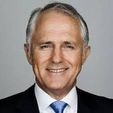
SSM: 'Australians have voted Yes for love and fairness,' says PM Malcolm Turnbull
Extracts from political correspondent Louise Yaxley, ABC News, 15 November 2017
Malcolm
Turnbull says it is time for MPs to "get on with it" and make same-sex
marriage legal, after the Yes vote "overwhelmingly" won the national
postal survey. Almost 80 cent of Australians voted, and 61.6 per cent of respondents said gay and lesbian people should be able to marry. The
strongest vote was in the ACT, where 74 per cent of responses were for
yes, followed by Victoria with 65 per cent, then Tasmania and WA with 64
per cent. New South Wales had the lowest Yes vote with 58 per cent
of people backing change and 42 per cent opposing it. The
Prime Minister declared that Australians had "voted Yes for love" and
said it was now up to Parliament to "get on with it". "It
is up to us here in the Parliament of Australia to get on with it, get
on with the job the Australian people have tasked us to do and get this
done. This year, before Christmas — that must be our commitment," he
said soon after the result was announced.....(more)
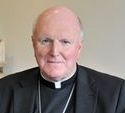
Any change to marriage law must include protections for religious freedom
Extract from Australian Catholic Bishops Conference, Media and Communications Office, Wednesday 15 November 2017
Today,
the results of the Australian Marriage Law Postal Survey are in: 61.6
per cent of Australians have voted to legalise same-sex marriage with
7.8 million people responding Yes, and 4.9 million voting No. An
estimated 79 per cent of Australians took part in the vote. In
light of today’s release of the results, Melbourne Archbishop Denis
Hart released a statement on behalf of the Australian Catholic Bishops
Conference and the Archdiocese of Melbourne. ‘Parliament
must work to unify Australians by respecting different views on
marriage. The Catholic Church, and many others who sought to retain the
definition of marriage as it has been understood for centuries,
continues to view marriage as a special union between a woman and a man,
which allows for the creation and nurture of children,’ Archbishop Hart
said. ‘A change in civil law does not change the Catholic understanding of the nature of marriage. ‘The
Catholic Church continues to respect the dignity of LGBTIQ Australians
and our ministries will continue to care deeply about the dignity and
value of all people we encounter. ‘Parliamentarians
must recognise and respect the concerns of the more than 4.8 million
Australians who opposed a change to the definition of marriage by
putting in place strong conscience and religious freedom protections....(more)

Extract from Nicole Winfield Associated Press, America Jesuit Review, 11 November 2017
Vatican City (AP) — Pope Francis on Saturday reaffirmed the “primacy” of using one’s conscience to navigate tough moral questions in his first comments since he was publicly accused of spreading heresy by emphasizing conscience over established church teaching. Francis issued a video message to a conference organized by Italian bishops on his controversial 2016 document on family life, ”Amoris Laetitia” or “The Joy of Love.” Francis told the conference that priests must inform Catholic consciences “but not replace them.” And he stressed the distinction between one’s conscience—where God reveals himself—and one’s ego that thinks it can do as it pleases. “The contemporary world risks confusing the primacy of conscience, which must always be respected, with the exclusive autonomy of an individual with respect to his or her relations,” Francis said. Pope Francis said that priests must inform Catholic consciences “but not replace them.” Francis reaffirmed the centrality of “The Joy of Love” as the church’s guide to Catholic couples today trying to navigate complicated family situations.....(more) Photo. America jesuit Review, (Tony Gentile/Pool Photo via AP)

Edited Extract from Bruce Duncan, Pearls and Irritations, John Menadue website, 13 November 2017
Despite his immense popularity among most Catholics and many others, not just Christians, Pope Francis is meeting increasing opposition and outspoken criticism, even from some cardinals and bishops, as well as from some prominent academics and writers. Contention centres on his views on the pastoral implications of moral theology on divorce and remarriage, and strident opposition to his criticisms of how the international economy generates such extreme wealth and inequality. Stung by his criticisms, the very wealthy in the United States in particular have been pouring billions of dollars into right-wing think tanks and networks to discount Church teaching on social justice. Criticism of popes is not new in the Catholic world. Pope John XXIII lamented in the 1960s the opposition and ‘disobedience’ of his directions in the Vatican curia and among some bishops. Pope Paul VI also faced criticism of his handling of the Second Vatican Council and the liturgical reforms, his Ostpolitik and dialogue with communist governments, his enlightened social initiatives, and of course the consternation following Humane Vitae.....(more). Bruce Duncan is a Redemptorist priest who lectures in history and social ethics at Yarra Theological Union, within Melbourne’s University of Divinity. He is one of the founders of the advocacy network, Social Policy Connections.

Extract from Peter Johnstone, Pearls and Irritations, John Menadue website, 10 November 2017
Only those in blind denial could fail to realise that the Catholic Church in Australia is now in the midst of a massive and existential crisis. It is, above all, a crisis of governance. The Catholic bishops’ main response to this crisis in Australia has been to propose a ‘Plenary Council’ for 2020. Archbishop Coleridge, appointed by his fellow bishops to guide the preparation for the council, has recently said that the Church is facing “the biggest crisis in its history”. Yet the planning for this plenary council is already suffering from the poor governance that it is supposed to address eventually in 2020. The bishops of Australia are not consulting the people of their own dioceses on the issues. Not surprisingly many Catholics continue to desert the Church as they witness the substantial problems of the Church being kicked down the road to 2020 with little prospect of solution......(more)

Extract from CathNews, 9 November 2017
Pope Francis has appointed two lay women – experts in bioethics and canon law – as the first two under-secretaries of the mega-dicastery for Laity, Family and Life, CNA reports. The appointment of Dr Gabriella Gambino for the section on life and Dr Linda Ghisoni for the section on laity, announced in a Vatican communique on Tuesday, brings the leadership of the dicastery more clearly into shape after its establishment in 2016. The Dicastery for the Laity, Family and Life officially began its work September 1, 2016, replacing the former Pontifical Council for the Laity and Pontifical Council for the Family, which were dissolved. The department is responsible for projects relating to the apostolate of laity, families, and the institution of marriage, within the Church, and is responsible for the organisation of events such as the World Meeting of Families, which will take place in Dublin in August 2018.......Dr Gambino, 49, is currently a professor at the John Paul II Pontifical Theological Institute for Marriage and Family Sciences, a professor of bioethics at the Faculty of Philosophy, and a researcher and associate professor in the philosophy of law at the University of Rome “Tor Vergata.”.....Dr Ghisoni, 52, works as a judge at the First Instance Court of the Vicariate of Rome, as a professor of canon law at the Pontifical Gregorian University, and as a professor of law at Roma Tre University....(more). Photo: CathNews (Zenit), mondodomani.org
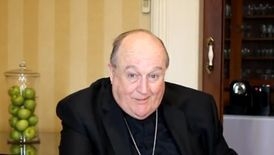
Extracts from CathNews, 9 November 2017
In discussing the Church's Plenary Council 2020, Adelaide Archbishop Philip Wilson has compared the Church in Australia to the blind man Bartimaeus who asks Jesus to give him his sight and then becomes his disciple, The Southern Cross reports. In his latest monthly video podcast, Archbishop Wilson said the Plenary Council 2020 has been a long time coming, and was a fruit of the Church's Year of Grace in 2012. "When we ask ourselves where the Australian Catholic Church is today, the Scriptures help us to understand our situation. In the Gospel there is a story about a blind man called Bartimaeus who was lying on the side of the road and as Jesus walked by, he asked him to give him his sight. What’s interesting about this is that Bartimaeus is the only person in the Gospel cured by Jesus who immediately began to follow him as his disciple," Archbishop Wilson said. "The Catholic Church in Australia is like Bartimaeus; we are on the side of the road, Jesus is going past, we are calling out to Jesus in our prayers and in our actions to discover what it is he wants us to see and to help us to do what we need to do to be his best disciples today. The Plenary Council is an opportunity for the bishops to lead and to carry out the responsibility they have as the shepherds of the Church but they are asked to do that in conjunction with all the people who belong to our faith." Archbishop Wilson said there must be a comprehensive consultation process in the lead up to Plenary 2020. "Any process towards a plenary council that is an action of the bishops must be something that is done in consultation, and with the engagement of, all our people. I know this is right at the heart of all the people and processes that are going on now as we clear the decks and get ready for the Plenary Council."....(more, including video). Photo: Cathnews, The Southern Cross
Extract from, CathNews, 8 November 2017
A group of Canberra Catholics have stepped up lobbying efforts for structural change they say will address deepening disillusion and disaffection in the Church, The Canberra Times reports. In a move welcomed by Canberra and Goulburn Archbishop Christopher Prowse, the Concerned Catholics group has presented a submission to senior clergy ahead of a proposed plenary council for the Church in Australia in 2020. It calls for Church leaders to establish pastoral councils in the Canberra Archdiocese, designed to give parishioners and lay partners an opportunity to participate fully in the response to next month's final report from the landmark royal commission into responses to child sexual abuse. The plan also calls for reforms of the Church's canon law and better promotion of the role of women in leadership positions. The submission, provided to the chair of the Australian Catholic Bishops Conference's Commission for the Plenary Council, Brisbane Archbishop Mark Coleridge, says the Church should end a culture of everyday Catholics as "prayers, payers and those subject to outdated canon law" and says compulsory celibacy for priests should be addressed......."There's a large number spread around the archdiocese who really want to be part of a group who stirs the pot. The issues raised during the hearings and preliminary reports of the royal commission make it clear there will be plenty adverse comment about the culture and governance of the Catholic Church and many Catholics want to have their say." Archbishop Prowse said he welcomed the "thoroughly documented" submission. "I see it in the first instance as listening to each other, which is a great sign of respect and a sign of seeing where God is leading us. The Concerned Catholics group have been quick off the mark and I am delighted they do want to participate," he said.....(more)

Extract from Editor, Pray Tell, November 6
A statement released from the New Zealand conference of Catholic bishops on October 26 voiced support and thanks for Pope Francis’s guidance on liturgical translations, offered in his motu proprio, Magnum principium, which they describe as a “bold directive.” They also expressed the desire to “explore prudently and patiently the possibility of an alternative translation of the Roman Missal and the review of other liturgical texts” along with the other English speaking conferences. The full statement (see below) is signed by the president, Bishop Patrick Dunn, and secretary, Bishop Charles Drennan, of the conference, as well as Cardinal Archbishop John Dew, who serves as an adviser to the Congregation for Divine Worship in Rome, and others.....(more) Photo: Pray Tell
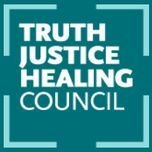
Extracts from Francis Sullivan, Truth Justice Healing Council, 3 November 2017
Well it has finally arrived! Legislation to construct a redress scheme was introduced into the Commonwealth Parliament last week. This is a vital first step on what looks to be a long, but hopefully fruitful path. This Commonwealth scheme at present is, however, limited and unsatisfactory. Only 1,000 of the projected 6,5000 victims can have access to the scheme. Clearly that is not what the Royal Commission called for, neither is it what Church leaders and others committed to. As we have known all along the success of this scheme lies plainly with the cooperation of the state governments. Without their buy-in national coverage will be impossible. Churches and other private institutions need the state governments to facilitate their participation in the scheme. Where those states which have previously run limited schemes remain determined to stay out of this new proposal, they can still enable private organisations within their jurisdictions to participate. Why they would render some victims within their state as worthy of access to the new scheme and others, namely those abused in state organisations, to be denied redress is their political call....... Institutional child sexual abuse is a national disgrace. The Commission hearings have made that plain for all to see. It is a social blight that must be addressed beyond rhetoric and hand ringing. The Catholic Church leadership has committed, more than once, to a national redress scheme. It will pay its way. It cannot join what is currently on offer and only others with the power to change things can make it possible for the all churches, non-government organisations, private institutions and state-run facilities to participate....(more). Image TJHC
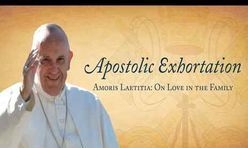
Fr Thomas Weinandy, a Capuchin priest with an impressive academic pedigree, this week became the latest Catholic theologian to criticize Pope Francis when he published a private letter he had written to the pope some four months ago. In his letter, dated July 31st and published this past Thursday (November 1st), the 71-year-old friar and former director of the US bishops’ secretariat for doctrine (2005-2013) accuses the current Bishop of Rome of causing “scandal” and “chronic confusion” among the baptized faithful. In perhaps the most scathing attack of its kind, he also indicts the pope – among other things – with intentionally promoting “ambiguous teaching”, sowing disunity and committing “calumny” against doctrinally conservative theologians while giving “license and confidence” to those holding “harmful theological and pastoral views”. He also accuses Francis of “demeaning the importance of Church doctrine” and being resentful (and vindictive) towards his critics. “To teach with such a seemingly intentional lack of clarity inevitably risks sinning against the Holy Spirit, the Spirit of truth,” says Fr Weinandy. This charge of blasphemy is arguably the most serious, considering that Jesus is recorded in Mark’s Gospel as saying, “Anyone who blasphemes against the Holy Spirit will never be forgiven, but is guilty of an eternal sin” (Mk 3,29). Mgr John Strynkowski, Fr Weinandy’s predecessor as the US bishop’s doctrinal office, quickly rebutted the claims the Capuchin makes in his letter to the pope. But that was not before the president of US bishops’ conference, Cardinal Daniel DiNardo, forced Weinandy to resign from his post as a consultant to the doctrinal secretariat and distanced the bishops from the theologian’s letter to the pope.....(source). Image: La Croix International.
Extracts from John Phillips, The Telegraph (U.K.). 2 November 2017
Rome: Pope Francis has requested a debate over allowing married men in the Amazon region of Brazil to become priests, in a controversial move that is likely to outrage conservatives in the Church, Vatican sources say. The pontiff took the decision to put a partial lifting of priestly celibacy up for discussion and a possible vote by Brazilian bishops following a request made by Cardinal Claudio Hummes, the president of the Episcopal Commission for the Amazon, Il Messaggero newspaper quoted the sources saying. Cardinal Hummes reportedly asked Francis to consider ordaining so-called viri probati, married men of great faith, capable of ministering spiritually to the many remote communities in the Amazon where there is a shortage of priests, and evangelical Christians and pagan sects are displacing Catholicism. The cardinal's request has been echoed by Monsignor Erwin Krautler, the secretary of the Episcopal Commission. He has also suggested that the bishops attending the synod in 2019 on the Amazon, now being prepared in Rome, should consider ordaining women deacons as priests....Francis said earlier this year that the Church should consider allowing married men to become priests in specific circumstances, effectively reversing the centuries-old practice that Roman Catholic priests must be celibate....There are already a limited number of married priests within the Catholic Church, including married Anglican ministers who defected to Rome, some Coptic Catholics and members of some Eastern rite Catholic churches. The Pope has said that while he remains in favour of celibacy for priests, the principle is part of the discipline of the Church, rather than dogma, meaning that it can be discussed. Monsignor Giacomo Canobbio, a leading Italian theologian, added that “the fact of having a wife or children does not limit at all working in a parish.”...(more)
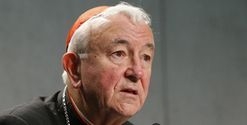
Cardinal Vincent Nichols has said that the Church’s infallibility does not protect it from “errors of judgment”, the Catholic Herald reports. Extract from CathNews, 2 November 2017
In an interview on BBC Radio 4’s Today program on Tuesday, the Archbishop of Westminster was asked by the presenter, Sarah Montague, about conflict within the Church over issues such as Communion for the remarried. Cardinal Nichols, who chairs the Catholic Bishops’ Conference of England and Wales, replied: “There is no doubt there is tension within the Catholic Church, but one of its great strengths is that we have a Pope – and we have a Pope who can say yes or no and then give you a hug.” Ms Montague then suggested: “And is infallible.” Cardinal Nichols replied: “The gift of infallibility is something that Christ gives to the Church which is expressed through the Pope. Now, that means that we will never, as it were, drift so far from the core revelation of God in Jesus as to get in a total mess. It does not protect us from every error of judgment, particularly in a conflictual situation.” In 1997, the Vatican’s then doctrinal chief Cardinal Joseph Ratzinger said that it was not quite true that “the Holy Spirit picks out the Pope”; rather, “Probably the only assurance he offers is that the thing cannot be totally ruined.”....(more) Photo: CathNews, CNS
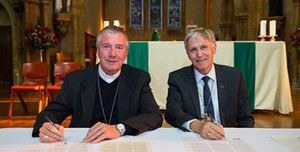
A national commemoration of the 500th anniversary of the Reformation on Tuesday has been described as an “ecumenical camino” by Canberra-Goulburn Archbishop Christopher Prowse, The Southern Cross reports. Extract from CathNews, 2 Nov 2017
Hundreds of Catholics and Lutherans took part in the day-long program of events in Adelaide marking the posting of Martin Luther’s 95 theses in Wittenberg on October 31, 1517. Archbishop Prowse, who is chairman of the Bishops Commission for Ecumenism and Inter-religious Relations, said the commemoration of the Lutheran Reformation was historic at a national and international level. “It was wonderfully planned and beautifully brought together – I would describe it as an ecumenical camino,” Archbishop Prowse told The Southern Cross after he and Bishop John Henderson of the Lutheran Church of Australia signed a declaration of unity between the two churches. “It’s been a journey not just today but also in terms of the future and the gratitude we have for all that has taken place to get to this point. “There is a deep sense of repentance and regret for the terrible ways we have treated each other in the past.” Referring to the impact of Vatican II and the Joint Declaration on Justification in 1999, Archbishop Prowse said it was as if an “impulse of the Holy Spirit” had taken over in the past five decades and a great deal had been achieved in a relatively short time. In a presentation on the Lutheran-Roman Catholic Dialogue prior to the signing of the declaration, Rev Dr Dean Zweck, Emeritus co-chair of the Dialogue, echoed the bishop’s sentiments. “Fifty 50 years ago, who would have thought Lutherans and Catholics would sit together in St Francis Xavier’s Cathedral to celebrate the 500th anniversary of the Reformation,” he said. “Surely this is the work of Jesus Christ in our midst.”....(more) Photo: CathNews, Ben McMahon
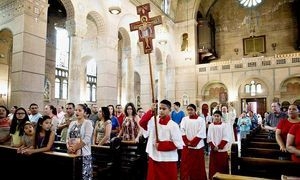
Extract from Richard Gaillardetz, National Catholic Reporter, 31 October 2017
Vatican: Pope Francis' letter to Cardinal Robert Sarah, correcting him on the procedures now in force for producing liturgical translations, has been both praised and denounced as an ecclesiastical "slap down." The publication of this letter, however, is an occasion for neither right-wing handwringing nor left-wing schadenfreude. This is not about ecclesiastical one-upmanship. It is simply one more example of Francis' consistent determination to implement the vision of the Second Vatican Council. If his actions continue to surprise us, it is because, five decades out, there remains a substantial gap between the council's reformist agenda and its concrete realization in the life of the church. Let's begin with a little background. This imbroglio has its remote origins in the momentous decision of the Second Vatican Council (1962-65) to give regional episcopal conferences, sometimes singly and sometimes banding together, primary responsibility for producing vernacular translations of liturgical texts. This was the common practice for more than three decades. However, in 2001, the Vatican's Congregation for Divine Worship and the Discipline of the Sacraments issued Liturgiam Authenticam, a document that shifted much of the responsibility for these translations away from episcopal conferences and back to the Vatican. The revised translation process included a line-by-line Vatican assessment of all liturgical translations, often resulting in the imposition of thousands of amendments to the submitted translation. Liturgiam Authenticam also called for a much stricter "fidelity" to the original Latin text. Unfortunately, the price of this stricter fidelity was often a diminishment in the texts' intelligibility and "prayability." In the English-speaking world, this problematic new procedure yielded the much-criticized 2011 English edition of the Roman Missal. Enter Pope Francis.....(more) Photo: NCR, CNS/Rhina Guidos

Kevin Rudd is back. Last week he was blitzing the country with a whirlwind book tour, having flown in from New York where he continues his post-prime-ministerial life as President of the Asia Society. He is promoting volume one of his autobiography entitled Not for the Faint-hearted. I caught up with him at Australian National University where he met in conversation with Stan Grant in front of a large crowd.
Brief extract from Frank Brennan, Eureka Street, 29 October 2017
.........Having worshipped more with the Anglicans than with the Catholics once he married Thérèse, Rudd says his experience of Christianity 'has had very little to do with denominations of any form'. Rudd has exemplified nationally and internationally that 'there is a space for faith, tempered by reason, in the public place, and that those of us who are of faith should unapologetically engage in the public debate, in particular arguing the case for those without a political voice of their own, be they the poor of the human family or the distress of the planet itself.' He acknowledges 'the simple truth' that 'Christianity no longer represents a shared epistemology for the common deliberations of a secular parliament, if in fact it ever did'. He concedes that 'the ethical views I might derive from faith must equally be explicable in the absence of some mystical recourse to divine revelation'......(more) Frank Brennan SJ is the CEO of Catholic Social Services Australia. Photo: Eureka Street,
The Catholic Church is a Church of tradition and reception, not of petitions. Only with the passage of time will we be able to verify if the teaching of "Amoris Laetitia" has been received or not. Extract from Massimo Faggioli, subscription joirnal La Croix International, 30 October 2017
How do people who believe the aftermath of the Second Vatican Council (1962-65) was a period of great turmoil see the current situation of discord in the Catholic Church? “Post-conciliar period” is a term that has become so vague as to be almost useless now. The transition from Benedict XVI to Francis is part of the post-Vatican II period, as was the pontificate of Paul VI and that of John Paul II. Was one of these post-Vatican II periods more turbulent than the others? The most obvious temptation in this situation is not just to take sides – all of us do, consciously or not – but to form a party. That is one of the reasons why I declined to sign the “Pro-Francis petition”, among whose signatories there are theologians I greatly admire, such as Thomas Halik and Paul Zuhlener. The petition is a reaction to the “Filial Correction” against Pope Francis’ "heresies". I wonder what non-Catholics and non-Christians make of this. Interestingly, there is also a sub-petition posted by Change.org, which claims to be “The World’s Platform for Change”. The website of the organization lists the address of the recipient of the petition: “Vicar of Christ, Pope Francis”. This collection of petitions is serious, but it predates Pope Francis by at least a generation. It is helpful to revisit the afterword that Yves Congar OP wrote for the second edition of his seminal book, True and False Reform in the Church (1950), which was published just after the social uprising and students’ revolt in France in May-June 1968. The famous French Dominican argued that “the council [Vatican II] was not responsible” for the social and theological upheaval, although he also said it was “true that the council opened up the Church to facing problems”. Congar said the Church had to understand how to deal with revolt and dissent. And he put forth five criteria for doing so. “There are certain things that the expression of protest can never do in the Church,” he wrote........Given this situation, it’s perfectly understandable why many of us would want to show support for the pope in all possible ways. But there are at least two reasons why it is a mistake to start an online theological war of petitions. The first reason relates to ecclesial politics. Francis is the only legitimate pope (there is no dual papacy in the Catholic Church, despite what some may think) and a petition supporting him can hurt only his pontificate. The anti-Amoris and anti-Francis front needs to admit how few they really are. The burden is on them to count the exact numbers; all other Catholics embrace Francis as the pope and see no heresy in his teachings. A petition in favor of the pope risks giving the impression that the support for him is smaller, or more elitist or more geographically defined than what it actually is....(more)
The online questionnaire in preparation for the Synod of Bishops' assembly on young people in October 2018 has received fewer responses than expected. Limited Extract from Gauthier Vaillant, subscription journal La Croix Internatiomnal, 26 October 2017
More than 4 months ago the Vatican posted an online international poll for people 16-29 years of age. It was part of preparations for the Synod of Bishops' ordinary assembly, which is focusing on “Young people, faith and vocational discernment" and is to take place in Rome in October 2018. The direct consultation was unprecedented for the Vatican. It was meant to take place in parallel with the contributions from bishops' conferences from each country around the world.....(source)
Edited Extract from Media Release, Truth, Justice, Healing Council, 25 October 2017
A community forum at the Yarra Theological Union in Box Hill Melbourne earlier this month heard three respected Church leaders talk about the impact of the child sexual abuse crisis on the Church and the Catholic community. The 300 - strong forum heard from Parramatta Bishop, Vincent Long, Director of Catholic Education in the Sale diocese, Maria Kirkwood and the CEO of the Church’s Truth Justice and Healing Council, Francis Sullivan. Parramatta Bishop, Vincent Long, a past student at the Union, spoke about the continuing danger of clericalism and the way in which it undermines the mission of Christ. “We must not divert from the task of listening, conversing and understanding each other in the spirit of mutual trust,” Bishop Long said. “A healthier Church is not possible until its leaders have reclaimed the core Gospel values of powerlessness , vulnerability and servant leadership. These are not just private virtues but the antidote to the disease of clericalism. Much of what is unhealthy with the Church today stems from the travesty of Christian leadership and service. “As far as I am concerned the sexual abuse crisis is only the tip of the iceberg. We must look for factors within this very culture of the church which have contributed to and aided and abetted , the sexual abuse crisis,” Bishop Long said. Maria Kirkwood, Director of Catholic Education in the Sale diocese, spoke about the need for gr e ater inclusion within the decision making structures of the Church. “Inclusion needs to be absolute. Not just the inclusion of those who are deemed to be safe and the exclusion of those who are th ought to be trouble. It really doesn’t mean limited inclusion. It cannot mean the token female, the token young person, the token gay, the token married person. “ Collaboration immediately falls apart if we ignore the concept of authentic, honest, dare I say, even dangerous inclusion,” Ms Kirkwood said. Francis Sullivan, CEO of the Truth Justice and Healing Council , gave a summary of major learnings from the Royal Commission including the extent of the abuse and cover up within the Church over the past decades. He said factors including misused power and authority, failed governance and secrecy contributed to the crisis. Mr Sullivan said one of the major reasons for the crisis was the failure of moral leadership within the Church. TJHC Media Release Here
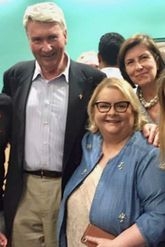
Extract from Frank Brennan, Eureka Street, 24 October 2017
........On the day the show was to go to air, the producers asked that we keep our answers to one minute in length. I replied, 'I will be very happy to play second fiddle to Magda.' I wanted my presence to assist a respectful dialogue on the panel and in the audience. I wanted to make it clear that a thinking and compassionate Catholic could have good reasons for voting yes. I wanted to insist that respect and endorsement of loving same sex relationships did not preclude consideration of issues such as freedom of religion. I enjoyed the program and have been hugely flattered and affirmed by a lot of the feedback I have received. The downside has been the vile vitriol posted on my Facebook page and the nasty messages left with my staff and religious superiors. They make the Wik debate look like a walk in the park. The more vitriolic critics seem most upset that a Catholic priest would have the temerity to claim that a Catholic could vote yes. Archbishop Mark Coleridge, an eminent scripture scholar and vice president of the Australian Catholic Bishops Conference, made the position clear when pressed by David Speers on Sky News a month ago. The archbishop said: 'Catholics, we're a big mob. Anyone who thinks we're monolithic does not know the Catholic Church. It's like herding cats. Catholics are going to vote yes, some are going to vote no, some are not going to vote at all. Some are going to vote yes for one reason, some for another; ditto with no. To think of a Catholic vote all going one way is just naïve. Of course, it's possible to vote yes. It depends why you vote yes. It's possible to vote no but equally it depends why you vote no. And we've seen some awful stuff on both sides of the debate, or all sides of the debate, because there aren't just two sides As a Catholic you can vote yes or you can vote no. I personally will vote no but for quite particular reasons. But I'm not going to stand here and say you vote no; and you vote yes and you're a Catholic, you'll go to hell. It's not like that.' He's right that it's not like that. That's why I was happy to play second fiddle to Szubanski indicating why I am voting yes, and what I expect of my politicians when it comes to voting on a law to extend civil recognition to all committed relationships of couples in the name of equality and with the name 'marriage'. This has to be about extending respect to all. Ultimately respect can be given only to those who show respect. We now need to ensure that the law accords that respect to all couples and to all religions. Let's get it done.....(more) Photo: Eureka Street, rank Brennan and Magda Szubanski following their appearance on Q&A. Frank Brennan SJ is the CEO of Catholic Social Services Australia.

Extract from Fr Noel Connolly SSC, Columban eBulletin, 25 October 2017
Pope Francis is an unusual Pope who is bringing real change to the church by encouraging open discussion and refusing to silence dissent. In fact, he has said, “Open and fraternal debate makes theological and pastoral thought grow…. That doesn’t frighten me. What’s more, I look for it.” Many people would like to see him clarify matters and crack down on dissent but Francis is patient and wants people to speak their minds because he believes in a synodal church. He trusts that the Holy Spirit will guide us in the right direction. Pope Francis talking to the Bishops before the first session of the Synod on the Family told them, “You need to say all that you feel with parrhesia” [boldly, candidly and without fear]. “And at the same time, you should listen with humility and accept with an open heart what your brothers say.”....(more) Fr Noel Connolly SSC is a lecturer in Missiology at both the Broken Bay Institute and the Catholic Institute of Sydney.
What Makes Australia’s Catholic Bishops Tick?
The
Catholic Church is a clerical institution. Bishops are the top rung of
the clergy. Where do they come from? What are they like? What is their
future? Edited Extract from Eric Hodgens, Pearls and Irritations, John Menadue website, 25 August 2017
Bishops are: A very small proportion worldwide (5,000 out of 1.2 billion Catholics); All powerful in their own diocese; Yet, very constrained by law and custom. Christianity
started as a charismatic movement of Jews who were captivated by the
preaching and healing of Jesus of Nazareth and looked forward to what
Jesus called the kingdom of God. They came to believe that Jesus had
been raised from the dead and foreshadowed life for all who believed in
him. Faith, therefore, was a personal commitment to Jesus who was, in
their view, the promised messiah of Jewish tradition. The
movement spread beyond Jewish confines and caught on in Syria,
Mesopotamia, Egypt – and even Rome. As it spread, it developed its own
organisation much along the lines of a Jewish synagogue. The leaders who
emerged were called bishops – literally overseers. Then
the emperor Constantine took the movement under his wing, canonised its
scriptures and supervised its development from being a charismatic
movement to being a religion with doctrines and rules. A fairly simple
movement became a state-endorsed, highly organised clerical institution.
This made bishops very powerful. What had started as a matter of the heart became one of the head and has stayed that way – up till now. Vatican
II began to change the faith balance more in favour of personal
encounter than acceptance of teachings; more heart than head; more
existentialist than essentialist. After centuries of head over heart,
this change of balance has alarmed some Catholics who are more at home
with the certainty of propositions than the flux of encounter –
especially if they are by nature doctrinaire or ideological..........(more)

Extract from, Crux Staff. Crux. 22 October 2017
In a rare move, Pope Francis has issued a public letter to one of his own cardinals correcting his interpretation of one of the pontiff's decisions. In a missive dated Oct. 15, Francis tells Cardinal Robert Sarah of Guinea, head of the Vatican's liturgical department, that the pope's recent document 'Magnum Principium' does indeed mean a power shift away from Rome and toward local bishops' conferences. Sarah heads the Vatican’s Congregation for Divine Worship and the Discipline of the Sacraments, making him in effect the pope’s top liturgical official. “It’s important to clarify that a judgment about fidelity to the Latin original [of liturgical translations] and necessary changes was the competence of the congregation, while now the norm concedes to the bishops’ conferences the faculty to judge the goodness and the coherence of various terms in the translations from the original, although in dialogue with the Holy See,” Francis wrote to Sarah. “The process of translating the relevant liturgical texts … should not lead to a spirit of ‘imposition’ on the bishops’ conferences of a translation carried out by the congregation, because that would offend the rights of bishops sanctioned in Church law.” Noting that a commentary by Sarah on Magnum Principium had been published on several Catholic news sites, Francis directed the Guinean cardinal to send his letter to the same sites and also to relay it to all bishops’ conferences and the members of consulters of his own Vatican department. Francis issued Magnum Principium in early September, and it was immediately seen as a significant reversal of tendencies under St. Pope John Paul II and Benedict XVI to concentrate control over liturgical translation in Rome, and, in particular, in the Vatican congregation now led by Sarah.....(more). Photo: Cardinal Robert Sarah Prefect of the Congregation for Divine Worship and the Discipline of the Sacraments, Crux, Bohumil Petrik CNA

However uncommon in practice, the Pauline and Petrine Privileges demonstrate the tension between the Church’s actual tradition and the rigorists’ cut-and-dry reading of the Gospel.
Limited Extract from Matthew Boudway, subscription journa; La Croix International, 21 October 2017
In a brief commentary in the Catholic Thing, Fr Gerald E. Murray rebukes Cathleen Kaveny and Fr. Anthony Spadaro, S. J., for contradicting the “plain meaning” of Christ’s teaching about divorce and remarriage at a recent conference on Amoris Laetitia. Murray, a canon lawyer, has been a vocal critic of Amoris Laetitia since its publication, and his criticism of Kaveny and Spadaro is really just an extension of his earlier criticism of Pope Francis and Cardinal Kasper. Responding to Kaveny’s claim that “we do not need to disturb Jesus’ teaching in order to refine and develop it", Murray writes: Jesus’ teaching cannot be disturbed…but it can be ignored or falsified. The admittance of invalidly married couples to Holy Communion is not a refinement or development of that teaching, it is a betrayal. One can claim to uphold a teaching by refining and developing it in a way that totally changes its meaning, but such a claim is false.....(more) Image: La Croix International, Christ Speaking to the Disciples, from The Story of Christ (Metropolitan Museum of Art, Bequest of Grace M. Pugh)

August 15 marked two important events for New York-area Catholics this year. It was the feast of the Assumption of Mary. It was also the start of the Subway Series between the New York Yankees and the New York Mets. The Diocese of Bridgeport decided to celebrate both, with an event billed as “Baseball with the Bishop,” which is exactly what it sounds like. Young adults of the diocese were invited to attend the game. The group began the evening with Mass in Bridgeport, Conn., before boarding a charter bus bound for the Bronx. In Yankee Stadium, section 427 is filled with young adults, who are cheering on their ball club alongside other young men sporting Roman collars. Bishop Frank Caggiano has come down with an illness and is nowhere to be found (as a Mets fan, perhaps the thought of being in Yankee Stadium was the cause). But none of the young adults in attendance seem to mind. There is a sense that they will see him another time. In the top of the ninth, the Yankees have a one-run lead and one out to go, but John Grosso’s focus is divided between the game and telling me how much he loves working for his boss—Bishop Caggiano. “Working with him is an absolute joy. He loves the church, and he loves young people—and he’s so good with young people because he’s a real person,” Grosso says. Grosso is the director of social media for the Diocese of Bridgeport. As a 20-something himself, his perspective is helpful for determining what style of ministry might be useful for young people. As we talk, his eyes dart back and forth between me and the batter’s box. “Our goal is to make ourselves a little bit vulnerable, by putting ourselves out there in situations where you wouldn’t expect to see the church.” Like at a Major League Baseball game. This type of outreach can be effective: Tanya Adler, 20, came to the game in response to an invitation. She motions toward her friends, Rich and John Kelly. “Yeah, we’re baseball fans, and we heard this announced after Mass and thought it would be cool to come out and meet the bishop.” The Kellys are brothers; one is a graduate of Fairfield Prep and the other is beginning his senior year there. Adler was raised Protestant, but she attended Catholic schools and goes to Mass occasionally with the Kelly family. Though she is not Catholic, she feels a pull to be more involved in church. “I’m not as active as I should be in a parish,” Ms. Adler said. “But it’s a work in progress. I’ll get there.” At 24, I am well within the demographics that are of interest to John Grosso and his team, and I certainly understand what it means to be a spiritual work in progress. I go to Mass (most) weekends, try my best to pray during the week and have a small faith-sharing community in my parish that sustains me. But I wonder if I am a success story. I have spent plenty of time parish shopping—it took me a while to find a sacramental home. I have been the youngest person in the pews too many times. I can no longer count the number of churches I have walked in and out of without anyone saying hello and asking what my name was, or if I was new.....(more) Photo: The Jesuit Review.
Extract from Melbourne Catholic, Benjamin Preiss & Noel Towell,The Age, Friday 20 October 2017
Historic voluntary euthanasia laws have passed Victoria's lower house after MPs endured a marathon sitting overnight and well into Friday morning. The legislation will now head to Parliament's upper house with assisted dying supporters hopeful they have the numbers to pass the momentous laws. Victoria will be the first state in Australia to offer an assisted dying regime if the legislation is passed. Exhausted MPs sat through a gruelling session as opponents moved hundreds of amendments in an effort to delay the passage of the bill. Deputy Premier James Merlino a fierce opponent of the government's bid to legalise a strictly monitored euthanasia scheme, had proposed an amendment that would have killed off the bill, long-championed by Labor as a flagship policy. All amendments were defeated. The bill passed with 47 votes for and 37 votes against about 11.20am. Debate over the divisive bill began at 9.30am on Thursday. It continued throughout the night, pausing only for two short 30-minute breaks.....(more).
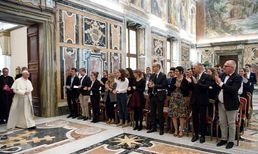
Extract from Carol Glatz, Catholic News Service, Friday 20 October 2017
Do not fall for the allure of money, which can enslave and alienate like a cult, Pope Francis told business school students. ‘And it is also important that you be able to learn today the strength and courage to not blindly obey the invisible hand of the market,’ he said. Pope Francis arrives for an audience with a group of students from a private Catholic school, "Institution des Chartreux," in Lyon, France, at the Vatican on 19 October. The pope spoke on 19 October at the Vatican to a group of students from a private Catholic school, ‘Institution des Chartreux,’ in Lyon, France. They are preparing for higher education in business and finance. The pope said he was pleased they were receiving an education that touched on the ‘human, philosophical and spiritual’ dimensions of life and said these aspects would be essential for their future professional life. ‘Learn to remain free from the allure of money, from the slavery’ that befalls those who ‘turn it into a cult,’ he said. He called on them to promote and defend more fairness and to manage the world's resources adequately and justly. ‘You are able to decide your future,’ he said, urging them to feel and become more responsible for the world and human life. ‘Never forget that every injustice against a poor person is an open wound and diminishes your very dignity,’ he said. ‘Even if this world expects that you strive for success, give yourselves the means and the time to follow paths of fraternity, to build bridges between people rather than walls’ and to take part in the building of a more just and human world, he said.....(more) Photo: Melbourne Catholic. (CNS photo/L'Osservatore Romano)
The data shows a 74 per cent increase in young people saying they have 'no religion'.
Extract from Sarah Mac Donald, The Tablet, 19 October 2017
New census data in the Republic of Ireland has shown that the proportion of Catholics fell by almost six percentage points between 2011 and 2016, when the figure stood at 78.3 per cent of the population. The report also reveals that people who say they have no religion are the fastest growing part of the Irish population, with a 74 per cent increase to 481,388 in 2016. The group makes up about ten percent of the population, and has an average age of 34 years. The impact of the ‘new Irish’ is indicated by the sizeable proportion they play in the overall Catholic population. People born outside Ireland account for 12% of the total number. The overall population of the country in April 2016 was 4,761,865. Commenting on the changing religious demography revealed by the latest census results, Archbishop Diarmuid Martin said the figures showed “a significant drop” in the number of those who consider themselves Catholic. In his homily for the Brazilian community on the Feast of Our Lady of Aparecida, the Archbishop of Dublin said the most significant aspect of the findings was the drop in young people who consider themselves Catholic and the corresponding growth among people of the same age group who registered as having no religion. Warning that much of the discussion about renewal in the Irish Church focused on structures and the role of priests and religious, Dr Martin said the crisis in the Irish church was not about numbers and structures but about faith and witness to faith. “None of our structures will survive if we do not find ways of witnessing to faith in Jesus Christ as something vital and attractive for the young men and women of our modern society. The census results indicate that the Church in Ireland is not being successful in that,” he said. According to the census figures, Church of Ireland numbers decreased by two per cent since 2011, to 126,414 members in 2016, with an average age of just over 40 years, three years above the average for the general population. Both the Muslim and Jewish populations grew by 28.9 per cent. Other religions to experience significant increases were Orthodox Christians and members of the Apostolic and Pentecostal churches.....(more)

Extract from Peter Feuerherd, National Catholic Reporter, 19 October 2017
Been there, done that. Massive consolidation of Catholic parishes has a familiar ring to mainstream Protestants who have been shedding congregations since the 1970s. Frequently Christian churches celebrate starting new congregations, reaping the benefits of growing, alive churches. "But we have to have an equal conversation about how do we close existing congregations," Darryl Stephens, director of United Methodist Studies at the Lancaster Theological Seminary in Lancaster, Pennsylvania, told NCR. Stephens, a United Methodist pastor as well as theologian, has written extensively about the best way to close congregations. Catholic dioceses, such as Philadelphia, New York, Boston, Hartford and, most recently, Pittsburgh, now considering consolidating 188 parishes into 48 groupings, are relative newcomers to the process of closing churches. The buzzword among Protestant leaders is "congregational vitality," an idea popularized by evangelicals who promoted the idea of "affinity churches," in which new members are added via the outreach efforts of established members. The focus is on evangelizing among friends and neighbors. The paradigm has been "you contact the people you know," said Stephens. It proved successful, particularly among more conservative members who gravitated towards social networks in suburbs across the U.S. Some argued that mainstream churches were unable to keep pace because they became too liberal. But, said Stephens, evangelical numbers are beginning a decline as well. The issues go beyond ideology and theology.....(more). Photo: NCR,

Extracts from John L. Allen Jr. Editor, Crux, 17 October 2017
ROME - Two stories about Pope Francis over the last few days have elicited either praise or criticism, depending on one’s point of view, but also pivoting on a perception that’s actually questionable: To wit, that once again, this maverick pontiff is breaking the mold. The first story came on Thursday, when Francis spoke at a conference celebrating the 25th anniversary of publication of the Catechism of the Catholic Church under St. Pope John Paul II, and called for a firmly abolitionist stance on the death penalty in official Catholic teaching. “It must be strongly stated that condemning a person to the death penalty is an inhumane measure,” the pope said. “It is, of itself, contrary to the Gospel, because it is freely decided to suppress a human life that is always sacred,” he added. “In the final analysis, God alone is the true judge and guarantor.” Recognizing that such a position marks a step forward in official Catholic teaching, Francis added that “doctrine cannot be conserved without allowing it to progress. “The Word of God cannot be conserved in mothballs as if it were an old blanket to be preserved from parasites. No. The Word of God is a dynamic reality, always alive, that progresses and grows because it tends towards a fulfillment that men cannot stop.” The other story came on Sunday......Whatever one makes of the pope’s outlook, however, here’s the thing: Looked at in historical terms, there’s a good argument that both on the death penalty and on the Amazon, Francis isn’t breaking with tradition, he’s in perfect continuity with it. On the death penalty, one could say that the entire arc of papal reflection over the last century and a half has been leading up to this moment. On that score, there’s nothing quite like a visit to Rome’s Criminology Museum, where, in a back room on the first floor, 12 feet tall and looking to be in perfect working order, stands the papal guillotine. From its introduction in 1816, a gift of the French to the Papal States, it dispatched scores of convicted criminals by papal warrant. (Prior to that, papal executioners relied on the noose and the axe.) The guillotine’s final use came on July 9, 1870, just two months before Italian revolutionaries captured Rome. Yet beginning in the 20th century, popes clearly began to shift....(more) Photo: Crux, AP Photo/Andrew Medichini

“A tradition, if it is not to die, must express its convictions in the language of the time: a language that will, therefore, be new.” Limited extract from Céline Hoyeau, subscription journal La Croix International, 13 October 2017
Pope Francis recently stated that the death penalty is “inadmissible” and should be categorically banned. Speaking at a Vatican conference celebrating the 25th anniversary of the Catechism of the Catholic Church, he clearly emphasized that “Tradition is a living reality”. “Only a partial vision can think of ‘the deposit of faith’ as something static,” he explained. “One cannot conserve the doctrine without making it progress, nor can one bind it to a rigid and immutable reading without humiliating the Holy Spirit.” Indeed, “since the very beginning of Christianity, the faith has been expressed anew according to new cultures, and new questions, sensitivities, and realities", states ........(source)

Extract from CathNews, 13 October 2017
An international poll has found Australians think religion does more harm than good, compared to people from most other countries, the Sydney Morning Herald reports. But we are also more comfortable with religious diversity than the international average. The survey of more than 17,000 people across 23 countries by polling firm Ipsos found opinion is evenly divided about the influence that religion has in society. It showed 49 per cent of respondents across all countries agreed with the statement "religion does more harm in the world than good". But the proportion of Australians agreeing with that statement was well above the international average at 63 per cent. "Australia is one of the more negative countries regarding the perceived harm that religion does," David Elliott from the Ipsos Social Research Institute said. Only Belgium (68 per cent) had a higher proportion than Australia who agreed religion does more harm than good, while Germany and Spain were on par with Australia. Even so, Australia had an above-average share who felt "completely comfortable" being around people with different religious beliefs to their own (84 per cent).....(more).

Thursday 12 October 2017
The evening of conversation with Bishop Vincent Long, Maria Kirkwood and Francis Sullivan at YTU Box Hill this evening was packed beyond capacity and an overflow room with video screen (and bad sound) had to be used. Details of transcripts and audio recordings are expected to be made available shortly and will be advised here. The topics discussed were:
Francis Sullivan - What are the challenges that are coming from the Royal Commission?
Maria Kirkwood - Sharing leadership in a collaborative Church
Bishop Vincent - What sort of Church should we be? How are you going to approach these issues in your Diocese?

In some ways, Martin Luther’s world was not so different from ours. In 1517 old certainties were failing and politics was in turmoil. New discoveries transformed understanding and poisonous nationalisms emerged.
Limited extract from Ed Simon, subscription journal, La Croix International, 11 October 2017
October 31 marks the quincentenary of a certain Augustinian monk nailing his ninety-five theses to a church door in Wittenberg, Germany - a perfect moment to consider having a repeat. Pundits often claim that Islam needs its own Reformation. But maybe all of us - Christian and non-Christian, believer and non-believer - would benefit from a New Reformation, one that changes our sense of what the word “religion” means. Present conditions indicate that we might be on the verge of another Reformation anyhow. In some ways, Martin Luther’s world was not so different from ours. In 1517, old certainties were failing, and politics was in turmoil. New discoveries transformed understanding, and poisonous nationalisms emerged. Media technology altered how people received information.....(source)
Photo: La Croix International, Luther Posting the 95 Theses (Detail) / Ferdinand Pauwels, 1872,
The World Today speaks to the Archbishop of Brisbane, Mark Coleridge, who took part in the talks.
Audio recording from Thomas Oriti on The World Today, ABC Radio, 9min 52sec, Broadcast: Tue 10 Oct 2017, 12:27pm
As the Royal Commission into Institutional Responses to Child Sexual Abuse prepares to hand down its final report in December, Australian Catholic Church leaders have met with Vatican authorities. The World Today speaks to the Archbishop of Brisbane. Streamed audio HERE
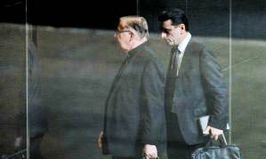
Australian church facing biggest crisis in its history, says Brisbane Archbishop
The
archbishop said the Church had been 'shaken to the core' by the abuse
scandal and today was being called to a 'greater authenticity'. Australian church facing biggest crisis in its history, says Brisbane Archbishop. Extract from Christopher Lamb, The Tablet, 9 October 2017
A
leading Australian bishop says the Church in his country is facing the
biggest crisis in its history after taking part in talks with the
Vatican over how to address the problem. The
Archbishop of Brisbane, Mark Coleridge, who is Vice President of the
Australian Bishops’ Conference, told The Tablet that he and fellow
bishops were in Rome to discuss the fallout of the clerical sexual abuse
crisis, and how the Church will adopt a new approach. This, he says,
will look at how to include women in positions of “governance”. High
on the agenda at the Vatican summit was Australia’s Royal Commission
inquiry into how institutions handled child sexual abuse. This has seen
the Catholic Church facing unrelenting criticism for its response to the
scandal. The problem has been magnified after the Australian police’s
decision to charge Cardinal George Pell, the Vatican treasurer and
former Archbishop of Sydney, with historic sexual offences. It
was the day after Cardinal Pell appeared for a hearing in Melbourne
Magistrates court last Friday, the Vatican issued a statement that an
Australian delegation had met with a range of Holy See officials to
discuss the “situation” facing the Church. These included Cardinal
Pietro Parolin, Secretary of State and Pope Francis’ number two, and
Archbishop Paul Gallagher, the Vatican’s foreign minister equivalent
whose previous job was papal ambassador to Australia. Cardinal Pell
has taken a leave of absence from his job as Prefect of the Secretariat
for the Economy while he seeks to clear his name and the cardinal has
firmly denied the charges against him. Archbishop Coleridge said the
case was discussed with the Vatican officials but only to provide the
Holy See with an insight "into the atmosphere in Australia around this
case." In the interview the archbishop
said the Church had been “shaken to the core” by the abuse scandal and
today was being called to a “greater authenticity”. He
explained: “In this, the call of the Royal Commission and the call of
Pope Francis converge in what looks to be one of the strange disruptions
of the Holy Spirit.” The crisis,
Archbishop Coleridge stressed, was “both threat and opportunity” but
required the Church to adopt a new approach. To that end the bishops
have announced a plenary council to take place in 2020 which will
undertake a wide ranging review of it’s mission including how to give
more responsibility to lay people. One of the major criticisms of the
Australian church has been clericalism, which has seen too much
responsibility placed in the hands of priests and bishops. In
the interview, the archbishop said that one to be discussed at the
plenary council is how to involve women in the running of the Church,
and not simply its “management” within which they are already heavily
involved. “It’s clear then that the Church here is passing through a
time of deep, painful and permanent change – which is why the bishops
have decided for a Plenary Council, which was also discussed in our
meeting in Rome. The Plenary Council will have to make bold decisions
about the future, taking into account the changed and changing facts on
the ground,” he said. Below is the full question and answer with Archbishop Coleridge.....(more) Photo: The Tablet
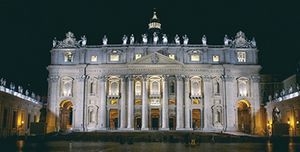
Australian Church leaders travelled to Rome last week to meet with Vatican authorities to discuss current issues facing the Church in Australia, CNA reports.
Extracts from CathNews, 9 October 2017
Australian Church leaders travelled to Rome last week to meet with Vatican authorities to discuss current issues facing the Church in Australia, CNA reports. According to an communique from the Vatican on Saturday, the leadership of the Australian Catholic Bishops Conference (ACBC) met with officials of the Vatican's Secretariat of State and other relevant offices of the Holy See “for a wide-ranging discussion concerning the situation of the Church in Australia at this time”. Topics covered in the discussions included the ongoing investigations of the Royal Commission into Institutional Responses to Child Sexual Abuse, which recently suggested that the Church be legally bound to break the seal of Confession when sexual abuse has been disclosed within the Sacrament. The statement came the day after Cardinal George Pell, prefect of the Secretariat of the Economy, attending a hearing over allegations of past sexual abuse in Australia. Cardinal Pell has maintained his innocence over all allegations against him. According to the communique, other topics covered during the meeting included the relationship between the Church and society as a whole, the re-establishment of trust following the abuse crisis and a call for greater participation of laypersons in decision-making roles in the Church in Australia. Members of the Australian delegation were Archbishop of Melbourne Denis Hart, president of the ACBC; Archbishop of Brisbane Mark Coleridge, vice president of the ACBC; and Justice Neville Owen of the Truth, Justice and Healing Council.....Key participants from the Vatican were the Secretary of State, Cardinal Pietro Parolin; the secretary for Relations with States, Archbishop Paul Richard Gallagher; the prefect of the Congregation for Bishops, Cardinal Marc Ouellet, PSS; and the secretary for the Congregation for the Doctrine of the Faith, Archbishop Giacomo Morandi. The meeting fell just two months after the Royal Commission, established in 2013, released 85 proposed changes to the country's criminal justice system.....(more) Photo: CathNews, Pixabay
It’s a story that would do the best Greek tragedians proud.
Limited extract from Michael Kelly, SJ, subscription journal La Croix International, 9 October
Here is the lead role in the tragedy – Cardinal George Pell – having to endure the humiliation of facing charges for alleged sexual abuse. The October 6th “mention” at the Melbourne Magistrates Court did not specify charges but reported that there would be up to 50 witnesses testifying in court proceedings. The “mention” occurs to set a date for the committal hearing which establishes whether Pell has a case to answer and provides rules so that all parties have access to the available evidence. The process is likely to drag on for a long time. After the committal hearing, trials may follow for each of the charges or clusters of them if there be a collection that can be broken up into different trials. It’s a process that will attract intense, global attention from the media. Cardinal Pell’s profile has been high for decades. Now he’s an object of international interest after his web televised appearance before the Royal Commission into the abuse of minors in institutions. Whatever the outcome of the legal process, charges against clerics, whether proven or dismissed, stick in the popular imagination. Once the finger is pointed at a cleric on sexual matters, the game is up and his life in the chosen profession is finished. What’s more, for Pell, his life in the Vatican is over as these court proceedings will extend well beyond his current contract there. Here is the lead role in the tragedy – Cardinal George Pell – having to endure the humiliation of facing charges for alleged sexual abuse. The October 6th “mention” at the Melbourne Magistrates Court did not specify charges but reported that there would be up to 50 witnesses testifying in court proceedings. The “mention” occurs to set a date for the committal hearing which establishes whether Pell has a case to answer and provides rules so that all parties have access to the available evidence. The process is likely to drag on for a long time. After the committal hearing, trials may follow for each of the charges or clusters of them if there be a collection that can be broken up into different trials. It’s a process that will attract intense, global attention from the media. Cardinal Pell’s profile has been high for decades. Now he’s an object of international interest after his web televised appearance before the Royal Commission into the abuse of minors in institutions. Whatever the outcome of the legal process, charges against clerics, whether proven or dismissed, stick in the popular imagination. Once the finger is pointed at a cleric on sexual matters, the game is up and his life in the chosen profession is finished. What’s more, for Pell, his life in the Vatican is over as these court proceedings will extend well beyond his current contract there...(source)
Extract from Nicolas Senèze, Rome, subscription Journal La Croix International, 5 October 2017
In the runup for the October 2018 gathering of the Synod of Bishops, Pope Francis has called a meeting for young people from all over the world to be held in Rome next March. The youths will there be able to make their voices heard in preparation for the 2018 synod. Pope Francis has announced a pre-Synodal meeting for young people from all over the world to be held in Rome from March 19-24, 2018....(source)
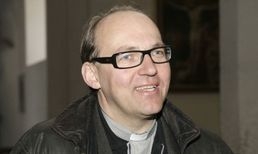
It is not “utopian” to hope that women will one day even be ordained priests in the Catholic Church, Bishop-elect Herman Glettler believes. "Structural changes and concrete measures to relieve priests are called for."
Extract from Christa Pongratz-Lippitt, Germany, subscription journal La Croix International, 5 October 2017
The newly appointed head of the Austrian Diocese of Innsbruck, Bishop-elect Herman Glettler, has surprised people by coming out in support of the ordination of women to the diaconate. He has also suggested that it’s not too far-fetched to think that women may even be admitted to the priesthood in the future. The 52-year-old priest, in a series of interviews following his September 27th appointment, further said he is also in favor of allowing married men to become priests and divorced and remarried Catholics to receive communion. Not only have these comments raised eyebrows, but so has the fact that Fr Glettler is not from the federal state of Tyrol in Western Austria where Innsbruck is the capital. Instead, he’s from the southeastern part of the country and a priest of the Diocese of Graz, as well as a member of the Emmanuel Community.....(source) Photo: La Croix International Caritas Steiermark

The former head of Vatican Radio's China section, nonagenarian Father Joseph Shih, posits that tolerance of China's Communist regime is not the same as compromise.
Extract from Michael Sainsbury, Dili (Timor-Leste) and ucanews.com reporter, Hong Kong, Chima, subscriptional journal La croix International, 5 October 2017
Father Joseph Shih, the former head of the China section of Vatican Radio, has sent a message to Pope Francis saying that the church needs to have "healthy realism" in its dealings with the Chinese government. Fr Shih also explained that tolerance was not the same as compromise, so the Holy See should not be opposed to Chinese authorities as it continued talks aimed, firstly, at normalizing the appointment of bishops. In recent decades the state-run Chinese Catholic Patriotic Association and the Vatican have jointly appointed some bishops while others have only either Vatican or government approval. "Compromise gives something away to the other party, up to a level that the other finds satisfying. Tolerance gives nothing away, nor does it.....(source) Photo: Fr Antonio Spadaro (left) with Fr Joseph Shih, La Croix International, Fr Antonio Spadaro (left) with Fr Joseph Shih. (Photo supplied)
This article appears in the Amoris Laetitia feature series. View the full series.
Extract from Joshua J. McElwee, National Catholic Reporter, 5 October 2017
Boston — Pope Francis is asking the Catholic Church not to see families as a kind of workshop to try out different pastoral strategies but as a "privileged place" where God is alive and at work in the world, Chicago Cardinal Blase Cupich said Oct. 5. At a first-of-its-kind conference for U.S. bishops and theologians to consider how to better implement Amoris Laetitia, Francis' 2016 apostolic exhortation on family life, Cupich said the pope focuses on how "God has chosen to reveal the divine reality in the privileged place of family life." "How true that is, if you look at the opening chapters of Genesis, all the way to the final scene in the Book of Revelation," Cupich said. "The context is always families, people coming together as families." "That it is the privileged place that God has chosen in order for us to come to know who God is," he said. "It is not so much that we are treating families as a kind of a laboratory in which we do pastoral practice or theology, but rather it's a privileged place that we are graced to be a part of ... to see where God is active, where God is alive and God is doing something new." Cupich is co-hosting the conference at Boston College with Jesuit Fr. James Keenan, a theologian at the university. During the two-day event, two cardinals, 12 bishops and 24 other invited participants are discussing what organizers call the "new momentum" Amoris Laetitia (in English, "The Joy of Love") gives local bishops to renew their pastoral practices toward families.....(more)
The former pontiff said liturgy had become too centred on man's 'activity and creativity'. God has become “obscured” in the liturgy, resulting in a crisis for the Church, Benedict XVI has said.
Extract from staff reporter, The Catholic Herald, UK, 5 October 2017
In a foreword to the Russian edition of his book Theology of the Liturgy, reproduced in La Stampa, the former pontiff said a misunderstanding of the nature of liturgy has led to man putting “his own activity and creativity” at the heart of worship. “Nothing precedes divine worship,” he says. “With these words, St Benedict, in his Rule (43.3), established the absolute priority of divine worship over any other task of monastic life.” Even though agricultural and academic work were heavily time-consuming, St Benedict made sure the liturgy received maximum attention, emphasising “the priority of God Himself in our lives”. Today, however, “the things of God and thus the liturgy do not appear urgent at all”. The Church “lives from proper celebration of the liturgy” and is in danger when “the primacy of God no longer appears in the liturgy nor consequently in life”. “The deepest cause of the crisis that has upset the Church lies in the obscuring of the priority of God in the liturgy,” he says. “If God is no longer important, the criteria move which establish what is important,” the Pope Emeritus adds. If man sets God aside, he will end up a “slave to material forces, and thus opposed to his dignity”.....(more)
The Atonement: Lina’s Project was a victim-led community event of acknowledgement and repentance, that was held on Friday 15 September at Newcastle City Hall.
Edited Extracts from Joanne Isaac Diocese of Maitland Newcastle originally published 23 August. with updates, published here 28 September 2017
Extract from message by Bishop Bill Wright, Bishop of Maitland-Newcastle
Message from Bishop Bill Wright: As Bishop of Maitland-Newcastle, I have listened to people’s agonising stories of how they were abused as children by clergy, religious, teachers and others in the church. For those children, their abuse often caused fear, confusion and shame that changed who they were and who they might have become. Their anguish was compounded when they were not believed and even punished for telling the truth. And so, through no fault of their own, they were left with a great hurt at the centre of their being that they have had to carry through life. Some have managed to bear the hurt, even if they are never free of it, but for others it was too much to bear and they took their own lives. To the people who were those children and to those close to them, a formal apology by the church can never really be adequate. I understand that, but still it needs to be said over and over: the diocese apologises for our failure to protect you, we apologise for the crimes that people working in the diocese inflicted on you. We are so, so sorry that our diocese let these things happen to you.......(more) What is Lina’s Project? You can read about Lina and her brave vision for atonement and healing and watch a powerful video here
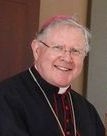
Senior Catholic warns there has always been "discrimination" against some forms of wedlock.
Extract from editorial staff, subscription La Croix International editorial staff
Australia, 26 September 2017
One of Australia's most senior Catholics has spoken out against same-sex marriage, saying it is similar to "the love of friends". Archbishop Mark Coleridge of Brisbane, in the eastern state of Queensland, said: "It is love and it is valuable but it's not and it can't be the kind of love that we call marriage." People participating in the non-binding same-sex marriage postal survey currently underway in Australia should consider that same-sex couples were different, ABC radio reported the archbishop as saying. He said there had always been discrimination towards some forms of marriage. "Parents can't marry their children, children can't marry their parents," Archbishop Coleridge said. "Sibling marrying sibling has always been ruled out. People underage have been disqualified from marrying but so too people of the same sex."...(more). Photo: Lar Croix International, (Stipo Karajica) / Wikipedia / CC BY SA 3.0

Extract from Frank Brennan S.J. Eureka Street, 24 September 2017
Australian voters are deciding which box to tick when asked, 'Should the law be changed to allow same-sex couples to marry?' Unlike some bishops, I argue that a committed Catholic could vote 'yes' or 'no'. For many Catholic voters, this has been a difficult issue because for the first time in their lives they have found themselves in the same position which our politicians find themselves every time they have to vote on contested moral and political questions in parliament. They don't find themselves getting all that much help from official church declarations. This is no criticism of our bishops. They are the custodians of a tradition which has been somewhat skewed on this issue for a long time. In 1975, the Vatican's Congregation for the Doctrine of the Faith (CDF) declared that 'homosexual acts are intrinsically disordered and can in no case be approved of'. Then in 1986, under the leadership of Cardinal Ratzinger (as he then was), the CDF declared that 'special concern and pastoral attention should be directed toward those who have this condition, lest they be led to believe that the living out of this orientation in homosexual activity is a morally acceptable option. It is not.' In 1992, the CDF identified 'some principles and distinctions of a general nature which should be taken into consideration by the conscientious legislator, voter, or Church authority who is confronted with such issues'. The CDF claimed that there was 'a danger that legislation which would make homosexuality a basis for entitlements could actually encourage a person with a homosexual orientation to declare his homosexuality or even to seek a partner in order to exploit the provisions of the law'. Many Catholics nowadays find such declarations unhelpful and insensitive, perhaps even downright wrong. Even those Catholics who find such teaching helpful in determining their own moral stance might question the application of such teaching when deciding whether to tick the box 'yes' or 'no'. For most contemporary Catholics, Pope Francis has been a breath of fresh air with his observation, 'Who am I to judge?'....(more) Photo: Eureka Street
Pope Francis confirms his controversial vision of the family
The
pope is broadening his approach to marriage and the family by replacing
the Pontifical John Paul II Institute for Studies on Marriage and
Family with an institute focused on implementing "Amoris Laetitia". This
is a contentious undertaking, given that his opponents on these topics
are as vociferous as ever.
Extract from Nicolas Senèze,
Rome, subscription magazine La Croox International, 25 September
2017. In making this decision, Francis knew that he was
touching upon the Polish Pope’s legacy with regard to the marriage and
the family. The John Paul Institute, founded by John Paul II in 1982 to
promote theological research on marriage and the family, had become a
conservatory of Wojtylian thought, closed to any other vision of these
subjects. Pope Francis has therefore transformed the Institute into
the Pontifical John Paul II Theological Institute for the Sciences of
Marriage and Family.....(source)
Photo La Croix
International, Pope Francis backs the idea that "all families, without
distinction, need to be assisted and accompanied to rediscover their
historic mission", Archbishop Paglia told the Synod in 2014. / Alessia
Giuliani/CPP/Ciric

Extract from Philip Pullella, Reuters, 22 September 2017
VATICAN CITY (Reuters) - Pope Francis, in some of his most candid and personal comments on the sexual abuse of children by priests, said on Thursday that the Catholic Church had “arrived late” in dealing with the problem. Francis, speaking in unscripted remarks to a commission advising him on how to root out sexual abuse, also acknowledged that early in his papacy he had made one bad call in being too lenient with an Italian priest who later went on to abuse again. He also said he had decided to change current procedures for dealing with abusive priests by eliminating appeals trials in cases where there was definitive proof. Francis surprised members of the commission by putting aside his entire prepared speech and chatting to them. “There is the reality that the Church arrived at the consciousness of these crimes a bit late,” he said. “When consciousness arrives late, the means to resolve the problems also arrive late. I am aware of this difficulty but it is reality and I say it plainly: We arrived late.” Church sexual abuse broke into the open in the United States with reports of cases in Louisiana in 1984 and exploded in 2002, when journalists in Boston found that bishops had systematically moved abusers to new posts instead of defrocking them. Thousands of cases have come to light around the world as investigations have encouraged long-silent victims to go public, shattering the Church’s reputation in places such as Ireland, and more than $2 billion has been paid in compensation. “The old practice of moving people around and not confronting the problem made consciences fall asleep,” he said....(more) Photo: Cardinal Sean Patrick O'Malley speaks as Pope Francis meets with members of the Pontifical Commission for the Protection of Minors at the Vatican, September 21, 2017. Osservatore Romano/Handout via REUTERS (Also see Deutsche Weller article here )
Müller criticises Francis papacy for lacking theological rigour, and hints at comeback
The
cardinal criticised the Latin American approach to theology, in a
thinly veiled critique of the Argentinian Pope Müller criticises Francis
papacy for lacking theological rigour, and hints at comeback
Extracts from Christopher Lamb , Christa Pongratz-Lippitt, The Tablet, 20 September 2017
The
cardinal criticised the Latin American approach to theology, in a
thinly veiled critique of the Argentinian Pope Müller criticises Francis
papacy for lacking theological rigour, and hints at comeback. The
Vatican’s former doctrine chief has criticised Francis’ papacy for
lacking theological rigour, while suggesting he is ready to make a
comeback and work in the Roman Curia. During a book presentation in
Germany last Friday, Cardinal Gerhard Müller, dismissed from his job by
the Pope in July, recalled how the Jesuit Cardinal Robert Bellarmine
(1542-1621) told Pope Clement VIII that he did not understand anything
about theology.......In Mannheim, the cardinal criticised Latin American
approach to theology, in what was a thinly veiled critique of the
Argentinian Pope and his theological advisers from the continent.
“In Europe, theologians immediately have to have the exact council text
ready when words like ‘faith’ or ‘mercy’ are used. This kind of theology
with which we are familiar doesn’t exist in Latin America. They are
more intuitive there,” Cardinal Muller said during a presentation of his
new book 'The Pope - Mission and Task' at the Reiss-Engelholm-Museum at
Mannheim. “They look at a text without
considering it as part of a whole. We must somehow respect and accept
this style. But I nevertheless wish that as far as teaching documents
are concerned clear theological preparation must take place.” Müller
also stressed that theology was getting a raw deal under this Pope and
that the Holy See’s Secretariat of State was now the most important
authority in the Vatican. In the past his former department, the
Congregation for the Doctrine of the Faith, had a more authoritative
role...(more)
Pope Francis redirects mission of John Paul II institute on marriage, family
Extracts from Gerard O'Connell, The Jesuit Review, 19 September 2017
As
a follow-up to the publication of “Amoris Laetitia” and the two synods
on the family, Pope Francis has refounded the Pontifical John Paul II
Institute for Studies on Marriage and the Family, giving it a broader
mandate than it originally had to ensure that it does not just focus on
moral and sacramental theology, but also takes account of the biblical,
dogmatic and historical dimensions, as well as contemporary
challenges......While acknowledging that the original institute carried
out important work in past decades, Francis said the 2014 and 2015
synods have brought a renewed awareness of “the new pastoral challenges”
regarding the family “to which the Christian community is called to
respond.” In other words, much has changed in these past 36 years since
John Paul II set up the original institute in 1981. While the institute,
with its branches in different continents, researched, taught and
promoted the teaching on marriage and the family that came out of the
1980 synod, there is a need for this new institute because of the
anthropological and cultural changes that have taken place in the world,
which “require an analytical and diversified approach, and does not
allow us to limit ourselves to practices of pastoral (ministry) and
mission that reflect forms and models of the past.” That wider focus and
vision of the family is reflected in the mandate for the new institute,
which has “Amoris Laetitia” as its lodestar.....“In the clear proposal
of remaining faithful to the teaching of Christ, we must, therefore,
look with the intelligence of love and with wise realism, at the reality
of families today in all of their complexity, in their light and
darkness,” the pope wrote....(more)

Extract from Peter Johnstone, Pearls and irritations, John Menadue blog, 18 September 2017
Two Catholic bishops have written pastoral letters to their dioceses in which they make it clear that Catholics should not discriminate against same-sex couples and should listen to their consciences in considering how to vote in the ABS survey, now landing in letterboxes throughout the country. Bishop Vincent Long of Parramatta and Bishop Bill Wright of Maitland-Newcastle have effectively removed any ‘Catholic’ arguments against supporting marriage equality and stress the responsibility of Catholics to discern carefully in determining their ‘vote’. Christians must be very confused about how their religious beliefs should influence their views on the current marriage equality survey, officially described in the ABS mail-out as “Your Australian Marriage Law Postal Survey”. Some so-called Christian positions seem to suggest that there is an inherent Christian exclusion of the possibility of civil same-sex marriage. The most careful and authoritative Christian analyses to date may have come from separate pastoral letters of Catholic bishops Vincent Long of Parramatta and Bill Wright of Maitland-Newcastle....(more)
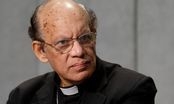
Extract from Joshua J. McElwee, National Catholic Reporter, 16 Jun 2017
Vatican City — One of the members of the Council of Cardinals said the group is considering whether to advise Pope Francis to make it mandatory for Vatican ambassadors to consult with laypeople before making recommendations for possible new bishops in the Catholic Church. Indian Cardinal Oswald Gracias suggested the nine-member group might recommend that ambassadors be instructed to consult with members of a diocese's pastoral or finance councils before passing on names of who to consider for bishop. "This is a central matter for the church," Gracias said in a June 15 NCR interview. "The bishop is a central figure and the choice of a good bishop is very important for every church. If you choose the wrong person, things can be set back by years in the pastoral life of the church." The pending recommendation from the Council of Cardinals could mark a significant shift for the church and for the role of Vatican ambassadors, known as apostolic nuncios. While nuncios are currently allowed to consult laypeople when considering bishop candidates, they are not obligated to do so, and frequently put the focus of their consultations on current clergy members.....(more). Photo: NCR, CNS Paul Haring
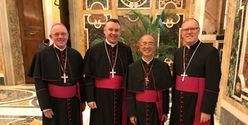
Extract from CathNews, 15 September 2017
Pope Francis met with new bishops, including four Australians, at the end of their training course at the Vatican, reminding them to be both humble and open to better ways of evangelising other than just “the way it's always been,” CNA reports. Pope Francis yesterday spoke in an audience with participants in the annual training course for new bishops held in Rome and organised by the Congregation of Bishops and the Congregation of Eastern Churches. The course was attended by Australian bishops ordained this year: Geraldton Bishop Michael Morrissey, Townsville Bishop Tim Harris Lismore Bishop Greg Homeming OCD and Brisbane Auxiliary Bishop Ken Howell. “Discernment is a remedy for the immobility of 'it has always been so' or 'we take time,'” the Pope told the bishops. “It's a creative process that is not limited to the application of methods. It is an antidote against rigidity, because the same solutions are not good everywhere. Do not be imprisoned by the nostalgia of having only one answer to apply in all cases.” He continued, warning that to have an easy, one-size-fits-all answer might soothe our performance anxiety, but it threatens to make our lives “dried up.” He reminded the bishops how important it is that they have humility, especially for the work of the Holy Spirit.....(more) Photo: Cathnews,

Extract from CathNews, 15 September 2017
Brisbane Archbishop Mark Coleridge says the Church in Australia is acting to protect children from sexual abuse although he concedes it has a long way to go, News.com.au reports. Archbishop Coleridge says a lot has been and is being done around Australia to safeguard children. "But it's very much a work in progress; we still have a long way to go," he said yesterday. "Because it's not just a matter of changing procedures and protocols but of building a culture, and that takes time." An RMIT University report on child sexual abuse in the Church worldwide found Australia is significantly behind other comparable countries in developing policies and protocols to safeguard children. Archbishop Coleridge said the report does not appear to be up to speed with the state of play in Australia, where some of the Church's work is under the radar. He said other Church actions are very much on the radar, such as its new professional standards body that will set nationally consistent standards and audit compliance with them.....(more) Photo: Cathnews, ACBC
Extract from Mark Zimmermann, Melbourne Catholic, Catholic News Service, 15 September 2017
The process of ‘journeying together’ during the Catholic Church's synods of bishops examining contemporary challenges on marriage and family life offers a map for the church's outreach, Washington Cardinal Donald W. Wuerl said on 12 September. This process reflects not only the pontiff's pastoral approach, but also offers a template for how priests and laypeople can accompany others to help them understand and live the faith, he said. Cardinal Wuerl made the remarks at Georgetown University in an address on ‘Pope Francis: Fresh Perspectives on Synodality’ as part of the university's Dahlgren Chapel Sacred Lecture series. Washington Cardinal Donald W. Wuerl speaks during a 12 September lecture at Georgetown University's Dahlgren Chapel. The cardinal spoke on the topic ‘Pope Francis: Fresh Perspectives on Synodality’ as part of the university's Dahlgren Chapel Sacred Lecture series. He explained that ‘synodality’ refers to coming together or journeying together, which he said is how those gatherings of the world's bishops tackled issues facing married couples and families. The cardinal noted that Pope Francis emphasised the importance of dialogue as those discussions unfolded. ‘We can recall his advices to the bishops ... to speak with openness and clarity, to listen with humility and be open to the Holy Spirit.’ Cardinal Wuerl said that the pope's understanding of synodality, that journeying together, involved not only dialogue with bishops who teach and transmit the faith, but also drew upon insights from married couples and families in dioceses around the world. The proceedings formed the basis for Pope Francis' 2016 apostolic exhortation ‘Amoris Laetitia’ (‘The Joy of Love’)....(more)
Extract from Elise Harris, Crux, CNS, 14 September 2017
ROME - One of the key talking points in the latest round of meetings for the pope’s Council of Cardinals was the selection of personnel in the Roman Curia, with an emphasis on making it more international, and with a higher number of young people and women. The cardinals gathered for the 21st time in the Vatican’s Apostolic Palace from September 11-13 to discuss the ongoing reform of the Roman Curia. Commonly referred to as the “C9,” the group was established by Pope Francis after his election as Bishop of Rome in 2013 to advise him in matters of Church governance and reform. Absent from this week’s meetings were Cardinal Laurent Monsengwo Pasinya of Kinshasa and Cardinal George Pell, Prefect of the Secretariat for the Economy. In comments to journalists during a Sept. 13 press briefing, Vatican spokesman Greg Burke said that as of now, no one is stepping in for Pell during his leave of absence while facing charges for abuse in Australia. Francis himself was absent for the first day of meetings due to his recent trip to Colombia, but was present for the rest of the sessions apart from Wednesday morning, when he was at the weekly general audience....(more)

Extract from Pastoral Letter by Most Reverend Vincent Long Van Nguyen OFM Conv Bishop of Parramatta, 13 September 2017
Dear sisters and brothers, As I write to you, the national debate on same-sex civil marriage is in full swing. It is an issue that many feel passionate about and hence, it has potential to polarise the community. I appeal to all Catholics in the Diocese of Parramatta to conduct this dialogue with a deep sense of respect for all concerned, and for the opinion and decision that each person is free to make. It is important to remember from the very outset that the postal survey is about whether or not Australians want the legal definition of civil marriage changed to include same-sex couples. It is not a referendum on sacramental marriage as understood by the Catholic Church. Many years ago, divorce was legalised in Australia; but this change did not alter the law of the Church. Therefore, whatever the outcome of the survey or the eventual legislation by the government, the Church will continue to hold that marriage is a natural institution established by God to be a permanent union between one man and one woman, directed both to mutual companionship and to the formation of a family in which children are born and nurtured. For many Catholics, the issue of same-sex marriage is not simply theoretical but deeply personal. These may be same-sex attracted people themselves or that may be the case with their relatives and friends. In such cases, they are torn between their love for the Church and their love for their same-sex attracted child, grandchild, sibling, cousin, friend or neighbour.....(more)
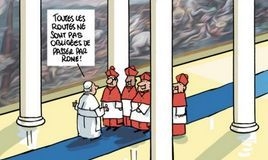
Extracts from subscription journal La Croix International, 13 September 2017 This week the pope met with his council of cardinal-advisors to reflect on “excessive centralization" in Church governance. Several possibilities are being considered for shifting to the local level decisions currently taken in Rome......Excessive centralization, rather than proving helpful, complicates the Church’s life and her missionary outreach,” he lamented in §32 of Evangelii gaudium, the document that is the program for his pontificate.....(source). Image: La Croix International, "All roads do not need to go through Rome!" - Deligne

Extract from Jacqueline Williams, New York Times, 12 September 2017
MELBOURNE, Australia — A study that examines child sexual abuse worldwide in the Roman Catholic Church has found that the Australian church has done less to safeguard children in its care than its counterparts in similar countries have. The report, released on Wednesday by the Center for Global Research at the Royal Melbourne Institute of Technology, also found that the church’s requirement that priests be celibate was a major risk factor for abuse. And it said that the possibility of abuse in Catholic residential institutions, like orphanages, should be getting more attention, especially in developing countries. Experts said the report could put pressure on Pope Francis, and particularly the church in Australia, to do more to prevent abuse. The Australian church was rocked in June when Cardinal George Pell, an Australian who is one of the pope’s top advisers, became the highest-ranking Roman Catholic prelate to be formally charged with sexual offenses. Desmond Cahill, the report’s lead author, said its findings pointed to an urgent need to rethink the priesthood in the 21st century. A professor of intercultural studies at the Royal Melbourne Institute of Technology, he said the church should reconsider the celibacy requirement for priests. “The Catholic Church is in a state of crisis, and pressure has to be put on the Holy See to take the necessary steps to change,” Professor Cahill said. In nearly 400 pages, the report traces the history of child sexual abuse in the global church and tries to identify factors that have contributed to it, with a particular focus on Australia. Professor Cahill and the report’s co-author, Dr. Peter Wilkinson, a researcher in Catholic culture, are both ordained priests who resigned from church ministry in the 1970s but remain practicing Catholics. Professor Cahill said that while in the ministry, he worked alongside some of Australia’s most abusive priests, but did not realize it until decades later. “Our backgrounds have allowed us not only to understand in depth the workings of the church in Australia, but also the Holy See in Rome, where we both studied at postgraduate level in pontifical universities,” he said....(more). Photo: NYT, Byron Kaye/Reuters
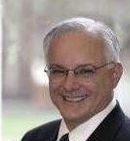
In this paper Peter Johnstone responds to an article by Greg Craven "Besieged Catholic Church is wounded, but will not fall" published in The Australian, 19 August 2017
Extract, Tuesday 12 August 2017
.....When I read the title of Greg Craven’s piece, I expected to read a considered assessment of the lessons learnt by the Church following the devastating revelations of clerical child sexual abuse and its cover-up and protection of paedophiles by bishops throughout the world. As a Catholic observer who has been involved in submissions to the Royal Commission and given public evidence to the Commission, I expected that the conscientious and dedicated work of the Commissioners and their staff would at least have been respectfully acknowledged.....(paper HERE)
Extract from Anne O’Brien, Pearls and irritations, John Menadue blog, 12 September 2017
The Royal Commission has provided few grounds for optimism concerning the future of the Catholic Church in Australia. The institution is moribund and its leaders are unable or unwilling to face reality. Despite the history of criminal negligence dating back decades, Church leaders have absolved themselves from responsibility for the shocking manner in which victims have been treated. Bishops, clergy and religious have shown inadequate and insufficient compunction concerning such criminal behaviour: they owed allegiance solely to the Vatican and to no one else, neither their own Catholic community nor civil society....(more)
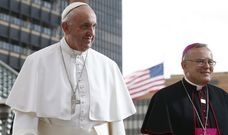
Extract from re-visited paper of 7 Sept 2016 by Michael G. Lawler, Todd A. Salzman, National Catholic Reporter, republished here 9 September 2017
Some have called Pope Francis' Amoris Laetitia, or "The Joy of Love," his reflection on the two recent Synods of Bishops on the family, a "love letter" to families. We believe that Francis' teaching on conscience in that letter is one of the most important teachings in the apostolic exhortation. As various church bodies announced plans about how to implement Amoris Laetitia, it is instructive to see how they will present Francis' teaching on conscience. To spread the teaching of Amoris Laetitia though U.S. dioceses and parishes, the U.S. bishops have appointed a working group led by Philadelphia Archbishop Charles Chaput. The work of this group isn't yet public, but Chaput has issued guidelines for implementing Amoris Laetitia in his own archdiocese.....(more) Photo: NCR

Abstract and link to paper by Peter Wilkinson, originally published in The Swag, Spring 2017 (Vol. 25 No.3. pp 9-11). Republished here with kind permission from The Swag and the author, 1 September 2017
This is the first of a series of articles looking at particular councils or synods. It is a general examination of their origins, characteristics and capacity. Others will examine the seven particular councils, provincial and plenary, which have been held in Australia since 1844, as well as the preparations for the 2020 Australian Plenary Council, and what that council might have on its agenda: Towards a synodal church.....(paper)

Abstract and link to paper by Peter Wilkinson, originally published in The Swag, Spring 2017 (Vol. 25 No.3. pp 9-11). Republished here with kind permission from The Swag and the author, 1 September 2017
This second article in the series looking at particular councils, examines the initial preparations for the 2020 Australian Plenary Council. Further articles will examine in some detail the seven particular councils – provincial and plenary – which have been held in Australia since 1844, and a final one will attempt to imagine what the 2020 Plenary Council might hope to achieve.....(paper)
Extract from Joanne McCarthy, Newvcastle Herald, 30 June 2017
Archbishop Philip Wilson – the most senior Catholic cleric in the world to be charged with concealing the child sex offences of another priest – will face a two-week hearing in November. Newcastle Local Court magistrate Ian Cheetham confirmed the November 27 special fixture hearing at Newcastle during a brief mention on Friday. The matter is expected to be heard by a Hunter magistrate brought in for the hearing. Confirmation of the date followed three unsuccessful appeals by Archbishop Wilson to have the charge against him quashed or permanently stayed. He was charged in March, 2015 with failing to report information he knew or believed about Hunter priest James Fletcher to police between April 2004, when Fletcher was charged with child sex offences, and 2006 when Fletcher died in jail after his conviction. Adelaide Archbishop Wilson, a former president of the Australian Catholic Bishops Conference, has denied the allegation. The Hunter-born priest is one of only a handful of Catholic clergymen in the world to be charged with concealing the child sex offences of another priest, and only the third in Australia after former school principal and fellow Maitland-Newcastle priest, the late Tom Brennan, became the first to face such a charge in 2012. The hearing will consider evidence from a man who alleged that as a 10-year-old in 1971 he told the then Father Wilson that he had been indecently assaulted by Fletcher.....(more)

Extract from Andrew Hamilton, Eureka Street, 29 August 2017
Debates about social issues tend to bring out blanket statements, sweeping claims, dire threats and feverish reporting. They usually carry historical baggage that needs to be unpacked and the contents tested against contemporary reality. This is true also of the coming plebiscite on gay marriage. A threat reportedly made, and later denied, by some church leaders was to dismiss from employment in Catholic organisations people who contract same-sex marriages. Regardless of what was said the threat will be featured in the coming debates. It may be helpful to set it in its broader context. The argument for taking such action is that Catholic organisations must uphold the teaching of the church, and that this implies living in a way consistent with it. Where the public relationships of people working in Catholic organisations are inconsistent with Catholic teaching they call into question the teaching itself.....(more) Image: Eureka Street

Restrictions on religion in China continue to mount under the increasingly repressive regime of Xi Jinping.
Extract from La Croix International, ucanews.com reporter, Hong Kong, China, 29 August 2017
Communist authorities are continuing to tighten their grip on practicing Christians with at least four regional governments across China issuing notices that restrict children from joining Christian groups and attending religious activities. The ban includes turning children away from churches even if they attend with their parents and teachers. Additionally, the ban includes promises that officials will launch investigations into both government approved churches and underground congregations who operate outside the tightly controlled official Beijing-run Catholic and Protestant churches. The latest move comes as part of a concerted crackdown on religion that began with a three-year cross removal campaign in the Christian stronghold province of Zhejiang.....(source). Photo: La Croix International

Melbourne Archbishop Denis Hart yesterday offered clarity on the Church’s position on same-sex marriage, and what it would mean for Church employees if same-sex marriage laws were passed in Australia, Melbourne Catholic reports.
Extract from CathNews, 30 August 2017
Earlier this month, Fairfax Media reported that staff working for the Church – including doctors, nurses, teachers – entering into a same-sex marriage would be at risk of losing their jobs. But in an interview on Melbourne radio station 3AW, Archbishop Hart said the comments which had drawn the most attention weren’t in fact spoken at all. "I said, 'that’s best dealt with at a local level'," he said. "I said nothing whatever about sackings." When asked if he would be comfortable with nurses and doctors in a Catholic hospital who were in a gay marriage, Archbishop Hart replied, "I’ve got no difficulty about that." Schools were a similar matter. He said if gay marriage were legalised and a teacher entered into a marriage with a same-sex partner, there would be no question whether their position as a teacher was at risk. "We’re not entering into their private lives," Archbishop Hart said, adding that his concern was whether they were willing to teach Catholic teaching in schools. "The Church, like many other organisations, has certain expectations of staff which have to be fulfilled … we exist to teach certain things and the people in our employ need to be able to do that." Meanwhile The Australian reports the Coalition for Marriage yesterday launched its national television advertising campaign, encouraging parents to vote against same-sex marriage, warning that they could lose control of gender programs taught to schoolchildren.....(more) Photo: CathNews, YouTube/3AW
Extract from Michael Koziol, The Age, 30 August 2017
Two of Australia's most prestigious Catholic schools have cautiously endorsed same-sex marriage in messages to parents, staff and students, directly rebuking recent statements from church leaders. While stopping short of advocating a "yes" vote, St Ignatius' College in Sydney and Xavier College in Melbourne appealed to Pope Francis' teachings on love, mercy and non-judgment, and urged the school community to dwell on their own consciences....(more)
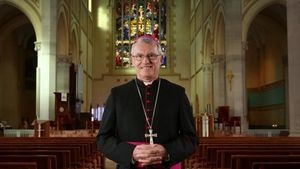
Extract from Kate Campbell, PerthNow Sunday Times, 27 August 2017
“IT’S more than shameful, because shameful is about how embarrassed in a sense you feel, it’s really horror that people’s lives have been so badly affected.” Dealing with the child sexual abuse scandal that has rocked the Catholic Church to its core was Timothy Costelloe’s first priority when he became Archbishop of Perth in 2012. Five-and-a-half years later and amid an ongoing royal commission into institutional responses to child sexual abuse, it’s still the biggest issue facing him and his church. The 63-year-old former schoolteacher used words like “evil”, “shocking”, “confronting”, “shameful” and “painful” to describe how nearly one in 10 priests in the Catholic Perth archdiocese was accused of sexually abusing children between 1950 and 2010 and how “bafflingly inadequate” the response was from church leaders. When asked if he could guarantee his archdiocese was now paedophile-free, Archbishop Costelloe said: “What I can guarantee is that in this archdiocese we’re sending out a message that today this is the most dangerous place for a paedophile to come because we’re on to them, we’re looking for them and we will deal with them.”...(more) Photo: Perth Now, Justin Benson-Cooper
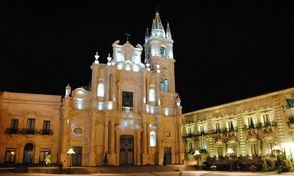
A lay Catholic association in southern Italy, under scrutiny after its leader was arrested on charges of sexually abusing up to six underage girls during a span of 25 years, managed to avoid being subjected to the authority of the local diocese -- raising concerns about Church oversight over such groups.
Extract from Claire Giangravè, Editorial Assistant, Crux, 25 August 2017
ROME - As a controversy in southern Italy surrounding a lay association whose leadership has been accused of sexual abuse continues to unfold, one question that won’t go away is how the group was able to act with basic independence from the diocese in which it’s located over several decades. “Do we obey the Gospel or the bishop?” members of the group asked in an article published in a local newspaper back in January of 1978 - and, by all evidence, they chose their interpretation of the Gospel, spurning attempts at ecclesiastical oversight. As practices in the group, known as the “Catholic Culture and Environment Association” (ACCA), drifted further away from official Church teaching - which would later lead, allegedly, to the sexual abuse of multiple young girls - the local diocese, Acireale on the Italian island of Sicily, seems to have allowed it to drop off its radar....(more) Photo: Crux, Leandro Neumann Ciuffo (Basilica dei SS. Pietro e Paolo) [CC BY 2.0], via Wikimedia Commons.)
Francis’ Church is the complete opposite of a clerical Church. It is a Church at the service of the Gospel, not a Church preoccupied solely with its institutional survival. "La Croix" examines some crucial issues of his papacy.
Extract from Isabelle de Gaulmyn, subscription journal, La Croix International, 24 August 2017
Hope is like a sail,” Pope Francis said at his Wednesday General Audience this week, referring to the feast of Pentecost. “It gathers the wind of the Spirit and transforms it into a driving force that either pushes the boat out to sea or back to the shore.” Could this kind of hope enable Pope Francis’ reforms to lead the Church back out to sea? This is the kind of question that keeps recurring in conversation with people in Rome. The reason is that, while Pope Francis’ reforms are clearly visible, people are wondering how much longer they will last. Or even more directly, they are asking whether the reforms will survive the death of a pope who is already eighty and who has not spared himself physically. The opposite of a “creative minority” One person close to the pope uses the image of a ship. The Church is like a bark that is stuck in the sand and cannot move forward, he says. It seems doomed to remain an immovable structure, ensconced in a centuries long tradition...(source)
Extract from Inés San Martín, Vatican Respondent, Crux, 24 August 2017
Although acknowledging that more than fifty years after the Second Vatican Council there are still tensions and unfinished business in terms of implementing its vision for the liturgy, Pope Francis in a session with Italian liturgists on Thursday nevertheless invoked his "magisterial authority" to declare, "The liturgical reform is irreversible." Addressing a group of liturgical experts on Thursday, Pope Francis said that after the teaching of the Second Vatican Council (1962-65) and a long path of experience, “We can affirm with certainty and magisterial authority that the liturgical reform is irreversible.” The declaration came in a speech on Thursday to Italy’s “Center of Liturgical Action,” which sponsors an annual National Liturgical Week. By “liturgical reform,” Pope Francis meant the changes in Catholic rituals and modes of worship which followed from Vatican II, the most immediately visible elements of which included Mass facing the congregation, the use of vernacular languages, and a stronger emphasis on the “full, conscious and active” participation of the people....(more)
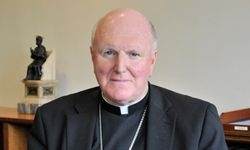
Extract from Media and Communications Office, Melbourne Catholic, Catholic Archdiocese of Melbourne, 24 August 2017
Dear Brothers and Sisters in Christ,
We Catholics in Australia love our nation. Indeed, so much of what is cherished as good in our society is, in fact, the fruit of Christian culture. So, we want our ‘story’ to continue to be heard in all the great debates about the foundations of our society. Our voice is not the only voice but it is an important one. One such debate currently concerning us all is the issue of same-sex marriage. We have always sought to contribute to our society as good citizens. We strive to act and speak out for the common good especially for the poorest and suffering among us. We seek to cherish the dignity of the human person and support all in need: especially families, our indigenous brothers and sisters, migrants, refugees and all who need the compassion and mercy of Christ. We pledge ourselves to continue to do everything we can to contribute to the common good of all Australians. As Catholics, we want to build up and strengthen our great diverse multicultural community here in Australia. Our point in relation to the current debate about same-sex marriage is simple. We make it in good faith according to the demands of our consciences. The Catholic Church, along with other faith traditions, teaches that marriage is a natural institution established by God to be a permanent union between one man and one woman, intended towards the formation of a family in which children are born and nurtured. Any legislation that changes this definition of marriage recognised by all the major cultures of the world demands careful consideration by all Australians. It is vital that we Catholics vote, so that our viewpoint can be heard on this vital public issue. Its outcome will affect our society and families profoundly in the future. We understand that ours is not the only viewpoint in our diverse society. Many do not agree with it. Many people see this as an issue about ensuring equality for every and all relationships. Yes, human rights are important. But so are human responsibilities. We are responsible for the impact of our decisions on future generations. Therefore, we ask all to consider the profound implications of possible legislation that will embed this desire for equality of relationships in our laws. This debate on same-sex marriage raises profound questions about who we are. Fundamental issues are at stake. Why do humans exist as male and female? Is that distinction simply marginal? Is it simply a social construct? Do our children also have rights? We are all children of a male and a female. Should not this be a central consideration in our decisions about the way children should be ideally nurtured and educated in our society. We understand that these are complex issues. But certainly, no legislation should be enacted without a deep public conversation in which we all engage about such issues that goes beyond slogans and soundbites.....(more) (photo: CAM)
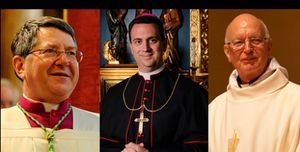
Extract from CathNews, Cathilic Leader, 24 August 2017
The leaders of the three communities established for former Anglicans who sought communion with the Catholic Church, will meet in Australia next week, The Catholic Leader reports. Monsignor Keith Newton, of the Ordinariate in the United Kingdom, Bishop Steven Lopes, of the Ordinariate in the United States, and Australia’s Ordinary Monsignor Harry Entwistle will meet in Brisbane for their first gathering in Australia. A representative from the Holy See will also attend the meeting, which coincides with the fifth anniversary of the Australian community, the Ordinariate of Our Lady of the Southern Cross, which was formed on June 15, 2012. In 2009, Pope Benedict XVI responded to a request from Anglicans asking to be united with the Holy See by promulgating the apostolic constitution titled Anglicanorum Coetibus, which allowed for the creation of the ordinariates. Ordinariates, which function similarly to dioceses, are allowed to maintain traditions of the Anglican Communion, including liturgy, and spiritual and pastoral traditions, and use their own form of the Roman Rite approved by the Holy See called “Divine Worship”, which draws from Anglican sources....(more)
Extract from PHIL O’DONNELL, Pearls and irritations, John Menadue Blog, 24 August 2017
Threats by Catholic bishops to dismiss employees who marry same sex-partners reveal not only a lack of compassion, but also a deep gulf between the authoritarian and conservative concerns of the church hierarchy and the pastoral and justice concerns of many of its priests, religious and parishioners. The recent veiled threats to Church employees by a couple of bishops heightens the rift between the hierarchy and the Catholic community and risks further alienating not only Catholics but our society of “men and women of good will”. Here we go, again, on the hierarchy’s obsessive morality/authority focus on anything connected to sex. And the sad thing is this “marriage equality” issue is not about sex, but justice. I often liken the Catholic Church to “A Tale of Two Cities” – the compassionate pastors in one camp and the authoritarian clerics in the other. In the 60’s and 70’s, in the wake of the Second Vatican Council, the compassionate pastors were more dominant, and since John Paul 2 the authoritarian clerics have regained control. It is my experience that the pastors are inclined more to service and the clerics to power, the pastors to inclusion and the clerics to exclusion, the pastors to acceptance and the clerics to authority, the pastors to social justice and the clerics to Canon Law. There is so much hope in our Pope who is clearly a pastor who has identified “clericalism” as a major problem of our Church. But what can this man do when his next level management team, that he has inherited, are predominantly clerics?....(more)
.jpg)
Extract from Edmund Rice Centre, 23 August 2017
....One of the underpinning foundational principles of Australian society and democracy is the separation of Church and State. This is the fundamental point that must not be forgotten in the current debate. Faith-based teachings about marriage and people’s rights to hold beliefs based on these teachings should be respected. However, when it comes to civil laws, we believe there is no place for discrimination. Discrimination against LGBTQI people can only serve to cause them and their families’ pain and suffering. There is nothing wrong with a mature, respectful and informed discussion about this issue. However, we are disappointed that a vocal group of political and community leaders are using false, straw man and in many instances, offensive arguments to campaign against change.....(more).
Papal abuse commission considers restructuring, survivors may lose direct role
Extract from Joshua J. McElwee, National Catholic Reporter, 23 August 2017
Vatican: Pope
Francis' commission on clergy sexual abuse is considering whether to
restructure itself so that it no longer includes the direct
participation of abuse survivors. It is evaluating the possibility of
creating instead a separate advisory panel of individuals who have been
abused by clergy. A member of the
Pontifical Commission for the Protection of Minors revealed the group's
consideration of the idea in an NCR interview Aug. 14, saying that one
of the commission's work groups has been tasked with weighing the pros
and cons of such a change. The commission
appears likely to discuss the possible restructuring at its next
plenary meeting in Rome in mid-September, when the original three-year
terms of its members are set to expire. "I think that may be a more
productive [way] of ensuring the voice of survivors in the work of the
commission," Krysten Winter-Green, the commission member, said of the
potential change. "I do not know that it's critical that a survivor
needs to be actually on the commission." "No
decision has been made about this," she stressed, adding: "I think the
voice of survivors needs to be heard by this commission. They need to
have input into every facet of the operation. How that is accomplished
remains to be seen, but it will be accomplished." Consideration
of a change in structure for the papal commission comes as the group
has in recent months faced public questioning of its effectiveness in
stopping future abuse of children and vulnerable people in the Catholic
Church. The group now appears to be in the midst of a significant phase
of transition....(more)
Marriage equality – some thoughts for the perplexed.
Extract from Paul Collins, Pearls and irritations, John Menadue website, 22 August 2017
Throughout
human history all types of arrangements have evolved to nurture
children, of which a common form is a reasonably stable relationship
between woman and man. Whether or not this was seen as marriage varied
widely. So, use of the term “traditional marriage” is a misnomer. What
the Catholic hierarchy is presenting as “traditional” is really a
romantic, bourgeois understanding of marriage. Over
the last five years, the Australian Catholic Church has experienced its
worst crisis in its 200-year history. The catastrophic fall-out from
the evidence presented at the Royal Commission into Institutional Child
Abuse, the charging of “Australia’s most senior Catholic” with historic
offenses, the 2.6% drop in the number of Australian Catholics between
the 2011 and 2016 Census, the collapse in the number of younger people
adhering to or practising Catholicism (among Catholics aged 25 to 34
only 5.4% attend Mass) and the continuing decline of general Mass
attendance (it is now down to between 8% to 10%), is all evidence of a
profound malaise effecting Catholicism. The
church’s proclamation of Christ’s Gospel has taken a series of body
blows and Catholic moral authority is in tatters. Have we heard a
word from our bishops concerning any of these issues? Certainly, I
haven’t, and I listen pretty carefully. Australian Catholics have been
totally bereft of leadership on these fundamental moral, spiritual and
belief issues. That the church’s witness
to Christ has been profoundly compromised seems not to trouble the
bishops, at least if you take their public statements into account.
Yes, to give them their due, they have been reasonably good on refugees
and human trafficking, but beyond that they seemingly have nothing to
say...(more)
Archbishops out of step with Catholic community and the Pope
Extract from Terry Laidler, The Age, 21 August 2017
Archbishop Denis Hart of Melbourne and Archbishop Timothy Costelloe of Perth are at least consistent. For many years, because of their beliefs and their actions in getting parliamentarians to give discrimination exemptions to religions, Catholic institutions have operated on a de facto "don't ask/don't tell" policy in regard to the employment of LGBTI people. Insecurity and apprehension have festered under this veil of secrecy, as they had done for military personnel and others before them. Powerful moment for this politician. A Liberal MP has challenged Christian MPs to devote as much time and energy to getting refugees off Manus Island and Nauru than they do to opposing same sex marriage. But the archbishops' recent warning that if gay marriage is legalised they will fire teachers, nurses and other employees of the Church should they marry their same-sex partner will have sent new chills down the spines of many good people; perhaps they were intended to.....(more)

Extract from CathNews, The Weekend Australian, 21 august 2017
Although deeply shaken, the Church in Australia will not fall, writes Greg Craven in The Weekend Australian. Have things ever seemed worse for the Catholic Church in Australia? If it were a boxer, it would look tangled in the ropes, sliding towards the canvas and spitting blood. The past four years have been horrendous. Endless, horrifying accounts of historical child abuse. A royal commission relentlessly critiquing failures of bishops and processes. The media baying for yet more blood. Cardinal George Pell charged with abuse offences. The Cardinal has the full presumption of innocence, but the communal trauma is palpable. And now, a report from the commission eviscerating the Catholic sacrament of confession. How much worse can this get? The entire spectacle has been relished by journalists, activists and downright bigots praying fervently to a non-existent God for the implosion of the Church. It would not be fair to say such critics have no interest in child abuse. No one can stomach the victimisation of children, by Catholics or others. But to inveterate enemies of the Church, the appalling reality of the scandal is incidental. They have battled Catholicism bitterly for decades on issues such as abortion, euthanasia and same-sex marriage. This is their opportunity to kick the Church hard when it is down. In normal circumstances, you could make these points without tarring and feathering. But these are not normal times. Despite assurances, the Royal Commission into Institutional Responses to Child Sexual Abuse overwhelmingly has conducted itself, and has been viewed, as an inquiry into Catholic child abuse. Of course, there are the hobby atheists. Then there are various “progressive” Catholics, who see the situation as an opportunity to impose their own swinging view of Catholicism. There are even deeply traditional Catholics who take a gloomy pleasure in the “end days”: a bit like Evelyn Waugh’s fantasy to be the last altar boy at the last mass of the last pope. Oddly enough, all these zealots are doomed to disappointment. The Church in Australia is deeply shaken but will not fall.....(more) Photo: CathNews
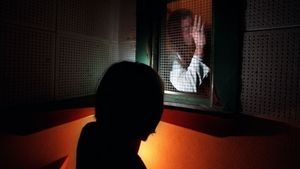
The issue isn't the sanctity of the confessional, it's about church, state and power struggles
Extract from Joanne McCarthy, The Canberra Times, 20 August 2017
In October 1995, a Hunter Catholic priest took down a short statement from a woman who had been sexually abused by a priest from when she was eight, once while he was hearing her confession. The child-sex-offender priest was Denis McAlinden, an Irish cleric sent to Australia at the age of 26. The sanctity of the seal of the confessional has caused great conflict. Photo: Michael Rayner The woman told of repeated sexual abuse over three or four years. I've spoken with her many times. I've spoken with two other McAlinden victims who were also sexually assaulted by him while in the confessional. If you go to the Vatican website and find the Code of Canon Law it includes Canon 1387. It says that a priest who "under the pretext of confession solicits a penitent to sin against the sixth commandment" – thou shalt not commit adultery – "is to be punished ... by suspension, prohibitions and privations". In graver cases "he is to be dismissed from the clerical state". It's accepted by some theologians that the sixth commandment covers the whole of human sexuality, and not just the strict interpretation of adultery. In other words, sexually abusing a child in the confessional could invoke Canon 1387....(more) Image: The Canberra Times.
Craven dismissal
Extract from Ynot, Catholica Main Forum, 20 August 2017, 20 August 2017
........Greg
Craven says that a law requiring a priest to report to police anyone
who confessed sexually abusing a child would (a) make it impossible to
live fully as a catholic, and (b) make a priest who declares he would
rather go to prison guilty of the offence of incitement. Both
positions seem to me manifestly false. To the first, the proposed law
only affects one who confesses child sexual abuse. For the rest the
secrecy of confession stands. The motive for making this one exception
is not simply because child abuse is a 'crime' but because the safety of
children is of such particular importance and pedophilia is a disease
that inflicts such dreadful damage on its victims. Society is trying to
become proactive for the safety of children, leaving no stone unturned
in its search for effective measures. The proposal does not affect
the secrecy of the confessional in practical terms. The claim that this
secrecy is either absolute and universal or it doesn't exist at all is a
smoke screen. People using the sacrament of confession in the usual way
would have no reason to think the priest would not be bound to secrecy
as always. As to the second, that to express disagreement with the
law is to be automatically guilty of incitement: others will be able to
explain this more surely than I, but it seems to me that journalists in
particular may publicly declare that they will never divulge their
source no matter what - and merely declaring their position does not
amount to the crime of incitement. In fact, don't we all protest against
some laws from time to time, declaring them to be bad laws? In
short, if this proposal is taken up and written into law, "that a priest
hearing in confession that this person has sexually abused a child is
bound to report this to the police", I would still presume that the
secrecy of the confessional would be respected by the priest in every
other instance. Hence it would not affect my religious practice in the
least.....(more)
Extract from Nick O'Malley, Sydney Morning Herald, 18 August 2017
Father Michael McArdle was reportedly so distressed by his acts of child sexual abuse in Queensland that he would often seek the succour of the confessional. Over a 25-year period, before he was convicted in 2002, he confessed to sexually assaulting children an estimated 1500 times to 30 different priests. In keeping with Catholic tradition in Australia, the priests did not report his crimes to authorities, but moved him on to different parishes, to greener pastures. McArdle's case resonates this week because on Monday the royal commission into child sex abuse released 85 recommendations on improvements to the criminal justice system. Among them was the proposal that the seal of the religious confessional be broken and that clergy who fail to report child abuse revealed in confession face criminal prosecution, just as anyone else in Australia would. Since the Catholic Church is the only major religion in Australia that still insists its canon law be held above secular law in this regard, this was rightly seen as a challenge, and the Catholic Church, defensive of its significant privileges, responded. On Tuesday Melbourne's archbishop, Denis Hart, told the ABC: "I believe that this is an absolutely sacrosanct communication of a higher order which priests by nature respect, they don't ever want to do anything that would hurt children," he said. Writing for Fairfax Media this week, Father Frank Brennan said he would go to jail before abiding by such a law and sought to explain his reasoning. "Common sense tells me that a sex abuser would be even less likely to present for confession if he knew that the confessional seal did not apply," he wrote. "If the seal of the confessional were maintained, there is a chance, just a chance, that a child sex abuser might be convinced by the priest to turn himself in. Take away the seal, and that ever so slim chance will be snuffed out." Brennan's is a reasonable argument and once upon a time it might even have been a satisfactory one. Not now, not after we have learnt from the same royal commission that 7 per cent of priests working between 1950 and 2009 were accused of child abuse. Not after we learnt of the 4444 alleged cases of sexual abuse they stand accused of. Not after we learnt of the extraordinary energy the church dedicated to protecting itself and its priests from justice. In this environment the church's case fails on practical and moral grounds....(more)
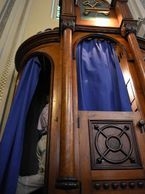
Extract from Opinion Piece, Kieran Tapsell, National Catholic Reporter, 18 August 2017
The Australian Royal Commission into Institutional Responses to Child Sexual Abuse has just released its Criminal Justice Report in which it deals with many matters relating to the way child sexual abuse within institutions is handled by the Australian criminal justice system. In the course of that report, it recommends mandatory reporting of all suspected child sexual abuse within institutions and the creation of new offences of failing to take proper care to prevent such abuse. One recommendation that understandably created some media interest is that there should be no exemption to the reporting requirements for information provided in confession. The commission’s report produces convincing evidence, not only in Australia, but also overseas, that priest sex abusers used confession as a means of assuaging their guilt. It made it easier for them to repeat their crimes because confession was always available. Priest sex abusers used confession to assuage their guilt, making it easier for them to repeat their crimes. In a response to the report, Jesuit Fr. Frank Brennan stated that a civil law requirement for priests to break the seal of confession was unlikely to lead to better protection for children because abusers would not confess such matters if they knew they had to be reported. Brennan said that he would disobey any such law and accept the consequences. Archbishop Denis Hart, president of the Australian Catholic Bishops Conference, in his response said that the secret of the confessional is a “fundamental part of the freedom of religion…and it must remain so here in Australia.” In an interview on ABC Radio, Hart said he would go to jail rather than breach the secret. It is surprising that no church representative has mentioned a way in which the church could significantly reduce the risk of breach of the seal by a fairly simple change to canon law based on a problem that has a long history.....(more) Photo: A confessional booth at Old St. Mary's Church in Detroit. NCR, CNS photo/Mike Stechschulte.
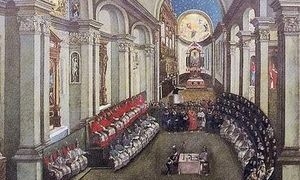
"Whenever Pope Francis has talked about the selection and training of Catholic priests he has given every indication that he knows there are serious problems."
Extract from Robert Mickens, Rome, subscription journal La Croix International, 18 August 2017
It is such a serious problem that, according to one noted Church historian, not even Pope Francis dares to speak about it. It’s the outdated model of Catholic priesthood and, even more significantly, how candidates for the ordained ministry are selected and prepared for service among the People of God. Professor Alberto Melloni of the John XXII Foundation for Religious Sciences (Bologna, Italy) recently pointed out that the archetype of today’s priest dates back to over 400 years ago and the reforms stemming from the Council of Trent (1545-1563). “That remarkable 16th-century invention that shaped the politics, mentality and interior life, as well as the art and theology of the West and its former colonies, did not die out (there are still roughly 420,000 priests in the world)," noted Melloni in a March 22nd article in the Rome-based daily, La Repubblica. "But in the last century, it has been in crisis.” “Over the past ninety years in Italy we have gone from having nearly 15,000 to only 2,700 seminarians,” he pointed out. But the enormous drop in numbers is not the most worrying sign of this outdated model of priesthood and seminary formation. Instead, Melloni says it is the “drop in the intellectual quality” of the men who choose to join the priesthood and the bishops that ordain them. And, furthermore, it is the fact that the current system continues to be a breeding ground of the “vice” the professor correctly identifies as “clericalism". Melloni, the leading voice of the so-called “Bologna School”, argues that the “diminished role and affective negligence” of priests have led to the “exaltation of celibacy, which traps sexuality in a search for sublimation and attracts people to the priesthood who have unresolved (problems) or are even sick”. Pope Francis has said as much on the numerous occasions he has talked about the selection and training of candidates for ordained ministry.....(Source). Photo: La Croix International, The Council of Trent /Wikimedia Commons
Extract from Pearls and iritations, John Mendaue Blog, 18 August 2017
I am disturbed by your identification of your personal views on marriage equality with those of the Catholic Church… The saddest thing is that you have linked Catholicism with some of the most reactionary and unattractive political forces in the entire country.
Dear Anthony, Like many Australian Catholics, I am disturbed by your identification of your personal views on marriage equality with those of the Catholic Church. No one questions your right to hold such views, but many are concerned when you identify them—or allow others, such as journalists—to identify them with the teaching of the Church. You must be aware that, as Archbishop, journalists will take what you say as authoritative and as pitching “the Catholic Church in a heated battle against Labor and key backers of the Yes campaign”, as reported in The Australian on 14/8/17. You may be involved in a “heated debate” with the Labor Party and the “yes” campaign, but most Australian Catholics are not....(more)
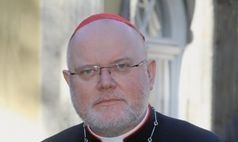
Parish clustering is no answer to priest shortage, says German Cardinal Reinard Marx, a top aide and advisor to Pope Francis.
Extract from Christa Pongratz-Lippitt, subscription journal La Croix International, 17 August 2017
Cardinal Reinhard Marx has announced plans to allow laypeople in his Archdiocese of Munich to lead parishes where there are no priests. In doing so he has strongly rejected the increasingly common option of coping with the dwindling number of ordained ministers by combining or “clustering” parishes. The 63-year-old cardinal is a top aide and advisor to Pope Francis. He recently told the 180 members of Munich’s diocesan council – its most important lay body – that it was important to preserve individual parishes as a way of guaranteeing the Church’s presence locally. Speaking at the council’s plenary assembly on March 18th, the cardinal said the Archdiocese of Munich would introduce a pilot project in the fall with new models of parish leadership. Specifically, he said full-time and voluntary lay personnel would take over parishes....(source) Photo: La Croix International, Wolfgang Roueka, Wikipedia, CC BY-SA 3.0
Extract from Peter Feuerherd, National Catholic Reporter, 17 August 2017
U.S. Emboldened by Pope Francis, church reformers are endorsing a call by the Brazilian bishops for a Year of the Laity, expanded to include conferences and observances around the world from November of this year until November 2018. The meetings will focus on why "the people of God need to be treated equally in the church" and "the people taking the Gospel out into the world," Rene Reid, director of Catholic Church Reform International, told NCR. Groups lining up in support of the Year of the Laity include Catholic Church Reform International as well as Call to Action, she said. Participants from those groups will be urging an increased role for the laity in the church. They will promote lay participation in the selection of bishops, an end to mandatory celibacy for clergy and openness to allowing the Eucharist for divorced and remarried Catholics as well as the LGBTQ community. Reid said the impetus for the movement comes from Pope Francis. "He wants the people of God to step up and take a leadership role, and we are," she said....(more)
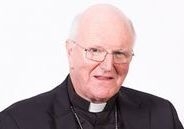
Extract from CathNews, The Guardian, 16 August 2017
Melbourne Archbishop Denis Hart said he would risk going to jail rather than report allegations of child sexual abuse raised during confession, The Guardian reports. The Archbishop said the sacredness of communication with God during confession should be above the law. He was responding to a report from the child sex abuse royal commission calling for reforms that, if adopted by governments, would see failure to report child sex abuse in institutions become a criminal offence, extending to information given in religious confessions. Speaking to ABC Radio 774 in Melbourne, Archbishop Hart said he stood by comments he made in 2011 that priests would rather be jailed than violate the sacramental seal. I believe [confession] is an absolute sacrosanct communication of a higher order that priests by nature respect,” he said yesterday. “We are admitting a communication with God is of a higher order,” he said. “It is a sacred trust. It’s something those who are not Catholics find hard to understand but we believe it is most, most sacred and it’s very much part of us.” He said much of the abuse that occurred was historical and awareness of abuse was greater now, and he believed it was unlikely “anything would ever happen” today. But if someone were to confess they had been sexually abused or they knew of someone who had been, Archbishop Hart said it would be adequate to encourage them to tell someone else outside of confession. For example, he would encourage a child to tell a teacher, who are already mandated under law to report....(more) Photo: CathNews
Extracts from Sydney Morning Herald, 15 August 2017,
The Royal Commission into Institutional Responses to Child Sexual Abuse has published a 2000-page three volume Criminal Justice Report. One of its recommendations is that the states and territories "create a criminal offence of failure to report targeted at child sexual abuse in an institutional context". If such an offence were created, those of us who work in an institution which cares for children would be required to report to police if we knew, suspected or should have suspected that another adult working in the institution was sexually abusing or had sexually abused a child. Failure to report could result in a criminal conviction. The commission notes: "We acknowledge that if this recommendation is implemented then clergy hearing confession may have to decide between complying with the civil law obligation to report and complying with a duty in their role as a confessor." Being a priest and a lawyer, I welcome the recommendation of this new criminal offence in most instances, but I will continue to comply with my duty as a confessor. The public, and not just my fellow Catholics, are entitled to know why.......Those who advocate the abolition of the seal of the confessional have a mistaken understanding of how confession is actually practised in the Catholic Church. If the law is changed, abolishing the seal of the confessional, I will conscientiously refuse to comply with the law because in good faith I will be able to claim that it is a bad law which does nothing to protect children and which may take away the one possibility that a sex offender will repent and turn himself in, making the world that little bit safer for vulnerable children. I will console myself with the thought that if police learn of my "wrongdoing", it will be because the confessing abuser has voluntarily turned himself in.....(more). Father Frank Brennan SJ is chief executive of Catholic Social Services Australia.
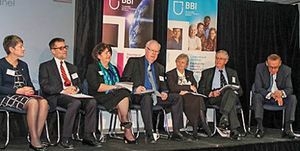
Extract from CathNews,. BBI-TAITE, 11 August 2017
Communities across Australia and as far away as Peru, Mexico and Japan yesterday engaged in an interactive discussion about the unique leadership style of Pope Francis, according to host BBI-The Australian Institute of Theological Education. Held in partnership with the Australian Catholic Bishops Conference, BBI's 13th National eConference brought together prominent international and national speakers including the former NSW premier and foreign minister Bob Carr, the Editor at Large at The Australian, Paul Kelly and the Chairman of the Australian Institute of Company Directors, Elizabeth Proust, to reflect on the theme, 'Gospel leadership in times of chaos: the hope of Pope Francis'. Vatican II expert Massimo Faggioli from the US, President of Catholic Religious Australia, Sr Ruth Durick OSU and the Congregational Leader of the Sisters of the Good Samaritan, Sr Clare Condon SGS were also on the speakers list. Professor Faggioli was the first speaker, reflecting upon the transformative effect Pope Francis’ leadership has had on the Church over recent years. “As the first non-European Pope, Pope Francis has promoted a more inclusive Church for the modern world and one which is far less Eurocentric”, he said. “He has also helped to re-contextualise the Church, so that it reads the signs of the times and stands firmly with the marginalised, including refugees”, he added....(more).
Extract from CathNews, CNS, 10 August 2017
God did not choose perfect people to form his Church, but rather sinners who have experienced his love and forgiveness, Pope Francis said, CNS reports. The Gospel of Luke's account of Jesus forgiving the sinful woman shows how his actions went against the general mentality of his time, a way of thinking that saw a "clear separation" between the pure and impure, the Pope said yesterday during his weekly general audience. "There were some scribes, those who believed they were perfect," Pope Francis said. "And I think about so many Catholics who think they are perfect and scorn others. This is sad." Continuing his series of audience talks about Christian hope, the Pontiff reflected on Jesus' "scandalous gesture" of forgiving the sinful woman. The woman, he said, was one of many poor women who were visited secretly even by those who denounced them as sinful. Although Jesus' love toward the sick and the marginalised "baffles his contemporaries," it reveals God's heart as the place where suffering men and women can find love, compassion and healing, Francis said. "How many people continue today in a wayward life because they find no one willing to look at them in a different way, with the eyes -- or better yet -- with the heart of God, meaning with hope," he said. But "Jesus sees the possibility of a resurrection even in those who have made so many wrong choices."....(more)

Bishops Commission for the Plenary Council Announces Appointment of Plenary Council Facilitator and Facilitation Team
Extract from Media blog, Australian Catholic Bishops Conference, 5:30pm Friday 4 August 2017
The
Bishops Commission for the Plenary Council today announced the
appointment of Ms Lana Turvey-Collins as the Plenary Council
Facilitator. She will work in partnership with members of the Formation
Team of Catholic Mission, forming a Plenary Council Facilitation Team
which will comprise Fr Noel Connolly SSC and Mr Peter Gates, Deputy
National Director of Catholic Mission. Ms
Turvey-Collins and the Facilitation Team are humbled by the
opportunity. “We look forward to collaborating with leaders and their
teams across the diverse ministries and works of the Catholic Church and
all people in Catholic communities across Australia. Over the coming
years, we hope to support local Churches to lead and facilitate
authentic and open dialogue about how we are, and how we can be, a
community of missionary disciples in Australia. Pope Francis’ writings,
teaching and witness are inspiration for us, as he reminds us what
Jesus in today’s society looks like.” Plenary
Council 2020 and the process of consultation and dialogue is an
unprecedented opportunity for the Church in Australia. It’s an
opportunity to engage with all Catholics in Australia – those who lead,
those who work in Catholic organisations, those who may feel they don’t
have a voice, those who feel they are outside the Church and those who
show up every Sunday for Mass – a process inclusive of all. It’s about
becoming the kind of Australian Catholic community which Pope Francis is
calling us to be: “a community of communities…” (EG§28)....(more).

The German Bishops Conference has welcomed the fact that its target of 40% of women in posts as directors of pastoral work has been achieved.
Extract from Anne-Bénédicte Hoffner, subscription journal La Croix International, 3 August 2017
The German Bishops Conference has welcomed the fact that its target of 40% of women in posts as directors of pastoral work has been achieved.
Fifteen years ago, Daniela Engelhard became the first woman to take overall responsibility for pastoral work in the Diocese of Osnabrück in north-west Germany. Today there are ten women holding similar positions in different German dioceses. The German Bishops Conference (DBK) welcomed the fact that its target of 40% of women in posts as directors of pastoral work has been achieved, it said in a statement published on July 31. At the moment the 27 German dioceses now have a woman as the head of their pastoral work departments. The women are responsible for “multiple fields of pastoral work".....(source) Photo: La Croix International, /Klaus Nowottnick/picture-alliance/dpa/AP
Extract from CathNews, 3 August 2017
Australians must help end modern slavery in its own backyard, actress Rachel Griffiths has told a parliamentary inquiry, 9news.com.au reports. The public hearing for the inquiry into Establishing a Modern Slavery Act in Australia was held yesterday. The inquiry follows from the UK's 2015 Modern Slavery Act, and the findings of the Joint Standing Committee on Foreign Affairs, Defence and Trade's report into modern human trafficking. Ms Griffiths told the hearing that Australians needed to stamp out "slavery-like practices" undertaken by businesses and organisations in Australia. "It's astounding that so many still believe that slavery is a horror of the past," she said. "It's the second biggest illicit trade, behind drugs, on our planet (and) it's happening mostly in our region."....(more)
Pope Francis has accepted the resignation of the Grand Master of the Order of Malta with whom he had been in conflict for more than a month. This marks a new chapter in the opposition to the Argentine pontiff.
Extract from Nicolas Senèze, Rome, subscription journal La Croix International, 3 August 2017
By obtaining the resignation on Wednesday of the Grand Master of the Sovereign Order of Malta, Pope Francis has made an important point to those who call into question the deep reforms he is undertaking in the Vatican and the Church. Not that Brother Matthew Festing is a personal enemy of the pope, but the conflict between Francis and the Knights of Malta represents the sum of all the opposition he is encountering in his will to reform. The chronology of events is perplexing. In early December, the Grand Master of the Order demanded the resignation of Grand Chancellor Albrecht von Boeselager, who is accused of being "a liberal Catholic, unfaithful to the teachings of the Church".....(source)

Massimo Faggioli discusses the debate on the future of Catholicism.
Extract from Massimo Faggioli, United States, subscription journal La Croix International, 1 August 2017
One of the debates running through western Catholicism today concerns the role and position of the Church. The Catholic Church has always been the ultimate insider of the social, political and cultural system of the Western hemisphere. But today some Catholics are tempted to solve the Church’s internal diversities and its struggle with secularization by leaving behind this “insider” status. These people want a smaller Church, an outsider postured against the political, social and cultural dispensation of the western world. This is particularly visible in the United States where the presidential candidacy of Donald Trump and the intellectual and political crisis of the religious right is a subset of the crisis of the clerical and intellectual leadership of the institutional Catholic Church.....(source) Photo: La Croix International, St Mary's Church, Lead / Andrew Whale / Wikipedia

Preparing to be a synodal church in
Australia
Extract
from Fr Noel Connoly, St
Columbans eNews. 18 July 2017. Published
originally as an article in The Francis
Effect III: Mission of Love and Mercy. Reprinted with permission
from the author, the publisher, Catholic Mission &
Catholic Religious Australia, and St Columbans eNews. 31 July
2017
The Australian church is about to enter an exciting,
challenging and hopefully rewarding three-year process of
consultation. Last August Archbishop Mark
Coleridge of Brisbane announced that the Australian Bishops will
convoke a Plenary Council at which “everything is potentially on
the radar screen”, and at which a wide representation of the
church, lay and clerical, female and male will be present. From
now till the Plenary Council there will be a wide consultation
of the entire Australian Church so that all voices can be
heard. This is going to be a
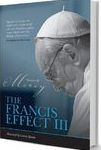
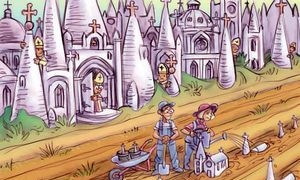
Extract from Kevin Liston*, Eureka Street, 30 July 2017
There are many reform movements active in the Catholic Church. Most seem to focus on changing the structures and systems of the church, on reshaping doctrinal positions and updating teachings. Organisational reform is necessary and long overdue but there is also need for a complementary movement among ordinary Catholics. In recent decades, the sense of ownership that people have over their own lives has undergone a significant shift. Personal authenticity and autonomy are the order of the day. More people feel they each have unique ways of being themselves and seek forms of expression that frequently do not fit traditional moulds. There is a historically unique process of individuation going on. Finding one’s identity and understanding one’s personal experience are core concerns. More often now we understand we have a role in and responsibility for what we are to be. The structures of communities are quite different and more varied and complex. The relevance of community has not disappeared but it has taken a different shape. In modern Australia, community is often taken for granted and accepted as background, evidenced for instance in social media. Parishes are important local realisations of the church but there are many Catholics who do not feel comfortable or at home with present structures and ways of operating. I regard myself as a faithful Catholic, steeped in the tradition, theologically and spiritually literate, seeking a relevant, supportive community of like-minded people. However, I do not find the weekend liturgies in our parish churches to be reflective or expressive of my understanding of Christianity; they just do not speak to my world....(more) Image: Eureka Street 3765 Kevin Liston recently completed a Master of Theological Studies at ACU after a long career working with refugees and migrants.
“The idea that the Church, the Christian faith, and even the Bible message would be harmed if one openly discusses the problems and calls a spade a spade has become too deeply rooted in Catholic circles,” Fr Wolfgang Beck said.
Extract from Christa Pongratz-Lippitt,subsxription al journal La Croix International, 29 July 2017
A young Jesuit theologian has called on the wider public to force Germany’s bishops into investigating Church structures that foment clerical power and lack of transparency, elements he said are directly linked to abuse of minors. “Please help to keep up the pressure,” Fr Wolfgang Beck said on July 23rd while making one of his frequent appearances on the widely viewed “Word for Sunday” program on German state television’s flagship channel. The 43-year-old pastoral theologian spoke about the shame he felt after the reading the recently published Regensburg Domspatzen report, which revealed that more than 500 choir boys had been physically and sexually abused.....(source)
In some ways, Francis seems to be deliberately hastening its inevitable collapse by implementing the principles and methods outlined in "Evangelii gaudium" (EG), his vision and blueprint for Church renewal and reform.
Extract from Robert Mickens, Rome, subscription journal La Croix International, 28 July 2017
Some five years ago I was invited to speak at the City Club of Cleveland, Ohio. “Since 1912, the City Club has served as one of the (United States’) oldest, non-partisan and continuously operating free speech forums,” says the organization’s website. The topic of my talk was the Vatican implosion and, as a result, the long and gradual collapse of the Catholic Church’s monarchical structure of governance and ministry....(source)

Extract from CathNews, The eRecord, Archdiocese of Perth,28 July 2017
A new post-abortion grief counselling service has commenced in the Archdiocese of Perth, The eRecord reports. Initiated by Perth Archbishop Timothy Costelloe SDB, the service aims to provide support and healing without judgement to those who have experienced an abortion, including men. Archdiocesan Research and Project Development Manager Tony Giglia, said the new service will be provided by the Fullness of Life Centre, Pregnancy Assistance, Centrecare Inc and Abortion Grief Australia, who have all signed a memorandum of understanding with the Archdiocese. “The services provided will be free of charge and those seeking the counselling service can be assured they are getting confidential quality support,” said Mr Giglia. “It is about following in the footsteps of the Good Shepherd, so that we can further provide a Christ-centred Church that understands the experiences of the people and where they are at in their life today,” he said....(more) Photo: CathNews, eRecord pixabay
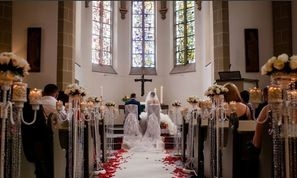
The Vatican authorized Sr Pierrette Thiffault of the Sisters of Providence to officiate at a wedding in a rural diocese in western Quebec. And in spite of her initial apprehensions, the ceremony went well. Extract from Mélinée Le Priol, Canada, subscription journal La Croix International, 27 July 2017
Cindy and David had their religious wedding on Saturday, July 22, celebrated by… a woman. The exceptional ceremony took place in a Catholic church at Lorrainville, 650 km west of Montreal in Canada. In the rural diocese of Rouyn-Norand in the Abitibi-Témiscamingue region, the lack of priests is such that the bishop called on the assistance of Sr Pierrette Thiffault of the Sisters of Providence....(source)
Photo: La Croix International, Lelik83/stock.adobe.com
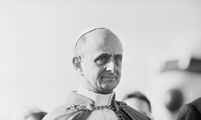
Extract from Cindy Wooden, Catholic Herald UK, 27 July 2017
Four theologians specialising in marriage and family life are studying Vatican archival material with a view of telling the whole story of how and why Blessed Paul VI wrote his encyclical Humanae Vitae on married love. Mgr Gilfredo Marengo, leader of the group and a professor of theological anthropology at Rome’s Pontifical John Paul II Institute for Studies on Marriage and Family, spoke to Vatican Radio about the study on July 25, the 49th anniversary of the encyclical’s publication. Some bloggers, writing in the spring about the study group, described it as an initiative of Pope Francis to change the encyclical’s teaching against the use of artificial contraception. Archbishop Vincenzo Paglia, chancellor of the John Paul II Institute, categorically denied the bloggers’ reports. In reply to an email, Mgr Marengo told Catholic News Service that the study “is a work of historical-critical investigation without any aim other than reconstructing as well as possible the whole process of composing the encyclical”. “Anyone who imagined any other aim should have simply done their work and verified their sources,” he said....(more) Photo: Blessed Pope Paul VI (Photo: Getty)
Extract from Mark Brolly, The Tablet, 26 July 2017
Magistrate Duncan Reynolds has refused the media's request for access to the court file, including charge sheets. Cardinal Pell to plead not guilty to historic sexual abuse charges. Cardinal George Pell has made his first appearance in a Melbourne court today (26 July) to face multiple charges of sexual abuse laid by Victoria Police last month. But the six-minute hearing ended without the precise charges being revealed. The 76-year-old Cardinal, who last month was granted leave by Pope Francis from his post as Prefect of the Secretariat for the Economy, was escorted into the Melbourne Magistrates' Court by police amid a large media pack for what was described as a filing hearing. Some journalists and camera crews had arrived at the court more than four hours before Cardinal Pell's arrival at 9am on Wednesday (Melbourne time). He said nothing during the hearing or outside of the court. Leading Melbourne barrister Mr Robert Richter QC told the court: "For the avoidance of doubt and because of the interest, might I indicate that Cardinal Pell pleads not guilty to all charges and will maintain his presumed innocence that he has." Prosecutor Andrew Tinney, SC (Senior Counsel), warned the media that all reports should be limited to "fair and accurate reports of the proceedings"....(more)
Extract from Christa Pongratz-Lippitt, The Tablet, 26 July 2017
'This is not a matter of individual cases of abuse as Cardinal Müller always insisted when he was Bishop of Regensburg' The Bishop of Regensburg, Rudolf Voderholzer, has asked the hundreds of victims in the Domspatzen choir scandal for forgiveness saying that he is “absolutely shattered” by the findings of the report released last week. Published on 17 July, the report, commissioned by the diocese of Regensburg and compiled by the lawyer Ulrich Weber, stated that 547 boys were abused at the prestigious choir school in Regensburg, Bavaria, between the years 1945 and 1992. Bishop Voderholzer’s response contrasted with that of former prefect of the Congregation for the Doctrine of the Faith, Cardinal Gerhard Muller, who was bishop of Regensburg form 2002 to 2012, who admitted that he “experienced shame for what has happened in the Church” but emphasised “everything that was possible and necessary was done” and refused to apologise....(more)

The Diocese of Essen has launched a major study into the reasons that Catholics are abandoning the Church. “Distancing” and “a lack of attachment” were found to be two primary reasons. Extract from Delphine Nerbollier, Germany, subscription journal La Croix International, 25 July 2017
Altogether 162,000 Germans stopped paying their church taxes in 2016 and thus “left” the ranks of the Catholic Church. Just over 4,000 people did this in the diocese of Essen (West Germany), which has launched a large scale study in an effort to understand the reasons for the departure of these former churchgoers. What does the study consist of?...(source) Photo: Frauenkirch in Munich, Germany, as viewed from the tower of Peter's Church. / David Iliff / Wikipedia / CC BY 2.5
Extract from Bruce Duncan, Pearls and irritations, John Menadue Blog, 21 July 2017
Was Pope Francis aware that the Vatican newspaper was strongly attacking right-wing US Catholics for abandoning Church social teaching by political alliances with very fundamentalist Christian groups? A mid-July article in a Vatican newspaper, Civilta Cattolica, provocatively argued that some right-wing US Catholics have compromised Church social teaching by political alliances with fundamentalist evangelical groups concerned with bioethical issues. The article attacked a fundamentalist interpretation of Scripture which depicted the world as a Manichaean struggle between good and evil, even looking to a ‘final showdown’ in an Armageddon ushering in a ‘new heaven and new earth’. The article deplored demonising of opponents and notions of a ‘holy war’, particularly when Islam is equated with ‘Islamic terrorism’. It claimed such fundamentalist views influenced conservatives such as ‘Steve Bannon, currently chief strategist at the White House and supporter of an apocalyptic geopolitics.’ Bannon is a Catholic and former editor of the right-wing website, Breitbart. Entitled ‘Evangelical Fundamentalism and Catholic Integralism in the USA: a surprising ecumenism’, the article would not have attracted such attention except that it appeared in the Vatican newspaper with the authors its editor-in-chief, Antonio Spadaro SJ, and Marcelo Figueroa, a Presbyterian pastor and editor-in chief of the Argentinian edition of L’Osservatore Romano. Figueroa is a close friend of Pope Francis who chose him for this position, and Spadaro is also well known to the Pope.....(More)
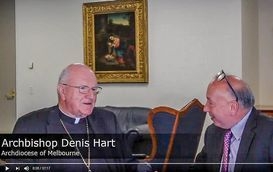
Archbishop Denis Hart celebrates his Golden Jubilee
Edited Extract from Media and Communications Office, Melbourne Catholic, CAM, Friday 21 July 2017
This weekend Archbishop Denis Hart celebrates his Golden Jubilee, marking the 50th anniversary of his priestly ordination. On Saturday morning, he will celebrate a special Mass of Thanksgiving at St Patrick’s Cathedral. In the days leading up to his Jubilee the Archbishop sat down with Shane Healy, archdiocesan Director of Media and Communications to discuss the journey of his life and faith in anticipation of his ordination anniversary. Highlights of the interview include Archbishop Hart describing the challenges and joys of his life as a priest, chaplain, bishop, vicar general, and archbishop as well as events that fostered his faith....Read more and access the video interview (37 minutes).

Extract from CathNews, The Guardian, 20 July 2017
An archaeological discovery in the Northern Territory has extended the known length of time Aboriginal people have inhabited the continent to at least 65,000 years, The Guardian reports. The findings on about 11,000 artefacts from Kakadu National Park, published today in the journal Nature, prove Indigenous people have been in Australia for longer than the much-contested estimates of between 47,000 and 60,000 years, the researchers said. Some of the artefacts were potentially as old as 80,000 years. The new research upends decades old estimates about the human colonisation of the continent, their interaction with megafauna, and the dispersal of modern humans from Africa and across south Asia. “People got here much earlier than we thought, which means of course they must also have left Africa much earlier to have travelled on their long journey through Asia and Southeast Asia to Australia,” said the lead author, Chris Clarkson, from the University of Queensland. “It also means the time of overlap with the megafauna, for instance, is much longer than originally thought – maybe as much as 20,000 or 25,000 years. It puts to rest the idea that Aboriginal people wiped out the megafauna very quickly,” Associate Professor Clarkson said. He said the Madjedbebe rock shelter where the artefacts were found – which has been excavated four times since the 1970s – had been controversial in the past but the processes used to date the artefacts meant the team could say “precisely” that the area was occupied 65,000 years ago and “hopefully put the controversy to rest”....(more) Photo: Cathnews, Chris Clarkson/Gundjeihmi Aboriginal Corporation
Extract from CathNews, Otago Daily News, 21 July 2017
New Zealand's most vulnerable children were failed by Church and state, says the head of the NZ National Office for Professional Standards, Otago Daily Times reports. This week, the newspaper has run a series of stories on abuse within state and Church institutions, including within the Australian-based Brothers Hospitallers of St John of God. Bill Kilgallon, of the National Office for Professional Standards, told the newspaper that the Church's New Zealand office, created in 2004 to investigate historic abuse claims, had fielded about 22 complaints a year since 2013. About 20 a year related to "non-recent behaviour against children", either within a church setting or involving clergy within the state care system, he said. "A number of the complaints we're dealing with would be children who were in state care but placed in an establishment run by the Church - Marylands, for example," he said. The complaints of abuse, cruelty and very poor conditions showed the level of care by the state or Church was "very often very poor", he said. And the Church, in particular, "should have achieved better than the state", he believed....(more)
Exttract from Daniele Palmer, The Tablet, 20 July 2017
He 'experienced shame for what has happened in the Church' but emphasises 'everything that was possible and necessary was done'. Müller admits shame but denies responsibility following German Catholic school abuse revelations. After being accused of bearing “clear responsibility” for the mishandling of over 500 abuse cases in a Bavarian choir school, Cardinal Müller admits that he feels “shame” but emphasises that he did all that was possible. Published on Monday (17 July), a report states that 547 boys were abused at a prestigious choir school in Regensburg, Bavaria, between the years 1945 and 1992. In the report, commissioned by the diocese of Regensburg and compiled by the lawyer Ulrich Weber, Cardinal Müller is accused of having mishandled the cases of abuse, despite them being well known. In an interview with the Italian daily Il Corriere della Sera, Cardinal Gerhard Ludwig Müller, bishop of Regensburg form 2002 to 2012 and ex-prefect of the Congregation for the Doctrine of Faith, admits that he “experienced shame for what has happened in the Church” but emphasises “everything that was possible and necessary was done.”....(more)
Extract from Daniele Palmer, The Tablet, 19 July 2017
A report confirms the physical and sexual abuse of over 500 children at a prestigious choir school in Bavaria, Germany. Commissioned by the diocese of Regensburg, a report has been published that states 547 children at the all-male boarding school in the Bavarian town were abused, either physically or sexually, between the years 1945 and 1992. The report also states that all those involved must take responsibility, explicitly mentioning Georg Ratzinger, brother of the Pope emeritus and choir master at the school, and Cardinal Gerhard Ludwig Müller, who was bishop of Regensburg before becoming prefect of the Congregation for the Doctrine of Faith in the Vatican in 2007. Ulrich Weber, the lawyer commissioned by the diocese in 2015, said in a press conference yesterday that for many of the students at the choir school, the period they were there represented “the worst time of their lives, marked by fear, violence and helplessness." The report makes explicit the practices that were in place at the choir school....(more)
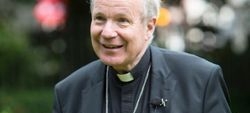
Pope Francis has declared Cardinal Christoph Schönborn of Vienna to be the "authoritative interpreter" of 'Amoris Laetitia,' the papal document on marriage and family. Schönborn spent hours explaining it during a visit to Ireland this week.
Extracts from Austen Ivereigh, Contributing Editor, Crux, 15 July 2017
LIMERICK, Ireland - When Cardinal Christoph Schönborn of Vienna spent Thursday afternoon in the west of Ireland speaking about Amoris Laetitia in two talks and a Q&A - over four hours, in total - it was a fascinating immersion into the deep thinking behind the document, and a chance to be close to one of the key figures at the heart of the contemporary Church. The Irish Church is about to start a year of preparation for the World Meeting of Families (WMOF) in August 2018 at which the pope has asked that families have a chance to reflect on and discuss Amoris. Hence the invitation to the Archbishop of Vienna, the exhortation’s authoritative interpreter, who was tasked by Francis with presenting the document to the media when it was released in April 2016. Among the dozens who turned out at “Mary I,” as Limerick’s Mary Immaculate College is affectionately known, was the WMOF’s secretary-general, Father Timothy Bartlett, as well as bishops, pastoral workers, and Religious working with families across Ireland. Schönborn revealed that when he met the Pope shortly after the presentation of Amoris, Francis thanked him, and asked him if the document was orthodox. “I said, ‘Holy Father, it is fully orthodox’,” Schönborn told us he told the pope, adding that a few days later he received from Francis a little note that said: “Thank you for that word. That gave me comfort.”........The difficulty in Amoris being grasped, he said, was the tendency to cleave to rigorist or laxist positions that fled reality and clung to principles alone. In a letter to one of the dissenting cardinals, Schönborn had explained that of course Amoris upheld the constant teaching of the Church that a valid marriage was indissoluble, but “giving this answer is not an answer to all the single situations and cases that in everyday life we have to deal with. “Much more difficult is discernment,” he said, “because you have to look closely, yes, in the light of the principles, but also at reality, where people stand, what is the drama of how did they come to a separation, to a new union, and so on.” Schönborn expanded on this point in his first talk. “Moral theology stands on two feet: Principles, and then the prudential steps to apply them to reality.” It was what parents had to do when raising their children, or teachers teaching young people, or politicians in governing a country, he said. It was the classical field of what Thomists like Schönborn - a Dominican friar - call the virtue of application of prudence and which Francis, as a good Jesuit, calls in Amoris “discernment.” For Francis, says Schönborn, “the question of discernment is the key question for the right handling of right relation between principles and concrete application.” Pope Francis, he says, “never questions the principles, because these are the principles of the Gospel, of Jesus’ teaching, but he clearly says again and again, and argues, clearly, that in practical matters we have to exercise discernment.” It is clear that Schönborn believes this traditional, meat-and-potatoes capacity for prudential application of moral norms has been in decline and needs reviving. In the academic seminar, he recalled how in the 1980s “there was a great fear that the link between teaching and conscience would be weakened.” The problem, he said, was that conscience came often to be seen merely as “the transposition of the Church’s teaching into acts” but in fact “the work of conscience is to discover that God’s law is not a foreign law imposed on me but the discovery that God’s will for me is what is best for me. But this must be an interior discovery.” He was “deeply moved” when he read the famous paragraph 37 of Amoris, which complains that too often the Church fails to make room for the consciences of the faithful, and that the task of the Church is to “form consciences, not replace them.” That meant understanding that people operated within constraints. In Amoris, he said, Francis “often comes back to what he said in Evangelii Gaudium, that a little step towards the good done under difficult circumstances can be more valuable than a moral solid life under comfortable circumstances.” He said the key to understand what is “moving” Francis in Amoris is in its paragraph 49, which reflects the pope’s pastoral experience among poor families in Buenos Aires. Francis says there the Church must offer “understanding, comfort and acceptance” to people in difficult situations rather than “imposing straightaway a set of rules that only lead people to feel judged and abandoned by the very Mother called to show them God’s mercy.” “The bonum possibile in moral theology is an important concept that has been so often neglected,” said Schönborn, adding: “What is the possible good that a person or a couple can achieve in difficult circumstances?”.....(more) Photo: Crux, CNS photo/Liam Burke courtesy Press 22.

Extract from Mark Brolly, The Tablet, 13 July 2017
'The growing percentage of Australia’s population reporting no religion has been a trend for decades, and is accelerating'. 'No religion' in Australia overtakes number of Catholics. Australians who declared in last year's Census that they had "no religion" have overtaken the number of Catholics for the first time, although Christianity is still the religion of more than half the population. Figures released recently from the Census held last August showed that 30 per cent of Australians reported that they had no religion in 2016, with Catholics making up 22.6 per cent of all Australians - more than 5.2 million people - down from 25.3 per cent in the previous Census in 2011. Anglicans have dropped even more significantly - from 17/1 per cent in 2011 to 13.3 per cent five years later. Christianity is still the most common religion (52 per cent), down from 88 per cent in 1966 and 74 per cent in 1991. Islam (2.6 per cent) and Buddhism (2.4 per cent) were the next most common faiths reported. The religious affiliation question was the only non-compulsory question in the Census and for the first time, "No religion" was the first option offered. the Australian Bureau of Statistics said in a statement accompanying the release of the figures: "Australia is increasingly a story of religious diversity, with Hinduism, Sikhism, Islam, and Buddhism all increasingly common religious beliefs. Hinduism had the most significant growth between 2006 and 2016, driven by immigration from South Asia. "The growing percentage of Australia’s population reporting no religion has been a trend for decades, and is accelerating. Those reporting no religion increased noticeably from 19 per cent in 2006 to 30 per cent in 2016. The largest change was between 2011 (22 per cent) and 2016, when an additional 2.2 million people reported having no religion.....(more) Photo: The Tablet
Extract from CathNews, 13 July 2017
Police have admitted they used an incorrect DNA sample to rule out a pedophile priest in the brutal killing of Melbourne cold case murder victim Maria James, ABC News reports. A bloodied pillow case, used to establish a DNA profile for the suspected killer of the Thornbury single mother, came from an unrelated crime scene. Local priest Fr Anthony Bongiorno, as well as multiple other suspects in Maria James' 1980 murder, were cleared as a result of DNA testing against that incorrect sample. James' two sons, Mark and Adam James, have now formally applied to the Victorian coroner to set aside the original finding and reopen the 37-year-old case. James was stabbed 68 times in her home behind her Thornbury bookshop....In 2013, it was revealed Fr Bongiorno sexually abused her 11-year-old son Adam, who has cerebral palsy and Tourette syndrome. Now 48, Adam said he told his mum of the abuse and believed she planned to confront the priest. Mark James said he believed police should reinvestigate Fr Bongiorno, who died in 2002, as a key suspect. He also called for an investigation into Fr Thomas O'Keeffe, who once abused Adam James on the same day as Fr Bongiorno....(more) Photo: CathNews
Extract from CathNews, 12 July 2017
Pope Francis has approved a fourth pathway to possible sainthood – giving one's life in a heroic act of loving service to others, CNS reports. In a new apostolic letter, the Pope approved new norms allowing for candidates to be considered for sainthood because of the heroic way they freely risked their lives and died prematurely because of "an extreme act of charity". The "moto proprio" document, went into effect yesterday, the same day it was published. The title, "Maiorem hac dilectionem", comes from the Gospel according to St John (15:13): "No one has greater love than this, to lay down one's life for one's friends."...(more)
Extract from Media and Communications Office, Melbourne Catholic, CAM, 12 July 2017
This morning Catholic Social Services Victoria (CSSV) hosted a forum about responding to sexual abuse of children and its aftermath. The forum was chaired by Jenny Glare of MacKillop Family Services, who leads the CSSV Working Group on responding to abuse. The two main speakers were Francis Sullivan, CEO, Truth, Justice & Healing Council and Patricia Faulkner, Director, Catholic Professional Standards. Jenny Glare kicked off the morning, saying ‘It is vital at this point in time that we are very clear, as organisations of the Catholic Church, what our responsibilities are to ensure the protection of children.’ She reflected on the beginning of the Royal Commission into Institutional Responses to Child Sexual Abuse, as well as the anticipated release of the final report on 15 December. Francis Sullivan thanked CSSV for the opportunity to talk, as well as the ability to give an update, ‘as we are literally in an interim period’. Francis delved into how the final report will affect the Church—from the creation of Catholic Professional Standards, the culture and relevance of the Church, and financial implications such as the redress scheme. Patricia Faulkner followed, and explained how Catholic Professional Standards is set up, its financial structure, and how it will audit organisations, parishes and dioceses. She highlighted that the main goal is to ensure the Catholic Church and its agencies have properly implemented professional standards....(more)
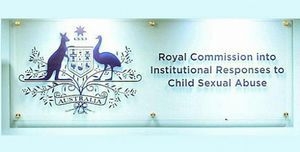
Bishop gave 'fresh start' to abuser
Extract from CathNews, 12 July 2017
A bishop who later became archbishop of Perth knew a priest had abused boys but gave him "a fresh start" in his diocese, where the offending continued, documents before the child abuse royal commission reveal, reports AAP/News.com.au Fr William Kevin Glover received two warnings under canon law for "immoral and criminal sexual behaviour with boys and adolescents" while in the Marist Fathers - Society of Mary before being sent to Western Australia's Bunbury diocese in 1960. Fr Glover was removed from a Victorian parish and given his first warning in June 1958 over the systematic sexual abuse of adolescent boys, tendered documents released by the child abuse royal commission reveal. "In September of that year a Marist priest working in the parish expressed the view that Fr Glover had been involved with as many as 30 boys over a three-year period," a 1994 Marist Fathers incident report to its insurer stated. Fr Glover was posted to another parish but was removed in July 1959, given another canonical warning and sent to Sydney for treatment at Richmond's St John of God Hospital. He transferred to the Bunbury diocese on a trial basis following an appeal for priests by the bishop, the late Sir Launcelot John Goody, who was archbishop of Perth from 1968 to 1983....(more) Photo: CathNews,

In past times the Church cultivated a high image of itself because it believed that that was the best way to preserve its credibility. If that image of the church has been shattered—painful as it has been for all who love the church to accept—that is no bad thing. What will continue to give the Church credibility is its quietly going along the way of service.
From Fr Brendan Byrne SJ, published in Australian Jesuits 2 July, Extract published here 12 July
....It is, however, a time of public humiliation for the Catholic Church community — a humiliation that has been building up ever since the scandals about child abuse by clergy and other church officials became public over twenty years ago. The image of a heroic Catholic church that sailed unwavering and unsoiled through the centuries, outlasting all that persecution and hostile forces could throw at it, has largely been shattered. The pride in the Church that was drummed into us older members of the faithful in our early years has in many respects given way to shame—and there are doubtless many who have left off practicing the faith as a result. In past times the Church cultivated that high image of itself because it believed that that was the best way to preserve its credibility, the credibility that it saw as necessary to carry out the primary task which had been given to it by its Lord: to preach the Gospel. But an unfortunate by-product of that image of itself as a sinless institution was the tendency to keep any scandals, especially in the sexual area, closely under wraps, and to defend and uphold the reputation of the Church and its clergy at all costs. Hence offending clergy were moved from place to place rather than being dealt with as justice and the safety of children required—with the devastating results of which we are now so acutely aware. If that image of the church has been shattered—painful as it has been for all who love the church to accept—that is no bad thing. It is actually a process that began fifty years ago at the Second Vatican Council when the Catholic church accepted, as Protestants had been saying since the Reformation, that the church always stands in need of reform. Why does the church stand in need of continual reform? Because, while holy because of its union with Christ, our Lord, it is made up of human beings who are prone to weakness and failure as much as to heroism and the wonderful love and generosity shown not only in our canonized saints but in countless millions of the faithful who just ‘get on with it’, largely unrecognized and unknown.....(more)
Extracts from Fr. Michael Kelly, Pearls and Irritations, John Menadue blog 12 July 2017
....Narcissism is like any addiction: its victims remain unaware of its grip till it’s all but strangled them and then they feel it’s too late to do anything about it. The fatalism of the drunk who explains “I can’t beat it, it’s killing me, I may as well die of it” is the logic of this decline. But there is another way. The path out of narcissism is not the appeal to a code (Christian values) or to extra effort of the will. It’s to be found in experience. It’s to be found in empathy. But how do you learn empathy? Simple: we are given it by falling in love, by failing and accepting we’ve failed, by being grateful for completely unexpected blessings and opportunities, by being forgiven, by experiencing reversals that aren’t the end of the story but a prelude to new opportunities and grace. Sheer, unmerited grace......All the intellectual stuff – more information, codes of conduct and the like – pales into insignificance as ways out of those black holes. It’s experience and finding your heart and soul and living from that every day as you meet stricken humanity in all its need. It’s discovering that you’re loved. And for Christianity’s future in Australia, a focus on that discovery for everyone that to me suggests the way forward....(more)

Extract from Mark Metherell, Pearls and irritations, John Menadue website, 10 July 2017
Amid the turmoil besetting the Catholic Church in Australia, the announcement, after an in-house process, of a diverse team to advise the bishops on the 2020 Plenary Council has raised the hackles of reform advocates. In a week of calamity for the Australian Catholic Church, there were mixed signals for those looking for reform from the hierarchy. It is a time of existential challenges: the census revealed a sharp downturn in Catholic adherents and the Victoria Police finally dropped the long-speculated announcement of “historical” charges of sex abuse against Australia’s prince of the church, Cardinal George Pell, who has strenuously denied them. But a separate development indicated how the church’s leadership is seeking to orchestrate change within its traditionally closed management structure. That was the announcement of the names of 14 people who have accepted appointment to the executive committee to plan and prepare for the church’s most important national congress in decades, the 2020 Plenary Council. Despite recent appeals from Catholic reform groups for more transparency and accountability in decision-making, the announcement came out of the blue, after an in-house process. The announcement was made by the man emerging as the most senior figure in the Australian church, Mark Coleridge, Archbishop of Brisbane. The encouraging aspect of the committee’s make-up was its diversity: eight women and six men including 10 lay people, several of them ACU academics, and officials in church agencies. Coleridge said “their appointment followed an extensive confidential process of consultation across the Australian Church to ensure diversity”.....(more)
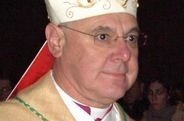
Extract from Christa Pongratz-Lippitt, subscription journal La Croix International, 8 July 2017
Cardinal Gerhard Müller has sharply criticized Pope Francis for the “unacceptable” way in which the pontiff recently dismissed him as head of the Congregation for the Doctrine of Faith (CDF). “On the very last day of my mandate as CDF prefect, the pope informed me within one minute of his decision not to prolong me. He did not give a reason – just as he gave no reason for dismissing three highly competent members of the CDF a few months earlier,” the 69-year-old cardinal told the Bavarian daily. “I cannot accept this way of doing things. As a bishop, one cannot treat people in this way,” he said in the interview, which was published on July 6th. “I have said this before – the Church’s social teaching must also be applied to the way employees are treated here in the Vatican,” he added. Pope Francis told Cardinal Müller in a private meeting at the Vatican on June 30th that his mandate as doctrinal chief would not be renewed. The five-year term officially came to an end on July 2nd......(source) Photo: La Croix International, Dr. Meierhofer/Wikipedia/CCA BY SA 3.0
Many heads could start to roll at the Vatican if Cardinal Ludwig Müller's statement is true that Pope Francis intends to replace curia chiefs at the completion of their five-year terms.
Extract from Robert Mickens, Rome, subscription journal La Croix International, 7 July, linked here 8 July 2017
Who’s the next president or prefect of a major Vatican department that Pope Francis will let go? In fact, many heads could start to roll. That is if Cardinal Ludwig Müller is right and the pope really has decided to replace Roman Curia chieftains at the completion of their five-year terms. Francis must have adopted this new policy at the very last minute. Because a mere six days before Müller reached the conclusion of his quinquennium on July 2nd, Archbishop Jean-Louis Bruguès OP already completed his first five years as Archivist and Librarian of the Holy Roman Church. Benedict XVI had appointed Bruguès to the prestigious post on June 26, 2012. And by doing so, he all but guaranteed the Dominican would become a cardinal, considering that every one of his librarian predecessors dating back to 1550 eventually got the red hat.....So who’s next in line to lose his Vatican job?....(source)
Extract from Marie Malzac and Malo Tresca, subscroption journal La Croix International, 7 July, linked here 8 July 2017
Benedict XVI reached out to Catholic traditionalists a decade ago by liberalizing the extraordinary form of the Mass with his motu proprio "Summorum Pontificum". As a result, previously rocky relations between the French Church and traditionalists have greatly improved. But some bishops remain cautious....(source)
Why I am still a Catholic
Extract from John Menadue, Pearls and Irritations, 7 July 2017
Cardinal
John Henry Newman once said that there is nothing as ugly as the
Catholic Church yet nothing as beautiful. It is hard to see that beauty
at this moment. It is a time for sackcloth and ashes. But I will hang
on. Below is an edited and updated article of mine that was first
published by David Lovell Publishing in 2003.
G
K Chesterton said, ‘I cannot explain why I am a Catholic, because now
that I am a Catholic, I cannot imagine myself as anything else’.
Personally, I now cannot imagine not being a Catholic either, yet I am
more conscious and appreciative of my Methodist upbringing than ever
before. As a Catholic, I reckon I am a pretty good Methodist, with a
healthy skepticism about authority. And the more I see of the failure of
Catholic Bishops the more skeptical of ‘authority ‘I become. Cardinal John Henry Newman described his feelings after joining the Catholic Church: ‘I was not conscious of firmer faith … I had no more fervour, but it was like coming into port after a rough sea’ (Apologia). I
have found Newman very convincing and encouraging on many issues of
concern to me. He also spoke of the pain he felt after ‘coming into
port’ — mistrust and misunderstanding. He wasn’t one of the tribe. His
critics suggested that if he could change once, he could change again
and rejoin the Church of England. To some Catholic bishops he was much
too independent and risky. I have always
felt an outsider in the Catholic Church. I am not tribal. But being an
‘outsider’ troubles me not at all. Before I speak of the two main
reasons why I am still a Catholic-the Eucharist and Authority
-, I would like to give a few
impressions as a relative newcomer to the Catholic Church. Newcomers
have some disadvantages, but newcomers sometimes see things with clarity
and freshness. The Polish have a proverb that the guest to the house
sees in one hour what the host fails to see in a lifetime....(more)
Flawed Catholic Church a test for the true believers
Extract from Geraldine Doogue, 3 July 2017, Pearls and irritations, John Menadue website, 3 July 2017 linked here 8 July
The other day a visiting Israeli man bluntly asked me during a small dinner: was I religious? Well, yes, I replied, though not quite in the way I once would have answered. But Cardinal George Pell is not to blame for that. Twenty years ago, I probably would have replied more confidently, as a cradle Catholic approaching her middle years, trying to live a good life and hand on the heritage and traditions to children. Because they matter to me. Indeed, they are part of my fabric. My much-loved and late husband was an atheist, a good man of strong values, not overtly antagonistic to faith like some, but steeped in an anthropological sense of religion being “sophisticated crowd control”, he’d quip. So there was a layered approach to Catholic institutional life in our household. Yet simultaneously within me, oddly, a growing sense of gratitude for being rooted in a belief tradition rather than not having one, even if I rejected parts of it. I realised it had bequeathed me a precious identity security plus an ability to ask deeper questions about meaning, even though I concede that it took years to fully develop that....So how does one synthesise all this? With difficulty. It is a work in progress. I will of course incorporate details of the cardinal’s coming court case but will probably not be blindsided by whatever may emerge, on the upside and the downside. Because as a source of ongoing consolation and meaning, of searching alongside others not merely alone, the broader Catholic Church simply has no peer....(more)
"Christ in His word holds the Church together."
Selected extracts relating to Church renewal, from a report in Broken Bay Diocese 'News & Events'. 7 July 2017
“We need to be a more Biblical Church", says Archbishop Mark Coleridge. "It is clearer than ever that as a Church we cannot just put up a sign saying 'business as usual', we have to set out into new territory and do things in new ways - all of that with a view to becoming a Church that is more missionary at a time when we might be tempted to turn within." "To be a more missionary Church we must be a more synodal Church, as Pope Francis has made clear. And, to be a more synodal Church we have to be a more listening church - a more contemplative Church, which means a more Biblical Church, listening to the word of God in Scripture in new ways." "I would like the collaboration in this country to move into a new phase, as we move to the Plenary Council and beyond. The practical question is how can we at this time, and on this journey, work together in new and more powerful ways?”......(source)

Queensland Catholics appointed to advise the Plenary Council Bishops’ Commission say the Church needs to listen to the experiences of the faithful in order to plan for a viable future. Former Emmanuel Community moderator Shayne Bennett, ACU campus minister Sally Hood and Townsville theologian Fr Orm Rush are among 14 Catholics appointed to the plenary council executive committee. This committee will work with the special Bishops’ Commission for the Plenary Council to prepare and implement the historic meeting in 2020. With 40 years’ experience in mission work including youth evangelisation, Mr Bennett said listening to the experiences of Catholics, both the good and the bad experiences, needed to be a central part of the plenary council. “I think one of the challenges is to engage with the reality of people where they’re at today,” he said. “No one is pretending that there’s not a lot of disillusionment around, but in spite of that there are many faithful people who are seeking to work positively towards a future.” As well as a more listening Church, Mr Bennett said there needed to be a refocusing on equipping lay people to be missionary or face the reality that “the Gospel won’t be heard”. “Because ultimately people aren’t running into churches to hear the Gospel, so it’s either they hear the Gospel through their peers, or the mission of the Church needs to be rethought in fact in the light of our current experience,” he said. “Historically we’ve thought about people coming to the Church but I think things have been flipped on their head a little bit and we are now talking about the Church going out.” The plenary council is just one of the ways the Church in Australia hopes find out how to reach out to Australians on the fringes of the faith, or at least find out their struggles and hopes....(more) Image: abstract, Theresa Parden [Ed: Hopefully a lot of listening has already taken place and will continue, openly and extensively, well before 2020. Some decisions should be possible before 2020, with bigger decisions then, including adoption of ongoing synodal processes.)
About 3,000 American Catholic Church officials are participating in a unique convention in Orlando, Florida, from July 1 to 4. The gathering is seen as an opportunity for the church leaders to reflect on how to spread the gospel and reach out to a country that is becoming secular.
Extract from Céline Hoyeau, Orlando, subscroption journal La Croix International, 3 July 2017
He may be at the helm of one of the most dynamic Roman Catholic parishes in Florida, with the 3,000 families present each weekend at one of the seven masses at Saint Peter’s Church in Deland, but Father Thomas Connery is still worried. “We have many retirees in Florida, so the churches are full but take them away and it’s a catastrophe,” says Father Connery. “We’re not managing to reach the young generations. "For every person baptized, the American church loses six Catholics," he laments. "We don’t dare talk about it among priests, doubtless because we do not know what to do, but it is past time to break this taboo. "Imagine a company facing such a problem. It would immediately launch an emergency plan! What about us?”...(source)
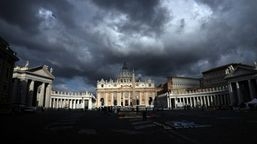
Extract from Barney Zwartz, published in The Age 5:18pm Friday 30 June 2017
Five years ago, the news that Australia's most famous Catholic, Cardinal George Pell, was to be charged with historical sex offences would have been like a tsunami inside the church. Not now. Today the mood is numbed acceptance, the feeling that this is the inevitable last act in the drama of a man who authored his own tragedy. It was his appearances before the child abuse inquiries by the Victorian Parliament and the Royal Commission that really savaged his reputation, both because of the deficiencies they uncovered and because of his wooden, cold responses. But in the Australian Catholic Church, the damage from clergy abuse was done long ago, and the latest development is merely cause for more disappointment. For years, most ordinary Catholics have focused on their local parishes and ignored the hierarchy, as dismayed as anyone by the shocking revelations of official cover-ups, moving paedophile priests and silencing victims.....(more). Photo The Age, Photo: Gregorio Borgia
The Bishop of Rome appears determined not to allow internal battles over the management of the Vatican’s material resources to derail his more ambitious reforms - that is, bringing about a colossal change in the attitude and ethos of what it means to be a Christian.
Extract from Robert Mickens, Rome, subscription journal La Croix International, 30 June 2017
Cardinal George Pell’s time at the Vatican is over. You can bet the Holy See’s huge financial and real estate assets that, de facto, he is finished as Prefect of the Secretariat of the Economy, the office that monitors those vast resources. Pope Francis granted Pell an extended “leave” from his Vatican post this past Wednesday so the cardinal could return to his native Australia and face “multiple charges in respect of historic sexual abuse”. The 76-year-old cardinal must appear before the Melbourne Magistrates Court on July 26th when it is expected that the exact nature of the abuse charges will be made public. Accusations against the cardinal have circulated for many years but they have never stuck. Pell has always insisted on his innocence and this past week vowed to clear his name in what he’s called a “relentless character assassination”. Evidently, he’s hired Melbourne barrister Robert Richter, known as a “standout celebrity criminal advocate”, to defend him. This will likely require a long and drawn-out courtroom battle that will last at least a year or more. And that’s far too long for a major Vatican office to be left without its head....(source)
Extract from Kieran Tapsell, Pearls and irritations, John Menadue website, 30 June 2017
Pope Francis has rightly been acclaimed for his stand on climate change, poverty, inequality and refugees, but on these issues he can only encourage others to act. When it comes to the role of the laity in Church governance and the cover up of child sexual abuse, Pope Francis’ rhetoric does not match his actions. He will never have the moral authority of a Nelson Mandela while he refuses to initiate changes to canon law that would bring them into line. Bruce Duncan’s article sets out Pope Francis’ very positive scorecard on issues such as climate change, poverty, inequality, violence and refugees, for which he has rightly been acclaimed. However, Pope Francis personally can do little about them. He can only encourage others to act. On the other hand, there are two issues about which he can do something within his own Church, namely the role of the laity in Church governance and the cover up of child sexual abuse, where his scorecard reveals that he has badly failed. Popes are absolute monarchs when it comes to canon law. They have no Houses of Parliament to restrict them, and no Supreme or High Courts to set aside their laws. Their only “constitution” is Scripture and Tradition. Pope Francis may feel restrained by Scripture and Tradition from having women priests. But there are three other significant positions in Church governance which have no sacramental or liturgical role, and which canon law says cannot be filled by lay people...(more)

Extract from CathNews, The Australian, 30 June 2017
There are now scarcely more than half a million married young Australians, continuing a decades-long downward trend that has seen the institution go out of fashion, perhaps never to recover, The Australian reports. Shortly after World War II, more than two-thirds of people aged 25 to 29 were married in that year’s census; this figure dropped to almost one-quarter in 2016. Despite migration and population growth, even the raw numbers went backwards for this age group between 2011 and 2016, from 447,413 to 447,236. Matrimony among those in their early 20s has also reversed in absolute and real terms, with the total number in wedlock falling from 93,186 to 83,497 over the same period, dropping as a share of the total age group from 6.37 per cent to 5.3 per cent. In 1947, more than one-third of people aged 20 to 24 were married.....(more) Photo CathNews.
Extract from The Age 20 June 2017
...results this week from the 2016 census showed the proportion of Australian residents identifying as Catholic has fallen from 25.3 per cent to 22.6 per cent since 2011....(source)
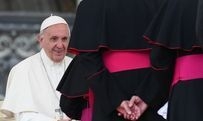
Pope calls on cardinals to 'look at reality' as their mission
Extracts from Nicolas Senèze, Rome, La Croix International, 29 June 2017
At
a service for the creation of five new cardinals on Wednesday, Pope
Francis called on them “to confront the sins of the world and their
consequences for humanity today". He has made an art of linking Gospel
texts to current issues.....Thus, despite
the pomp of yesterday’s ceremony at St Peter’s Basilica, Pope Francis
wanted to bring his cardinals back to reality. Jesus, he warned them, “has not called you to become “princes” of the Church, to “sit at his right or at his left". “He
calls you to serve like him and with him. To serve the Father and your
brothers and sisters,” the pope continued. “He calls you to face the sin
of the world and its effects on today’s humanity, as he did
himself.” It was a message equally valid
for the new cardinals as for the older ones, whom he had characterized a
day earlier at a mass celebrating the 25th anniversary of his episcopal
ordination as “grandfathers who transmit their dreams to the young
people of today"....(more) Photo: La Croix, Vincento Pinto/AFP

Edited Extract from Media Blog, Australian Catholics Bishops Conference, 29 June 2017
The Bishops Commission for the Plenary Council today announced the names of those who have accepted appointment to the Plenary Council Executive Committee. Their appointment followed an extensive confidential process of consultation across the Australian Church to ensure diversity. Together they bring a variety of gifts, competencies and experience to the work of the Executive Committee. Archbishop Coleridge said that the Plenary Council will play a crucial role in shaping the Church’s future in Australia. ‘This is no time for the Church to be putting up signs that say “business as usual”. If we needed any proof, then the Royal Commission has shown that. We need to face the facts, and in the light of the facts, which aren’t always friendly, we have to make big decisions about the future. The Plenary Council will place the Church on a sound footing to respond to what is not merely an era of change but a change of era.’ The Committee will work closely with the Bishops Commission to ensure the successful preparation, celebration and implementation of the Plenary Council 2020. The Executive Committee membership with their home diocese is as follows:....(more). Photo: Archbishop Mark Coleridge, ACBC
Extract from Christopher Lamb, The Tablet, 29 June 2017
....While the Holy See said today that the work of Pell’s Secretariat for the Economy will continue, a big vacuum has been opened up. The cardinal’s departure also comes hot on the heels of last Tuesday’s news that Libero Milone, a London-trained accountant who had led Italy’s branch of the accountancy firm Deloitte, was resigning as the Holy See’s first “auditor-general”. It means the question many are left asking after today is: who will continue the work to sort out the Vatican finances, part of the mandate on which the Pope was elected? In his statement today, Pell stressed he plans to return to his work in Rome after he has cleared his name, but Australian legal sources say the criminal proceedings being brought against him could take months, even years, before they conclude. The cardinal has said he won’t serve past 2019 - the end of a five year mandate - and if proceedings are still ongoing by that stage, its hard to see how Francis can continue to have an absent economy prefect. It wasn’t supposed to work out like this. Back in February 2014 Cardinal Pell was entrusted by the reform-minded Pope to undertake a root and branch shake up of money management at the western world’s oldest institution. During his period in office the cardinal has made a number of changes. New accounting standards are being introduced; budgets are regularly checked; most Vatican departments now submit proper accounts. The Holy See’s financial watchdog is clamping down on suspicious transactions. And the Vatican bank, long a source of scandal, now routinely submits independently audited accounts. “The cardinal has broken the ice of the reforms,” one well-placed Vatican source told me. But Pell encountered serious opposition. Many responsible for financial controls are reluctant to release details of their income and expenditure. Pell wanted one of the big four accountancy firms to conduct an independent, comprehensive audit. He was blocked. Milone, who had been in post for only two years had been given wide-ranging powers to investigate the Holy See’s murky finances, and reported directly to the Pope. Informed sources say he quit in frustration after getting on the wrong side of powerful vested interests....(more)
Extract Media and Communications Office, Melbourne Catholic, Catholic Archdiocese of Melbourne, Thursday 29 June 2017
Archbishop Denis Hart is aware of the significance of the decision to charge Cardinal Pell. Cardinal Pell has been a friend and brother priest of Archbishop Hart for more than 50 years. The Archbishop is conscious of the Cardinal’s many good works which have been acknowledged both nationally and internationally. It is a matter of public record that Cardinal Pell addressed the evil of sexual abuse in the Church on becoming Archbishop of Melbourne in 1996. It is important all in society recognise that the presumption of innocence applies and that Cardinal Pell like all Australians is entitled to a fair trial. In the interests of fairness and due process Archbishop Hart will not be commenting further....(source)
Edited Extract from ABC News, 29 June 2017
Cardinal George Pell says he is looking forward to his day in court after being charged with historical sexual assault offences.
Key points: Charges involve multiple complainants; Pell has always maintained his innocence and strenuously denied any wrongdoing; Victoria Police says charging process has involved "common and standard practice"; Australia's most senior Catholic cleric has been ordered to appear in the Melbourne Magistrates' Court on July 18, after Victoria Police served charges on his legal representatives. "Cardinal Pell will return to Australia, as soon as possible, to clear his name following advice and approval by his doctors, who will also advise on his travel arrangements," a statement released by the Catholic Archdiocese of Sydney said. "He has again strenuously denied all allegations." He is expected to make a further statement in Rome at 4:30pm AEST. Victoria Police Deputy Commissioner Shane Patton earlier told reporters the charges involved multiple complainants. A magistrate will decide next week whether to the release the details and the nature of the charges. A hearing will take place on July 6. Last July, police confirmed they were formally investigating complaints about offences alleged to have occurred in Ballarat in the 1970s. Pell has always maintained his innocence and denied any wrongdoing. Deputy Commissioner Patton said the "process and procedures" being followed had been the same as those applied "in a whole range of historical sex offences, whenever we investigate them". "The fact that he has been charged on summons — we have used advice from the Office of Public Prosecutions and also we have engaged with his legal representatives, which is common and standard practice." As head of the Vatican's finances, Pell is considered number three in the Catholic hierarchy behind the Pope.....(more)
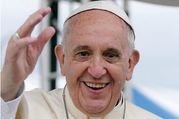
"These cardinals remain convinced that the Church can provide a 'one size fits all' moral and sacramental solution for all life’s mess and complexity."
Extract from Frank Brennan, subscriptiopn joirnal La Croix Intermational, 28 June 2017
Last November, four elderly Cardinals who were at the peak of their powers during the previous two papacies took the unprecedented step of publishing their concerns about Pope Francis’s teachings. They quite rightly pointed out that some of the things being said by Francis are irreconcilable or at least inconsistent with previous clear statements by Pope John Paul II. Cardinals Brandmuller (who previously chaired the Pontifical Committee of Historical Sciences), Burke (who previously headed the Church’s most supreme court), Caffarra, erstwhile archbishop of Bologna, and Meisner, erstwhile archbishop of Cologne think Francis is seriously in error when he teaches about mercy and justice, right and wrong, and the place of conscience. The cardinals had written to the Pope on 19 September 2016 setting out five dubia in relation to Amoris Laetitia. Not having received a response from the pope, they then published their letter two months later declaring that they had "interpreted his sovereign decision as an invitation to continue the reflection and the discussion, calmly and with respect". They decided to inform "the entire people of God about our initiative, offering all of the documentation". Here are two of the questions to the Pope published by the concerned cardinals:....(source)
Extract from John L. Allen Jr, subscription magazine Crux, 25 June 2017
This past Monday, phone lines across Rome began to heat up with rumors that something had happened with Libero Milone, a veteran Italian businessman and expert in auditing and tax services who had been hired in June 2015 as the Vatican’s first-ever Auditor General, billed as the final piece of the puzzle in terms of building a culture of accountability and transparency. On Tuesday, the other shoe dropped: The Vatican released a terse, four-line statement saying that Milone had submitted his resignation, Pope Francis had accepted it, and, by “common agreement,” his relationship with the Vatican was over. The statement wished Milone well, and said that a search will soon be launched to find his successor. What the statement didn’t offer was any explanation of why Milone was walking away, two years into what was supposed to be a five-year term, and well before anything like an actual audit of Vatican finances had been brought to completion. Given that the only force on the planet that abhors a vacuum more than nature is the Italian press, speculation immediately ensued about the backstory....(more)
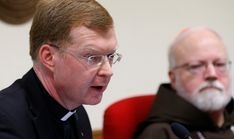
Extract from Joshua J. McElwee, National Catholic Reporter, 23 June 2017
A member of Pope Francis' commission on clergy sexual abuse has suggested the composition of the advisory body may change at some point this fall, as the original three-year terms granted to individuals in the group expire. Jesuit Fr. Hans Zollner, who was appointed by Francis with seven others in March 2014 as the initial members of the Pontifical Commission for the Protection of Minors, said the group is hosting its last planned plenary session in September. "People know that the mandate of this commission comes to a close," said Zollner, speaking Thursday at the Pontifical Gregorian University. "The mandate is of three years and at the end of this year the mandate finishes." "There is one more plenary session ... which will be the last plenary session," he continued. "From there, we need to see what will be the follow-up and how [the] commission will look and what will be the membership."...While Francis' creation of the pontifical commission was interpreted originally as a sign of his seriousness in confronting the continuing clergy sexual abuse crisis, the effectiveness of the group has come into question in recent months.....(more) Photo: NCR
Extract from Rivert Nuckens, Rome, Subscription magazine La Croix International, 23 June 2917
When Pope Francis places a red biretta on the head of Cardinal-designate Gregorio Rosa Chavez next Wednesday he will be rehabilitating yet another Catholic personality that was once shunned by the Vatican. The 74-year-old Salvadoran is one of five men Francis will make papal electors when he formally adds them to the elite College of Cardinals at the June 28th consistory in St Peter’s Basilica. Rosa Chavez has been auxiliary bishop of the Archdiocese of San Salvador since 1982 when he was only 39 years old. Today he serves as pastor of one of the city’s largest parishes. Known for his tireless efforts to promote the prophetic message of the now Blessed Oscar Romero, the bishop was for years treated with suspicion by conservative forces in Rome – just like the martyred Romero. Both men were given the cold shoulder by John Paul II’s inner circle, which routinely blocked their requests for a private meeting with the Polish pope when they visited the Eternal City. Rosa Chavez, like Romero, was considered too close to the Marxists and other leftists in their small, war-torn Central American country....(Source)
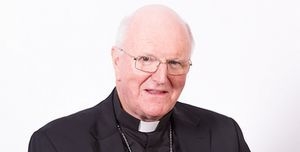
Extract from CathNews, The CanberraTimes, 21 June 2017
Archbishop Denis Hart has intervened in the war over school funding to seek an urgent meeting with Prime Minister Malcolm Turnbull before the government's Gonski 2.0 changes come to a Senate vote, The Canberra Times reports. Fairfax Media revealed that Archbishop Hart, Archbishop of Melbourne and President of the Australian Catholic Bishops Conference, wrote to Mr Turnbull on Monday to seek a meeting to hammer out a peace deal. Despite criticism from the Labor Party and unions, the government remains confident Gonski 2.0 will pass the Senate. It came as the government agreed to delay introducing its new funding model for at least 12 months for Catholic schools in a bid to stop any of its senators from crossing the floor. The concession – which has not been officially announced – will not win the support of the Catholic sector but is expected to be enough to placate Liberal senator Chris Back, who had threatened to vote against the government's changes. The government was locked in intense negotiations with the Greens and Senate crossbench last night, ahead of the expected introduction of its bill into the Senate today. In his letter Archbishop Hart expressed concern about the new funding model and the amount of money being made available to Catholic schools. He asked for Mr Turnbull, Education Minister Simon Birmingham and other officials to meet with Catholics bishops to resolve the dispute over school funding. Archbishop Hart's intervention is significant as it underscores the scale of the disquiet over the government's school funding proposal in the Catholic community...(more) Photo: CathNews, The Canberra times, ACBC
Extract from subscriptional journal from John L. Allen Jr. and Ines San Martin, La Croix International, 21 June 2017
MILAN - Probably better than most, Father Julián Carrón, the successor of the legendary Italian Father Luigi Giussani as leader of the influential Communion and Liberation movement, whose natural base is among more conservative Catholics, understands that Pope Francis can be a shock to the system. Yet he’s still an unabashed Francis fan, who insists that if you don’t think this pope is the cure, then you don’t understand the disease we’re facing in the post-modern world. “Sometimes certain gestures of the pope may not be understood because we don’t understand the full implications of what he calls an ‘epochal change’,” Carrón told Crux on Monday. “It’s like thinking a tumor is a simple case of the flu, so taking chemotherapy would seem too drastic,” he said. “But once you understand the nature of the disease, you realize you’re not going to be able to beat it with aspirin.”....(more)
Extracts from National Catholic Reporter, 20 June 2017
Mentioning the city of Gary, Indiana tends to evoke an image of dilapidated buildings, unemployment and crime. Following the steady decline of the steel industry in the late 20th century, Gary's population faced dramatic reductions. At its peak in 1960, Gary had almost 180,000 people. Now, U.S. Census estimates place the population at 76,424. In 2013, it was estimated that 6,500 of the 7,000 properties the City of Gary owned were abandoned. The unemployment rate in Gary in Dec. 2016 was 8.2 percent, double that of the state. Those numbers weighed on Gary Bishop Donald Hying's mind when initially proposing the synod. "We have significant poverty here in our diocese. … That's something that's on everyone's hearts as well," Hying told NCR. "[The synod] will benefit not only the church but also the world as we live the mission of Christ." Hying, who was appointed bishop by Pope Francis in November 2014, spent his first year visiting all 69 parishes within the diocese. On Feb. 25, 2016, after getting a feel for the needs of each parish, Hying released a pastoral letter "Go, therefore and make disciples of all nations." In the letter, he described his travels throughout the diocese and announced the diocese's first-ever synod. "In my travels around the diocese, meeting thousands of people … I have served the Lord alongside you. I have prayed for and with you. I can honestly say that I have fallen in love with you and this diocese," Hying wrote in his pastoral letter.....The letter also outlined eight ecclesial mission areas that the diocese and synod would focus on moving forward: evangelization; sacraments, prayer and worship; discipleship/formation; social teaching; marriage and family; young Catholics; stewardship; and vocations and leadership formation.....(more)

Extract from CathNews, 21 June 2017
The four cardinals who wrote to Pope Francis seeking clarification on disputed parts of his apostolic exhortation Amoris Laetitia last year have again written to him to request an audience, reports the National Catholic Register. In a letter hand-delivered to the Pope in May, Cardinals Carlo Caffarra, Walter Brandmüller, Raymond Burke and Joachim Meisner wrote asking for an audience, having received no response to the dubia they sent Francis in September last year. The Pope has yet to respond to this second request. The cardinals’ dubia, which they made public in November are five questions, or “doubts,” seeking simple “yes” or “no” answers about Amoris Laetitia, the Pope’s summary document on the 2014 and 2015 Synods on the Family. A long-established procedure aimed at clarifying doctrine, the cardinals used it to ascertain if controversial passages of the papal document are consistent with past papal teaching. The most contentious dubium is whether some remarried divorcees without an annulment and living in an objective state of adultery are allowed to receive Holy Communion....(more) Photo: CathNews, (National Catholic Register/Edward Pentin)
Extract from Anthony Faiola, Stephanie Kirchner, The Washington Post, 18 June 2017
Inside the red-brick building that now houses the German capital’s newest and perhaps most unusual mosque, Seyran Ates is staging a feminist revolution of the Muslim faith. “Allahu akbar,” chanted a female voice, uttering the Arabic expression “God is great,” as a woman with two-toned hair issued the Muslim call to prayer. In another major break with tradition, men and women — typically segregated during worship — heeded the call by sitting side by side on the carpeted floor. Ates, a self-proclaimed Muslim feminist and founder of the new mosque, then stepped onto the cream-colored carpet and delivered a stirring sermon. Two imams — a woman and a man — later took turns leading the Friday prayers in Arabic. The service ended with the congregation joining two visiting rabbis in singing a Hebrew song of friendship. And just like that, the inaugural Friday prayers at Berlin’s Ibn Rushd-Goethe Mosque came to a close — offering a different vision of Islam on a continent that is locked in a bitter culture war over how and whether to welcome the faith. Toxic ills like radicalization, Ates and her supporters argue, have a potentially easy fix: the introduction of a more progressive, even feminist brand of the faith. ...(more)
Extract from Cindy Wooden, Catholic News Service, Melbourne Catholic, Friday 16 June 2017
The health of the Catholic Church can be measured in many ways, and the Vatican has a special office just for that purpose. The Central Statistics Office, which operates under the Vatican Secretariat of State, conducts a variety of studies for the Roman Curia throughout the year. But one of the office's biggest projects is compiling the annual, 500-page Statistical Yearbook of the Church. Of course, the yearbook tracks the Catholic population, both by a head count of the baptised in each country and as a percentage of the world's population. The latest report, based on numbers gathered on 31 December, 2015, tallied 1.28 billion Catholics, which is about 17.7 percent of the global population. Ten years earlier, according to the statistics office, the Catholic community numbered just over 1.1 billion, which was 17.3 percent of the population at that time. Worldwide Catholics operate close to 118,000 hospitals, clinics, and homes for the aged, orphanages, counselling centres and rehabilitation facilities. Ten years ago, the number of such facilities was less than 115,000....(more)
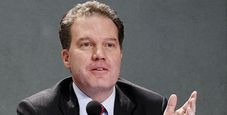
Pope and cardinals discuss loosening the strings
Extract from CathNews, CNS, 15 June 2017
Pope Francis and his Council of Cardinals have discussed the possibility of allowing local bishops rather than the Vatican decide on certain matters, including the marriage or priestly ordination of permanent deacons, CNS reports. It is "what the Pope calls a 'healthy decentralisation'," said Greg Burke, director of the Vatican press office. Briefing journalists on the council's June 12-14 meeting, Mr Burke said the Cardinals and Francis looked specifically at the possibility of allowing bishops to determine whether a permanent deacon who is widowed can remarry or whether a permanent deacon who is unmarried or widowed can be ordained to the priesthood without having to "wait for a decision to be made in Rome" as is the current rule. Such decisions regarding permanent deacons now are handled at the Vatican Congregation for Clergy, but could pass to the local bishops' conference, Mr Burke told journalists yesterday. The Council of Cardinals advising the Pope on Church governance also discussed proposals to broaden the participation of lay people and members of religious orders in the selection of new bishops. "It is something that already exists, but they want to do it in a more systematic, more extensive way," Mr Burke said.....(more). Photo: CathNews, CNS?Paul Haring.
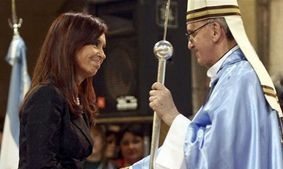
Extract from Inés San Martín, Vatican Correspondent, Crux, 15 June 2017
ROME- When Pope Francis and German Chancellor Angela Merkel meet on Saturday, it’ll be the fourth time the two see each other in Rome. For a leader who’s often recommended putting more women in leadership positions inside his own house, the meeting cements the fact that when it comes to dealing with powerful women, it’s par for the course for this pontiff. As is the case between the Vatican and most governments around the world, Francis and Merkel sometimes disagree on matters of policy, but when it comes to personality, he has a life-long experience of seeing women in charge.....(more) Photo:Crux, AP.

Vatican releases online questionnaire for youth
Extracts from Carol Glatz, Catholic News Service, Crux, 15 June 2017
ROME - To involve young people in preparations for the Synod of Bishops on youth in 2018, the Vatican has released an online questionnaire to better understand the lives, attitudes and concerns of 16- to 29-year-olds around the world. The questionnaire - available in English, Spanish, French and Italian - can be found on the synod’s official site and is open to any young person, regardless of faith or religious belief. The general secretariat of the synod launched the website June 14 to share information about the October 2018 synod on “Young people, faith and vocational discernment” and to link to an online, anonymous survey asking young people about their lives and expectations. The answers to the questionnaire, along with contributions from bishops, bishops’ conferences and other church bodies, “will provide the basis for the drafting of the ‘instrumentum laboris,'” or working document for the assembly, synod officials said in January. Young people from all backgrounds are encouraged to take part in the questionnaire because every young person has “the right to be accompanied without exclusion,” synod officials had said. The list of 53 mostly multiple-choice questions is divided into seven sections: general personal information; attitudes and opinions about oneself and the world; influences and relationships; life choices; religion, faith and the church; internet use; and two final, open-ended questions. The Vatican’s preparation for a synod generally includes developing a questionnaire and soliciting input from bishops’ conferences, dioceses and religious orders. This is the first time the Vatican’s synod organizing body put a questionnaire online and sought direct input from the pub A synod’s preparatory phase seeks to consult of “the entire people of God” to better understand young people’s different situations as synod officials draft the working document. The synod on youth will be looking for ways the church can best and most effectively evangelize young people and help them make life choices corresponding to God’s plan and the good of the person....(more) Photo: Crux, CNS photo/Bob Roller. [Ed: An Australian Catholic Bishops Youth online Survey 2017 has also been prepared (HERE) to contribute towards the Australian bishops submission that will be considered by Pope Francis as part of the General Synod on Young People, Faith and Vocational Discernment to be held in Rome in October 2018]
Controversial new appointments as Pontifical Academy for Life widens perspectives
Extracts from Daniele Palmer,The Tablet, 14 June 2017
By nominating members not strictly in line with traditional Church teachings, the Academy is creating a more heterogenous membership. The Pontifical Academy for Life, the Vatican organisation devoted to the study of Catholic bioethics, has appointed new members in what seems both an act of continuation with the past, but also a widening of perspectives.
After a wait of more than six months, the Holy See published its list of the new nominations to the Pontifical Academy for Life. Apart from significantly reducing the number of members of the Academy - which acts as a Vatican think tank on life issues - from 132 to 45, plus five “honorary” members, it has renewed the membership of many previous members. Amongst those who saw their membership renewed are Anthony Colin Fisher, Archbishop of Sydney and the Dutch Cardinal Willem Jacobus Eijk; Carl Albert Anderson, Supreme Knight of the influential Knights of Columbus - all known for holding more conservative positions........The nomination which has caused the most controversy, however, is that of the English philosopher and moral theologian, Nigel Biggar. An Anglican priest, Biggar is one of several non-Catholic members elected yesterday (13 June) to the Academy. His views on abortion directly contradict the anti-abortion policies not only those of the Church, but also of the Academy’s past members. In 2011, Biggar stated that it is “not clear that a human foetus is the same kind of thing as an adult or a mature human being, and therefore deserves quite the same treatment.” To this effect, he has supported the legalisation of aborting foetuses up until the 18th week. Some have argued that this points to a change in the Academy’s policy line. However, sources close to the Academy’s president, Archbishop Paglia, have said that the nomination of Biggar is indicative not of a substantive change, but of a widening of perspectives. By nominating Biggar, and other members who are not strictly in line with traditional Church teachings, Paglia is seeking to create a more heterogenous membership and set of views. Another nomination that does not sit well with some conservatives is Maurizio Chiodi, lecturer of moral theology at Milan’s seminary. In the past, Chiodi has criticised important passages of “Humanae vitae”, “Donum vitae”, and “Evangelium vitae” - all documents that make up the fundamental pillars of modern Catholic bioethics. The Milanese theologian has also called for more “discernment” on issues relating to contraception, in vitro fertilisation, the question of “gender”, and sexual orientation in the Catholic theology....(more)
Extract from Tom Heneghan, The Tablet, 14 June 2017
Permission does not imply 'an endorsement of gay culture', writes Bishop in open letter to parishioners
Bishop Gerard de Korte of ’s-Hertogenbosch will allow an ecumenical prayer service to take place in his cathedral as part of the Netherlands Gay Pride events in late June, provided nothing is said there that contradicted the teaching of the Catholic Church. At the request of the organisers, he is due to attend the “Pink Saturday” service on 24 June and conclude it with a short address and a blessing. In an open letter to parishioners, he said this did not mean an endorsement of gay culture. News of the service prompted a debate in the southern Dutch diocese, the most populous in the country, with opinions divided even in the diocesan priests council, which asked him to clarify his stand. “Things will probably happen in the city on Pink Saturday that Catholics and other Christians, including believing homosexuals, strongly disapprove of,” Bishop De Korte wrote in the letter. But he said that, as one of his priests observed, things happened in Carnival season before Lent that were “hard to reconcile with Catholic ethics” but that was no reason for the Church to abstain from Carnival celebrations. He said the Church defended traditional marriage and considered homosexual acts disordered but also insists that gays be treated with respect. “I am confident that the service will remain serene,” he wrote. The bishop said there was a deep divide between “what the Church says and the experience of many people both outside and inside of our Church”. But he added that “we are not called on to throw stones. If God counts sins, nobody is left standing”....(MORE)
Extract from John L. Allen Jr. Editor, Crux, 10 June 2017
ROME - Pope Francis is now over 80 and not long ago marked his fourth anniversary in office, and although he’s showing absolutely no signs of slowing down, it’s natural that people have begun to talk about what his long-term legacy is going to be. By now it’s clear Francis’s vision for the Church is complicated, but two core elements are a desire to foster social activism, especially direct and concrete forms of service, and to put the poor in a position to be heard in discussions about how to solve their problems. The question is, how will Francis ensure that those priorities remain in the mix even after he’s gone? One piece of the answer fell into place on Friday, as the pontiff formally opened a Vatican office for Scholas Occurentes, an Argentine group designed to bring wealthy and impoverished schools together in a spirit of partnership that he backed in Buenos Aires when he was the city’s archbishop, and he’s essentially brought with him to Rome and made it into a global brand....(more)
-1.jpg)
Making our parish mission possible: Melbourne clergy conference
Extracts from Media and Communications Office, Melbourne Catholic, Thursday 8 June 2017
‘The
parish is not an outdated institution,’ writes Pope Francis in
Evangelii Gaudium, ‘precisely because it possesses great flexibility. It
can assume quite different contours depending on the openness and
missionary creativity of the pastor and community.’ The Melbourne Clergy
Conference explored that flexibility with the theme: The Parish—Our
Mission. Held at Peppers The Sands Resort in Torquay, the three-day
conference started on Tuesday 6 June. Every
church and diocese struggles with its own issues. But the central
problem clergy grappled with over the four days was this: How can we
move parishes from a routine of maintenance towards embracing the
mission of making disciples? And how do we effect that shift? The
week’s presenter was Daniel Ang, Director of the Office for
Evangelisation in the Catholic Archdiocese of Broken Bay, NSW. What he
learnt was the number of people receiving the sacraments in Mass each
week shouldn’t be a primary concern. ‘The attendance of Mass doesn’t
necessarily mean that someone has a personal relationship with Jesus’
Ang tells Melbourne Catholic. ‘Our call is to make disciples.
Unfortunately today we tend to assume that receiving the sacraments will
take care of that. But the church teaches that evangelisation,
conversion and faith have to come first.’....Throughout
the conference, Ang demonstrated an encyclopaedic knowledge of church
history. And ultimately a message of hope was held up to the parish, the
priests and the church at large. ‘The church has enormous capacity for
renewal.’ Each day, clergy have
celebrated the Eucharist, presided over by Archbishop Hart, Bishop Mark
Edwards, and Bishop Terry Curtain respectively. The conference concludes
today with a morning Eucharist, prayer, and a final session on
practical steps to nurture renewal and growth in parishes. All to ensure
that each—to quote Pope Francis—remained effectively a ‘community of
communities, a sanctuary where there the thirsty come to drink in the
midst of their journey....(more) Photo: Melbourne Catholic.
.jpg)
The uncertain future of parish life
Extract from T. Howland Sanks* America, The Jesuit Review, 2 June, U.S. Extracted here 8 June 2017
.....Rethinking
Parish Structure: William J. Byron, S. J., reinforces the notion that
parish leadership must be shared in his recent book Parish Leadership:
Principles and Practices, but he adds that the leadership must integrate
Catholic social teaching in the life of the parish for it to be
effective. (He also provides an excellent, succinct summary of Catholic
social teaching in his second chapter.) For Byron, parish leadership,
especially the pastor, must be “servant leadership” rather than the top
of a pyramid, as the latter is abnormal and corrupting. A
much more comprehensive study of Catholic parishes is Catholic Parishes
of the 21st Century by the staff of the Center for Applied Research in
the Apostolate (CARA), led by Charles E. Zech. Synthesizing data from a
number of recent surveys, the authors use the 1989 Notre Dame Study of
Catholic Parish Life as a baseline of comparison. Trends that had begun
at that time have continued and intensified, but the operative word in
both studies is change. Following are the most significant changes in
the last 30 years: .....(more). Photo, America the Jesuit Review, CNS photo/Jonathan Francis, Archdiocese of Detroit
*T. Howland Sanks, S.J., is the professor emeritus of theology at the Jesuit School of Theology at Santa Clara University.
Court rules against Wilson appeal
Extract from CathNews, 8 June 2017
The
NSW Court of Appeal has dismissed a bid by Adelaide Archbishop Philip
Wilson to stop criminal proceedings against him over claims he did not
report another priest’s sexual abuse of a young boy, AAP reports.
Lawyers for Archbishop Wilson, who has pleaded not guilty to the charge,
had argued that his court attendance notice should be quashed or
permanently stayed because the charge was not valid. Court of Appeal
justices Tom Bathurst, John Basten and Tony Meagher ruled the charge was
valid because the offence, allegedly committed in 1971 by the now-dead
pedophile priest James Fletcher, was a “serious indictable offence”.
Archbishop Wilson’s lawyer told the court: “The appellant is being
prosecuted for failing to report information to the police (in essence
an allegation) some 28 to 30 years after an alleged conversation that
took place in 1976.” Archbishop Wilson is accused of concealing
information about Fletcher’s alleged sexual assault of a 10-year-old in
the NSW Hunter region town of Maitland. Prosecutors allege that
between 2004 and 2006, he failed without reasonable excuse to bring
material information to police relating to the alleged indecent
assault. A magistrate in February 2016 refused to quash or
permanently stay the proceedings. In October, in the NSW Supreme
Court, judge Monika Schmidt dismissed the archbishop’s appeal against
that decision. On Tuesday, the NSW Court of Appeal dismissed his
third attempt to have the proceedings quashed or permanently
stayed.....(more)
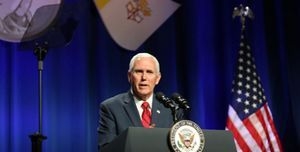
Extract from CathNews, 8 June 2017
US Vice President Mike Pence and other speakers addressed the subjects of religious liberty and the sanctity of human life both in the United States and worldwide at the 13th annual National Catholic Prayer Breakfast in Washington on Tuesday, CNS reports. Mr Pence spoke about President Donald Trump's commitment to the securing of all religious freedoms to more than 1200 attendees, following speeches by keynote speaker Archbishop Timothy P. Broglio, head of the US Archdiocese for the Military Services, and special guest Mother Olga of the Sacred Heart. Mr Pence expressed his sorrow over the recent terrorist attacks in Europe. He said Mr Trump was committed to ending attacks on religious liberty around the world, as well as in America....(more) Photo: Cathnews CNS
Extract from Rose Gamble, The Tablet, 8 June 2017
The Scottish Episcopal Church (SEC) has voted to allow gay couples to marry in church making it in the first mainstream Christian church in the UK to allow same-sex marriages. The vote to amend canon law on marriage, removing the stipulation that it is between a man and a woman, was carried by the Synod in Edinburgh on Thursday (8 June) afternoon. The historic move means that gay Christians from any Anglican Church can now ask to be married in a Scottish Anglican Church. Scottish Anglican ministers wishing to conduct same-sex weddings will have to 'opt-in.' The church said this meant that those who disagreed with gay marriage would be protected and not have to act against their conscience....(more)
Schools apologise for abuse
From CathNews, 2 June 2017
Edmund Rice
Education Australia (EREA) yesterday delivered an apology to former
students who were victims of sexual abuse at its schools. The
national apology was delivered at the National Arboretum in Canberra
during EREA’s National Principals’ Conference and was echoed by
Archbishop of Canberra-Goulburn, Christopher Prowse. EREA has
responsibility for more than 50 Catholic schools and entities, some of
which were previously governed by the Christian Brothers. “The National
Apology has been made by EREA on behalf of all its schools to the
survivors and victims of sexual abuse by members of the religious
community and lay staff in those schools,” said EREA Executive Director
Wayne Tinsey. Dr Tinsey said EREA had consulted widely on the apology,
particularly with survivors, who had contributed to its development,
and that the apology had the full support of the Christian Brothers and
Archbishop Prowse. “By acknowledging the suffering of survivors in
our schools, we hope this apology demonstrates that we have listened to
survivors and acted on their views, thoughts, and feelings,” Dr Tinsey
said. “It is our hope that this apology will go some way to
addressing and healing this long-standing omission and hurt.” Dr
Tinsey said EREA realised its apology was just one step in the journey
towards healing and the national event also marked the beginning of a
series of apologies around Australia with EREA schools and their
communities planning their own local ceremonies. Archbishop Prowse,
who is overseas attending meetings, asked his Vicar-General, Fr Tony
Percy, to read out a statement from him at the EREA Principals’
Conference. “I am profoundly sorry, the Archdiocese is profoundly
sorry for what has happened. We ask forgiveness from God, and
forgiveness from the survivors,” he said....(more)

Thursday 1 June 2017
A summary report of outcomes from the 2017 Plenary meeting of the Australian Catholic Bishops Conference from 4-11 May has now been published. Amongst others, issues summarised include: Royal Commission Into Institutional Responses to Child Sexual Abuse; Providing Priests; Marking the 500th Anniversary of the Reformation; Parish Revitalisation Project; Synod on Young people; the Faith and Vocational Discernment; and Consultation and Discernment process regarding Plenary Council. The summary report is linked HERE

The New Zealand Synod 2017
Catholics For Renewal, 31 May 2017
The Catholic Church of New Zealand is closely in touch with the needs of its people, and as far back as 2007 the NZ Catholic Bishops Conference published its first responsive and caring response to Child Sexual Abuse "A Path to Healing - Te Houhanga Rongo". In keeping with the open thinking of Pope Francis the NZ Bishop's Conference has also arranged to hold a Synod "Go you are sent" in September this year. Synod 2017 will be held in Wellington from 15-17 September. The Synod Participation Booklet and related resources are available HERE. The following edited extracts are taken from CathNews NZ and a recent Newsletter of St Mary of the Angels Parish in Wellington relating to the September Synod. The The first two outline Synod arrangements, the third is a prayer for the Synod.
Photo: St Gabriel's Catholic Church Whangaope Harbour NZ 2013, Jacek Drecki, Panoramio Google Maps,

Extract from CathNews NZ, Extracted here 31 May 2017
An invitation to a workshop for Synod 2017 saw over 300 parishioners from the Wellington Archdiocese’s North Island parishes working together on Sunday. This was the second Synod workshop for the Archdiocese. South Island parishes met in Nelson last week. After opening the workshop with prayer and reflection, Cardinal John Dew provided a context for the Synod process and the topic workshop participants would reflect on. Diocesan Synod’s are “noble institutions in which priests and laity co-operate with the bishop for the good of the whole church – in this case the church in the Archdiocese of Wellington,” he explained. “We all need to learn how to work together, and to draw others into the life of our communities. “We need to be in communion with one another, recognising the light of the Trinity shining in the faces of each other, to share joys and sorrows, see what’s positive in others and see gifts as gifts from God. “Everyone can be involved and use their gifts. We’re all responsible for finding new ways to travel together through prayer, reflection and revelations from the Holy Spirit”. “Not everyone can take part in the Synod in September as we are limited to 350 participants, but everyone can take part in the participation process. This process will decide what the Synod will consider, so it is very important.” He explained during the workshop participants would come together in small groups using a “discernment process”, which would offer everyone an opportunity for “journeying together”. This involved everyone considering what a parish that fully embraced the Synod theme ‘Go you are sent’ would look like, asking themselves what the Holy Spirit was saying to them, sharing the outcome and listening to others. It is important to listen “inwards” before speaking – and to realise that when group ideas converge the Holy Spirit is active and present. This is the process parishioners are being asked to use in reflecting upon their input to the participation process and participants will use during the Synod. Summaries of group discussions at the workshops have been collected, and will form part of the input to the participation process which will decide the Synod agenda. CathNews NZ Image:patterni.net
The Parish has five delegates who will attend the Archdiocesan Synod over the weekend of 17 -19 September this year. While it is not possible for all of us to attend the Synod we are all invited to participate. We can do that in two ways; i) Praying for the success of the Synod; ii)Participating in the process by attending the workshop in preparation for the Synod. This workshop for the North Island Parishes will be held on Saturday 27 May from 1.30pm tom 4;30pm at Bishop Viard College
St Mary of the Angels Parish Wellington NZ
God, whose power is at its best in weakness: You have entrusted us, in our frailty,
with the awesome privilege
of being your presence in our world.
You say to each of us: Go, you are sent
In naming and sending,
you honour our ability to serve.
Yet we know our need of you,
even as we travel in the
echo of your voice: Go, you are sent
Bless our Archdiocese of Wellington as we set out and, as you have done for so many,
strengthen our weariness; steady our trembling.
May we never forget that you are with us
and joyfully answer your call: Go, you are sent
We go, gifting your mercy, proclaiming your truth,
and celebrating your goodness;
our words and actions
revealing your face
to all we meet.
Blessed are you, God of the journey. Amen
Extract from Henrietta Cook, The Age, 31 May 2015
For the first time, a Catholic schools network is rolling out an alternative to Safe Schools which it believes will train teachers to stamp out homophobia and transphobia. Edmund Rice Education Australia has distributed resources to its 52 schools and will soon run training to help teachers create a safer and more inclusive environment for gay and transgender students and LGBTI families....."Our core belief is that of inclusion – bullying, harassment and discrimination totally contravenes that and has no place in our schools."...(more)
Francis’ Church is the complete opposite of a clerical Church. It is a Church at the service of the Gospel, not a Church preoccupied solely with its institutional survival. "La Croix" examines some crucial issues of his papacy.
Extract from Isabelle de Gaulmyn, Subscription journal La Croix International, 30 May 2016
“Hope is like a sail,” Pope Francis said at his Wednesday General Audience this week, referring to the feast of Pentecost. “It gathers the wind of the Spirit and transforms it into a driving force that either pushes the boat out to sea or back to the shore.” Could this kind of hope enable Pope Francis’ reforms to lead the Church back out to sea? This is the kind of question that keeps recurring in conversation with people in Rome. The reason is that, while Pope Francis’ reforms are clearly visible, people are wondering how much longer they will last. Or even more directly, they are asking whether the reforms will survive the death of a pope who is already eighty and who has not spared himself physically....(source)

Vale Anthony Foster
Extract from Bishop Vincent Long, Catholic Outlook, 30 May 2017
It is with much sadness that we learned of the sudden death of Anthony Foster in Melbourne over the weekend. Anthony and his wife Chrissie dedicated their lives to seeking justice for victims of child sex abuse. In 2010, when I was still living in Rome, I read the book Hell on the Way to Heaven in which they told the harrowing story of the sexual abuse of their daughters by a Catholic priest. I was deeply moved by their suffering but also inspired by their determination, courage and resilience. Back in Melbourne as an Auxiliary Bishop, I sought them out and eventually met them on a number of occasions. I was kindly received into their home a few times and offered hospitality – a privilege I treasure. Each time we met, the Fosters would share with me their pain and suffering. They would also challenge me to do all I could as a church leader to treat victims and their loved ones with the Christian justice we profess. I was especially touched by Anthony’s empathy – perhaps a virtue he nurtured during his own experience of suffering. At the end of the Royal Commission hearing of the five Metropolitans, the Fosters met with Archbishop Anthony Fisher OP. After he had left the meeting, Anthony became very concerned how deeply affected Archbishop Fisher was. He contacted me and asked if I could check and make sure that the Archbishop was OK. I was only too happy to oblige. I am privileged to have met Anthony and learned much from him. If the Church in Australia is to offer justice and healing for victims and a safer place for children, then it must respect the legacy of people like Anthony Foster. May he rest in peace! Bishop Vincent Long OFM Conv. Bishop of Parramatta Image: Catholic Outlook

Extracts from Bishop Vincent address delivered on 16 May at Mission 2017: one heart many voices, Sydney, Catholic Outlook, 29 May 2017
...I begin this reflection with an Aboriginal story. It goes like this: “Once upon a time, there was an Aboriginal tribe that settled along a mighty river. It was teeming with all kinds of fresh water creatures that sustained the people and provided much security and well-being for them. They lived peacefully along its banks. Then, one day, a big flood came and submerged everything in its path. The people evacuated to dry land. When the flood subsided they returned and resettled where they used to. But then, things were not quite the same. The river flow became weaker and weaker. What was once a mighty river gradually was reduced to a billabong. The people sat daily around its edge and wondered what had become of their once mighty and life-giving river. It was all very sad and depressing until one of them decided to go upstream and explore. He returned later and told the rest of the tribe that their beloved river had not dried up at all. It had merely changed its course.” In a way, I guess, we Catholics of today find ourselves in a place no longer familiar to ourselves. Like those Aboriginal people who returned to their beloved river and realised it was not the same any more after the big flood, we too are being confronted with a changing reality, a world that is increasingly alien to us....The Church is being reborn in ways beyond the traditional structures. Like the river that has changed its course, we have a choice to make. It is not in yearning for or holding on the known and the familiar but in reimagining the future and venturing into the unknown chaos like the old exodus, that we shall find new life. The paschal rhythm summons us to a discipleship of humility, weakness and vulnerability, of dying and rising in Christ. As the Church, we must die to the old ways of being Church which is steeped in a culture of clerical power, dominance and privilege. We must abandon the old paradigm of a fortress Church which is prone to exclusivity and elitism. We must learn to rise to Christlike way of humility, inclusivity, compassion and powerlessness. In the end, though, I firmly believe that we’re on the threshold of renewal and transformation. The Second Vatican Council set in motion a new paradigm that cannot be thwarted by fear and paralysis. Once the genie is out of the bottle, it cannot be put back. That new paradigm is one that is based on mutuality not exclusion, love not fear, service not clericalism, engagement with the world not flight from or hostility against it, incarnate grace not dualism. May the Holy Spirit accompany us as we move boldly in the direction of the Kingdom.....(more) Image: Hattah-Kulkyne National Park Information Centre

Extract from The Guardian, Saturday 27 May 2017
The chair of Australia’s child sex abuse royal commission has said he is “deeply saddened” by the death of tireless victims advocate Anthony Foster. Foster, who became a relentless advocate after his daughters were raped by a priest, was reported to have died on Friday evening from a major stroke. Foster and his wife, Chrissie, shared their torment to the media and the Royal Commission into Institutional Responses to Child Sexual Abuse. Justice Peter McClellan extended his condolences to the Foster family and praised their dedication to achieving justice for survivors of child sexual abuse. “They attended hundreds of days of public hearings and participated in many of our policy roundtables,” McClellan said. “With a dignity and grace, Anthony and Chrissie generously supported countless survivors and their families whilst also managing their own grief. “Commissioners and staff at the royal commission are deeply shocked and saddened by this news.” Foster’s daughters, Emma and Katie, suffered sexual abuse at the hands of pedophile priest Kevin O’Donnell at their Melbourne school between 1988 and 1993. Emma took an overdose of her medication and died in 2008, while Katie was hit by a car and is now brain damaged and in a wheelchair. Tributes poured in for Foster on Saturday, with many describing the father as a voice for survivors who struggled to discuss their personal experiences. “Anthony was the person that stood up and he spoke in quiet but powerful words, and in many ways you know, he roared like a lion on this issue,” friend Paul Kennedy said. Kennedy co-authored a book, Hell on the Way to Heaven, with Foster in 2010. “It is just so sad for everyone that Anthony Foster has died,” he said. Fellow victims’ advocate Manny Waks said he was devastated to hear of the death of his friend and colleague. “Anthony, together with his dear wife Chrissie, has been one of my inspirations,” he wrote on Facebook. “Despite all they endured, they maintained determination and dignity in their ongoing campaign for justice and reform within the Catholic Church – for them and for others.”...(more) Photo: The Guardian, Photograph: Riccardo De Luca/AP
Extract from Media and Communications Office, Melbourne Catholic, Saturday 27 May 2017
We have been greatly saddened and shocked by the sudden and unexpected death of Anthony Foster. Mr Foster has been a devoted and loyal husband to his wife Chrissie and his daughters. As a father and family man he faced and responded to the abuse of his two daughters, the tragic death of Emma and the lifelong injuries to Katie. He was a tireless and fearless advocate for the cause and rights of survivors of abuse within the Church and the introduction of systems to prevent its repetition. We would expect nothing less from a father who loves his children. Mr Foster was a mentor to survivors and families affected by abuse, and supported and encouraged them through many days and hours of hearings of the Victorian Parliamentary Inquiry and Royal Commission. Mrs Foster and her daughters Katie and Aimee are very much in our thoughts and prayers at this time...(more)
Extract from James, Australia, Catholica, Saturday 27 May 27, 2017
I met the Fosters at the Royal Commission and had a chat with them. A lovely, gracious and very brave couple. Anthony will be sorely missed. Benedict XVI’s refusal to meet with the Fosters, and Anthony Fisher’s dismissal of them as crankily dwelling on the past said all that need to be said about senior clergy’s attitudes towards child sexual abuse by their colleagues. There is an interesting passage in Louise Mulligan’s book about Bishop Mulkearns, universally condemned and pilloried by his fellow bishops and others at the Royal Commission. Mulkearns’ real fault was not doing what Geoff Robinson did by defying the Vatican and canon law. Here is the passage from Cardinal where Michael Costigan, a former priest, friend of Mulkearns and fellow canon lawyer tries to explain why Mulkearns acted the way he did. “Costigan offers the explanation that Mulkearns had a ‘blind devotion to the papacy and to Rome…..If Rome told him to act in a certain way, he believed there was no alternative – it was almost a juvenile reaction..…Mulkearns confessed to him that he honestly did not know what to do about Ridsdale. He did not know how to handle it,” Costigan says. It culminated, Costigan says, with what is known as the ad limina visit, where bishops visit the Vatican for an audience with the Pope. Mulkearns appealed to Pope John Paul II about what to do about child sexual abuse – he wanted, says Costigan, ‘some direction or counselling.’ He said the Pope would not talk to him about it, Costigan says. “He said the Pope turned his back and walked out of the room.’ Costigan says Mulkearns felt completely at sea and the exchange radically altered his opinion of the Pope. ‘It wasn’t too long after he came back that he stood down as Bishop ,’ Costigan says.”...(more)

Extract from Cindy Wooden, Catholic News Service, Melbourne Catholic, 25 May 2017
Pope Francis and US President Donald Trump spent 30 minutes speaking privately in the library of the Apostolic Palace 24 May, and as the president left, he told the pope, ‘I won't forget what you said.’ The atmosphere at the beginning was formal and a bit stiff. However, the mood lightened when Pope Francis met the first lady, Melania Trump, and asked if she fed her husband ‘potica,’ a traditional cake in Slovenia, her homeland. There were smiles all around. Pope Francis gave Trump a split medallion held together by an olive tree, which his interpreter told Trump is ‘a symbol of peace.’ Speaking in Spanish, the pope told Trump, ‘I am giving you this because I hope you may be this olive tree to make peace.’ The president responded, ‘We can use peace.’ Pope Francis also gave the president a copy of his message for World Peace Day 2017 and told him, ‘I signed it personally for you.’ In addition, he gave Trump copies of three of his documents: ‘The Joy of the Gospel’; ‘Amoris Laetitia,’ on the family; and ‘Laudato Si,'‘ on the environment. Knowing that Pope Francis frequently has quoted the Rev. Martin Luther King Jr., Trump presented Pope Francis with a large gift box containing five of the slain civil rights leader's books, including a signed copy of ‘The Strength to Love.’ ‘I think you will enjoy them,’ Trump told the pope. ‘I hope you do.’ After meeting the pope, Trump went downstairs to meet Cardinal Pietro Parolin, Vatican secretary of state, and Archbishop Paul Gallagher, the Vatican foreign minister. He was accompanied by Rex Tillerson, US secretary of state, and H.R. McMaster, his national security adviser. The meeting lasted 50 minutes....After leaving the Vatican, the president was driven across Rome for meetings with Italian President Sergio Mattarella and Prime Minister Paolo Gentiloni. Asked by reporters there how his meeting with the pope went, Trump responded, ‘Great.’ ‘He is something,’ Trump said. ‘We had a fantastic meeting.’....(more) Photo: Crux,

Edited extract from CathNews, 25 May 2017
Young people across Australia are being called to share their views about life, faith, and their experience of Church through an online survey, reports the ACBC Media Blog. Published by the Australian bishops, the survey seeks to capture the opinions and perspectives of young people as part of a national consultation process that will inform an international conversation in Rome next year. Australians aged between 16 and 29 are encouraged to complete the survey. The questions cover a range of topics including: the experience of being listened to, using social media and technology, friendships and influences in today’s world, opportunities for engagement with Church activities such as, outreach programs, youth masses, community leadership or parish events. [Ed: see details on the Youth Page HERE] Image: Cathnews
Extracts from CathNews, The Advocate, 25 May 2017
Legislation to allow for euthanasia to take place in Tasmania has been voted down for the third time in less than a decade, The Advocate reports. Tasmania’s lower house defeated the Voluntary Assisted Dying Bill last night, with eight members voting in favour and 16 against. Politicians were given a conscience vote for the debate and many took the opportunity to share personal stories and convey the tragic losses of countless others......Earlier in the day, a rally on Parliament House lawns attracted hundreds of people in support of the bill while a petition signed by more than 800 people, tabled by government minister Rene Hidding, expressed opposition......Premier Will Hodgman did not support the bill, saying he had “grave reservations” about the bill’s efforts to ensure vulnerable people would be protected. Similar bills were defeated in the Tasmanian parliament in 2009 and 2013....(more)
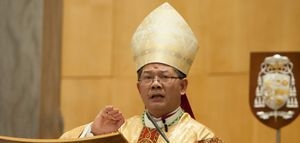
Homily for the Easter Vigil in the Holy Night in Year A 2017 at St Patrick’s Cathedral, Parramatta. Extract from Catholic Outlook, published here 25 May 2017
My dear friends, It is a great privilege for me to celebrate this first Easter Vigil Mass with you as your bishop. I’d like to welcome you warmly to our Cathedral as you have welcomed me to this great diocese. I’d like to welcome the RCIA candidates who will shortly be initiated into the full communion with the Church. With all the bad publicity around, one wonders if it is a good time to remain a Catholic, let alone to become one. Yet, here you are a proof, not of the Church’s success, but of God’s power in human weakness. I want to thank you for living out your faith in a challenging environment. We have faced many challenges before: persecution, hardship, division, unbelief, hostility etc. But perhaps never in the history of the Church in Australia and in the Western world generally, have we ever faced the challenge of epic proportions like the current crisis. It strikes at the heart of the Church. It exposes the deep-seated cultural malaise of the institution. Some would even say that the Church is sick to the core. Like the parable in the Gospel, we leaders in the Church at times have given the battered children stone instead of bread, snake instead of fish. No wonder many are disillusioned and have walked away. We have to admit that we have drifted from the kingdom vision of Jesus. Instead of demonstrating that fundamental ethos of care for the most vulnerable, the Church has been shown to care primarily for its own security, reputation and interests. Like the parable in the Gospel, we leaders in the Church at times have given the battered children stone instead of bread, snake instead of fish. No wonder many are disillusioned and have walked away. The Gospel tonight speaks of the frustration and disillusionment of the disciples as they find an empty tomb instead of their Master. Perhaps, their experience is not unique. Many also search for Jesus in the Church and instead find it empty and void of life and love. It is incumbent on us especially as leaders and ministers to gain your trust and to make the Church again the place where people can meet and experience the risen Lord. In order for us to be like the re-gathered community in which the Easter Christ was encountered, we need to embrace and live fully the paschal rhythm. It is the most fundamental call of the Gospel. We cannot live life to the full if we gloss over the inconvenient truths about ourselves. As the Church, we need to die to that which is not of Christ in order to rise again to all that Christ and his Gospel stand for. We need to die to being an experience of exclusion and condemnation and to rise to being an encounter of radical love, inclusiveness and solidarity. We need to die to worldly power in all its forms and rise to the Christ’s subversive way of simplicity, vulnerability and powerlessness....(more) Photo: Catholic Outlook
Francis has taken a dramatically different approach to speaking about gay and lesbian people than previous popes, who emphasized homosexuality as an “intrinsic moral evil". Extract from John Gehring, subscription journal La Croix International, 25 May 2017
Over the past several weeks, I’ve been in Chicago and San Francisco talking to LGBT Catholics and hearing from theologians, Catholic school leaders, parents, and others about how the church can do a better job reaching out to and learning from gay Catholics. One of the most hopeful messages I heard came from a Catholic bishop appointed by Pope Francis. “In a church that has not always valued or welcomed your presence, we need to hear your voices and take seriously your experiences,” Bishop John Stowe of Lexington, Kentucky, told several hundred participants at the New Ways Ministry gathering in Chicago last month, “LGBT Catholics in the Age of Pope Francis"...(more)
Bishop Peter Shao Zhumin of Wenzhou was summoned to the religious bureau and has not returned.
Extract from ucanews.com reporter, Hong Kong, China, 25 May 2017
A Vatican-approved bishop has been detained by Chinese officials for the fourth time since he was confirmed Bishop of Wenzhou last September. Bishop Peter Shao Zhumin of Wenzhou in Zhejiang province was detained May 18, a month after he was briefly locked up during Holy Week. Bishop Shao has been placed under detention or removed from the diocese four times since he automatically succeeded Bishop Vincent Zhu Weifang, his predecessor, who died in September 2016....(source)
Extract from John Warhurst, Pearls and Irritations, John Menadue website, 25 may 2017
Catholics must stand up and become active citizens not loyal subjects within their own church community. The Royal Commission into Institutional Responses to Child Sexual Abuse has pointed to weaknesses in culture and governance within the Catholic Church in Australia. Within the church the normal tenets of liberal democracy, including inclusiveness, transparency, equality and responsiveness do not apply. The church hierarchy has responded in various ways to the revelations of the Royal Commission, including apologies, liturgies of lament, reparations and promises of new child safety regulations. But the bishops show no inclination to tackle these structural and cultural issues, so it is up to the Catholic laity to do so. This is the strong message of Francis Sullivan, the lay head of the church’s Truth, Justice and Reconciliation Council. Unfortunately, historically the Catholic Church is not a community in which its lay members are called on to play such a role. Instead as Bishop Vincent Long of Parramatta has pointed out on several occasions recently the church is a pyramid in which the ordained clergy are at the pinnacle and the laity at the bottom. Catholics have been brought up to the constant refrain that the church is not a democracy. They are dissuaded from challenging its undemocratic structures and urged to accept church discipline from the top....(more)
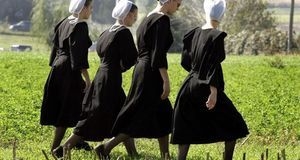
Supporting values that the majority of people have rejected makes us irrelevant
Extract from Mark Patrick Hederman*, The Irish Times, 16 May 2017, republished here 25 May 2017
The Catholic Church, as well as everyone else, must understand that the world was hit by a cultural tsunami in the 20th century. We must humbly begin to pick up the pieces and put them back together again. The 20th century was a crucible. The world which has emerged from this time-machine is changed, changed utterly. There is no going back; our only way is forward. Discovery of the world of the unconscious; full acknowledgement and acceptance of the dimension of femininity, both inside and outside of ourselves, with all this implies in terms of gender balance and sexual diversity; recognition of the immensity of scientific discovery; and humble apprenticeship in a laboratory of ever-expanding technology; these are some of the characteristics required for access, capability and survival in the new world we have inherited. It is as if our world were precariously poised, metaphorically speaking, on two tectonic plates as far as socio-political awareness is concerned. On the one hand you have the more advanced and sophisticated cultures, such as many of us in the so-called “first world” enjoy, where democracy has become the accepted idiom. Then you have the Catholic Church, and many others who, in certain respects, have not yet moved out of the nineteenth century. But, at this time, it is as if these two tectonic plates were on the move. The place where they could meet is called a plate boundary. Plate boundaries are commonly associated with geological events such as earthquakes. When previous tectonic plates separated, some millions of years ago, the cliffs of Moher on the west coast of Ireland represented one half of the divide and Nova Scotia in Canada became the other, with the Atlantic Ocean in between. We may have to experience an even greater divide if the two tectonic plates I have been describing collide before the Church realises that such danger is imminent. Dr David Barker, responsible for the 2004 Report of the Church in America, refers to the “perceived wisdom that culture change takes 200 years in the church. This is no longer an acceptable point of view; it is an excuse for inaction,” he warns. The Catholic Church in Ireland has probably five or, at most, 10 years to take these realities on board before being reduced to a tiny irrelevant minority. We have been slow to appreciate what the Pope’s core revolutionary strategy is. Francis is convinced that what is required for the third millennium is a “synodal church”, in which there is free and open debate and consultation. We don’t belong to a global organisation as such – we are part of an organism [wherever two or three are gathered in my name, I am there with them]....(more) Image: Amish, The Irish Times, Getty Images. *Mark Hederman is a monk of Glenstal Abbey in Limerick. His latest book is The Opal and the Pearl, Towards a Gyroscopic Ethics, Dublin,
The Church is enjoying robust growth in Africa yet faces several challenges. “African Catholicism remains on the margins of global theological thinking,” an expert told "La Croix".
Extract from Élise Racque, subscription journal La Croix International, 20 May 2017
How big is the Catholic Church in Africa? Vatican data revealed in 2015 that there were a little more than 222 million Catholics in the continent – one in every five inhabitants – representing 17 percent of all the word’s Catholics. That’s two percent more than in 2010.....(source)

(Ed: News and opinion piece with further insight into the thinking of Pope Francis's 'Magellan's gaze')
Extracts from Massimo Faggioli, La Croix International, 15 May 2017. Extracted here 20 May 2017
Pope Francis will receive US President Donald Trump on May 24th at the Vatican in an audience that could be like no other in the previous history of US-Holy See relations...........There are clearly two different worldviews at play..............For instance, Trump represents nothing of the “compassionate conservatism” espoused by the previous Republican president. In fact, Trump is neither compassionate nor conservative. Second, if there is a Catholic influence on Mr. Trump, it is certainly not one that is theologically aligned with Pope Francis. Among American Catholics closest to the current US administration, there are certainly the Knight of Columbus. They were among the most enthusiastic supporters of the executive order on religious liberty the president signed on May 4. In contrast to all this, there is Pope Francis’ worldview, which can be synthesized – in the pope’s own words – as “Magellan’s gaze”. “In the measure in which we go out from the center and distance ourselves from it, we discover more things and, when we look at the center of these new things that we have discovered, new places, from these peripheries, we see that reality is different,” Francis said in a 2015 interview with the Argentine shantytown newspaper, La Carcova News. “One thing is to observe reality from the center and another to see it from the last place where you arrived,” he said. “An example: Europe seen from Madrid in the 16th century was one thing; however, when Magellan arrives at the end of the American continent, he sees Europe from a new point reached and understands another thing,” the pope concluded. In this geopolitical view, the center is redefined by the peripheries. This is true for the two centers of power, Rome, and the United States, which will be in play at the May 24th audience. The pope who is trying to bring an end to a “Rome first” mentality within Catholicism will be meeting with the president who inaugurated his term in office with a fiery “America first” speech.....(more) Image: Ferdinand Magellan, cebudailynews.enquirer.net
It has been a particularly “European” week for Pope Francis including his May 16 and 17 meetings with the leadership groups of the various institutions representing the bishops of the European continent. The pope on Tuesday, May 16, met at his Santa Marta Residence with the Permanent Committee of the Commission of the Bishops’ Conferences of the European Community (COMECE). This body comprises delegates from the bishops conferences of the member countries of the European Union. Rethinking Europe: Led by its president, Cardinal Reinhard Marx of Munich, who is also president of the German Bishops’ Conference, the COMECE delegation’s purpose was to brief Pope Francis about a dialogue on “Rethinking Europe” that is being organized in Rome in collaboration with the Holy See from October 27-29. “’Rethinking Europe’ is intended to be the beginning of a process of dialogue between representatives of the Churches (bishops and lay people) [Editor's emphasis] and the politicians who direct and bear political responsibility,” explained Cardinal Marx. The Rome Dialogue also aims to promote deeper reflection on the future of the EU in a bit to reawaken the enthusiasm shared by Pope Francis, who will also take part in the dialogue, in his various talks, the cardinal added. On Thursday, May 19, the pope also hosted the leadership of the Council of the Bishops Conferences of Europe (CCEE), which comprises all the presidents of the bishops conferences of Europe......The new CCEE leadership group, which was elected in October 2016, is planning to focus on “the issue of secularization, which presses us towards a renewed evangelization of our Churches and our countries", explained Cardinal Bagnasco......“Even more than that, the Church also loves the continent with its wealth of history, tradition, cultures and peoples who each wish to preserve their own identity as well as meet together in a spirit of unity and communion.....During each of these meetings, Francis will have heard a double European credo, namely the defense of the European Union in quest of a new lease of life (a project promoted by COMECE), and that of a Europe of peoples going beyond the EU. The latter is encouraged by the CCEE.....(more)
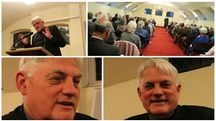
Extracts from Media and Communications Office, Catholic Archdiocese of Melbourne, Friday 19 May, 2017
On Thursday evening, before a packed out assembly gathered at Newman College on the Melbourne University campus, visiting Benedictine monk Mark Patrick Hederman delivered the Helder Camara Lecture. Mark Hederman has been a monk of Glenstal Abbey in Limerick for over 40 years, the last eight as Abbot. He has also been headmaster of the school attached to the Abbey......Father Mark’s lecture was titled ‘The opal and the pearl: Exploring a Christian spirituality for our times.’...The theme developed by Fr Hederman is that we are living, in the 21st century, in what he called a ‘cultural tsunami’, in which much of the ‘worthy architecture’ of our lives has been swept away, leaving us, as Christians, in a vacuum. As Catholics we are, he compared, like his native Ireland, referred to once as ‘an island of virtue in a sea of vice.’ Developing the maritime theme further, he reflected that, today, it is more as if we were journeying on the Titanic, in which the infrastructure that has, until now, kept us afloat (he was referring to the Church) is no longer useful. In fact, he warned, we are heading for an iceberg. Fr Hederman stated that this is an iceberg we could have avoided if we were really in contact with the actual world, as it is around us, he emphasised, instead of clinging unshakeably to structures that now appear to be failing to represent what we truly are. God has created us as human flesh, he pointed out, and every one of us aspires, indeed yearns, to live a life that is fully human. This tells us surely, he continued, that God, our loving Creator, must also want us to be fully human. So our culture is, or should be, said Fr Mark, a co-operative work between ourselves and the Holy Spirit, a creative work, a work that is ‘a ‘a procreation of eternity and time.’.....(more) Photo: Melbourne Catholic
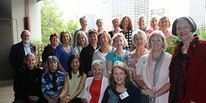
Extracts from CathNews, The Southern Cross, 19 May 2017
Clergy care co-ordinators could help priests come to terms with the child sexual abuse scandal, says Fr Greg Bourke, national director of the Office for Clergy, Life and Ministry, reports The Southern Cross. Fr Bourke, who addressed the Clergy Healthcare Network Conference in Adelaide last month, said clergy care co-ordinators have an important role to play in helping priests by listening to how they have been affected by the scandal. He likened the effect of the scandal on priests to a failed marriage, in so far as one partner feels betrayed by the other and can’t believe they didn’t know that the person they were living with was having an affair. “We often hear clergy say ‘but these men were my friends, we studied together, we holidayed together and I never knew’,” said Fr Bourke. “All of those affective emotions that a married person would conceivably experience can be conditionally translated to how a clergy person might be affected.” Fr Bourke said for many members of the clergy the Royal Commission into Institutional Responses to Child Sexual Abuse had “rubbed our noses in it” and “we don’t like the affect it is having on us emotionally, mentally and spiritually”. To prevent priests from moving too quickly to “defence mechanisms”, Fr Bourke said clergy care health workers could be positive agents......Fr Bourke said many priests were tempted to “shrink, draw down and lose their sense of worth”......Some reacted by refusing to visit schools or engage with children, even though child safeguards and policies provided them with a framework for appropriate interaction such as having contact with children when there were other adults around. Fr Bourke said priests needed to understand that the norms and guidelines for working with children could help them to “flourish”.....(more) photo: Cathnews
Edited Extract from Staff, Crux, 19 May 2017
While the coordinator of the pope's 'C9' council of cardinal advisers has dismissed American Cardinal Raymond Burke as a 'disappointed man' upset with his loss of power, emeritus Pope Benedict XVI has defended Cardinal Robert Sarah of Guinea as someone with whom the Church's liturgy is in "good hands."....Maradiaga’s comments on Burke came in a new interview book with his fellow Salesian, Father Antonio Carriero, titled Solo il Vangelo è rivoluzionario (“Only the Gospel is Revolutionary”), published in Italy by Piemme......Maradiaga also criticized conservative schools of thought in Catholicism, of which Burke is often seen as a symbol. “These currents of the Catholic right are persons who seek power and not the truth, and the truth is one,” he said. “If they claim to find some ‘heresy’ in the words of Francis, they’re making a big mistake, because they’re thinking only like men and not as the Lord wants. “What sense does it have to publish writings against the pope, which don’t damage him but ordinary people? What does a right-wing closed on certain points accomplish? Nothing!..... ....Benedict’s vote of confidence is all the more striking given that when he resigned the papacy in February 2013, Benedict vowed to remain “hidden from the world,” and has rarely broken his silence since. The fact that he chose to do so now, many observers believe, reflects both his passion for the liturgy and also his support for Sarah....(more)

Extracts from Crux, Catholic News Agency, 18 May 2017
Following recent cyber attacks through a form of ransomware called “WannaCry” that have targeted more than 150 countries throughout the world, Russia is hitting back by blessing computers. Patriarch Kirill of the Russian Orthodox Church will bless computers and servers with holy water......Aside from prayer and holy water, tech experts recommend avoiding cyberattacks by keeping computer software up to date....(more)
Extracts from CathNews, 18 May 2017
The need for the Church to be inclusive, open and adaptable was canvassed on the final day of a three-day mission conference held in Sydney, Catholic Mission reports. Catholic Social Service Australia's Fr Frank Brennan SJ gave the closing keynote of the Mission: One Heart Many Voices conference, sponsored by Catholic Mission and Catholic Religious Australia. Fr Brennan's address tied together many of the diverse themes and elements of the conference, including reconciliation, mercy, leadership for mission and indigenous advocacy.....Charged with the task of presenting a vision for the Church, Fr Brennan reiterated Pope Francis’ assertion that we will not in the future see the Church as a “perfect society”. "We are all members of a Church that has failed its most vulnerable," he said. "We are all in need of forgiveness." Fittingly, Fr Brennan’s way forward was a nod to those who had spoken before him: "For us to be a Church of mission in 2030, we must provide a place at the table for all ... for indigenous people, for women, for refugees and for the abused. We must be adaptable and open to change."...(more)
Extract from CathNews, The Age, 18 May 2017
Cardinal George Pell maintains he is innocent of historical child sexual assault allegations, The Age reports. Speaking to reporters in Rome yesterday, Cardinal Pell reiterated his rebuttal of all the allegations of abuse made against him, saying he would "just like to restate my innocence". "I stand by everything I have said at the royal commission [into institutional responses to child sexual abuse] and in other places," he said. "We have to respect due process, wait until it is concluded and obviously I will continue to co-operate fully." Meanwhile, Sydney Archbishop Anthony Fisher OP has defended Cardinal Pell from "relentless character attacks" in relation to the allegations. In a strongly worded statement yesterday, Archbishop Fisher said Cardinal Pell was entitled to the presumption of innocence. "It is unfortunate that in the very week this happens, media and authors publish and repeat allegations, some of which have already been thoroughly answered. This cannot assist the impartial pursuit of justice. What is clear, however, is that Cardinal Pell has co-operated in every way with multiple police, parliamentary and royal commission investigations," he said....(more)
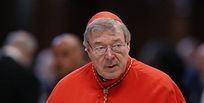
Extract from CathNews, The Australian, 17 May 2017
The decision on whether to charge Cardinal George Pell with historical sexual abuse allegations now rests with Victoria Police after the Office of Public Prosecutions yesterday returned the brief of evidence, The Australian reports.
A police spokesman confirmed advice from Victoria’s Director of Public Prosecutions, John Champion SC, had been received. “Detectives from Taskforce Sano will now take time to consider that advice,” police spokesman Charlie Morton said last night. “As with any investigation, it will be a decision for Victoria Police as to whether charges are laid.” Cardinal Pell has strenuously denied all allegations. It is understood the latest development took lawyers for the Cardinal by surprise. This was the second time a brief of allegations concerning Cardinal Pell had been sent to the OPP. A brief was referred last year but the OPP sent it back without recommendations. Meanwhile, the head of the child sexual abuse royal commission has cautioned every major Australian church to better protect children or risk illegitimacy, reports ABC News. In a speech to the National Council of Churches, the Royal Commission into Institutional Responses to Child Sexual Abuse chair, Justice Peter McClellan, urged religious leaders to act on his recommendations. "What we can be certain of is that any institution which does not acknowledge past wrongs and the need for change will lose the confidence of Australians," he said via a recorded video....(more) Photo: CathNews,
There are already cases of religious affairs officers deleting retweeted news about local church issues.
Extract from La Croix International, ucanews.com reporter, Hong Kong, China. 17 May 2017
Catholic webmasters are feeling claustrophobic a month before China's new internet regulations come into effect.
The Cyberspace Administration of China issued the Provision for the Administration of Internet News on May 2. It requires online outlets using mobile apps, forums, blogs, instant messaging or webcasts as a medium to be licensed or face prosecution. No one can produce, reproduce, publish or disseminate any prohibited information. News content providers and readers must register using their real names, according to the provision. Though the regulation will come into effect on June 1 the tighter censorship has already been felt. A church media source operating outside China uses WeChat to reach mainland readers but has failed repeatedly to avoid censorship when uploading audio-visual programs recently....(more)
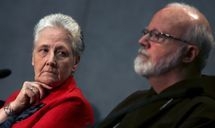
Extract from John Allen, Inés San Martín and Claire Giangravè, Crux, 16 May 2017 On Saturday, Pope Francis called Marie Collins, an abuse survivor who recently quit his Pontifical Commission for the Protection of Minors citing Vatican resistance to reform, a "great woman" and said she's "right on some things." In a Crux interview, Collins expressed gratitude but also said that the Church still needs uniform global standards and a way to hold bishops accountable. A survivor of clerical sexual abuse and a former member of a panel created by Pope Francis to lead the reform effort said Monday that while she’s grateful for positive things the pope said about her over the weekend, she also wants the commission to push back against perceived Vatican resistance to reform that she insists led her to resign. Marie Collins, an Irish lay woman, told “The Crux of the Matter” on the Catholic Channel, carried by Sirius XM, “If resistance continues, then the commission itself should speak. It shouldn’t be up to one member having to resign to make it public. “If there is resistance, it’s got to be overcome, because there’s no place for resistance to change when it comes to child protection,” Collins said. During his return flight from a trip to Fatima on Saturday, Pope Francis was asked about Collins’s resignation from the Pontifical Commission for the Protection of Minors, a body he created to advise him on reform efforts regarding clerical sexual abuse. “Marie Collins explained things to me well,” he said. “I’ve spoken with her: She’s a great woman. She continues to work on the formation of priests on this point. She’s a great woman, who wants to work. “She’s right on some things,” Francis acknowledged......(more) Photo: Crux, CNS photo/Alessandro Bianchi, Reuters.
Extract from Christopher Lamb,The Tablet, 16 May 2017
The potential for clashes between Francis and the President are ripe given their diametrically opposed views on migrants and the environment. The Pope says he will be 'sincere' with Trump ahead of historic meeting. They are two of the most captivating figures in global politics with bold, populist and radically differing visions about how to deal with the crises facing the world. On Wednesday 24 May, Pope Francis and President Donald Trump will meet for the first time in a hotly anticipated encounter with the potential for fireworks. At 8.30am, inside the grand, frescoed halls of the Vatican’s apostolic palace, the President of the United States will be brought into the same room as the Latin American pontiff where the pair will have a private discussion. The Holy See are anxious to ensure the papal audience runs smoothly - and without any dramas - while the White House hope the meeting will show a statesmanlike Trump as he makes his first foreign trip abroad. His meeting with the Pope comes as part of a tour where he will meet world leaders in Sicily and pay his respects world’s three major religions. Along with Rome he is going to Israel and Saudi Arabia. But the potential for clashes between Francis and the President are ripe given their diametrically opposed views on migrants and the environment. When Trump was campaigning the Pope said he was “not Christian” for wanting to build a wall on the US-Mexico border with the then republican candidate hitting back describing Francis’ remarks as “disgraceful.”....(more)
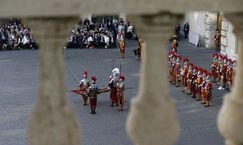
Extract from By Massimo Faggioli, Subscription journal Comminweal, 11 May 2017
Il Tevere è più largo. Students of Italian history are familiar with the metaphoric expression describing the ever-growing distance between the Vatican and Italian politics: “The Tiber has become wider.” The distance between the papacy and the country it once ruled has been recalculated under every pontificate since the kingdom of Italy came into being in 1861. And under Pope Francis, the Tiber is perhaps the widest it’s been, thanks to his papacy’s hands-off attitude towards Italian politics. But the widening of the Tiber is little compared to the spreading of the world’s oceans. The “Catholic Pangea” itself is breaking up, undergoing a kind of continental drift. The expanding gap between Rome and the world is perhaps best symbolized by the growing distance between Rome and the U.S. Catholic church, itself owing to the uncomfortable relationship between Francis and many American bishops—among other things. First, there’s a gap in time between American Catholicism and the pontificate of Francis—not just the six- or nine-hour differences in time zones but what seems like a six- or nine-century difference in historical time. Institutional American Catholicism is longing for a relationship to a political power that is more medieval than modern or postmodern, hoping for protection from the persecution it feels in having lost cultural hegemony.....But beyond the “Christian America vs. secularized Europe” narrative there is a larger reality: both the U.S. and Europe are becoming more marginal, politically and in terms of global Christianity. This is even more true for Italy, and for Rome. Despite all-Francis, all-the-time media coverage of the pope, the role of Rome has changed for Catholics. The connection is now more emotional than intellectual, more spiritual and mystical than theological. What Francis does in Rome, what happens at the Vatican today, has less of an institutional impact on the lives of Catholics worldwide, including (if not especially) American Catholics.....(Source) Photo: Commonweal, CNS
The reformers recalled the so-called “Lobinger model” put forth some two decades ago by Bishop Fritz Lobinger of South Africa. He suggested that mature married men should only gradually be introduced into committed parishes.
Exreact from Christa Pongratz-Lippitt, subscription journal La Croix International, 11May 2017
An internationally renown group of reform-minded priests in Austria has criticized the world’s bishops for not capitalizing on Pope Francis’ openness to make significant changes in Church ministry and pastoral practice. The Austrian Priests’ Initiative (API) is urging the bishops to take up the leeway the pope has given them to look at such issues as the possibility of ordaining married men of proven virtue (viri probati) to the priesthood, women to the diaconate and allowing remarried divorcees to receive the Eucharist in certain cases. At a press conference in Vienna on May 4th, the API, which was founded in 2006, said Francis had opened door after door for a new way of dealing with these urgent questions in our Church.....(more)
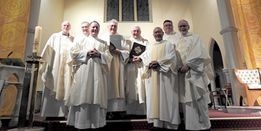
Extract from CathNews, 10 May 2017
The Australian Bishops officially launched new norms and guidelines for the permanent diaconate during their plenary meeting in Sydney on Monday, reports the ACBC Media Blog. Columbans. Deacon Tony Aspinall, National Co-ordinator of the Permanent Diaconate joined Bishop Peter Ingham, Outgoing Chairman of the Bishops Commission for Church Ministry, to launch the guidelines following a special Mass with deacons at Mary MacKillop Memorial Chapel in Sydney. Deacons Tony Hoban and Roberto Corpuz joined the bishops at the launch along with Fr Greg Bourke, Executive Secretary of the Bishops Commission for Church Ministry. The "Norms for the Formation of Permanent Deacons and Guidelines for the Ministry and Life of Permanent Deacons" were developed by the Australian Bishops following the publication of a Vatican document providing clarity about the formation of deacons. Each bishops’ conference was encouraged to develop its own guidelines. The guidelines can be downloaded from the Clergy, Life and Ministry website.....(more) Image: Cathnews.
Extract from Christopher Lamb,The Tablet, 9 May 2017
Leo XIII’s remarks that Anglican orders are “absolutely null and utterly void” have been a major stumbling block to Catholic-Anglican unity. Anglican orders not 'invalid' says Cardinal, opening way for revision of current Catholic position. One of the Vatican’s top legal minds has opened the way for a revision of the Catholic position on Anglican orders by stressing they should not be written off as “invalid.” In a recently published book, Cardinal Francesco Coccopalmerio, President of the Pontifical Council for Legislative Texts, calls into question Pope Leo XIII’s 1896 papal bull that Anglican orders are “absolutely null and utterly void.” “When someone is ordained in the Anglican Church and becomes a parish priest in a community, we cannot say that nothing has happened, that everything is ‘invalid’,” the cardinal says in volume of papers and discussions that took place in Rome as part of the “Malines Conversations,” an ecumenical forum. “This about the life of a person and what he has given …these things are so very relevant!” For decades Leo XIII’s remarks have proved to be one of the major stumbling blocks in Catholic-Anglican unity efforts, as it seemed to offer very little room for interpretation or revision. But the cardinal, whose department is charged with interpreting and revising Church laws, argued the Church today has a “a very rigid understanding of validity and invalidity” which could be revised on the Anglican ordination question....(more)
Extracts from Melbourne Catholic, Media and Communications Office, Monday 8 May 2017
In Toowomba on the weekend, the CEO of Catholic Social Services Australia, Jesuit priest Frank Brennan, delivered the annual John Wallis Memorial Lecture. Billed as a reflection on how Catholic social teaching and the leadership of Pope Francis can help us to find meaning in a chaotic and changing world, Fr Brennan addressed a number of issues facing the Church in Australia today. He also considered how the Federal Budget could be tailored to meet the needs of all Australians, including the poor and the marginalised.....Addressing the crisis of vocations in the Church today, in Toowoomba as in the broader Western church, Fr Brennan was optimistic that the Church is heading in new directions, ‘new pastoral ways of being Church.’ Referring to Martin Flanagan, who gave the John Wallis Lecture in 2012 and who confessed then to never having 'got' the Catholic Church, Fr Brennan said he is excited to find there are many people, especially young people, who do 'get it'. In particular, he referred to the passionate emphasis on social justice he sees in the community. ‘It’s as if there’s a Catholic spirit in the world,’ he said, ‘that exists independently of the leadership of the Catholic Church. I think many more people are now ‘getting’ the Roman Catholic Church, even people who thought it was well beyond their interest or concern.’ Much credit for this, stated Fr Frank, goes to Pope Francis, a man he described as theologically orthodox, politically conservative, comfortable in his own skin, infectiously pastoral and truly committed to the poor. Fr Brennan pointed to Pope Francis as a good example of how we find meaning in a chaotic and challenging world. 'Pope Francis has no time whatsoever for the notion of the Church as a perfect society,’ he said. Quoting the Pope, Fr Brennan said, ‘The thing the Church needs most today is the ability to heal wounds. The Church is not a tollhouse, it is the house of the Father where there is a place for everyone.’ He candidly admitted that many of us, himself included, are confronted by the sexual abuse scandal within the Church. ‘The Royal Commission hearings have left us with heavy hearts.’ It’s a paradox, observed Fr Frank, that we all dare to profess the highest ideals, while at the same time being lowly sinners.....(more)
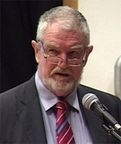
Edited Extracts from Brian Coyne, Editor Catholica, 8 May 2017
Attracting much comment on Catholica over recent weeks has been Archbishop Mark Coleridge's bleak prediction that "mass, civic Christianity is finished" [HERE]. Today we bring you some of the bleak statistics in a high quality video presentation by the Catholic Church's official sociologist and demographer, Dr Bob Dixon, to back it up. Our lead commentary today consists of the presentation Dr Dixon gave to the St Thomas More Forum in Canberra last Wednesday evening, and a written report on his presentation. This is "must read" information for anyone wondering about what the future for Catholicism is in Australia, and for those who are interested in trying to alter these bleak predictions.
Dr Bob Dixon's address to the St Thomas More Forum, Campbell, ACT
Church demographer outlines a bleak future for the Catholic Church in Australia
Dr Robert (Bob) Dixon has been running the Pastoral Research Office (PRO) for the Australian Catholic Bishops' Conference since it was established in 1996 until his recent retirement as Executive Director. He continues to work for the Research Office and the Australian Bishops as a consultant sociologist and demographer. In a ground-breaking address he delivered in Canberra last week to the St Thomas More Forum, he outlined the bleak future for the Church in Australia over the next decade and a bit. He predicts the participation rate of Catholics regularly attending Mass will fall to around 5% of the total number of adult Catholics in the nation before 2030. His research suggests Confession will be a thing of the past for most Catholics. His research also suggests the remaining congregations of religious brothers will disappear completely and there will be few nuns still serving the Church by 2030.....More Image: Dr Bob Dixon, Catholica

Extracts from Andrew Hamilton SJ, Eureka Street, 4 May 2017
The government and the Catholic Church both face difficulties when commending values. The difficulties will dog events during the next week in which both institutions are on public display — the bringing down of the budget and the meeting of the Australian Catholics Bishops Conference. In each case the difficulty has its roots in defects of governance: a lack of leadership, authority, transparency and inclusiveness. When the government appeals to values with respect to the Australian community or education, its appeal is commonly assumed to mask electoral self-interest and internal party conflict. That underlying its rhetoric is a lack of transparency, inclusiveness and authority is taken for granted. When representatives of the Catholic Church appeal to values in public life, in sexuality and in education, their appeal is often thought to mask hypocrisy — the assertion of high values that it does not practice — and amnesia about its record of betrayal of the principles of good governance in its exercise of authority. The revelations of the royal commission into child abuse hangs over the bishops' meeting. Both the government and the Catholic Church will be tempted to carry on business as usual, postponing any concerted attempt to deal with the issues of governance they face until the election and the handing down of the findings of the royal commission respectively. I believe that to delay would be a mistake, especially in the case of the Catholic Church. Even before the royal commission's report is made public there is enough known about the extent, causes and right responses to sexual abuse in the church, and sufficient work done on protocols and safeguarding children to enable an initial response by the whole Australian church. The question Australians, including many Catholics, ask is whether the bishops and other public representatives of the Catholic Church have the stomach for the changes in governance needed to address the factors that led to child abuse. Delaying action until swamped by the harsh criticism that can be expected from the royal commission will make that action appear too expedient, too little and too late.....(More) Image: Eureka Street

Report to the Bishops of Australia on an Open Letter from Catholics of Australia
Thursday 4 May, 2017
Catholics For Renewal submitted a Report on the Open Letter to all the Australian bishops during the evening of Tuesday 2nd May, with signatures up to that date to enable its consideration at the Australian Catholic Bishops Conference. The Conference plenary session meets 4 - 11 May 2017. We also published the Report to bishops on this Website today where it is available for download (HERE). Thanks to all who have considered and signed the Open Letter and particular thanks to all the PPs, assistant priests and other parish people who have organised the completion and return of HARD COPY signatures. A number of priests showed considerable commitment to ensuring that their parishioners were made aware of the Open Letter and given the opportunity to consider it. Please post any outstanding forms as addressed on the form, or email them to info@catholicsforrenewal.org We have advised the bishops that we will be continuing to accept written signatures and online signatures and comments, and that we will further advise them of details to keep them informed on thinking of Australian faithful. The Open Letter remains available for consideration, online signing and optional inclusion of comments HERE.

By Jonathan Merritt 2 May, 2017
For the last decade, church experts have been wrestling over the best ways to reach and retain “millennials,” which is a phrase the describes individuals born from the early 1980s through the mid-1990s. Data shows that many millennials leave the church during their college years, and some never return. The fastest growing religious identifier among this generation is “spiritual but not religious.” But as millennials age, get married, and start families, they are no longer the only “young people” that churches must consider. A new cohort has risen: “Generation Z” or individuals born between the mid-1990s and early 2000s. Generation Z diverges from millennials in many ways and presents unique challenges and opportunities for churches who hope to capture their attention. For this reason, I decided to speak with Pastor James Emery White about his new book, “Meet Generation Z: Understanding and Reaching the New Post-Christian World.” Here we discuss what sets these young people apart from their elders and what he believes it means for modern ministry, evangelism, and apologetics....(more) Photo:

Parish responds to Pope's call
Extract from CathNews, 2 May 2017
Inspired by Pope Francis's call for parishes across the world to take in asylum-seekers, one group is celebrating a year in operation, Melbourne Catholic reports. Encouraged by parish priest Fr Dennis Rochford, St Bridgid's Greythorn parishioner Robert Stewart approached his fellow churchgoers 18 months ago, asking how they could best respond to the Pope's request. Thirty people put their names down to be involved in what would emerge as St Bridget’s Refugee Action Group, now a partnership between St Bridget’s and St Dominic’s in Camberwell, to provide secure accommodation and support to an asylum seeker family. The group is now celebrating one year in operation. Sr Brigid Arthur from the Brigidine Asylum Seekers Project educated the group on refugee and asylum-seeker issues and various categories of need, which refocused the group’s efforts on asylum-seekers. Sally-Anne Petrie from CatholicCare’s Asylum Seeker Support Program offered training and input to develop the group’s guiding principles. Xavier College in Kew offered its hall for a fundraising event in which over $16,000 was raised. The funds allowed St Bridget’s to partner with St Dominic’s in sharing the cost of a rental property in Box Hill, which has been home to an asylum-seeker family for nearly 12 months....(more) Photo: Cathnews, Bigstock photo
Don't say 'we have always done things this way'
Extract from Robert Mickens, Commonweal, 1 May 2017
Pope Francis, the pontifex maximus, went to Cairo on the latest and perhaps most important mission of his four years as Bishop of Rome to try to “build bridges of peace, dialogue, fraternity, justice, and humanity.” Those were the very words he used in a video message to the people of Egypt just days before his brief, Friday-Saturday visit to the nation’s capital.......“The ‘always done this way’ phrase has done so much damage in the Church, and it continues to do so much damage to the Church,” he added. “We must always be changing because time changes. The only thing that does not change is what’s essential. What doesn’t change is the announcement of Jesus Christ, missionary attitude, prayer, the need to pray, the need to be formed, and the need to sacrifice. That does not change. You have to find the way, how to do it, but it does not change,” said Pope Francis. Connected to this, he said, was a fixation some Catholics have who want to “regulate things and not allow freedom.” He pointed to the twenty-third chapter of St. Matthew’s Gospel where Jesus calls the “fixated” religious leaders of his time hypocrites....(more)
[Ed: sound familiar? See Evangelii Gaudium, para 33.]:
“33. Pastoral ministry in a missionary key seeks to abandon the complacent attitude that says: “We have always done it this way”. I invite everyone to be bold and creative in this task of rethinking the goals, structures, style and methods of evangelization in their respective communities. A proposal of goals without an adequate communal search for the means of achieving them will inevitably prove illusory. I encourage everyone to apply the guidelines found in this document generously and courageously, without inhibitions or fear. The important thing is to not walk alone, but to rely on each other as brothers and sisters, and especially under the leadership of the bishops, in a wise and realistic pastoral discernment.”
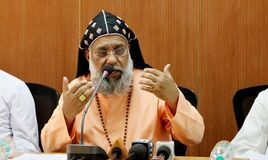
Indian Catholics frustrated over clergy sex abuse cases
Extract from Jose Kavi, National Catholic Reporter, 1 May 2017
New Delhi: A rash of recent alleged sex abuse cases involving Catholic priests in Southern India have left Christians distraught and frustrated over the local church's lack of response. More than 100 theologians, women religious, priests and feminists have written to India's bishops to demand they react quickly in accordance with the pope's call to end such transgressions. "We are trying every way to get the bishops to act. We thought this is a good opportunity," says Virginia Saldanha, a theologian who was part of the team that drafted the March 22 letter to the bishops. Astrid Lobo Gajiwala, another theologian who coordinated the letter's drafting, says the Feb. 28 arrest of a Catholic priest who allegedly raped and impregnated a young teenage girl in his parish in Kerala state spurred them to go to church authorities. Police apprehended Fr. Robin Vadakkumcherry, 48, of the Mananthavady Diocese while he was trying to flee the country after the alleged crimes. Vadakkumcherry is now in jail awaiting trial, police said. Fr. Thomas Therakam, another priest from the diocese, and five nuns were charged for allegedly helping Vadakkumcherry cover up the scandal. The six religious, along with a few alleged lay accomplices, went into hiding to evade arrest but later surrendered to authorities and are now out on bail. The case outraged members of several Catholic religious and justice groups. They wrote to Cardinal Baselios Cleemis, president of the Catholic Bishops' Conference of India, saying they were "deeply concerned about the integrity and mission of the Indian Church."....(more) Photo: NCR, CNS/Anto Ankara
Extract from Mark Metherell, Media release, Concerned Catholics of the Camberra-Goulburn Archdiocese, 28 April 2017
More than 200 Catholics meeting in Canberra last night strongly supported reforms to give the laity more power in the running of their church. The standing room only event called on Archbishop Christopher Prowse, who attended but did not address the gathering, to take the reform message to next week's meeting of the Australian Catholic Bishops’ Conference. The gathering was convened by the recently formed Concerned Catholics of Canberra-Goulburn Archdiocese group to press for changes that propose a big boost to lay representation, including women, in church decision-making, and the establishment of a diocesan pastoral council with significant lay membership. The chair of the meeting, Professor John Warhurst, said today the large attendance at the meeting and the enthusiasm for change displayed by the overwhelming majority was an emphatic signal for reform. Professor Warhurst put to the meeting a motion which asked if those attending supported the general goals of greater accountability, inclusiveness, transparency, women's participation in decision-making, lay leadership and collaborative working towards a reform agenda in the Archdiocese and more broadly. This was passed with an overwhelming majority show of hands.....(more)
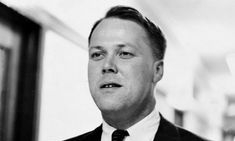
Catholic theology owes John Noonan a debt of gratitude
Extract from Fr. Charles E. Curran, National Catholic Reporter, 2017
The opening sentence of The New York Times' obituary of Judge John Noonan provides an excellent illustration of what a topic sentence should be. "John T. Noonan Jr., a federal judge and polymath who defied ideological pigeonholing on profound issues like assisted suicide, the death penalty, civil liberties and illegal immigration" died on April 17 at age 90. As a judge on the 9th Circuit Court of Appeals for 30 years, Noonan wrote 10,080 opinions. As a polymath, his primary area of academic interest was history, but his subjects included jurisprudence, philosophy, theology and canon law. Few people have ever achieved such academic prominence in so many different fields...... In his doctoral dissertation at Catholic University on usury, he was totally engaged in this important issue of the development of moral teaching on the issue of usury (a loan) over an 800-year period. This story was one of basis principles, response to changing circumstances, fine legal lines, and close legal reasoning — the work of human beings adopting a moral rule to changing circumstances. This study helped to distinguish a variable rule from underlying values, thus explaining how change occurred. After his study at Catholic University, he went back to Harvard for his law degree. An important aspect in his historical study of usury was the familiarity he acquired with the major figures in Catholic moral theological tradition. It prepared him for much of his future work in moral theology, especially in his subsequent work on contraception. Noonan's working on a historical study of contraception became known and he was appointed as a historical consultant to the papal commission on birth control. At its fourth session in 1964, he gave a two-hour summary of his work. In 1965, the Belknap Press of Harvard University Press published his 651-page Contraception: A History of Its Treatment by Catholic Theologians and Canonists. From this in-depth study, Noonan concluded that the Catholic teaching insisted on five important values — procreation, education, life, personality and love. "About these realities a wall had been built; the wall could be removed when it became a prison rather than a bulwark." As a careful historian, Noonan came to a conclusion that was quite modest. There was, however, no doubt where Noonan himself stood on the issue. After the issuance of the encyclical Humanae Vitae in 1968, I was the leader and spokesperson for the group of originally 87 Catholic scholars who concluded in a public statement that one could be a good Roman Catholic and still disagree in theory and in practice with the noninfallible teaching regarding contraception. Later that day, after releasing the statement, I talked to all the American lay members of the papal birth control commission, who all agreed to support the statement in light of their own competencies.....(more). Photo: NCR file photo
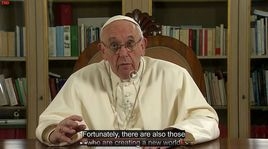
[Ed: TED video of Pope Francis HERE directly (17 minutes)]
Extracts from Keanine Griggs, Catholic News Service, NCR, 26 April 2017
...Many people in the world move along paths "riddled with suffering" with no one to care for them, the pope said. Far too many people who consider themselves "respectable" simply pass by, leaving thousands on "the side of the road." "The more powerful you are, the more your actions will have an impact on people," he said, the greater the responsibility one has to act and to do so with humility. "If you don't, your power will ruin you, and you will ruin the other." "There is a saying in Argentina," he told his audience: "'Power is like drinking gin on an empty stomach.' You feel dizzy, you get drunk, you lose your balance, and you will end up hurting yourself and those around you, if you don't connect your power with humility and tenderness." "The future of humankind isn't exclusively in the hands of politicians, of great leaders, of big companies," he said, even though they all have power and responsibility. "The future is, most of all, in the hands of those people who recognize the other as a 'you' and themselves as part of an 'us.'" ..... "Tenderness is the path of choice for the strongest, most courageous men and women," he insisted. "Tenderness is not weakness; it is fortitude. It is the path of solidarity, the path of humility." Francis also urged the crowd to hold on to hope, a feeling that does not mean acting "optimistically naive" or ignoring the tragedies facing humanity. Instead, he said, hope is the "virtue of a heart that doesn't lock itself into darkness." "A single individual is enough for hope to exist." he added. "And that individual can be you. And then there will be another 'you,' and another 'you, and it turns into an 'us.'"......More - and the17 minute video of Pope Francis (HERE) Photo: TED
Extract from Mark Metherell,The Canberra Times, 24 April 2017
Among the 150,000 or so people in the Canberra region who say they are Catholics, many are pondering the future of their church. The fallout of the Royal Commission into Institutional Responses to Child Sexual Abuse has shaken many practising Catholics who had already witnessed the steady departure of younger people from the pews. There are, however, Catholics in Canberra who seek to reinvigorate their church by pressing for changes to its management and staying true to the example of Jesus Christ. The group, Concerned Catholics of Canberra Goulburn, says the royal commission provided the grounds for profound reform of the church's administration, and of its male-dominated, clerical culture. The group seeks a strong role for the laity in church affairs to transform the often passive role of the parishioner to that of active citizens of the church. Concerned Catholics wants to encourage discussion among the laity about strengthening their voice in the church. It is holding a public meeting in Canberra on Thursday (April 27) and proposes recommendations that it hopes will be considered by Archbishop Christopher Prowse and put to the plenary meeting of the Australian Catholic Bishops Conference early next month. Throughout the commission hearings, the lack of transparency and accountability, the absence of lay participation and a culture of secrecy and non-disclosure was shown to characterise the church's administration and governance. It should be acknowledged that the church hierarchy in Canberra has demonstrated a willingness to change when it comes to child-sex abuse. Prowse submitted a 138-paragraph witness statement to the royal commission. The statement was a response to a battery of questions from the commission ranging from what reforms he had undertaken since the commission started, what policies and procedures he applied in relation to complaints of child abuse, and about the management of personnel subject to sex-abuse claims.....Concerned Catholics advocates a more inclusive church that engages laymen and laywomen in leadership and advisory roles, to bring Christ into their everyday lives by giving them a more active and involved role in their faith. An Australia-wide movement is unfolding, with groups like Catholics for Renewal circulating a national petition urging bishops to make significant changes to cultural and governance structures in the church.....Mark Metherell is a member of Concerned Catholics of Canberra Goulburn. The group will meet on Thursday, April 27, at the Australian Centre for Christianity and Culture in Barton. Speakers will include Truth, Justice and Healing Council chief executive Francis Sullivan, former NSW premier Kristina Keneally and Australian Catholic Coalition for Church Renewal convenor Marilyn Hatton...
Extract from J. A. Dick*, Another Voice (Reflections about contemporary Christian belief and practice), 20 April 2017
Reform-minded people need to change their conversation about church reform. Otherwise they end up either talking to themselves or simply repeating what everyone else has been saying for the past ten years. Changing the conversation means looking at church life in new ways and developing new strategies and patterns for church life today and tomorrow. It means thinking creatively and asking challenging and deeper questions…. Some proposals for refection: (1) Look less at the church as institution and more as a community of faith.....These are just a few thought-starters…… Creative and critical reflection is not a dangerous activity and it can be a source of life….....(more) J. A. Dick is a retired professor of historical theology.
"Catholicism today still flirts with the dangerous tendency to rely on one man only - the pope. A year-and-a-half after Francis’ speech, how many bishops and bishops’ conferences have embraced his invitation for a synodal Church?"
Extract from Massimo Faggioli, subscription journal La Croix International, 18 April 2017
There has been attention on Amoris Laetitia, Pope Francis’ 2016 apostolic exhortation that elaborates on discussions regarding marriage and the family, which took places in 2014 and 2015 within the Synod of Bishops. But something has largely been neglected. It is the reception of the pope’s focus on synodality and its importance for the Church in the world today. The day after Easter marked one-and-a-half years since Francis gave one of his most important speeches to explain the need for a synodal Catholic Church.....(source)
Most Australian Catholics have long been aware that the structures of their Church are autocratic; most were brought up accepting that Church decision making is unaccountable and often secretive, that bishops are remote from their people in their decision making, and that the views of laypersons count for little, particularly if they are women. In more recent times, Catholics have increasingly questioned this dysfunctional governance; many have walked away and many have witnessed their children walking away. The widespread disillusionment of Catholics has peaked with the revelations emerging from the Royal Commission into Institutional Responses to Child Sexual Abuse. The Royal Commission faced the question asked by many Catholics: How could the leadership of the Church behave in this way whilst continuing to espouse and teach the values of Jesus and the Gospel? Catholics are demanding reform. An Open Letter to the Australian Catholic bishops has now been launched, offering Catholics the opportunity to support the urgent reform of their Church in Australia and universally, asking their bishops: ‘Please Listen and Act Now’ (link here – http://www.catholicsforrenewal.org/open-letter).

Extract from Statement by Concerned Catholics - of the Canberra-Goulburn Archdiocese, 13 April 2017
A group of concerned Catholics are holding a public meeting in Canberra on Thursday 27 April to explore how the Catholic laity in the Canberra Goulburn Archdiocese can have an effective role and voice in the administration and direction of their Church. They invite Catholics to join them in discussion. Chair: Prof John Warhurst AO, Emeritus Professor Political Science ANU. Panel: Hon Kristina Keneally, former Premier NSW, TV host Sky News, Director Gender Inclusion Macquarie Graduate School of Management, Marilyn Hatton, Convener Australian Catholic Coalition for Church Renewal, Francis Sullivan, CEO Truth Justice and Healing Council. It's at the Australian Centre for Christianity and Culture (ACCC), 15 Blackall St, Cnr Kings Av Barton. 7.00pm, for 7:30pm - 9.30pm. Further details in Flyer HERE
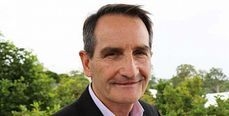
Extract from Francis Sullivan, CathNews, 12 April 2017
The official leading the Church response to child sex abuse has told a gathering of priests that “we created the abuse” and it's time for parish priests to listen to their communities, The Catholic Leader reports. “We created the abuse. That is the harsh reality,” chief executive of the Church’s Truth, Justice and Healing Council (TJHC), Francis Sullivan said, addressing about 180 priests from the Archdiocese of Brisbane attending an annual convocation. “Our culture grew the abusers and our culture protected the abusers and our culture for so long denied the victims. We didn’t listen. We didn’t believe.” In February, the commission revealed that a total of 1880 priests, religious brothers and sisters, and lay people had been identified as alleged perpetrators in abuse claims made to the Australian Catholic Church by 4444 victims. “There can be the tendency to compartmentalise that and simply say it was history. But it’s not history. We are living history. “What matters is that we have to take to heart what it is saying about ourselves. It’s terribly difficult.” Mr Sullivan said “the game has changed”, and priests must now engage in “the current realities”, including speaking directly with parishioners, some who may be abuse victims themselves, or feel angered and hurt by the Church. Mr Sullivan foreshadowed a new era of transparency and accountability for priests, overseen by the newly created company Catholic Professional Standards Australia. Mr Sullivan said new standards would apply “across the board in Church life”, and would include the formation of priests in seminaries, and ongoing support and training of priests during their careers. Brisbane Archbishop Mark Coleridge described Mr Sullivan’s presentation to priests as “very challenging, but very encouraging”. “He spoke about the reality of the royal commission and all that has emerged there … where do we go in the future, a change of culture, and what does it mean in practical terms,” he said. “What we are really talking about here is the future of the Church in Australia, not just the priesthood.”....(more)
Extract from Christa Pongratz-Lippitt, subscription journal La Croix International, 12 April 2017
Cardinal Walter Kasper has told German media he believes Pope Francis favors ordaining married men of proven virtue (known by the Latin term, viri probati), but is also sure the pope wants to leave the decision up to individual bishops’ conferences. “The (vocation) situation differs so widely in different parts of the world that a uniform worldwide solution is not possible,” the cardinal said on April 6th in a long interview with the German Church’s Internet portal katholisch.de. The occasion was the 60th anniversary of his ordination to the priesthood....(source)
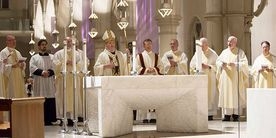
Chrism Mass: Archbishop Coleridge says God “will not fail” to raise men for the priesthood despite Royal Commission sorrow
Extracts from Emilie Ng , The Catholic Leader, 11 April 2017
Priestly
vocations might be fewer in number and “chastened” by the Royal
Commission’s hearings into abuse in the Catholic Church but “the gift of
priesthood will remain”, Archbishop Mark Coleridge said. The
Archbishop reiterated the anointed call of men to the priesthood during
the Chrism Mass at St Stephen’s Cathedral on April 6, where priests of
Brisbane archdiocese renewed their vows publicly and oils used
throughout the liturgical year were blessed. The Mass coincided with
the final day of the annual Convocation of Priests, where
recommendations following the Royal Commission’s final hearing into the
Catholic Church response to sexual abuse were discussed, including
clericalism as a primary cause of abuse. Archbishop Coleridge used
his homily to explain a concept questioned by the Royal Commission,
notably the profound ontological change that occurred in men ordained to
the priesthood. “It’s worth asking tonight what the Church was
trying to say in speaking of ontological change in those ordained,” he
said. “It was an attempt to speak of the priesthood in a radical way,
as something beyond the merely functional. “When a man is ordained
he is radically configured to Christ, the High Priest and Good Shepherd.
This in turn changes the pattern of his relationships with other
people. Those relationships become radically different because he’s
ordained.” In this way, a man called to the priesthood was “set
apart” from other ministries in the Church. “Now it’s true that no
one in the Church is superior to anyone else; in that sense we are all
of us, the baptised, equal before God,” Archbishop Coleridge said.
“But equal doesn’t mean the same – the fact that some of us are bishops,
priests or deacons doesn’t make us in any way superior, but nor does it
make us the same. ....... “Unintentionally the Royal Commission echoed at Pope
Francis who, speaking from a very different angle, has left no doubt
that clericalism is a disease in the Church that needs to be treated and
treated without delay,” the Archbishop said. But when the Pope spoke
of clericalism, he was referring to a priesthood that “is geared to
power rather than service”....(more) Photo: The Catholic Leader, Alan Edgecomb
Open letter to Australian bishops about speaking out on damaging issues
Extract from Anne Lim, Eternity News, 7 April 2017
A call to Australia’s Catholic bishops to press for urgent reform of the church’s culture and governance could help Pope Francis achieve his own agenda, theology professor Neil Ormerod says. He was commenting on an open letter that has called on Australian bishops to lead a delegation to Rome to seek urgent changes to the Catholic Church’s fundamental views on women, celibacy, governance and the handling of child sexual abuse cases. “We’re very concerned that our church fails to conduct itself in accordance with the teachings of Jesus.” – Peter Johnstone
Peak reform group Catholics for Renewal sent the letter to all Australian parishes with the hope that thousands of people would sign it. The letter urged bishops to take immediate steps to “execute necessary reforms now”, rather than “deferring to the Holy See” (the jurisdiction of the Catholic Church in Rome) or waiting for the recommendations of the Royal Commission into Institutional Responses to Child Sexual Abuse. Changes they could take now, according to Catholics for Renewal, include appointing women to more senior diocesan positions, eradicating the “corrosive” ‘Boys’ Club’ culture of clericalism, and reconciling fully and publicly with all abuse victims and their families. In addition, the letter urged the bishops to send an urgent delegation to Pope Francis, seeking mandatory reporting of all child sex abuse cases to the police, as well as a review of priestly celibacy and the inclusion of women in top decision-making positions. “I think Pope Francis wants to see things happen often, but at the same time he doesn’t want to be a dictator.” – Neil Ormerod. Neil Ormerod of the Australian Catholic University’s Institute for Religion and Critical Inquiry, Faculty of Theology and Philosophy commented that the letter could help the Pope in his battle with the curia (the Holy See’s administration) over such reforms....(more)
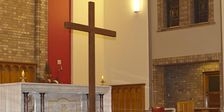
Calvary cross a symbol of lament
Extract from CathNews, 6 April 2017
A
Liturgy of Lament and Hope in response to child sexual abuse within the
Church was held at St Christopher's Cathedral in Canberra on Tuesday
night, Catholic Voice reports. "We have come here tonight from pain
and disillusionment, from anger and confusion, from sadness, looking for
hope. We come together for one thing only: to raise our hearts and
voices and very bodies to God, in the hope that the very act of raising
them in lament yet in faith, they may be touched in their brokenness,
and know the transforming and surpassing power of God’s love." With
this invocation, the Archdiocese of Canberra and Goulburn conducted the
liturgy, attended by approximately 200 people with a number of priests,
deacons and religious present. Archbishop Christopher Prowse led the
liturgy which came about in response to the recent Royal Commission into
Institutional Responses to Child Sexual Abuse, some of which happened
at the hands of Catholic Clergy and lay people.....(more) Photo
CathNews, Catholic Voice
"The way the bishops and local Churches have reacted to "Amoris Laetitia" has been an acid test for the Church’s capacity to implement reforms." Extract from Christa Pongratz-Lippitt,subscription jounal La Croix International, 6 April 2017
A Germany-based group that pushes for change in the Church has called on bishops to support Pope Francis’ course of reform “far more consistently and above all jointly”. In a two-page statement on April 3 the group, “We Are Church”, said the papal document on marriage and the family, Amoris Laetitia, had initiated the “long overdue paradigm shift on sexual ethics” and set in motion the discussion of issues that had long been stalled. “This paradigm shift must now gain momentum so as not totally to dash the hopes of the great majority of Catholics that the Church’s teaching and practice will be developed further,” said We Are Church....(source)
Extract from Catholic Herald, Associated Press, 5 April 2017
Pope Francis on Tuesday named a new official to oversee the Vatican office that processes clerical sex abuse cases amid mounting criticism over the backlog of cases and Francis’s handling of the problem. The promotion of Mgr John Kennedy to head of the discipline section of the Congregation of the Doctrine of the Faith (CDF) was the second abuse-related appointment in recent days. Francis named Fr Hans Zollner, one of the Catholic Church’s top experts on fighting abuse and protecting children, as an adviser to the Vatican’s office for clergy on Saturday. Francis and the Vatican have come under fresh scrutiny over their response to the abuse crisis since Irish survivor Marie Collins resigned from the Pope’s sex abuse advisory commission on March 1, citing “unacceptable” resistance to the commission’s proposals from the Vatican’s doctrine office.....(more)

Extract from Sean Smith, The Tablet, Catholic News Service, 6 April 2017
African continent now boasts a 17.3 per cent share of the global Catholic population of 1.285 billion. Number of Catholics in the world continues upward trend, thanks to Africa. The number of baptised Catholics in the world grew to 1.285 billion an increase of 1 per cent year on year according to the Vatican's yearbook, the 2017 Annuario Pontifico published on Thursday. The annual publication, which contains the most comprehensive snapshot of the Catholic church and includes: a list of every diocese and bishop in the world; all Roman Curia offices and their personnel; the diplomatic corps at the Holy See; the world’s religious orders; pontifical academies and universities. The 2017 edition of the Vatican Statistical Yearbook reports that the countries with the most Catholics account for almost 56 per cent of the world's Catholic population. The top 10 Catholic populations are (in order): Brazil, Mexico, the Philippines, United States, Italy, France, Colombia, Spain, Congo and Argentina....(more) Photo: The Tablet
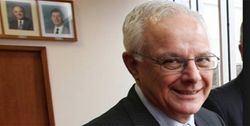
Extract from CathNews, 4 April 2017
A group of Catholics advocating Church reform have called on Australian bishops to lead an “urgent delegation” to Rome seeking changes to Church teaching, reports the Newcastle Herald. In an open letter released on Friday and sent to all parishes, Catholics for Renewal has urged bishops not to “defer to the Holy See” or wait for Royal Commission into Institutional Responses to Child Sexual Abuse recommendations before acting on serious issues that it says contributed to the crisis. Catholics for Renewal president Peter Johnstone OAM said bishops needed to urge Pope Francis to require mandatory reporting of all child sexual allegations to police and immediately appoint women to the Church’s highest ranks. Mr Johnstone said revelations from the royal commission had demonstrated the clear need for change within many institutions, but “the big question is: are Catholics ready and determined enough to reclaim their church?” Mr Johnstone said the call for Australian bishops and archbishops to directly challenge Pope Francis on fundamental Church teachings might be perceived as a “revolutionary step”, but was "simply in accordance with Christ’s teachings”. It had been a “great failure” that bishops in the past had been unwilling to give “honest advice” to Popes on the subject of child sexual abuse, he said. The letter asked bishops and archbishops to end “the corrosive culture of clericalism” and for women to be appointed to senior diocesan positions, after figures revealed by the royal commission showed dioceses with women in influential positions with authority over priests had the lowest child sexual abuse rates. In a statement yesterday Australian Catholic Bishops Conference president, Archbishop Denis Hart, said: “Many important issues for the life and renewal of the Church are currently being addressed in a systematic way by bishops in their dioceses, and by the national Bishops’ Conference. Some have been mentioned by Catholics for Renewal.”...(more) Photo: Cathnews. Newcastle Herald.
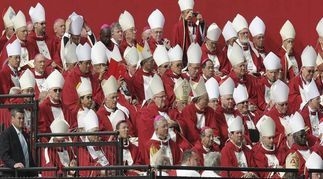
Australian Catholic bishops must lead 'urgent delegation' to see Pope Francis, say church reformers
Extracts from Joanne McCarthy, Newcastle Herald, 3 Apr 2017
Australia's bishops must lead an “urgent delegation” to Pope Francis seeking changes to some of the church’s most fundamental views on women, celibacy, governance and the handling of child sex cases, according to Australia’s peak Catholic reform group in a call to arms to Catholics across the country. In an open letter sent to all parishes, Catholics for Renewal has urged bishops and archbishops not to “defer to the Holy See”, or wait for Royal Commission into Institutional Responses to Child Sexual Abuse recommendations, before acting on serious issues that contributed to the child sexual abuse crisis. Catholics for Renewal president and former senior Australian Government bureaucrat, Peter Johnstone OAM, said bishops needed to urge Pope Francis to require mandatory reporting of all child sexual allegations to police and immediately appoint women to the church’s highest ranks. “The appointment of women would be revolutionary, but I would argue the Pope could do that tomorrow and that would be a catalyst for forcing ultra-conservative bishops to realise they’ve got no choice but to get on board,” Mr Johnstone said. The push for an Australian delegation to the Vatican comes only days after the church’s most prominent spokesman throughout the royal commission hearings, Francis Sullivan, returned from Rome to say he was “astounded by the resistance in some quarters of the church” to address the child sexual abuse crisis. Catholic parishioners were asked to support renewal within the church by signing the open letter to Australia’s most senior clergy, in a campaign that will run until May. It was released on Friday as the royal commission ended its 57th and final public hearing. Mr Johnstone said revelations from the royal commission had demonstrated the clear need for change within many institutions, but “the big question is: are Catholics ready and determined enough to reclaim their church?” "The appointment of women would be revolutionary, but I would argue the Pope could do that tomorrow and that would be a catalyst for forcing ultra-conservative bishops to realise they’ve got no choice but to get on board. - Catholics for Renewal president Peter Johnstone." All Australian parish priests and pastoral councils were asked to make a copy of the letter to bishops available in churches from Sunday. Mr Johnstone said the call for Australian bishops and archbishops to directly challenge Pope Francis on fundamental church teachings might be perceived as a “revolutionary step”, but was "simply in accordance with Christ’s teachings”. “I don’t think the act itself would be revolutionary because it is very much within the provisions of canon law for bishops to have that close relationship with the Pope and to give honest advice to him. The church needs to start practising the teachings of Jesus,” Mr Johnstone said. It had been a “great failure” that bishops in the past had been unwilling to give “honest advice” to Popes on the subject of child sexual abuse, he said. “We believe what we’ve suggested in the open letter are reasonable but necessary steps for responsible bishops to take immediately, and it can be done, and to apply the sort of pressure that might in fact help the Pope. Bishops need to support doing what is essentially necessary for the church.” Mr Johnstone’s group told Catholic parishioners it believed an Australian delegation would be welcomed by Pope Francis as he seeks renewal in the church. “All the actions proposed are within the authority of the Australian bishops who are able to give some hope to the church by acting now. The Open Letter asks our bishops to lead the reform of our Church now, acting promptly and decisively,” the letter said......In a statement on Monday Australian Catholic Bishops Conference president, Archbishop Denis Hart, said: “Many important issues for the life and renewal of the Church are currently being addressed in a systematic way by bishops in their dioceses, and by the national Bishops’ Conference. Some have been mentioned by Catholics for Renewal.”....(more) Photo: Newcastle Herald
John N Collins. Gateway to Renewal - Reclaiming ministries for women and men
Thursday 4 May, 2017 (5.30 – 7.00), The Swedish Church, 21 St Georges Rd, Toorak, Vic.
Your invitation by the publisher, Morning Star Publishing, and the author's family. rsvp 30 April: carolyncollins21@gmail.com Details and Flyer on the EVENTS page.
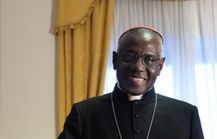
Cardinal Sarah attacks 'devastation and schism' of modern liturgy and praises text Pope wants to review. A speech by the Holy See’s liturgy prefect has lambasted the liturgical changes which occurred following the Second Vatican Council while praising controversial guidelines on Mass translations that Pope Francis has reportedly called to be reviewed. Cardinal Robert Sarah, who runs the Congregation for Divine Worship and Discipline of the Sacraments, argued in a message sent to commemorate the 10th anniversary of the publication of the Motu proprio Summorum Pontificum by Pope Benedict XVI that those promoting a “modern liturgy” had caused disaster, devastation and schism by trying to reduce the Mass into a “simple convivial meal”. The 1962-65 gathering of bishops during Vatican II sought to renew Catholicism by re-connecting to the early Church while urging Catholics to engage in a dialogue with the world: and the church leaders who gathered in Rome at that time voted almost unanimously to reform the liturgy. But in the message sent this week to a German liturgical colloquium, Cardinal Sarah said "the post-conciliar Catholic Church" had "abandoned her Christian roots" which had seen her serious crisis in all areas of the Church’s life....(more) Photo: The Tablet.
"Many have forgotten that the opposition to Pope Francis started very early in his pontificate - at least two or three years before 'Amoris Laetitia' was published."
Extract from Massimo Faggioli, Subscription Journal La Croix International, 3 April 2017
It has now been a year since Pope Francis published his post-synodal apostolic exhortation on the family, Amoris Laetitia (8 April 2016). And the Catholic Church is still in the process of receiving it. The pope’s interpretation of and contribution to the long synodal debate on love in marriage and the family has certainly changed the Catholic conversation on some of the typical issues of the Church in modern times. But it is still too early to draw conclusions about the document’s reception. That’s because the people most touched by its teaching – the lay faithful – are largely invisible to the Catholic media....(source)
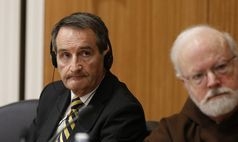
Edited Extracts from Gerard O'Connell, America, the Jesuit Review, 31 March 2017
In this exclusive interview with America, Francis Sullivan, the chief executive officer of the Australian Catholic Church’s “Truth, Justice, and Healing Council,” reflects on what contributed to the abuse of minors by priests and religious in Australia, and what he thinks the Royal Commission that has been investigating this abuse might say in its report at the year’s end.....He said that "The church is far more than an institution. The institution has been on trial but not the faith community and the faith community is what will ultimately nurture the changes that are required. In Australia, given our context, that means we need much more involvement of lay people, male and female, at all levels of decision-making. It doesn’t mean you replace bishops, that would be ridiculous, but it means a lot of mutual decision-making and engagement. It means we have to become much more a church for truth and justice than a pillar of the establishment, we have to be much more open and transparent. I think those sort of things will help the church in Australia at least to rebound.” T.J.H.C. was set up by the Australian Catholic Bishops Conference and Catholic Religious Australia soon after the federal government announced on Jan. 11, 2013, the establishment of the Royal Commission into Institutional Responses to Child Sexual Abuse. It represents dioceses, archdioceses and religious congregations across the country. It was set up for the church to address the past openly and honestly, and to speak with one voice before the Royal Commission.....Mr. Sullivan was one of the speakers at the seminar on “Safeguarding children in homes and schools” held at the Gregorian University in Rome last week. He spoke with America on March 27.....(more), Photo: CNS/Paul Haring

Pope Francis appoints Fr Ken Howell an Auxiliary Bishop of Brisbane
Extract from Media and Communications, Melbourne Catholic, Catholic Archdiocese of Melbourne, 30 March 2017
The Holy Father has appointed Fr Kenneth Michael Howell as an Auxiliary Bishop of the Archdiocese of Brisbane. The announcement was made at noon Rome time today. The Auxiliary Bishop-Elect will serve alongside Archbishop of Brisbane, Mark Coleridge. On behalf of the Australian Bishops, Archbishop Denis Hart welcomed the appointment, ‘Father Howell has shown gifted service as Liturgist, Cathedral Administrator and Pastor, having recently overseen the construction and completion of the new Mary, Mother of Mercy Church in the Parish of Burleigh Heads. Fr Howell’s gifts, knowledge and love of people will make him a welcome and respected member of the Bishops Conference, where I’ve no doubt he will provide generous service.’...The Bishop-Elect has been a long-standing member of the Council of Priests and Chairman from 2008 to 2013. He is also a member of the Archdiocesan Liturgical Commission, which he currently chairs. The Holy Father has also accepted the resignation of Bishop Joseph Oudeman, O.F.M. Cap as Auxiliary Bishop of Brisbane. Archbishop of Brisbane, Mark Coleridge said today, ‘we thank Bishop Joseph for his years of episcopal service in the Archdiocese. We pray that his years of retirement will be fruitful and peaceful. May the Lord grant him good health and the reward of a faithful servant’. The Ordination of Bishop-Elect Howell will take place on 14 June 2017 at St Stephen’s Cathedral, Brisbane....(more) Photo: CAM, Emilie Ng, the Catholic Leader

Extracts from guest editorial by Tracey Edstein, editor of Aurora Magazine, the official magazine of the Catholic Diocese of Maitland-Newcastle, 30 March 2017
Director Theodore Melfi’s Hidden Figures tells the true – albeit massaged for maximum screen impact – story of the women whose mathematical genius was integral to the United States’ mission to explore space, ultimately seeing a man on the moon in July 1969. The NACA (later NASA) program was predictably male-dominated and driven by the determination to beat the Russians into the last frontier. The women to whom the film’s clever title refers are disadvantaged not only by gender but by colour. A cohort of African-American women, called impersonally, “computers”, is responsible for endless calculations that are part of the space mission. Dunst). Both they and the numbers they crunch all day are hidden, not only from the public but from most NASA personnel. They have a ‘coloured’ canteen and ‘coloured’ bathrooms, yet their work is indispensable. When one of their number, Katherine Johnson, is plucked from the pool to join the ‘big league’, she is all but ignored by her white male colleagues. A ‘coloured’ coffee pot is thoughtfully – and anonymously - provided for her exclusive use. While it’s clear that Katherine is more than up for the task, she is not merely ostracised by her colleagues – who seem dreadfully insecure despite their specialised skill set − but her work is actively sabotaged. Vital documents have sections ‘blacked out’ and she is denied access to critical briefings. When she explains to her supervisor that she cannot give of her best if information is denied her, he appeals to the man most threatened by Katherine’s expertise. Paul Stafford replies, “There’s no protocol for women attending [NASA briefing]” in a tone that brooks no further dialogue on the matter. Katherine Johnson replies evenly: “There’s no protocol for man circling the earth either, sir.”...........A very significant number of the Roman Catholic Church’s adherents are women. Many are well educated, articulate, professional and resilient. Their faith in their Church, like that of their fathers, husbands, brothers and sons, has been sorely tested by the revelations that a significant number of Church personnel – mostly priests and brothers – sexually abused children while other men in positions of power and influence, who preached the gospel daily, failed to act. Unlike the protagonists of Hidden Figures, these women are not hidden. In fact, it could be said that in the Australian Church, it is women who keep the wheels turning, even as the institution struggles. Like NASA, the Church has a mission. NASA realised that it needed the contribution of women with exceptional and rare skills to realise the mission. The Church is yet to realise that same truth. Sure, there are countless roles for women, and no limit to our possible contributions. But in terms of official ministry, these contributions can only be made at the behest of an ordained man. It’s time for the Church to take seriously Paul’s letter to the Galatians: “For all of you who were baptised into Christ have clothed yourselves with Christ. There is neither Jew nor Greek, there is neither slave nor free person, there is not male and female; for you are all one in Christ Jesus.” (Gal 4: 27-28) It’s time for change. It’s time there was a protocol....(more) Image: ACBC National Office for the Participation of women
Extract from CathNews, 30 March 2017
Cardinal George Pell has said that Britain’s vote in favour of Brexit and the election of Donald Trump was fuelled by “radical inequality”, reports The Catholic Herald/CNS. The Cardinal’s comments came as a letter signed by British Prime Minister Theresa May officially notified the European Union of Britain’s intention to leave the EU. Speaking at the launch of a book about technology’s influence on society, Cardinal Pell said the votes for Brexit and Trump “have shown that a strong majority of elite opinion will not necessarily prevail with the majority of the voters”.....Cardinal Pell, prefect of the Secretariat for the Economy, made the comments at the launch of Connected World, by Fr Philip Larrey, a philosophy professor at Rome’s Pontifical Lateran University. Although new technologies can promote employment and new opportunities in an ailing economy, if used improperly, they can also lead to tragedy and affect the course of history, the Cardinal said. As the use of modern technology and artificial intelligence increases in the world, those who suffer its effects due to lack of employment will be unable to “cope with additional misfortune,” he added. “Drugs and alcohol enhance the tragedy, but certainly the decline in social capital; for example, family breakdown, extranuptial births, widespread pornography, addictive computer games and the decline in religious faith and practice,” he said....(more)
Investigation accuses 25 French bishops of hiding abuse
Extract from Tom Heneghan, The Tablet, 29 March 2017
The French Bishops’ Conference spokesman has expressed his profound shame after a television documentary accused 25 bishops — five of them still in office — of shielding 32 priests guilty of sexual abuse from justice and moving them around France and other countries to keep their past out of the spotlight. Conference president Archbishop Georges Pontier disputed some details of the broadcast on France 2 public television but admitted past errors and insisted the Church now put the interests of abuse victims first. The 21 March broadcast by the news magazine Cash Investigation added new details to the debate about clerical sexual abuse in France, where the bishops’ conference recently said nine priests and deacons were in prison and 26 under investigation for sexual abuse. Based on a year-long inquiry with the news website Mediapart, it examined abuse cases going back to the 1960s and said half of the 32 abusers were active after 2000, the year when the French bishops first agreed to tighten their anti-paedophilia guidelines. The resulting database listed 339 victims and showed 228 of them had been under 15 and only 165 cases were reported to civil authorities. The programme also tracked the transfer of alleged abusers within France and abroad, especially to posts in Africa. “I feel a profound sense of shame, humility and determination, because I am well aware that we have made mistakes,” bishops’ conference spokesman Mgr Olivier Ribadeau Dumas told AFP news agency. Archbishop Pontier insisted the broadcast highlighted errors of the past but told La Provence newspaper: “We have evolved, even if this has not be fast enough.”....(more)
A French investigative TV show claims the pope was too lax in the case of an Argentinian priest convicted of pedophilia.
Extract from, Éric Domergue, Buenos Aires and Nicolas Senèze, Rome, Subscription Journal La Croix International, 27 March 2017
The case of Julio César Grassi broke in 2002 when two young men accused the Argentinian priest of sexually abusing them while they were minors living under his care in the foundation he ran. Grassi called his foundation Felices los Niños, “Happy Children". It housed several thousand poor children in the western suburbs of Buenos Aires. Despite his protestations of innocence, Fr Grassi was sentenced in 2009 to 15 years in prison. His numerous appeals were all dismissed and, last Tuesday, the Supreme Court finally upheld his conviction. He has been incarcerated since September 2013...(source)
Outdated model for preparing priests needs major overhaul
"Whenever
Pope Francis has talked about the selection and training of Catholic
priests he has given every indication that he knows there are serious
problems."
Extract from, Robert Mickens, Rome. Subscription Journal La Croix International, 24 March 2017
It
is such a serious problem that, according to one noted Church
historian, not even Pope Francis dares to speak about it. It’s the
outdated model of Catholic priesthood and, even more significantly, how
candidates for the ordained ministry are selected and prepared for
service among the People of God. Professor Alberto Melloni of the
John XXII Foundation for Religious Sciences (Bologna, Italy) recently
pointed out that the archetype of today’s priest dates back to over 400
years ago and the reforms stemming from the Council of Trent
(1545-1563)....(source)
Extract from Joshua McElwee, National Catholic Reporter, 23 March 2017
In the midst of a month in which the effectiveness of Pope Francis' measures to fight clergy sexual abuse has come into question, Boston Cardinal Sean O'Malley pledged Thursday that the pontiff is still "thoroughly committed to rooting out the scourge of sex abuse." O'Malley, the head of Francis' Pontifical Commission for the Protection of Minors, told participants of an education seminar hosted by the group that "there is simply no justification in our day for failures to enact concrete safeguarding standards for our children." "Let there be no doubts: no other topic is more important for the life of the church," said the cardinal. "If the church is not committed to child protection, our efforts at evangelization will be to no effect; we will lose the trust of our people and gain the opprobrium of the world."....(more)

Extract from CathNews, 23 March 2017
You might be surprised to know most married Catholic priests are staunch advocates of clerical celibacy, writes Fr Joshua Whitfield, a married Catholic priest from Texas, in the Dallas Morning News. My wife and I, we have four children, all younger than seven. Ours is not a quiet house. A house of screaming and a house of endless snot, it's also a house of love, grown and multiplied every few years. But here's what's strange about us: I'm a Catholic priest. And that is, as you probably know, mostly a celibate species. The discipline of celibacy, as a Christian practice, is an ancient tradition. For priests, celibacy has been the universal legal norm in the Catholic West since the 12th century and the de facto norm long before that. Yet there have always been, for good reasons, exceptions made, particularly for the sake of Christian unity. The Eastern Catholic Churches, for example, many with married priests, have since early modernity flourished in the Catholic Church. Likewise for me, a convert from Anglicanism. I'm able to be a Catholic priest because of the Pastoral Provision of Saint John Paul II, which was established in the early 1980s. This provision allows men like me, mostly converts from Anglicanism, to be ordained priests, yet only after receiving a dispensation from celibacy from the pope himself. But these are exceptions made, as I said, for the sake of Christian unity, because of Jesus' final prayer that his disciples be "one". They do not signal change in the Catholic Church's ancient discipline of clerical celibacy. I, for one, don't think the Church should change its discipline here. In fact, I think it would be a very bad idea......(more) Photo: Cathnews
Extract from by Christopher Lamb, The Tablet, 21 March 2017
Honduran Cardinal Rodriguez Maradiaga publiushes a new book about the reform process in the Vatican
Meetings, money and dress code: how Francis is trying to change curia, by one of his most influential advisors. There are few who have this Pope’s ear in the same way as Honduran Cardinal Rodriguez Maradiaga. The 74-year-old saxophone-playing prelate is a telegenic polyglot who has been co-ordinating the important "C9" council of nine cardinals advising Francis on his reforms. He’s just provided an insight into that work in a book by Italian journalist Francesco Antonioli compiling reflections on the Pope titled Francis and Us (Francesco e Noi). Among the contributors is Polish sociologist Zygmunt Bauman who died in January. In his essay, Cardinal Rodriguez reveals how Francis was a reformer right from the moment of his election when, during the conclave, he scrapped the tradition of cardinals “paying homage” to the new Pope by greeting them himself. Then, just four days after his election, Francis approached Rodriguez with a proposal about the new cardinal advisory body he wanted to set up. “Can you coordinate it?” the Pope asked him. The cardinal, who has been a close friend of Jorge Bergoglio’s since 2007 when they worked on the Latin American church’s Aparecida document, replied: "If you ask me, I have to." Since then, the 74-year-old Salesian explained that Francis has changed the exercise of the papacy through an “encyclical of gestures” such as washing the feet of Muslim women and migrants while insisting on living in the Casa Santa Marta. After looking around the palatial papal apartments Francis told Rodríguez they were like “a prison”. While these gestures are important the Pope was elected with a clear wish from his fellow cardinals which the Honduran papal adviser sums up as follows: “the Vatican curia needs to be reformed”. Today he says Francis is pressing ahead with the mandate “great sincerity and, at the same time, firmness”........... In the book Rodriguez also gives an insight into the informal - more Latin American - style of papal meetings. He explains that the C9 now gathers in Santa Marta on his suggestion. The first meeting, he explained, took place at the Vatican’s Apostolic palace requiring them to wear “official cassock and lace” and leave half an hour to arrive and another half an hour to leave. As a result Cardinal Rodriguez told the Pope they should use a meeting room in the Pope’s residence, and Francis agreed. The discussions here taken place in a fraternal spirit and “a love for the Church”, according to Rodríguez, while the Pope happily stops to have a coffee break with his fellow cardinals. While Francis’ Vatican reforms are taking time to be implemented - however they do shake out, expect Cardinal Rodríguez to be playing a central role.....(more)
Extract from CathNews, 21 March 2017
Cardinal George Pell has accused the Senate of launching an “extraordinary and unjust” attack against him and interfering with due process, reports The Australian. A Greens motion, agreed to by the upper house in February, called on the senior ranking clergyman to return to Australia to face allegations of misconduct. “The use of parliamentary privilege to attack me on this basis is both extraordinary and unjust,” Cardinal Pell wrote in a letter tabled in parliament yesterday. “Given that the investigation is ongoing, any calls from the Senate for my return to Australia can only be perceived as an interference on the part of the Senate in the due process of the Victoria Police investigation.” Cardinal Pell has denied all allegations of wrongdoing, saying he was willingly interviewed by police in Rome last year and continued to co-operate with their investigations. Police and prosecutors had not requested his presence in Australia, he said. Cardinal Pell appeared on three separate occasions to give evidence at the Royal Commission into Institutional Responses to Child Sexual Abuse. “Any fair-minded person would conclude that I have made every effort to be available to the royal commission and to Victoria Police to assist with their inquiries,” he said. The vast majority of allegations highlight in the Senate’s motion related to the period before his time as Archbishop, Cardinal Pell said.....(more)
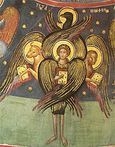
Extract from J. A. Dick, Another Voice: Reflections about Contemporary Christian Belief and Practice, 18 March 2017
Three recent books are energizing conservative-minded Roman Catholics and other Christians these days. The theme in all three is the end of Christian America. One of my traditionalist friends called them to my attention, hoping to lure me away from my “dangerous liberal thinking.” I guess a variety of viewpoints has always been with us; and I really do respect other opinions. I do not agree with the authors of these three books, however, because they propose solutions to some genuine American problems that are either unhelpfully narrow-minded or simply utopian fantasies. On the other hand, out of fairness to my friend who brought them to my attention, I guess one could indeed use these books for a very healthy and effective discussion about what it means to be a truly contemporary Christian…..as well as a contemporary American, deeply concerned about religion, values, and morality in today’s USA. I begin with Strangers in a Strange Land: Living the Catholic Faith in a Post-Christian World by Charles J. Chaput, Roman Catholic Archbishop of Philadelphia. Archbishop Chaput offers a strongly negative critique of contemporary U.S. society. I suspect many readers who page through his book will shake their heads in agreement, as they read his lamentations that the United States has now been conquered by a secularist, pleasure-seeking, self-absorbed worldview that leaves little place for Jesus or traditional morality. Telltale signs of America’s “post-Christian” decadence, according to the Archbishop, are divorce, contraception, abortion, materialism, an invasive Obama-generated government, and gay marriage. Considering my own religious tradition that has long valued the voice of the People of God, and thinking about the city where the Declaration of Independence was drafted, the first red light about this book started flashing for me, when I saw Philadelphia’s Archbishop asserting that “Democracy tends to unmoor society from the idea of permanent truths.” An alternative fact?....(more) Image: Wikipedia, A cherub, as described by Ezekiel and according to traditional Christian iconography.
Friday 17 March 2017
A timely set of worthwhile paper in the Autumn 2017 Issue of The Swag, for those who subscribe to this Quarterly Magazine of the National Council of Priests of Australia, includes amongst many others, "Towards a change of parish contours", a revised and updated extract by Aengus Kavanagh of a chapter from the book "Will Catholic Schools be Catholic in 2030" co-authored by Patrician Brother, Aengus Kavanagh, and Ursuline Sister, Leone Pallisier, and Richard Curtain's paper "Having a say in selecting our Bishop" based on a recent Catholics For Renewal Survey on Parish Needs and desired attributes of Bishops.
Extract from Subscription journal La Croix International, 16 March 2017
A Protestant at the head of L’Osservatore Romano? Until very recently, the idea would have seemed absurd. However, it has now become a reality under Pope Francis, who has just given the job of editing the Argentine edition of the Holy See daily to a 60-year-old Presbyterian. “It is a little bit revolutionary… but he is a revolutionary pope!” Figueroa says with a smile. After four special editions, he is preparing to launch the first edition of L’Osservatore Romano designed for Argentina and Latin America....(more)
NCR Staff, National Catholic Reporter, 15 March 2017
HERE
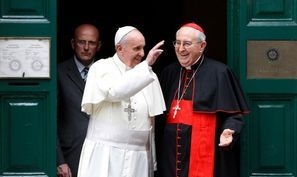
Pope Francis is currently consulting local priests and lay Catholics to choose his next Vicar General for the Diocese of Rome, a decision which traditionally belongs to the pope himself. "La Croix" examines this unparalleled move.
Extract from Clémence Houdaille, La Croix International, 15 March 2017
In an unprecedented process for the Bishop of Rome, Vatican Insider is reporting that Pope Francis has launched a consultation with people in his diocese to select its next Vicar General. This choice normally belongs solely to the pope. The current vicar, Cardinal Agostino Vallini is 77 and will retire on April 17. Local priests and lay faithful have until April 12 to send letters with “suggestions on the profile of the next vicar and also eventually several names". The consultation was launched by the pope at a private meeting with 36 leaders of the diocese, which has 334 parishes for its 2.8 million inhabitants. Does the pope intend to make the Church more democratic? He clearly showed his interest in the opinions of the Catholic laity during the broad consultation that took place before the two meetings of the Synod of Bishops on the family in 2014 and 2015. “However, that was not a matter of governance,” notes Fr Luc Forestier, director of the Institute of Religious Studies at the Catholic Institute of Paris. Very ancient democratic practices in religious congregations On the other hand, “consultation before appointing a bishop is, in itself, something quite normal," he emphasizes. “However, this process is organized by the nuncio and is secret. I have already been consulted several times myself and I know lay people who also have been confidentially consulted.” The novelty of the current consultation is that it has taken place publicly among all the faithful even if they are not widely informed, Fr Forestier adds.....(more) Photo: La Croix, Riccardo De Luca/AP
Extract from Mark Bowling, Catholic Leader, 15 March 2017
In the wake of the Catholic Church’s final hearing before the Royal Commission into child sexual abuse, Church leaders from across Australia have held a day of “reflection and conversation” on child safety. The three-week Royal Commission hearing investigated the Church’s response to a crisis of child sexual abuse by members over six decades, and particularly the Church’s plans for child protection protocols and institutional change. The commission heard that over the past 35 years, 4445 people made complaints of child sexual abuse in Catholic Church institutions, and seven per cent of priests were identified as alleged perpetrators. National Professional Standards Office executive officer Fr Tim Brennan said New Horizon Day, convened in Sydney on March 9, aimed to assist “in the work of safeguarding children” and “to grow in an understanding of the complexities in which we work at this point in the life of our nation, and our Church”. “It is a moment of enormous transition,” Fr Brennan said. The New Horizon Day brought together Church leaders from religious orders, diocese and some of the major groups which engage with Catholics across the country including parishes, schools, hospitals and welfare services. “Clearly, while the Royal Commission has put the Church in the spotlight, now that has passed, it is important to continue the momentum, to discuss what’s going on and where we are headed – and to surface the million questions that people have as they seek to appreciate this confusing transitional period,” Fr Brennan said. “It was not intended to make policy but to ensure a place for exchange of information and learning.” The conference included discussion of Towards Healing protocols, how state professional standards might fit into future safeguarding arrangements, and how Church authorities can maintain a pastoral response while dealing with complex legal cases. “People are galvanised for change and for reform,” Professional Standards Office Queensland director Mark Eustance said. “They don’t want to lose the momentum. “It’s about changing the conversation from the horrific history that’s been revealed to the Royal Commission and changing that to a more positive note around what’ll we do to rectify that.”...... (more)
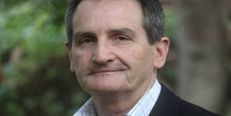
Extract from speech by Francis Sullivan, CEO Truth Justice and healing Council, to Catalyst For renewal, Villa Maria Parish, Hunter's Hill Sydney, Friday 10 March 2017
What has shocked and confronted me the most about this sex abuse scandal is that it took place in a church. The very fact that the church was on trial, rips at the heart of what the church is meant to be. And that speaks to me of a profound loss of direction, integrity, purpose and meaning at the heart of the church. A spiritual wasteland. It is my sense that so many Catholics share that shock. People say the Church now needs to get its house back in order but I say we have to re-build the house. Let’s not put the same foundations in place that delivered us this scandalous history – this profound moral and criminal upheaval. Why was it that moral leadership failed so consistently, so pervasively? Where was the wisdom and counsel we have been lead to believe comes from those on the spiritual journey? We must address this spiritual bankruptcy as much as anything else. Full speech (as written) HERE
"With Pope Francis, we are heading back to the beginnings of Christianity."
Extract from Eric Hodgens, La Croix International, 11 March 2017
......A member of the Jesus Movement of the first century would have found it hard to recognize the institutional Christianity of the end of the fifth century. Ideas and laws have been front and center to Christianity ever since. Christendom was born under Constantine and reigned supreme till the 20th century. The Great Schism in the 11th century and the Reformation in the 16th century left it fractured but still powerful. It was the 18th and 19th-century democracy movements which saw the loss of the Church’s political power with the rise of secular states. Christianity became just one faction in competition with others. Power is still the Church’s stumbling block. Mind you, Jesus warned us: The gentiles lord it over their subjects – not so with you. The Church’s power to “lord it over” society has been curtailed by today’s pluralism but is still jealously guarded within the institution. And ideas and laws are the instruments by which power is exercised. Doctrine and law are sacralised as the teaching of the Church – or even the teaching of God. Then along comes a pope who says “Who am I to judge?” He has a dictum: reality is more important than the idea. Ideas, ideology, doctrine, law must be evaluated in the context of the wider life of the community. For the theologian and the legislator, ideas determine and control reality. For the pastor, a changing reality calls for constant adaptation of our ideas and rules. This reversal of priorities coincides with a new-found self-confidence in the people. The People of God have their own mind and heart on matters of faith and morals. Pope Francis sees the faith of the people as the most basic source - and more important than the idea......(more)

Extract from CathNews, National Catholic Reporter, 10 March 2017
Pope Francis will celebrate his fourth anniversary of his pontificate on Monday. The National Catholic Reporter takes a look at his "very long game" in shifting Church culture. In January, the Vatican office that oversees priests, sisters and brothers in global religious orders had a plenary session. Seven women attended as representatives of the world's women religious. That fact may not seem significant for those outside the Vatican, but it was the first time in decades that women had been present at such a meeting, the result of a direct request to Pope Francis. "We were invited and we could speak," said Sr Carmen Sammut of the Rome-based group of women religious called the International Union of Superiors General. "That was a real structural change."....(more)
Extract from CathNews, National Catholic Register, Die Ziet, 10 March 2017
Pope Francis says the issue of ordaining some married men as priests needs to be considered, reports National Catholic Register. In an interview with Die Zeit, Germany’s leading left-leaning newspaper, the Holy Father said the shortage of priests around the world is an “enormous problem” that must be resolved, but stressed that “voluntary celibacy is not the answer”. However, he said the issue of viri probati, married men proven in faith and virtue who could be ordained to the priesthood, is a “possibility” that “we have to think about”. “We must also determine which tasks they can undertake, for example in remote communities,” the Pope said. The Latin rite already allows some married non-Catholic clergymen who become Catholics to be ordained priests, such as former Anglican clergy. The Eastern Catholic Churches allow the ordination of married men as priests but like the Orthodox and Latin Catholic churches, they do not allow clerical marriage, that is priests to marry once ordained. Last year, Pope Francis ruled out moving away from priestly celibacy, saying it should “remain as it is”. But he has mentioned the possibility of ordaining “proven” married men before, reportedly saying privately in 2014 it could be left for bishops to decide, depending on the situation. He referred to a diocese in Mexico where each community had a deacon but no priest. The Pope is also understood to have wanted the next synod to discuss priestly celibacy, although it was voted down by the Ordinary Council of the Synod of Bishops. The secretary general of the Synod of Bishops, Cardinal Lorenzo Baldisseri, further ruled out the possibility of the issue being discussed at the 2018 Synod on “Young People, the Faith and Vocational Discernment”....(more)
Pope Francis' fourth anniversary: the centrality of mercy
Extract from Michael Sean Waters, National Catholic Reporter, 8 March 2018
.....In
his focus on mercy, Pope Francis is not merely calling attention to a
theological virtue we should practice. This is not about ethics only. It
goes deeper. It is a quintessential example of ressourcement theology,
which proposed a return to the sources, that was so central to the
Second Vatican Council. The aggiornamento, or bringing up to date, that
the Council took as its mission was not a mere indulgence of modernity,
but an engagement with modernity, and an engagement based on a retrieval
of the sources of Christian life rooted in the Scriptures and the early
Church Fathers. It specifically aimed to question the cultural
encrustations that had once revealed and explicated those sources, but
now stood in the way.....(more)
Extracts from Eric Hodges, Pearls and irritations, John Menadue Website, 8 March 2017
Clerical privilege took a heavy blow when Catholic bishops were summoned to appear at the Royal Commission into Institutional Responses to child sexual abuse (RC). The church answering to the state. The drama climaxed with the appearance of Australia’s five metropolitan archbishops. They were being questioned rather than asking the questions – a dramatic role reversal. They were very chastened. In the words of one archbishop, they looked like rabbits in the headlights. The focus had moved from the abuse to the way bishops had responded. They were reduced to being suppliants before the RC being questioned by a female, secular counsel-assisting. How did they go?......(more) Eric Hodges is a retired Catholic Priest in Melbourne.
Extract from Melbourne Catholic, 9 March 2017
Youth leaders will fly to Rome next month to help plan two major events for young people, reports the Australian Catholic Bishops Conference's Media Blog. Ashleigh Green, from the Broken Bay Diocese, and Malcolm Hart, Director of the Australian Catholic Bishops Conference Office for Youth, will head to Rome in the first week of April, to participate at an international meeting about World Youth Day (WYD) and the upcoming Synod on young people. The five-day gathering will focus on the theme, "From Krakow to Panama – The Synod Journeying with Young People". It will include an evaluation of WYD in Krakow last year and will look ahead to WYD in Panama during 2019. Time will be spent on the pastoral and logistical preparations required. Members of both the Polish and Panamanian organising committees will be present. Ms Green was part of the Diocese of Broken Bay’s WYD pilgrimage to Krakow....(more)
Extract from Christopher Lamb in Rome, The Tablet, 8 March 2017
The 37 female consultants will advise the Pontifical Council for Culture on matters ranging from neuroscience to sports. New female advisory group to counter 'lack of the presence of women' in leadership roles in Roman Curia. A new Vatican women’s advisory group has been launched to counter the “lack of the presence of women” in leadership roles in the Roman Curia which has no women in leadership roles despite representing a fifth of the workforce. Announced a day before today’s International Women’s Day, the permanent consultative body will be made up of 37 women and will report to the Pontifical Council of Culture, Cardinal Gianfranco Ravasi, the president of the council told a press conference yesterday. “I didn't have any women at the management level. They were only there in an administrative sense as secretaries,” Ravasi said. The new group includes the president of the Vatican-run hospital for children, a Muslim theologian from Iran, the Irish Ambassador to the Holy See and the director of a female prison in Rome. Donna Orsuto, a professor at Rome’s Pontifical Gregorian University and director of the city’s Lay Centre also joins the group. Orsuto, who has recently been named as a member of the Vatican’s liturgy department, helped Ravasi to set up the new female advisory body back in 2015. “It’s a first step but it’s an important one,” she told The Tablet. “To bring the expertise of these women to the work of the council is a great idea.” She added: “You see these initiatives which are only a beginning, but its positive. As I like to say ‘nothing about us without us.’ If we can move in that direction in the Church, everyone is going to be better off. Men and women.”....(more)

International Women's day - What Islam really says about women
Alaa Murabit,
TED talks, YouTube, 8 March 2017
Any day would be a good day to view this 12 minute TED talk "What Islam
really says about women", but it's especially appropriate on
International Women's day, and applies to many religions,
including our own. Alaa Murabit's family moved from Canada
to Libya when she was 15.
Before, she’d felt equal to her brothers, but in this new environment
she sensed big prohibitions on what she could accomplish. As a proud
Muslim woman, she wondered: was this really religious doctrine? With
humor, passion and a refreshingly rebellious spirit, she shares how she
discovered examples of female leaders from across the history of her
faith — and how she launched a campaign to fight for women's rights
using verses directly from the Koran.
How clergy became scapegoats of the sex abuse crisis in the Anglican Church
Extract from Muriel Porter! The Conversation, 7 March 2017
As
the Royal Commission into Institutional Responses to Child Sexual Abuse
hearings have made abundantly clear, Christian churches in this country
scapegoated the victims of clergy abuse for decades in an attempt to
protect their reputation. That was at best deluded, and at worst
evil. Some parts of the Anglican Church
of Australia were complicit in this appalling behaviour until the
levels of abuse came to light in the late 1990s. Since then, the
Anglican Church has directed enormous energy into establishing
procedures to ensure that abuse was a thing of the past, and that
churches would be safe places for all children and vulnerable people.
In the process, however, in a frantic
effort to restore the church’s damaged reputation by demonstrating it is
“tough on (sexual) crime”, it has created another group of scapegoats –
its own clergy. This may seem a harsh assessment, and one that will
not be popular with abuse survivors. Survivors have often been so
scarred by their abuse that they have no sympathy at all for the clergy
as a class. Nevertheless, as I write in
my new book, absurdly severe restrictions are now being imposed on the
private lives of all Anglican clergy because the abuse crisis has opened
the door to opportunistic interventions by puritan elements in the
church. Always eager to impose rigid rules on all sexual behaviour, in
this febrile climate no one dare challenge their demands. The clergy
have become the new scapegoats.....(more) Muriel Cooper os Honorary Research Fellow, Trinity College Theological School, University of Divinity.
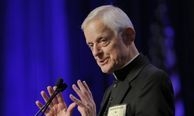
Gerard O'Connell, America - the Jesuit Review, 6 March 2017
Reconnecting the church “with the energy of the Second Vatican Council,” may be the pope’s greatest achievement, Cardinal Donald Wuerl of the Archdiocese of Washington said in an exclusive interview with America as the fourth anniversary of the pope’s election approaches on March 13. According to Cardinal Wuerl, the pope is changing the papacy and “completely refocusing the role of bishop.” He said Pope Francis has “picked up where we left off” on Vatican II themes of collegiality and synodality and has refocused the church on “a moral theology that rests on scripture and Jesus’ command to love” and on “an evangelizing discipleship.” Cardinal Wuerl, who is archbishop of Washington, also commented on the pope’s post-synodal magisterial document on the family “Amoris Laetitia,” the opposition Pope Francis has experienced and the U.S. church’s stance regarding migrants in the face of challenges from the Trump administration. An edited text of an interview given at the North American College in Rome on Feb. 22 follows.........(more) Photo: America - The Jesuit Review, (CNS photo/Bob Roller)
Extract from Pearls and irritations, John Menadue Blog, 7 March 2017
We have an unfortunate habit of thinking that if only we could change our leaders we could solve our problems. Yet it is clear that after disposing of our PM’s one after the other we are no better off. Changing Popes by itself is unlikely to help much because the problems with bishops and clericalism are so deep seated in the Catholic Church. From my experience and observation good leadership is about creating disequilibrium and a process to galvanise the group to change. Without disequilibrium there will be no worthwhile change.....(more)
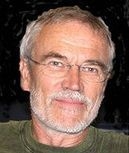
Extract from Pearls and irritations, John Menadue website, 3 March 2017
Zero tolerance in a professional context almost invariably means dismissal, but Pope Francis’s claim that the Church has a “zero tolerance” policy is not borne out by the figures he presented to the United Nations: only one quarter of all priests found to have sexually abused children have been dismissed. That’s a 75% tolerance not zero. On 1 March 2017, Marie Collins, the only abuse survivor on Pope Francis’ Pontifical Commission for the Protection of Minors, resigned because “what was happening behind closed doors was in conflict with what was said in public.” See article in National Catholic reporter ‘Survivor explains decision to leave Vatican’s abuse commission‘. The week before three other members of the Pontifical Commission, Sheila Hollins, Bill Kilgallon and Kathleen McCormack gave evidence in a panel to the Royal Commission, and expressed their frustration with the Vatican. The Chair of the Royal Commission, Justice McClellan told the panel that the work they were doing was of “fundamental importance to individual countries” because the work of the Royal Commission indicates that real change in the culture and practices of the Church in Australia will only occur if “it’s coming from Rome.” After several hours of questioning in which the panel spoke about resistance in Rome to their recommendations and its lack of resources, Justice McClellan observed: “The picture you all paint, from an outsider’s point of view, is of a world organisation which is struggling to come to terms with the safety of children and its responsibilities in that area.”....(more)

Extract from CathNews, 3 March 2017
A group of cardinals who supported the election of Pope Francis are worried about his reforms and are planning to appeal to him to step down, a Vatican watcher claims, according to The Times. "A large part of the cardinals who voted for him is very worried and the curia ... that organised his election and has accompanied him thus far, without ever disassociating itself from him, is cultivating the idea of a moral suasion to convince him to retire," Antonio Socci wrote in the Italian newspaper Libero. The conservative Catholic journalist said that Pope Francis's election had been backed by progressive German cardinals and a curia faction impatient with the rule of his predecessor, Pope Benedict XVI. It was the latter faction who now believed that the Pope should resign and who would like to replace him with Cardinal Pietro Parolin, the Vatican secretary of state, Mr Socci said. He believed that the group numbered around a dozen, "but the importance of the members counts more than their number". "Four years after Benedict XVI's renunciation and Bergoglio's arrival on the scene, the situation of the Catholic Church has become explosive, perhaps really on the edge of a schism, which could be even more disastrous than Luther's [who is today being rehabilitated by the Bergoglio church]," Socci wrote.....Putting pressure on a pope to resign is a crime punishable under canon law, Socci added, so it was unclear how the moral suasion might be exercised....(more) Photo: CathNews
Extract from Nicole Sotelo, National Catholic Reporter, 2 March 2017
Where are the young people? It's a common question at Catholic parishes across the country, and soon church officials may understand why so many have left. The Vatican has invited bishops to fill out a questionnaire about young adults in preparation for the 2018 synod, which focuses on the theme "Young People, the Faith and Vocation Discernment." The questionnaire instructs bishops not only to look at the young adults who participate, but also at those who don't. Among U.S. Catholics who have stopped participating and remain unaffiliated, nearly 80 percent did so before the age of 24, according to a 2009 Pew Research Center study. If bishops want to help the Vatican know why young adults in our country are leaving the church, they can start by looking at the research on Catholics who have left. They will find that it has less to do with a lack of belief and more to do with the fact that young people want a church they can believe in. Reasons for leaving....(more)

Extract from Lorna Donlon, The Tablet, 1 March 2017
While the Church and Government will not always agree, Mrs May said there are many areas where they can work together. People in Britain must feel able to speak about their faith in Christ, says Prime Minister Theresa May. The Prime Minister, Theresa May, has said she believes Christianity should be celebrated and that it has an important role in making Britain a country that works for everyone. Speaking at Downing Street reception for religious leaders on Shrove Tuesday, she explained how growing up in a vicarage shaped her upbringing as she witnessed first-hand the “many sacrifices involved and the hard work that so many of you do.”
Among those present were the Archbishop of Westminster, Cardinal Vincent Nichols and the Bishop of London, Richard Chartres, who is standing down after more than 20 years. Mrs May’s anecdotal reference to her own religious background, if brief, is in contrast to the reluctance of some recent occupants of Number 10 to broach the subject of religion. Tony Blair’s Director of Communications, Alistair Campbell, once famously remarked: “We don’t do God.” The Prime Minister said: “It is right that we should celebrate the role of Christianity in our country. We have a very strong tradition in this country of religious tolerance and freedom of speech, and our Christian heritage is something we can all be proud of. We must continue to ensure that people feel able to speak about their faith, and that absolutely includes their faith in Christ.”...(more)
Pat Power. The Royal Commission and the need for reform.
Extract from Pearls and Irritations, John Menadue website, 1 March 2017
Despite
all the warnings, I don’t know of anyone who has not been shocked by
what has emerged from the Royal Commission. For twenty years or more, we
have heard accounts of abuse, sometimes very close to home. But somehow
the magnitude of it all has been almost beyond comprehension.
Often when I meet Catholics who are no longer practising their faith,
they say to me without bitterness “I have not left the Catholic Church,
the Church has left me.” While I have always felt I understood what
those friends were saying, it is even more obvious to me now. So often
because of a culture of secrecy or shame they have carried guilt for
what have been the gravely sinful and criminal actions of those they
should have been able to trust. It is not surprising that a number of
those lives have ended in suicide......In my twenty six years as
auxiliary bishop and in the nearly five years since my retirement, I
have listened to many heart-wrenching stories of abuse. I never cease to
be moved by these personal conversations, trying always to listen from
the heart, but knowing that actions speak louder than words. Most of
all, I try to a “companion on the journey”, helping the person concerned
to find peace and to achieve whatever outcomes they are seeking. I hope
through my own integrity and willingness to listen, they will have a
very different experience of Church to what they previously negatively
encountered. I should add as well, that invariably I have been in great
admiration of the courage, goodness and holiness of the people who have
shared their often tragic stories with me. It has taken the adverse
publicity of the Royal Commission to make many in the Church leadership
to look to those reforms which have been crying out for implementation
for many years. Radical changes are needed at all levels....(more)
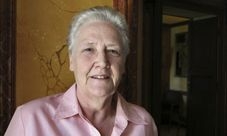
Extract bfrom Joshua J. McElwee1, National Catholic Reporter, 1 March 2017
Vatican City. The only active member of Pope Francis' new commission on clergy sexual abuse who is an abuse survivor has resigned from the group due to frustration with Vatican officials' reluctance to cooperate with its work to protect children. Marie Collins, an Irishwoman who has served on the Pontifical Commission for the Protection of Minors since March 2014, announced her resignation in a press statement Wednesday. In a separate exclusive statement for NCR explaining her choice, Collins says she decided to leave the commission after losing hope that Vatican officials would cooperate with its work following a failure to implement a series of recommendations. Collins says her decision to resign was immediately precipitated by one Vatican office's refusal to comply with a request from the commission, approved by the pope, that all letters sent to the Vatican by abuse survivors receive a response. "I find it impossible to listen to public statements about the deep concern in the church for the care of those whose lives have been blighted by abuse, yet to watch privately as a congregation in the Vatican refuses to even acknowledge their letters!" Collins writes in the statement.....(more) Photo NCR, (CNS photo/Carol Glatz)
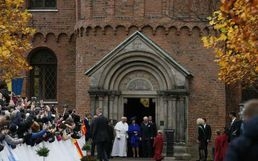
Extracts from Hans Kung, National Catholic Reporter, 1 March 2017
It was most gratifying that the chairman of the Protestant Churches in Germany, Bishop Heinrich Bedford-Strohm, accompanied by the president of the German Catholic bishops' conference, Cardinal Reinhard Marx, officially visited Pope Francis in Rome together on the occasion of the Reformation Jubilee. The Pope spoke of "an already reconciled diversity." He said he greatly appreciated the spiritual and theological gifts that the Reformation had given us and that he wanted to do everything he could "to overcome the obstacles that still remained.".....(more) Photo: MCR, (CNS photo/Paul Haring)

Chair Alexis Jay asked to name and shame perpetrators of abuse of British children shipped abroad from 1947 to the 1970s. The UK national child abuse inquiry has been urged at the opening of its public evidence sessions to name and shame the perpetrators of the sexual abuse of tens of thousands of British children forcibly deported to Australia by the UK government and leading churches and charities. David Hill, one of more than 4,000 children who were sent to Australia and other Commonwealth nations from 1947 to the 1970s, waived his anonymity at the opening of the independent inquiry on Monday to make an emotional call for justice for victims. The national child abuse inquiry is hearing testimony from people who were shipped as children to Australia. Some children sent to former colonies between the 1920s and 1970s faced servitude, hard labour and Hill is one of 22 former child migrants who will give evidence at the hearing. Many will testify of the extreme sexual and physical abuse they experienced when they were sent to Australia as part of the child migrant programme. He told the chair, Alexis Jay: “We will never be able to undo the wrongdoing to these children. But what is important to survivors of sexual abuse is where the inquiry is satisfied with the evidence, name the villains. “Many of them are beyond the grave, but it would bring a great deal of comfort to the people who as children were their victims if they were named and shamed.” Hill appeared in the inquiry hearing room in central London with a survivor who has also given up his right to anonymity, Oliver Cosgrove. Cosgrove was deported by the British state at the age of four. His lawyer, Imran Khan, said there would be no defence for institutions to say it had taken place a long time ago. “When was it that the physical, emotional and sexual abuse of children was OK? Not now, not then, not ever.”...(more) Photo: The Guardian,
Extract from Christopher Lamb in Rome, The Tablet, 28 February 2017
Whether to laicise priests guilty of abuse is not always straightforward. Pope Francis back in the firing line over how to deal with priests guilty of abuse. Pope Francis has made mercy the overriding theme of his papacy but he’s coming under fire for including abusive priests in his vision for a Church that offers forgiveness to all sinners. It leaves the Pope open to accusations that he is soft on abuse or, as survivors are arguing, he simply “doesn't get” the problem while his critics argue that, when it comes to crimes against children, justice rather than mercy should be the priority. The perception that Francis is not on top of the abuse problem has been reinforced by a recent story by Nicole Winfield of Associate Press, who reports that Francis has overruled the advice of the Vatican department calling for priest abusers should be defrocked. Rather than defrocking - or laicising - the priests, the Pope has sentenced them to a lifetime of prayer and penance and removed them from public ministry, which victim groups and some of his advisers believe is too lax a penalty.......(more)
Extract from CathNews, 28 February 2017
Abandoning the formalities of the past, Pope Francis has launched "a whole new style of 'ad limina' visits," according to a Chilean bishop, Crux reports. Traditionally, bishops expected "to have a long meeting with a speech and then individual meetings," Auxiliary Bishop Fernando Ramos of Santiago, secretary of the Chilean bishops' conference, told Catholic News Service. Instead, the Vatican informed the prelates before their departure from Chile that they were going to have a group meeting with the Pope and the prefects of several Vatican congregations and offices. "We were told that this was going to be a new way of doing things that was beginning with us, that looks for a more fruitful, more incisive dialogue between the representatives of the local churches and the pope with his main collaborators," Ramos said....(more)
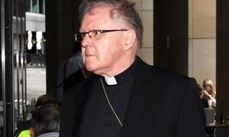
Extract from Catholic News Service, Contrbutor, Crux, 27 February 2017
After years of scandals and commissions regarding the issue of clerical sex abuse scandals, Australia's five archbishops wish to ask Pope Francis for clarification on whether or not the seal of confession includes only the sins confessed and in what circumstances a priest could withhold absolution. Sydney: Australia’s five archbishops said they would consider asking the Vatican for clarification on concerns raised in a government inquiry into sexual abuse of children in the church. Among those concerns were whether the seal of confession includes only the sins confessed, not other information revealed in confession, and under what circumstances - specifically concerning an abuser - a priest could withhold absolution. Archbishop Philip Wilson of Adelaide said the permanent committee of the bishops’ conference would meet in early March to set the agenda for its May meeting. If the full conference approved, documentation could be sent to Pope Francis after the May meeting, asking the pope “to expedite it and deal with it,” Wilson said. “These are two very specific issues where the church must do more work at clarifying its own position so that those of us who are responsible for the formation of priests can make sure that our priests are properly educated in these matters,” said Archbishop Timothy Costelloe of Perth. Wilson and Costelloe were among five archbishops who testified to the Royal Commission of Inquiry into Institutional Responses to Child Sexual Abuse on February 23 and 24, the final two days of three weeks of public hearings. The commission - which has spent nearly four years hearing testimony, including from victims of abuse - heard from a wide range of witnesses, including scholars, doctors, theologians and members of the Pontifical Commission for the Protection of Minors. It is expected to issue a final report by the end of this year.....(more) Photo: Crux
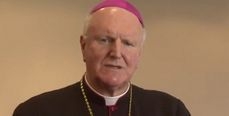
Extract from CathNews, 27 February 2017
On behalf of the ACBC and Catholic Religious Australia, Melbourne Archbishop Denis Hart has promised "to do all in my power to ensure the abuse of the past never happens again" and that reforms will be implemented. "As the Royal Commission into Institutional Responses to Child Sexual Abuse concludes its final hearing into the Catholic Church, I acknowledge the co-operation of witnesses, agencies, religious institutes and dioceses across the Church in Australia," Archbishop Hart wrote in a statement. "I particularly want to acknowledge the bravery of the survivors of child sexual abuse who have given evidence, not just in case studies involving the Catholic Church, but across the more than 50 case studies so far that have examined the many different institutions throughout Australia. "Over the past three weeks, more than 70 Church leaders and professionals have appeared before the Commissioners sharing expertise, identifying failings and describing best practice for the future of our Church structure, culture and governance. "The final hearing discussed many aspects and characteristics of Church and clergy life including: Canon Law, the confessional, celibacy, clericalism, formation, professional support and supervision. "What we have learnt from our involvement in the Royal Commission case studies and our own work in coming to a better understanding of the many different issues that have contributed to child sexual abuse in the Church will inform our future policies and practices. "The work of the Commission staff and the Commissioners themselves has no doubt been gruelling and challenging and, along with the rest of the Australian community, we owe them a debt of gratitude for their years of service....(more) Phot0: CathNews 0227-dh_28517artthumb.jpg
Extracts from Pearls and irritations, John Menadue blog, 27 February 2017
In any other walk of life or area of public administration, admission of criminal neglect would be a prelude to the tendering of resignations. The criminally negligent are not fit and proper persons to hold senior administrative responsibilities. Not so in the Catholic Church because it’s all someone else’s responsibility. It’s very rare that an emperor tells us he has no clothes. But hats off to one that does. That’s almost what the Australian bishops have just done after being driven to their knees by the scale and reach of sex abuse in the Church. It was revealed in their ‘wrap-up’ before the Royal Commission. Of course these emperors don’t admit that THEY have no clothes. It’s their predecessors who are shown to be naked before the truth. Their predecessors were ‘scandalously inefficient, … hopelessly inadequate … just totally wrong’ They were even found by one of their number with a law degree – Anthony Fisher of Sydney – to have been ‘criminally negligent’. ‘Negligent and criminally so’ indeed! If they were still alive, a former archbishop and two former bishops would certainly face charges and in all likelihood have been sent to gaol. In any other walk of life or area of public administration, admission of criminal neglect would be a prelude to the tendering of resignations. The criminally negligent are not fit and proper persons to hold senior administrative responsibilities. Not so in the Catholic Church because it’s all someone else’s responsibility. It’s as if the world Donald Trump is creating in the USA has always been alive and well in the way the Catholic Church runs its affairs....(more)
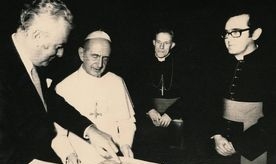
Gough Whitlam wrote a letter to Pope Benedict XVI in October, 2012, nearly four decades after his government granted formal diplomatic recognition to the Vatican, and only weeks before another Labor prime minister, Julia Gillard, established a royal commission that would expose the extent of child sexual abuse within the Australian Catholic Church. Diplomatic relations with the Vatican from 1973 was a “memorable and significant initiative” of his government, Whitlam told the Pope. The relationship was one “which has always been maintained with deep mutual respect and consideration”. “The mutual hopes for closer relations between the Holy See and Australia have been fulfilled in abundance. I shall always have fond memories of visiting Pope Paul VI and of the great enchantment of Rome, the Eternal City,” one of the Labor Party’s great reformers wrote. Whitlam died two years later, on October 21, 2014, only three months after Vatican secretary of state Cardinal Pietro Parolin declined a request from the Royal Commission into Institutional Responses to Child Sexual Abuse for files of all Australian alleged perpetrator priests held by the Vatican......Time and again the commission has returned to the church’s culture, and the need for change. And outside the commission, the need for change has prompted calls for Australia to renounce the church’s diplomatic status, and for the federal government to seriously consider those calls. Catholics for Renewal president, and former chief executive and chair of federal and Victorian government departments and public sector organisations, Peter Johnstone, supported those calls after giving evidence at the commission about the need for Australians – Catholic and non-Catholic – to send a “hard” message to the Pope and the Vatican in response to the tragedy of abuse in this country. “I have no hesitation in arguing the royal commission should say to the government that if the Catholic Church will not cooperate in making major changes – and the Australian church can’t change without the global church changing - then the government should say to the Catholic Church it will reconsider its diplomatic recognition of the Holy See,” Johnstone said this week.....In a blistering few words this week human rights lawyer and church critic, Geoffrey Robertson, QC, supported renouncing the church’s diplomatic recognition, saying “if we have any self-respect we should sever our ties with it”. “Closing it now would send an important message to the Vatican that it must never again orchestrate child abuse, and it must not continue to cover it up by declining to cooperate with the Royal Commission,” Robertson said....(more) Photo: Newcastle Herald
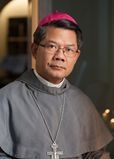
Extract from Catholic Outlook, 25 February 2017
Lent is an important season for us Catholics insofar as it reminds us of the need for conversion. We cannot live life to the full if we gloss over the inconvenient truths about ourselves. We cannot grow to full maturity if we ignore the obstacles that prevent us from reaching our potential. Pope Francis always asks people to pray for him because he says he is a sinner. It is characteristic of a true Christian who recognises the darker side of himself and seeks metanoia, a change of heart. More than ever before, the Catholic Church in Australia needs to recognise the dark crimes of sexual abuse against children and vulnerable people under its care, and the untold damage done to them and their loved ones. The Royal Commission into Institutional Responses to Child Sexual Abuse has delivered a shameful indictment not simply on the perpetrators and their enablers but the Church’s collective and systemic betrayal of the Gospel. Nevertheless, I believe firmly that the Church must be grateful for the work of the Royal Commission. More importantly, we must seize this Kairos, this moment of grace, this opportunity as a catalyst for change and not treat this period as a temporary aberration. It can never be business as usual again. We must have the courage to see how far we have drifted from the vision of Jesus, repent of our sins, and face up to the task of reclaiming the innocence and the powerlessness of the Servant-Leader....(more) Photo: Catholic Outlook
Extract from Karen Percy. ABC News, 24 February 2017
The Melbourne Archbishop should not oversee the Catholic Church's scheme to address sexual abuse within the archdiocese, a redacted report has recommended. A 2015 report into the Melbourne Response by former Federal Court judge Donnell Ryan QC was released by the Royal Commission into Institutional Responses to Child Sexual Abuse late this afternoon, at the conclusion of hearings featuring senior Catholic figures. The report was suppressed by the Catholic Church for more than a year. In it, Mr Ryan makes 17 recommendations, several of them suggesting those in charge of the scheme not be under the Archbishop's power, that files and archives be held separately, and that budget and administrative matters also be separated out. But he points out "nothing has been revealed ... to suggest [anyone] ... has ever acted under the direction or influence of the Archbishop or any other church official". The Melbourne Response was established by Cardinal George Pell in 1996, when he was Catholic Archbishop of Melbourne. Mr Ryan has also recommended the scheme appoint qualified lawyers, psychologists and psychiatrists, and it be statewide. He noted that apologies to complainants had "generally not been adapted to reflect a recognition of the harm done to each individual applicant".....(more)
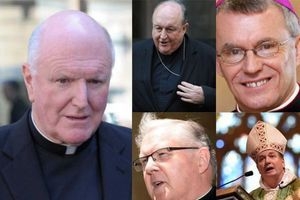
Extract from Riley Stuart, ABC News, 23 March 2017
The Archbishop of Sydney, Anthony Fisher, has told a royal commission the response by Catholic Church leaders to allegations of child sexual abuse amounted to "criminal negligence". Five of Australia's most senior Catholic figures are fronting the Royal Commission into Institutional Responses to Child Sexual Abuse in Sydney today. It is the first time Archbishop Fisher has been questioned at the royal commission, which has been running for four years. "It was a kind of criminal negligence to deal with some of the problems that were staring us in the face," he told a public hearing. "In other cases, I think there were people that were just like rabbits in the headlights, they just had no idea what to do, and their performance was appalling."......The Archbishop of Perth, Timothy Costelloe, also gave a damning assessment of the way allegations of sexual abuse had been handled. He said there had been a "catastrophic failure" in church leadership and that the abuse of children was at odds with what the Catholic Church purported to be. "That leads me to reflect there has also been a catastrophic failure in keeping people faithful [like priests] to the commitments they made. I asked myself what can possibly have gone wrong, or what was missing, that could lead to, not just one, but countless people failing in this way," Archbishop Costelloe said. The archbishops were grilled about what they had done to deal with those "catastrophic failures" in leadership they had agreed were at the root of the child sexual abuse. They said they were taking a more collaborative approach to decision-making in their diocese. "The problem will always be there to potentially rise again unless that issue is dealt with," Archbishop Costelloe said. He said in the past, the Holy See believed itself to be "so special, so unique and so important" that it was untouchable. "That's probably the way many bishops in their own dioceses might also think of themselves — as a law unto themselves, as not having to be answerable to anybody, as not having to consult with anybody as to being able to make decisions just out of their own wisdom," Archbishop Costelloe said........(more) Photo: AAP/Catholic Church) Catholic Archbishops giving evidence today, clockwise from left: Denis Hart, Philip Wilson, Timothy Costelloe, Anthony Fisher, Mark Coleridge. (AAP/Catholic Church)

Extract from Austen Ivereigh, Contributing Editor, Crux, 22 February 2017
Amoris Laetitia has not changed Church teaching and draws directly from Catholic tradition, according to the Archbishop of Westminster, Cardinal Vincent Nichols, who has also praised Pope Francis’s “patience and reserve” in response to vehement criticism. Asked in an interview with The Irish Catholic following a lecture in Belfast to respond to a threat made by Cardinal Raymond Burke to issue a “formal correction” of the pope, Nichols, 71, expressed his firm support for Francis. “The pope is the one who has been chosen under the influence of the Holy Spirit to lead the Church, and we will follow his lead,” he said, adding that “the pope’s patience and reserve about this whole matter is exactly what we should observe.” Asked if the exhortation modified church teaching, Nichols said: “There is no question of that…The issues raised by Amoris Laetitia are not core doctrinal issues, these are about how do we live, in very traditional terms actually, everything in Amoris Laetitia is drawn from the tradition of the Church: how do we live the mercy of God and how do we enable people who feel judged, feel excluded, feel as if they have no place, to begin to explore that.” The cardinal attended both synods on the family, and now sits on the synod’s general secretariat.....(more) Photo: Crux, AP Photo/Gregorio Borgia.)
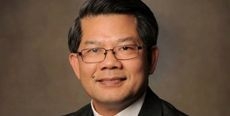
Extract from CathNews, 22 February 2017
Parramatta Bishop Vincent Long Van Nguyen has made an impassioned plea for the Church to become less "elitist" while revealing he was sexually abused by clergy, The Australian reports. Bishop Long was applauded during his evidence at the Royal Commission into Institutional Responses to Child Sexual Abuse on Tuesday. Survivors of sex abuse and their loved ones approached afterwards and some cried as they spoke with him. "I was also a victim of sexual abuse by clergy when I first came to Australia, even though I was an adult," the former refugee said towards the end of his testimony in Sydney. "That had a powerful impact on me and how I want to ... walk in the shoes of other victims and really endeavour to attain justice and dignity for them." Bishop Long, who is the first Australian bishop of Vietnamese background, said titles, privileges and the Church's institutional dynamics "breed clerical superiority and elitism". He says he cringes when parishioners call him "your lordship" and the Church needs to review mandatory celibacy - which he thinks separates the clergy from parishioners. Archbishop of Hobart Julian Porteous and Archbishop of Canberra and Goulburn Christopher Prowse said they would not insist on someone calling them by a title but would also not demand honorifics be dropped. Bishop Porteous told the commission that while blame lies with individual perpetrators he agreed there had been a massive failure in Church leadership.....(more)
Extract from CathNews, 21 February 2017
A newly established national oversight body for the Church will have the power to publicly name dioceses or religious orders which fail to meet its robust standards, the Sydney Morning Herald reports. The Royal Commission into Institutional Responses to Child Sexual Abuse was told the new body, Catholic Professional Standards (CPS), will also give bishops the authority to penalise priests who do not to comply with the new benchmarks. The commission heard that the body, formed late last year, would set, enforce and audit new standards on the protection of children and vulnerable people. Neville Owen, the chairman of the Church's Truth, Justice and Healing Council, told the hearing CPS would publicly name the dioceses and orders which failed to comply. "The teeth in this system is public reporting," he said. "The intention is public reporting will be the norm." Brisbane Archbishop Mark Coleridge told the hearing the body would give bishops the power to penalise priests who failed to comply.....(more)
Extracts from Eric Hodgens, Pearls and Irritations, John Menadue Blog, 21 February 2017
While the Catholic population is increasing, active participation in parish life is steadily decreasing. This means that the pool of future lay leaders is steadily getting shallower. If this decline is to be reversed, now is the time to select lay leaders, train them to lead parishes and then formally appoint them as Parish Leaders. The Royal Commission into Institutional Responses to Child sexual abuse has put the spotlight on the Australian Catholic Church’s priesthood and seminary training which is in need of an overhaul. First some facts:.......No one person can excel at all of these tasks. Deputing capable others is essential. Despite the importation of foreign-trained priests the total number of active priests has been steadily declining. This has been going on for 35 years so hoping for a quick reversal is irresponsible. More and more parish communities have to share a priest. Consequently, lay leaders are gradually taking over parish leadership. This is necessary if parish communities are not to die out. While the Catholic population is increasing, active participation in parish life is steadily decreasing. This means that the pool of future lay leaders is steadily getting shallower. If this decline is to be reversed, now is the time to select lay leaders, train them to lead parishes and then formally appoint them as Parish Leaders. Lay parish leaders still need to call in ordained priests for the valid sacramental ministry of the Mass, Penance and Anointing of the Sick. If an ordained priest is not available they have to make do with a similar liturgy conducted by a lay person (referred to as a para-liturgy). The most pressing need for an ordained priest is to celebrate Mass because this has always been the very heartbeat of parish life. The growth of lay leadership puts a spotlight on the seminaries. Seminaries are still geared to producing ordained priests as parish leaders of the old model. As lay leadership becomes more the norm, the purpose of seminaries will come under review.....(more)

Royal Commission final week of 'wrap-up' Hearings.
Friday 17 February 2017
Amongst others, listed witnesses for the final week of wrap-up Hearings for Royal Commission Case Study 50 - The Catholic Church - include Archbishops Denis Hart, Anthony Fisher, Mark Coleridge, Timothy Costelloe SDB and Philip Wilson. Hearings are streamed live and daily transcripts are available from the The Royal Commission website. The Commission will deliver its Recommendations in December.
Extract from Francis Sullivan, CEO Catholic Church’s Truth Justice and Healing Council, Melbourne Catholic, 16 February 2017
Today the Royal Commission has released the full report of its survey results on claims made against Catholic organisations for alleged child sexual abuse by their personnel. As such, it is the composite of Church records since 1950, of claims of abuse. As we know these claims comprise records of known offenders, alleged offenders and unidentified offenders. Over the years, dioceses and religious orders have used a variety of processes to determine the veracity of these claims. Some claims were too obvious to warrant any investigation and were accepted on the information provided by the survivor. Others were substantiated by formal investigations, police referrals or corroborated evidence. Others proved difficult to establish because victims couldn’t recall the actual names of their abusers or were uncertain over the extent to which some people were involved in their assault. So, the data reflects the scope of alleged abuse within the Church. It does not break this abuse down into categories of certainty because Church Authorities themselves have struggled to be that accurate. Today’s data provides new insight into some aspects of child sexual abuse within the Catholic Church including:....(more)

Extract from Peter Johnstone, John Menadue 'Pearls and Irritations', 17 February 2017

Extract from CathNews, 17 February 2017
The Catholic Church has paid more than $276 million in claims to thousands of victims of child sexual abuse, the Royal Commission into Institutional Responses to Child Sexual Abuse has heard, ABC News reports. Close to 4500 people made claims for alleged incidents of child sexual abuse between January 1980 and February 2015, but the earliest incidents reported to a claim were in the 1920s. Counsel assisting the commission, Gail Furness SC, told the Sydney hearing that figure included compensation, treatment, legal and other costs. Of the total amount, $258.8 million was monetary compensation of about $91,000 per claim. "The Christian Brothers who, at the relevant time operated a number of residential facilities, reported the highest number of payments," Ms Furness told the hearing. "This order made 763 payments, amounting to $48.5 million, with an average payment of $64,000. The Christian Brothers also issued a statement apologising to victims of abuse and their families. "To those who were subjected to abuse at any of our facilities we express again our profound sorrow and enduring regret that their trust was so grievously betrayed," the statement said. The hearing heard the most common institution type identified in claims was schools: they were identified in 46 per cent of all claims, and children's orphanages or residential facilities were identified in 29 per cent of claims. The highest number of claims of child sexual abuse concerned a residential care facility operated by the De La Salle Brothers in Queensland, with 219 claims relating to the facility. Earlier, Francis Sullivan from the Truth, Justice and Healing Council, told the hearing that things are very different now, and that parents should be aware that their children are in safe hands at Catholic schools....(more) Photo:Cathnews
Extract from paper by Peter Day, linked to source with permission of author, 17 February 2017
The catastrophe that is sexual abuse in the Catholic Church and the cultural factors that have contributed to it are seriously complex, and unravelling the mess will take a generation… or two, or three! One readily identifiable and accepted contributor to this disaster is clericalism. In essence, the abusive wielding of power by clergy - lording it over others, rather than serving them. As Lord Acton said insightfully over a century ago, “Power tends to corrupt and absolute power corrupts absolutely.” And while many of our bishops seem genuinely keen to eradicate this dysfunctional power imbalance; is it not the case that the very culture in which they find themselves is at the heart of the problem? For instance, the process of selecting bishops is, itself, clericalism writ large: a series of generally secret actions bereft of transparency and overseen by a select few ordained males. It is emblematic of the Catholic hierarchical project; one that, for the most part, totally ignores and sidelines the people of God, thus, trashing the Vatican 11 notion of “the priesthood of the baptised”....(source)

Extracts from mark Shea, Catholic Weekly, CathNews. 17 February 2017
What little I have gleaned is that this is controversy about a pastoral document that was deliberately intended to allow as much flexibility as possible to pastors and which presented to enemies of the Pope their hoped-for shot at suggesting he is heterodox. (My English friend writes:) I get what the article is saying and the whole "we can read this in a way that's okay" thing but I can say "this is the correct way" and somebody else can say "no, this is the correct way" and it's all down to individual interpretation which is nice and all but don't we have a magisterium to avoid that situationn. Actually, very rarely do we have a Magisterium for the purpose of closing debate. Usually, we have one that helps us debate well and gives us a few ground rules to keep us from going out of bounds. There have been arguments in the Church that have lasted for centuries.....I can only answer for myself, but it seems to me that primary function of the Magisterium, through most of its history, has not been to conclude debates, but to make sure that no party to a debate and no partisan of a custom, school of philosophy, pastoral approach or political theory is allowed to tell everybody else "my way or the highway". This is the norm in the Church's history. Romans 14 in action.....(more) Photo: Cathnews.
Extracts froms Inés San Martín, Crux, 15 February 2017
In the face of ever more vocal criticism, Pope Francis has responded with talk about brotherhood and the shadow side of criticism, when it becomes "malevolent." Perhaps part of what helps Francis keep an even keel is the realization that he's hardly the first pope to face opposition and insults.....The pontiff, as he has often in the past, continues to respond by talking about the importance of brotherhood and the shadow side of criticism - more often than not, rooting his words in the day’s Gospel. Take for instance this weekend. On Friday, news broke about a spoof version of L’Osservatore Romano making the rounds in Rome, distributed to Vatican officials through email, in essence accusing the pope of being wishy-washy on marriage and divorce. Two days later, as he was addressing the crowd that had gathered for the Sunday Angelus prayer in St. Peter’s Square, Francis reflected on Christ’s Sermon on the Mount, found in Matthew’s Gospel, and read in Catholic parishes across the world over the weekend. According to Francis, the biblical passage is an invitation “not to establish a gradation of offenses, but to consider them all harmful, insofar as they are all moved by the intention to do harm to one’s neighbor. “Please, do not insult! We earn nothing by doing so,” he said.........In a Mass concelebrated with the group of cardinals from around the world who advise him, and with many newly-ordained priests in attendance, Francis urged those present to be aware that “even within our episcopal colleagues” there are small cracks and rifts that can lead to the destruction of brotherhood.....This Monday, after the Mass, the group of cardinal advisors, known as the C9, released a statement signed by Cardinal Oscar Andrés Rodríguez Maradiaga saying that “In relation to recent events, the Council of Cardinals expresses its full support of the work of the Pope, while ensuring full adhesion and support to his person and his Magisterium.” German Cardinal Reinhard Marx, member of the C9, stood by the statement during a press conference held on Wednesday about an upcoming meeting of the Centesimus Annus Pro Pontifice foundation, a lay-led Vatican non-profit organization that promotes Catholic social teachings. “We have discussion in the Church, that is clear, normal discussions, tensions,” Marx said. “It will be ever like this. But in a time like this it is also clear for us as Catholics that loyalty to the pope is substantial for the Catholic faith, for Catholic believers.”.....(more)

Extract from CathNews, 13 February 2017
Ashamed. Humiliated. A kick in the guts. They're some of the words Sydney Archbishop Anthony Fisher OP used to describe his reaction to the extent of sexual abuse in the Catholic Church, reports the Daily Telegraph. Archbishop Fisher admitted that he and other clergy felt contaminated, betrayed and demoralised by the paedophiles in the Church. He understood why Australians felt so angry. "We knew (the report) would be bad, but it's humiliating, it's harrowing," he Fisher said. "It really has hurt me and it has hurt a lot of priests and bishops, but that's tiny compared with how it's hurt the survivors." Commission staff were still crunching numbers last Saturday, and senior bishops were not told the final figures until late on Sunday night ahead of their Monday release. "I felt – probably this will be pretty universal among the bishops and the clergy – quite winded," Archbishop Fisher said of the moment he saw the figures. He has since spoken to many clergy and they are "feeling betrayed, demoralised by it", he says. Community reactions have ranged from defensiveness among some Catholics, to such disillusionment towards the Church from nonbelievers that, for some, the word priest has become synonymous with paedophile. Archbishop Fisher said that, in a sense, they are both right. "This is so awful that you lose perspective on everything else. On the really good things, the schools for poor kids, the orphanages, the hospitals where there were none, the wonderful things the church – and not just the Catholic Church – did in building the social infrastructure of Australia," he said.....(more) Photo: CathNews
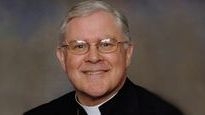
AS well as fronting the Royal Commission this week, Brisbane Archbishop Mark Coleridge has spent time speaking extensively to journalists about child abuse and the Church. Speaking to the ABC’s Radio National Breakfast, Archbishop Coleridge told presenter Fran Kelly, the Church was doing all it could to change the culture of the past to protect the children of today. “The data is absolutely horrific,” Archbishop Coleridge said, following the release of Royal Commission figures revealing the extent of priest abuse. “Sitting in the hearing room … listening to the litany of horror had an extraordinary impact. And it did on all of us. “I for one never imagined the scale of the problem in years past. The data is there for all to see now. “There is almost certainly more out there that has not come to light. “I have long abandoned any suggestion of it being only bad apples, and I have said for years in fact now that we are dealing with something that is cultural and systemic. “I began a journey on all this stuff from the mid 80s. Certainly back in those early days it struck me as being a weird exception and very much a case of bad or mad apples.” Archbishop Coleridge said he had gone on “a journey of discovery … and it’s been painful and it’s far from over”. “So I will be the first to say …..... this is not an exception it is something that relates to the culture. And that is why I say we’ve got to change procedures and protocols, and we’ve begun that … but if that doesn’t lead to cultural change then the likelihood is we won’t really grasp the nettle,” he said. “And this is one of the things the Royal Commission is going to address in these three weeks – what were the cultural factors that led to the particular modulations of abuse and its mishandling in the Catholic Church.” Archbishop Coleridge singled out clericalism – ministry in the church that is geared not to service but to power over other people – as being at the heart of cultural factors. “And in many ways when we talk about sexual abuse it is abuse of power,” he said....(more) Photo: Catholic Leader
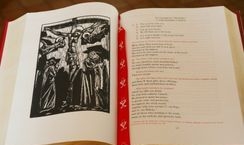
Extracts from Gerry O'Collins, Eureka Street, 8 February 2017
It is good news that Pope Francis has appointed a commission to revisit Liturgiam Authenticam (LA). This Vatican document, issued on 28 March 2001, provided the unfortunate guidelines that 'justified' the ugly, Latinised translation foisted on English-speaking Catholics by the 2010 Missal. Roman MissalIn a swinging and detailed criticism of LA, Peter Jeffery, a professor at Princeton University, has described the document as 'the most ignorant statement on liturgy ever issued by a modern Vatican congregation'. Jeffery, a Benedictine oblate, places himself on the right of the Catholic spectrum, 'as conservative as one can get without rejecting Vatican II'. In his Translating the Tradition: A Chant Historian Reads Liturgiam Authenticam, he charged the anonymous people who wrote LA with being 'seriously misinformed' and making many 'misstatements about the Roman liturgical tradition'. LA claimed that the Latin Church as a whole shared a uniform tradition of starting the Creed with 'I believe', as if 'we believe were essentially an Eastern tradition'. As Jeffery showed, in the Roman Mass there have always been those who used 'credimus (we believe)' instead of 'credo (I believe)'. LA required vernacular versions to maintain 'verbal equality' with the original Latin in which Paul VI issued the 1970 Missal. The translators went ahead and produced long sentences that belong to the Latin of Cicero but not to modern English. LA proposed using a 'sacred vernacular' that differs from current speech and could sound strange and even 'obsolete'. Those responsible for the 2010 Missal followed this guideline by repeatedly preferring 'charity' over 'love', 'compunction' over 'repentance', 'laud' over 'praise', 'supplication' over 'prayer', and 'wondrous' over 'wonderful'. Speaking of an 'oblation' rather than a 'sacrifice' or 'offering' can leave the congregation wondering whether the priest has stumbled over the word 'ablution'. 'Oblation' no longer has currency in contemporary English. In the Creed, 'consubstantial', straight from the Latin consubstantialis, has replaced the genial translation 'of one being'. 'Consubstantial', like 'prevenient' grace, used by the 2010 Missal for the feast of the Immaculate Conception, belongs to theological discourse, not to the liturgy we celebrate together. "The 2010 Missal slavishly applies the word-for-word principle inculcated by LA, rather than the meaning-for-meaning principle practised by all great translators from the time of St Jerome."...........I sincerely hope that Francis' commission will not merely revisit LA but strongly press for its repeal. The road will then be open to revisit the clumsy, difficult 2010 Missal and replace it.....(more) Photo: Eureka Street

Extracts from the Truth, Justice, Healing Council, Melbourne Catholic, 9 February 2017
On day 3 of the Royal Commission’s hearing panel members discussed structural and cultural issues, including accountability and transparency. The panel comprised Dr Maureen Cleary, Governance and Management consultant; Patrick Parkinson, Professor Law at the University of Sydney; Peter Johnstone, President of Catholics for Renewal; and Mark Coleridge, Archbishop of Brisbane and member of the Supervisory Group and the Truth Justice and Healing Council. Dr Cleary said the Church’s network of professional standards offices have been poorly resourced and inconsistently funded by local bishops, setting them up for failure. Professor Patrick Parkinson has been involved in child protection for nearly 30 years. He told the Commission that church structure undermines the Church’s capacity to respond to child sexual abuse. He said mandatory celibacy, combined with emotional and sometimes geographic isolation is causative and explains some of the shocking figures in the Royal Commission’s data survey. And added that there is a need to find a way to engage the laity in the organisation and spiritual running of the church. Peter Johnstone said that Catholics for Renewal is a group of committed Catholics established to respond to what they saw as the dysfunctional governance of the Church and its inadequate response to the sexual abuse of children. He said the governance of the Church is dysfunctional. It failed to measure up against principles of good governance including accountability, transparency, leadership, listening and aligning the leadership of that organisation with its mission. He expressed concern that bishops can take decisions in secret without any accountability. Peter Johnstone said that for cultural change you need leadership change and recommended that the 2020 Synod be preceded by a series of synods where bishops of the country listen to the people. Mark Coleridge, Archbishop of Brisbane, told the Commission that cultural change in the Church is extremely difficult. He said Pope Francis and the Royal Commission are catalysts for cultural change and that it won’t be business as usual post Royal Commission. ‘I think that's probably true, that we haven't yet embraced adequately a transparency that is appropriate and even necessary for an unusual community of communities like the Catholic Church,’ he told the Commission. He said there is ‘evidence of a lingering culture – that we do our own thing, we are a law unto ourselves. We hope the Royal Commission can help us with what that is and how we can go about it.’....(more)
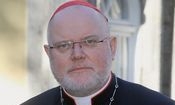
Extract from Christa Pongratz-Lippitt, La Croix International, 8 February 2017
They recall the pope’s words in 'Amoris Laetitia' that "no one can be condemned forever because that is not the logic of the Gospel!". The Catholic bishops of Germany have declared that remarried divorcees can partake in the Church’s sacraments – including Holy Communion – if, after a long period of reflection, such Catholics decide they can do so in good conscience. This is believed to be the broadest interpretation to date by a national episcopal conference on how to apply Pope Francis’ apostolic exhortation Amoris Laetitia (AL). The German Bishops’ Conference published guidelines for implementing the papal document on February 1st. The Church leaders first interpret at length what Francis has to say on (a) marriage preparation, (b) the accompaniment of marriage and (c) strengthening the family. It is only afterward that they go on discuss (d) the accompaniment of remarried divorcees. The order in which these four points are discussed is important since the guidelines were immediately and sharply criticized in conservative Church circles for only highlighting the subject of the remarried divorcees, which is not the case. The bishops point that, while Amoris Laetitia leaves no doubt that the “indissolubility of marriage belongs to the Church’s essential deposit of faith”, it “likewise leaves no doubt about the necessity of taking a differentiated look at the particular situation people find themselves in”. They recall the pope’s warning to “avoid judgments which do not take into account the complexity of various situations”, citing his words that “no one can be condemned forever because that is not the logic of the Gospel!”(AL 297). In their guidelines, the bishops say it is essential to respect a final individual decision of conscience. But they also make it clear that a serious examination of conscience and a longer process of deliberation accompanied by a priest must be part of the process. However, they also admit that, even then, it may not be possible to allow the individual concerned to receive the sacraments “in every case”.....(more) Photo:La Croix, WolfgangRoucka /Wikipedia / CC BY-SA 3.0
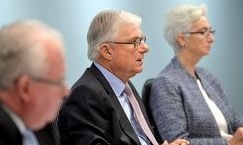
Edited Extract from Michael Kelly SJ, La Croix International 7 February 2017
In a world first, the Australian Church is under the microscope for the next three weeks for its conduct and management of child abuse. Six of the seven archbishops in the country will all be called to give evidence and answer questions. The Royal Commission into Institutional Responses to Child Abuse, established in November 2014, will focus on a “wrap up” of the study of the Catholic Church in Australia. The Commission has reported 1,880 cases over the last two years for investigation by the police and this represents 40% of all cases the Commission has referred to the police. The “wrap up” will particularly focus on the structural and cultural factors involved in the Church’s life that allowed and then covered up child sexual abuse. Some 40% of all referrals for investigation and prosecution have been of people working in Catholic institutions. An extraordinary piece of evidence presented to the Commission is that up to 7% of Australian clergy have been child abusers. The six archbishops (of Sydney, Melbourne, Canberra, Adelaide, Perth, and Brisbane) are among the many officials who will be heard by the Commission in coming weeks. Amongst them are superiors of religious congregations, leaders of Catholic health, and welfare and educational services. The focus of the Commission’s cross-examination of Catholic leaders will be twofold.....(more). Proceedings are streamed live via the Royal Commission website (HERE) where daily transcripts may also be downloaded. Photo: Royal Commission into Institutional Child Abuse
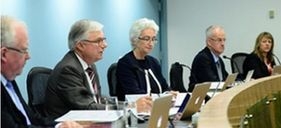
Extract from CathNews, 7 February 2017
More than 20 per cent of the members of some Catholic religious orders were allegedly involved in child sexual abuse, a royal commission hearing in Sydney has been told, ABC News reports. Nearly 2000 Church figures, including priests, religious brothers and sisters, and employees, were identified as alleged perpetrators in a report released by the Royal Commission into Institutional Responses to Child Sexual Abuse. In her opening address, Gail Furness SC said a survey revealed 4444 alleged incidents of abuse between January 1980 and February 2015 were made to Church authorities. Ms Furness said 60 per cent of all abuse survivors attending private royal commission sessions reported sexual abuse at faith-based institutions. The royal commission's report found of the 1880 alleged perpetrators from within the Church, 572 were priests. Ms Furness described the victims' accounts as "depressingly similar". The Archbishops of Sydney, Perth, Brisbane, Adelaide, Melbourne and Canberra-Goulburn have congregated in Sydney to give evidence as part of the three-week public hearing. In his opening statement, Francis Sullivan, CEO of the Truth, Justice and Healing Council, affirmed the commitment of Catholic leaders to repairing the wrongs of the past, to listening to survivors and putting their needs first, and ensuring a safer future. He expressed admiration and gratitude for the survivors who came forward to tell their story. Mr Sullivan acknowledged the data which had just been presented by Ms Furness, saying that it must be reckoned with, and noting that the hearing would provide the opportunity for this reckoning. He said that one child abused by a priest or religious was appalling to all faithful Catholics, calling it a hypocrisy "grossly unbefitting a Church which seeks to be, and should be, held to its own high standard."....(more) Photo: CathNews
Extract from Rose Gamble, The Tablet, 06 February 2017
Four in ten brothers in one Catholic order involved in abuse, shocking figures released today claim Seven per cent of priests in Australia involved in abuse of children, royal commission announces
Seven per cent of priests in the Catholic Church in Australia allegedly abused children between 1950 and 2010, an inquiry examining institutional sex abuse in the country has been told. The statistics were released during the opening address of a hearing of Australia's Royal Commission into Institutional Responses to Child Sexual Abuse on 6 February. The commission - which is Australia's highest form of inquiry - has been investigating since 2013 how the Catholic Church and other institutions responded to the sexual abuse of children over decades. The commission has gathered scores of testimonies, which Gail Furness, the lead lawyer assisting the commission described as "depressingly similar" in her opening address. "Children were ignored, or worse, punished. Allegations were not investigated. Priests and religious [figures] were moved. The parishes or communities to which they were moved knew nothing of their past," ABC Australia reports Furness to have said. Furness said that 60 per cent of all survivors of abuse were from faith-based organisations. Of those, nearly two-thirds concerned the Catholic Church. Between 1980 and 2015, 4,444 people reported they had been abused at more than 1,000 Catholic institutions across Australia, said Furness. The average age of the victims was 10.5 for girls and 11.5 for boys. On average, it took 33 years for each instance of abuse to be reported. The commission also details abuse claims against 10 religious orders in the same six decades. Data published by the Royal Commission shows four orders had allegations of abuse against more than 20 per cent of their members....(more)
Extracts from CathNews, 3 February 2017
CDF head Cardinal Gerhard Muller has repeated that divorced and remarried couples must live in continence if they want to receive Communion at Mass and this teaching cannot change, writes Michael W. Chapman at CNS. Cardinal Muller explained this point in an interview with the Italian magazine Il Timone, portions of which were translated into English in the newspaper L'Espresso and re-published in the The Catholic Herald. The topic is controversial because of Pope Francis's letter Amoris Laetitia, which not a few bishops have proclaimed permits the divorced/remarried, who are living as man and wife, to receive Communion, although they are objectively in a state of adultery, a grievous sin. In the interview, Cardinal Muller was asked, "The exhortation of Saint John Paul II, Familiaris Consortio, stipulates that divorced and remarried couples that cannot separate, in order to receive the sacraments must commit to live in continence. Is this requirement still valid?" Cardinal Muller said, "Of course, it is not dispensable, because it is not only a positive law of John Paul II, but he expressed an essential element of Christian moral theology and the theology of the sacraments. "The confusion on this point also concerns the failure to accept the encyclical Veritatis Splendor. For us marriage is the expression of participation in the unity between Christ the bridegroom and the Church his bride. This is not, as some said during the [2015] Synod, a simple vague analogy. "No! This is the substance of the sacrament, and no power in Heaven or on Earth, neither an angel, nor the Pope, nor a council, nor a law of the bishops, has the faculty to change it."..... I don't like it, it is not right that so many bishops are interpreting Amoris Laetitia according to their way of understanding the Pope's teaching."...(more)
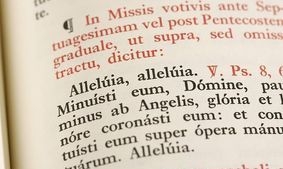
Extract from Peter Feuerherd, National Catholic Reporter, 2 February 2017
Within church circles, restorationism, a movement to "renew the renewal" of Vatican II by bringing traditionalist approaches to liturgy and governance of parish life, is often denied and frequently argued about. It might be akin to how a Supreme Court Justice famously viewed pornography: hard to define, but you know it when you see it. In parishes across the country, young pastors, raised in a post-Vatican II world, are incorporating costumes, vestments, music and other elements that have their roots in practices preceding 1965. For some, including Pope Francis, one of its most acerbic critics, the movement is rife with clericalism, asserting priestly powers in parishes where laypeople had grown accustomed to participation in ministries and governance. The pope has railed against a resurgent clericalism, in one case telling a group of religious formation directors about "little monsters" who use ordination to lord it over others. Benedictine Fr. Anthony Ruff, associate professor of theology at St. John's University in Collegeville, Minn., told NCR that restorationism is a reaction to growing secularization and rapid social change, such as the widespread acceptance of same-sex marriage and declines in Mass attendance. "There is fear of a rapidly changing world. I think it is driving people to bad solutions," he said..........(more) Photo: NCR, CNS/Nancy Wiechec
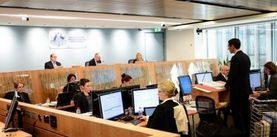
Royal Commission wrap up may be painful
Extracts from CathNews, The Catholic Weekly, 2 February 2017
On February 6, the Royal Commission into Institutional Responses to Child Sexual Abuse will commence Case Study 50, otherwise known as the "Catholic wrap up", writes Monica Doumit at The Catholic Weekly. Scheduled to run for three weeks, the hearing is intended to look at factors which might have contributed to the abuse crisis in the Church, and to our response to the crisis. The three weeks allocated to the Church is the same amount of time which has been allocated to wrap up all other institutions, government and non-government, combined. This series of wrap-up hearings will complete around four years of public hearings for the royal commission, and it will be the last major news we will hear of the commission until it releases its final report, which is due to Parliament on December 15......Some of the topics which will be raised include the culture of the Church generally, its governance, including Canon Law, the role of the Vatican and the bishops, its doctrine and practices, including the Sacrament of Confession and discipline of mandatory celibacy, and the selection and formation of candidates for the priesthood. There's no point in mincing words, it will be an unprecedented public shaming of the Church and much of it will be well-deserved.....(more) Photo, CathNews, The Catholic Weekly.
Extract from Dan Morris Young, National Catholic Reporter, 31 January 2017
An association of nearly 1,200 U.S. priests is in the final development stages of issuing an urgent "plea" to the U.S. bishops to "formulate a plan now to meet this emerging crisis" of parish closings and consolidations. In a working draft it calls a "Proposal for Pastoral Care In & Thru Priestless Parishes," the Association of U.S. Catholic Priests exhorts the U.S. Conference of Catholic Bishops and "dioceses nationwide" to quickly address the issue. Core to the plan is "new and more specific exploration" of lay ecclesial ministers to oversee non-sacramental aspects of parish life and administration, according to a proposed plan cover letter contained in an email to NCR.....(more)
Why Pope Francis is right to revisit the new Mass translation
Extract from Michael G. Ryan. America the Jesuit Review, 30 January, 2017
Recent news out of Rome that Pope Francis has given his blessing to a commission to study “Liturgiam Authenticam,” the controversial 2001 document behind the English translation of the Roman Missal, was surely music to the ears of many who love the church’s liturgy and to just about everyone who loves the English language. Seven years ago, I did my best to see that the translation got a test run before being mandated for general use. But, as the saying goes, timing is everything. Had Francis been elected just a few years earlier, it is likely that “Liturgiam Authenticam” would have died in committee. At this point, I am not sure who to feel sorrier for: those members of the International Committee for English in the Liturgy, who, back in 1998, offered a worthy translation—the fruit of 17 years painstaking labor—only to have it unceremoniously consigned to oblivion by Vatican officials, or the faithful of the English-speaking world who have had to struggle since 2011 with a wooden, woefully inadequate, theologically limited Missal that is low on poetry, if high on precision.....(more)
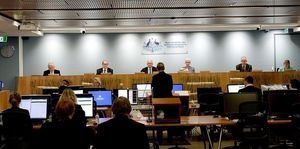
Monday 30 January 2017
The Royal Commission will conduct 3 weeks of 'wrap-up' hearings into the Catholic church's response to clerical child sexual abuse starting Monday 6 Feb. Following the submissions of Catholics for Renewal - http://www.catholicsforrenewal.org - over the last couple of years, I have been summoned to give evidence on Wednesday 8 Feb. as part of a panel on ‘Structure, governance and culture’. The question that needs answering is: "How could the leadership of the Catholic Church effectively facilitate clerical child sexual abuse, whilst espousing Christian values that condemn such behaviour?"

Extracts, Vatican, 24 January 2017, Published here 28 January 2017
«Fear not, for I am with you» (Is 43:5):
Communicating Hope and Trust in our Time
Access to the media – thanks to technological progress – makes it possible for countless people to share news instantly and spread it widely. That news may be good or bad, true or false. The early Christians compared the human mind to a constantly grinding millstone; it is up to the miller to determine what it will grind: good wheat or worthless weeds. Our minds are always “grinding”, but it is up to us to choose what to feed them (cf. SAINT JOHN CASSIAN, Epistle to Leontius).......I am convinced that we have to break the vicious circle of anxiety and stem the spiral of fear resulting from a constant focus on “bad news” (wars, terrorism, scandals and all sorts of human failure). This has nothing to do with spreading misinformation that would ignore the tragedy of human suffering, nor is it about a naive optimism blind to the scandal of evil. Rather, I propose that all of us work at overcoming that feeling of growing discontent and resignation that can at times generate apathy, fear or the idea that evil has no limits. Moreover, in a communications industry which thinks that good news does not sell, and where the tragedy of human suffering and the mystery of evil easily turn into entertainment, there is always the temptation that our consciences can be dulled or slip into pessimism. I would like, then, to contribute to the search for an open and creative style of communication that never seeks to glamourize evil but instead to concentrate on solutions and to inspire a positive and responsible approach on the part of its recipients. I ask everyone to offer the people of our time storylines that are at heart “good news”.....(more)
Maitland-Newcastle creates child protection advisory council
Extract from CathNews, 27 January 2017
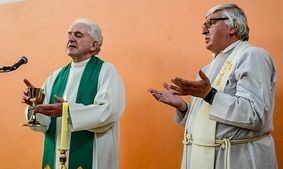
Extract from Sarah MacDonald, National Catholic Reporter, 25 Jan 2017
Dublin. Redemptorist Fr. Tony Flannery has said he is not anticipating any backlash from the Vatican over his celebration of a public Mass last Sunday in contravention of a ban on public ministry imposed on him by the Congregation for the Doctrine of Faith. The 70-year-old Irish missioner described the liturgy, which was attended by up to 800 people, as "emotional and beautiful." "I have celebrated many big Masses over the years, at missions and novenas, but nothing that touched me to the core like this one." He added that the occasion "would come close to being the loveliest day of my life." Flannery, who is a co-founder of the reform-minded Association of Catholic Priests, said he was "not worried about excommunication" by the church and didn't "anticipate" any excommunication under Pope Francis and "even less so in the context of Pope Francis' visit to Ireland next year." Referring to the "volume of support and encouragement from people" at the Mass and those who had contacted him by email, letter and telephone, the priest said that for church authorities to do anything to him now would be "shooting themselves in the foot." He regarded excommunication as a medieval concept and said it "wouldn't influence me or my life or my faith in any way," he told NCR. Those who attended the Mass at a community center in Flannery's rural home village of Killimordaly in County Galway on Sunday afternoon were local friends, supporters of the priest, members of reform groups such as the Association of Catholics in Ireland and We Are Church Ireland. Some attendees had traveled from overseas to be there. The strictures imposed on Flannery, which include forbidding him to minister publicly, relate to his liberal views on women priests, the Eucharist and the church's sexual teachings....(more) Photo: NCR, Sara McDonald
Role of women a priority for Irish bishops during Vatican talks
Extract from Cathnews, 25 January 2017
The Irish bishops are finishing their first Ad Limina visit to Rome in 10 years, and one topic was mentioned in every meeting they had with Vatican departments: the role of women in the Church, reports the Catholic News Agency. “I would say I don't think there was any congregation that we didn't mention it,” Bishop Brendan Leahy of Limerick told CNA. He called the attention being given to women and their role “one of the signs of the times”. The Holy Spirit “is saying something,” Bishop Leahy said, adding that what exactly the Holy Spirit wants is “the big question for us all", but one area that keeps coming up is engaging women more in decision-making processes....(more)
Extracts from Junno Arocho Esteves, Crux, 25 January 2017
Women are more courageous than men," Pope Francis told an applauding crowd on January 25 during his weekly general audience. The pope added that the advice of courageous women should always be heeded and embraced and quoted the heroine Judith as an example of trusting God amidst turmoil......“This is my opinion, but women are more courageous than men,” the pope said to applause.....(more)
Extract from Joshua J. McElwee, National Catholic Reporter, 25 January 2017
Rome. The showdown between the Vatican and the Knights of Malta has come to a brusque end, with the leader of the historic sovereign order resigning at the apparent request of Pope Francis. In a statement Wednesday, the Vatican said the pontiff would also be taking over control of the order with the appointment of a new papal delegate in the coming days. News of Grand Master Matthew Festing's resignation was first reported late Tuesday evening by the Reuters news agency, which said Francis had asked for Festing's resignation in a meeting at the Vatican earlier that day. The resignation caps an unusually tense month for the prestigious Catholic lay order, which had been openly resisting a Vatican investigation into Festing's firing of one of their top officials. At times it seemed that one of Catholicism's most storied organizations was challenging the authority and power of the pope. Festing's resignation appeared to surprise the order's headquarters, which was unable to answer questions about the leader's status with the group until mid-Wednesday morning. The order's website was down throughout the morning, with visitors receiving a message that the server hosting the site was overloaded.....(more)
Extracts from Catholic News Service, Nationbal Catholic Reporter, 25 January 2017
Paris. More than 200 victims have reported child sex abuse to the French church in the past six years, according to data collected by the French bishops. "More than 60 percent of these testimonies are about events that happened before 1970; 35 percent happened between 1970 and 2000; and 4 percent were abuse that have taken place since the 2000s," the conference said. The bishops released the results of a national inquiry on pedophilia along with a new version of the "Fight Against Pedophilia" guide. It's the guide's third edition, after the original one from 2002 was updated in 2010. Last year, the bishops promised they would react to new sex abuse scandals in the church, especially in the Archdiocese of Lyon. "The promotion and the diffusion of this work are part of the means taken to make the church a safe place for children and youth," said a statement from the French bishops' conference. It said the conference also wanted to renew its 2010 "quantitative inquiry" about pedophilia.....The bishops confirmed that nine clergy members in France are now in prison for crimes related to pedophilia, 37 have been convicted and are now out of jail, and 26 are being investigated....(more)
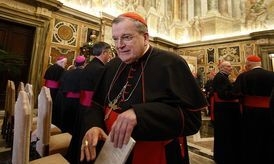
Extract from Dan Morris-Young, 24 January 2017
A leading critic of Pope Francis' approach to ministry to divorced and remarried Catholics and of his reforms to church annulment procedures will be the headline speaker at a San Francisco conference for canon lawyers. Cardinal Raymond Burke will be the featured presenter at the Western Region Canon Law Meeting March 14-16 at San Francisco's St. Mary's Cathedral. A conference flyer lists titles of the cardinal's talks as "Mitis Index Dominus Jesus: One Year Later" and "Current Issues / Concerns/Observations Regarding American Tribunals." Mitis Index Dominus Jesus ( "The Lord Jesus, Clement Judge" ) is one of two documents Francis issued in September 2015 aimed at reforming procedures for seeking declarations of marriage nullity. It addresses annulment protocols in the Latin rite Catholic church. The second, Mitis et misericors Iesus ("Clement and Merciful Jesus"), outlines reforms for the Code of Canons of Eastern Churches. Burke has been a high-profile detractor of the annulment reforms as well as Francis' apostolic exhortation on marriage and family life, Amoris Laetitia, released last April....(more) Photo: NCR, CNS/Paul Haring

Extract from Inés San Martín, Vatican Correspondent, Crux, 18 January 2017
The fact that guidelines from bishops for the pastoral application of chapter 8 of Pope Francis's 'Amoris Laetitia' present opposite interpretations on the issue of access to the sacraments for divorced and civilly remarried Catholics confirms one truth: the argument is not yet settled. ROME- Charged debate around the implications of footnote 351 of Pope Francis’s Amoris Laetitia, the document with which he closed a three-year process involving two Synods of Bishops on the family, has been going on for almost 10 months, and there no signs it’ll wind up any time soon. The footnote addresses access to the sacraments by divorced and civilly remarried Catholics, and while it appeared to leave the door open for a cautious “yes,” Francis also stressed he didn’t intend to change Church teaching or law, and left the implementation of the document up to local bishops. It’s that ambiguity which has cleared the path for bishops to interpret the implications of the pope’s ruling differently, with some taking a restrictive approach and others a more permissive line. Several bishops or groups of bishops have commented on this and many released their own set of guidelines for the “pastoral application” of chapter eight, at times providing strikingly different answers. Here’s a round-up of what bishops and cardinals (though technically, a cardinal is a bishop) have said so far.....(more) Photo: Crux, AP Photo/Andrew Medichini.

Extract from John L. Allen Jr. Editor, Crux, 17 January 2016
Bishop Steven Lopes of the Personal Ordinariate of the Chair of Peter, for ex-Anglicans, has issued a pastoral letter on 'Amoris Laetitia' holding that divorced and civilly remarried Catholics may receive Communion only if they commit to "complete chastity." In a new pastoral letter on the implementation of Amoris Laetitia, another Catholic bishop has concluded that the pontiff’s document on the family does not change the Church’s existing rules for the divorced and civilly remarried, and that Catholics in that situation may receive Communion only if they commit themselves to “complete chastity.” “A civilly remarried couple, if committed to complete continence, could have the Eucharist available to them, after proper discernment with their pastor and making recourse to the sacrament of reconciliation,” wrote Bishop Steven Lopes, head of the Personal Ordinariate of the Chair of St. Peter, a structure created to welcome former Anglican communities into the Catholic Church. “Unless and until the civilly remarried honestly intend to refrain from sexual relations entirely, sacramental discipline does not allow for the reception of the Eucharist,” Lopes wrote....(more) Photo: Crux, lopes
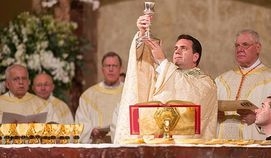
Extract from John L. Allen Jr. Editor, Crux, 17 January 2016
Bishop Steven Lopes of the Personal Ordinariate of the Chair of Peter, for ex-Anglicans, has issued a pastoral letter on 'Amoris Laetitia' holding that divorced and civilly remarried Catholics may receive Communion only if they commit to "complete chastity." In a new pastoral letter on the implementation of Amoris Laetitia, another Catholic bishop has concluded that the pontiff’s document on the family does not change the Church’s existing rules for the divorced and civilly remarried, and that Catholics in that situation may receive Communion only if they commit themselves to “complete chastity.” “A civilly remarried couple, if committed to complete continence, could have the Eucharist available to them, after proper discernment with their pastor and making recourse to the sacrament of reconciliation,” wrote Bishop Steven Lopes, head of the Personal Ordinariate of the Chair of St. Peter, a structure created to welcome former Anglican communities into the Catholic Church. “Unless and until the civilly remarried honestly intend to refrain from sexual relations entirely, sacramental discipline does not allow for the reception of the Eucharist,” Lopes wrote....(more) Photo: Crux, lopes
Extract from Christopher Lamb, The Tablet, 16 January 2017
Grand Master Festing says Order won't cooperate with Holy See until own inquiry is complete, in letter seen by The Tablet. Order of Malta chief withdraws cooperation after accusing Vatican's inquiry of links with fund in Geneva. The leader of the Knights of Malta has doubled-down his opposition to a Vatican inquiry into his sacking of a top official by seeking to discredit members of the investigation and by setting up his own commission to investigate them. In a letter the Grand Master, Matthew Festing, claims the make-up of the commission announced by the Holy See is unfit to investigate because they have links to a fund in Geneva, thus making them unable to objectively assess the situation. The move is the latest in an ongoing battle between the Order of Malta and the Vatican over the sacking of Grand Chancellor, Albrecht von Boeselager, in a row about the distribution of condoms in Myanmar.....(more)
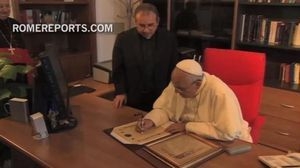
Pope's Letter to Young People on the Occasion of the Presentation of the Preparatory Document of the XV Ordinary General Assembly of the Synod of Bishops
My Dear Young People,
I am pleased to announce that in October 2018 a Synod of Bishops will take place to treat the topic: "Young People, the Faith and Vocational Discernment.” I wanted you to be the centre of attention, because you are in my heart. Today, the Preparatory Document is being presented, a document which I am also entrusting to you as your "compass” on this synodal journey. I am reminded of the words which God spoke to Abraham: "Go from your country and your kindred and your father's house to the land that I will show you.” (Gen 12.1). These words are now also addressed to you. They are words of a Father who invites you to "go”, to set out towards a future which is unknown but one which will surely lead to fulfilment, a future towards which He Himself accompanies you. I invite you to hear God's voice resounding in your heart through the breath of the Holy Spirit. When God said to Abram, "Go!”, what did he want to say? He certainly did not say to distance himself from his family or withdraw from the world. Abram received a compelling invitation, a challenge, to leave everything and go to a new land. What is this "new land” for us today, if not a more just and friendly society which you, young people, deeply desire and wish to build to the very ends of the earth? But unfortunately, today, "Go!” also has a different meaning, namely, that of abuse of power, injustice and war. Many among you are subjected to the real threat of violence and forced to flee their native land. Their cry goes up to God, like that of Israel, when the people were enslaved and oppressed by Pharaoh (cf. Ex 2:23)............My brother bishops and I want even more to "work with you for your joy” (2 Cor 1:24). I entrust you to Mary of Nazareth, a young person like yourselves, whom God beheld lovingly, so she might take your hand and guide you to the joy of fully and generously responding to God’s call with the words: "Here I am” (cf. Lk 1:38).........(Read the full letter from Pope Francis to young people HERE Photo: Rome Reports).
With paternal affection,
FRANCIS
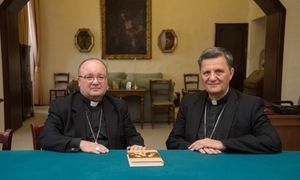
ROME- Bishops in the island nation of Malta, in percentage terms among the most Catholic nations on earth, have followed those of Buenos Aires, the pontiff’s home archdiocese, in their approach to Pope Francis’s document on the family, Amoris Laetitia. Like their Latin American peers, they’ve produced a set of guidelines that clearly state the door to Communion for divorced and civilly remarried Catholics is open. “If, as a result of the process of discernment,” the bishops write, “a separated or divorced person who is living in a new relationship manages, with an informed and enlightened conscience, to acknowledge and believe that he or she is at peace with God, he or she cannot be precluded from participating in the sacraments of Reconciliation and the Eucharist.” Meaning, if a person, in good conscience, believes he or she is entitled to Communion, priests in Malta can’t exclude them from accessing the sacrament. The Maltese “Criteria for the Application of Chapter VIII of ‘Amoris Laetitia’” was signed on January 8 by Archbishop Charles Scicluna of Malta and Bishop Mario Grech of Gozo. Released on Jan. 13 through the bishops’ website, the document sent to the country’s priests included a copy of the divisive chapter at the end. In their guidelines the bishops write that when a priest meets persons who find themselves in “irregular” situations, he must “enter in dialogue with them and to come to know them in a spirit of authentic charity.”.....(more). NOTE: The Maltese linked document “Criteria for the Application of Chapter VIII of ‘Amoris Laetitia’” was signed on January 8 by Archbishop Charles Scicluna of Malta and Bishop Mario Grech of Gozo. and released on 13 January 2017. Photo: Crux, thechurchinmalta.org
Extract From Robert Mickens, La Croix International (subscription journal), 13 January 2017
In an unprecedented move, the Vatican has decided to by-pass national episcopal conferences and give the world’s young people a unique opportunity to help set the agenda for the next major meeting of the Church’s international Synod of Bishops. Cardinal Lorenzo Baldisseri, head of the Rome-based secretariat that coordinates the Synod’s activities, told journalists on Friday that his office was launching a website in March that will allow youngsters to honestly raise questions and share their views about life and faith inside the Catholic Church. He said their input – in addition to a questionnaire sent to bishops and heads of religious orders – would then form a substantial part of the working document (instrumentum laboris) that will frame the discussions when Pope Francis convenes the XV General Assembly of the Synod in October 2018 around the topic, “Young People, the Faith and Vocational Discernment”....(more by subscription)
Priest sues diocese alleging persecution for reporting abuse
Extract from Terry Spencer, Associated Press, Crux, 12 January 2017
WEST PALM BEACH - A Catholic priest filed suit Wednesday against his former diocese, saying that the bishop pushed him aside and lied about him because he called law enforcement after another priest showed child pornography to a teenage boy and cooperated with the investigation. Father John Gallagher said that Bishop Gerald Barbarito of the Palm Beach Diocese forced him from the church where he worked and publicly called him a liar after he refused to cover up for the other priest. Joseph Palimattom was convicted of showing obscene material to a minor, spent six months in jail and was deported home to India. Gallagher told The Associated Press that his case shows the church has not reformed as promised after it became public knowledge that church leaders had covered up sexual abuse by priests for decades around the world. “Any priest could be in this situation,” Gallagher said. “Any priest in this situation should know that if it happened to them, they will not get the support of the church. You will be ostracized.” The lawsuit does not seek a specific amount, but Gallagher’s attorney Ted Babbitt said he will seek enough to cover Gallagher’s lost salary and benefits plus punitive damages for his lost reputation....(more)

Extract from Thomas D. Williams, Contributor, Crux, 11 January 2017
One of the key principles of reform is the idea of return, or rediscovery. To reform is not to change one’s nature or alter one’s identity, but to return to the truth of oneself that may have become distorted or atrophied over time. Among other things, 2017 marks the 500th anniversary of the Protestant Reformation, an event-or series of events-that split Western Christianity into a series of factions, denominations and ecclesial communions. While targeting real abuses and errors, the reformers ended by radically altering core Christian beliefs on issues ranging from the Canon of Sacred Scripture to the nature of the Church to the number and meaning of the Church’s sacraments. The Church responded with her own “reformation,” which has been called variously the Counter-Reformation, the Catholic Reformation and the Catholic Revival. Culminating in the Council of Trent (1545-1563), the Catholic reform curbed abuses, clarified doctrine, purified practices, unified the Church and found new ways to present the beauty of Christian teaching. In his address to the Roman Curia on December 22, Pope Francis once again centered his words on the need for continuous reform, and while he was speaking first and foremost of the reform of the Curia, he extended the scope of his words to the reform of the Church herself. Reform, Francis said, “is first and foremost a sign of life, of a Church that advances on her pilgrim way, of a Church that is living and for this reason semper reformanda, in need of reform because she is alive.” Or as the Second Vatican Council taught, “Christ summons the Church to continual reformation as she sojourns here on earth. The Church is always in need of this, in so far as she is an institution of men here on earth.” One of the key principles of reform is the idea of return, or rediscovery. To reform is not to change one’s nature or alter one’s identity, but to return to the truth of oneself that may have become distorted or atrophied over time.....(more) Image: Council of Trent, Crux, Wikicommons

Extract from Carol Glatz, Catholic News Service, Crux, 10 January 2017
Pope Francis said in his homily, “Jesus, who is humble, who is at the service (of others), who is near, who doesn’t despise people and who is consistent, has authority,” unlike the traditional teachers. “This is the authority that the people of God sense.” ROME - Jesus astonished people with the way he taught and interacted with others because he wasn’t aloof, domineering or hypocritical, Pope Francis said in a homily. “Jesus wasn’t allergic to people. Touching lepers, the sick did not disgust him,” whereas the Pharisees - who strolled around in fine clothes - looked down on the people and considered them ignorant, he said at the Mass Jan. 10 in the chapel of his residence. “They were removed from the people, they weren’t close,” the pope said of the Pharisees. “Jesus was very close to the people and this gave him authority.” The pope’s homily centered on the day’s Gospel reading (Mk 1:21-28) in which people gathered at the synagogue in Capernaum “were astonished” at Jesus’s teaching because he displayed an authority that differed so greatly from that of the scribes. The people would listen to and be respectful toward the doctors of the law and the scribes, but the people didn’t take what they said “to heart,” he said. These teachers felt themselves superior, as if to say: “We are the teachers, the princes and we teach you. No service. We command, you obey,” the pope said. But Jesus “never passed himself off as a prince. He was always the servant of everyone and this is what gave him authority.” The traditional teachers were hypocrites, declaring the truth, but not doing what they preached, Pope Francis said. Jesus “lived what he preached,” he said, representing the harmonious union of “what he thought, felt and did.”....(more) Photo: Crux, (CNS photo/Paul Haring.)
Extract from Inés San Martín, Vatican Correspondent, Crux, 9 January 2017
German Cardinal Gerhard Muller, the Vatican's top doctrinal official, has said there's no need for a "fraternal correction" of Pope Francis, as suggested by American Cardinal Raymond Burke, because the pope's document "Amoris Laetitia" is clear in its doctrine. ROME - The Vatican’s doctrinal czar believes Cardinal Raymond Burke’s threat to issue a “fraternal correction” of Pope Francis is “very remote,” because despite what the American prelate says, the papal document on the family Amoris Laetitia actually is very clear in its doctrine. Speaking about a dubia letter Burke and three other cardinals sent to the pope late in 2016, urging him to respond to a series of yes or no questions regarding Amoris Laetitia and its provisions for divorced and civilly remarried Catholics, German Cardinal Gerhard Muller, head of the Congregation for the Doctrine of the Faith acknowledged that everyone, “above all cardinals,” has the right to write a letter to the pope. However, Muller added, “I am amazed that this became public, essentially constraining the pope to say ‘yes’ or ‘no’. I don’t like this.” The letter was intended to be a private affair, but when Pope Francis refused to answer the questions, the cardinals gave it to the press, just a few days before October’s consistory for the creation of new cardinals. Regarding a possible formal correction, which Burke said he was willing to do if the pope continued to refuse to answer the question submitted last September, Muller stated that “it’s not possible in this moment, because it doesn’t concern a danger for the faith as St. Thomas said.” Amoris Laetitia, which some believe offered a cautious opening for divorced and civilly remarried Catholics to receive Communion, “is very clear in its doctrine and we can interpret the whole teaching of Jesus on Matrimony, the whole teaching of the Church in 2000 years of history,” Muller said.....(more)

Extract from John L Allan Jr. Crux now, 6 February 2017
ROME - Bringing the Vatican’s holiday season to a close on Thursday with a Mass for the feast of the Epiphany, Pope Francis delivered a strong homily on a “holy longing for God” as the answer to “prophets of doom” who think “nothing can change” and stubbornly cling to “the usual fare.” Epiphany celebrates the New Testament story of the Three Wise Men, or Magi, who went in search of the infant Jesus. The pontiff said they were guided by a positive “inner restlessness,” which left them “open to something new.” “A holy longing for God is the memory of faith, which rebels before all prophets of doom,” the pontiff said. The phrase “prophets of doom” has a long history in papal rhetoric, including a famous address by St. Pope John XXIII at the opening of the Second Vatican Council in October 1962. In the decades since, it’s generally become used in Catholic parlance to characterize resistance to proposals for reform. Francis said Thursday that “holy longing” draws people out of that reaction....“Longing for God draws us out of our iron-clad isolation, which makes us think that nothing can change,” the pope said. “Longing for God shatters our dreary routines and impels us to make the changes we want and need.” Though Francis was speaking in a spiritual key, it was hard for many observers on Thursday not to hear echoes of some of the turbulence Francis faced during the past year, with some critics suggesting he’s introducing debatable or doctrinally unsound changes in Catholic life himself, notably with regard to the idea of opening Communion to some divorced and civilly remarried believers. The pontiff made no reference to those debates on Thursday, but criticized a broad attitude of resistance to change......The Magi, the pope said, did not allow their hearts to be “anesthetized.”....(more) Photo, Crux, AP Phoo - Gregorio
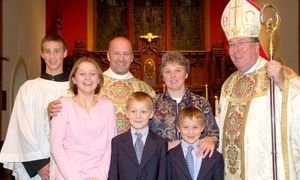
Mulling the practical pros and cons of married priests
Extracts from Fr Dwight Longenecker, contributor, Crux, 5 January 2017
There are plenty of historical and theological arguments for and against married priests, but few stop to consider the practical pros and cons. Yet Catholicism already has married priests, and here one of them shares his experience. Should the Catholic Church have married priests? Many people are surprised to find that the Catholic Church already has, and I’m one of them. In the early 1980s, Pope St. John Paul II established the Pastoral Provision, allowing married men who had been ordained in the Anglican or Lutheran churches (and were subsequently received into full communion with the Catholic Church) to receive a dispensation from the vow of celibacy allowing them to be ordained as Catholic priests. The dispensation from the vow of celibacy is permitted because celibacy for priests is a discipline of the Church, not a doctrine. Doctrines cannot be altered. Disciplines can. I received my dispensation from Pope Benedict XVI and, with my wife Alison and our four children in attendance, was ordained in 2006. I served first as a high school chaplain and assistant priest in a parish. I was then asked to be the administrator of a small parish. After ten years serving as a married Catholic priest, I can report on the practical pros and cons.......But that’s just my opinion. The decision itself is above my pay grade....(more). Photo: Crux, Longenecker
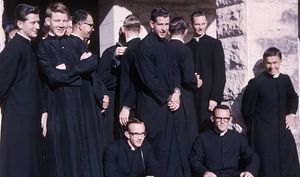
Joanne McCarthy, Newcastle Herald, 4 January 2016
POPE Francis has been accused of “doing nothing” to end the Catholic Church’s refusal to report child sexual abuse to police in most of the world after a papal letter to bishops on January 2, only weeks before a major Royal Commission into Institutional Responses to Child Sexual Abuse final hearing into the church. The Pope condemned “the covering up and denial” of sexual abuse within the church, which he described as “a sin that shames us”. But critics including Australian lawyer and author Kieran Tapsell, American priest and canon lawyer Thomas Doyle, abuse survivors and groups including Catholics for Renewal, have criticised the Pope for failing to change canon law which prevents bishops reporting child sexual abuse to civil authorities, including police, in most of the world. Their criticism, in submissions to a public hearing into the Catholic Church from February 6 and comments after Pope Francis’s January 2 letter, is consistent with serious concerns raised by two United Nations committees about a canon law ban, and a request to the Pope to allow reporting to authorities in all parts of the world. In September, 2014 Pope Francis formally refused the United Nations committees’ request. In Australia only NSW and Victoria have comprehensive reporting laws where bishops are required, under a canon law exemption in 2010, to report all abuse allegations to civil authorities including police. While Pope Francis was praised by many for condemning “the covering up and denial”, Mr Tapsell described the Pope’s letter to bishops as “more bella figura from Pope Francis on child sexual abuse”, with “bella figura” an Italian term for “keeping up appearances and hiding mistakes”. The letter was another attempt at “covering up a dreadful mistake in canon law, condemning the abuse itself and the cover up, but doing nothing about canon law which is the legal foundation for it”, Mr Tapsell said.....(more) Photo: Former trainee priest Kieran Tapsell, far right, with other trainee priests before he left without being ordained. Mr Tapsell went on to write a book revealing the cover-up of abuse by six popes.

Extract from John L. Allen Jr. Editor Crux, 4 January 2017
....With Francis, however, it’s often what you don’t see coming that really tells the tale. Trying to predict what this maverick pope will do is a fool’s errand. Yet we can at least say that in 2017, he’ll have the chance to continue doing something arguably more important than almost anything else in terms of framing his legacy and shaping culture in the Church, which is naming bishops. As a longtime friend of mine who works in the Vatican likes to say, in the Catholic Church a good bishop can do an enormous amount of good, and a bad bishop can do an even greater amount of harm! Bishops generally enjoy wide latitude to run their shops as they see fit - a point that’s been given an exclamation point of late by the contrasting ways various bishops have chosen to implement the pope’s document on the family, Amoris Laetita. As a result, perhaps no single thing any pope ever does is more consequential than the kinds of bishops he appoints. We got another small but telling reminder on Wednesday, when Francis replaced Bishop Fred Henry of Calgary in Canada with Bishop William McGrattan. Henry is a hero to the strongly pro-life camp in the Church, among other things because of his refusal to permit a government-backed vaccination program against a sexually transmitted disease in Catholic schools because he believed it promoted promiscuity, while McGrattan is seen as a more “Pope Francis” kind of bishop whose focus is generally on dialogue and cooperation over confrontation. In keeping with Church policy, every one of the world’s more than 5,000 Catholic bishops is expected to submit a letter of resignation when he turns 75. It’s up to the pope whether to accept it, but 75 is generally the threshold at which thoughts of a transition begin to beckon....(more) Photo: Crux, (Credit: AP Photo/Alessandra Tarantino.)
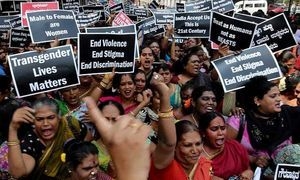
Extract from Crux, Catholic News Service, 4 January 2017
COCHIN, India - The church in India’s Kerala state has formed a group of priests, nuns and laypeople to respond to the pastoral needs of transgender people, reported ucanews.com. Formed in Cochin under the aegis of Pro-Life Support, a global social service movement within the church, the ministry is significant as it is one of the few outreach programs for the transgender community by the institutional church in India. “The whole church has a big role to play,” said Father Paul Madassey, who is in charge of pro-life support for the Kerala Catholic Bishops’ Council. He noted Pope Francis had talked about the need to give “pastoral care to the LGBT community.” “There is an active sex racket from North India eyeing transgender people in Kerala. They are trying to exploit the discriminatory situation they face,” Madassey told ucanews.com. India has an estimated 500,000 transgender people. They are often ostracized from their families and - without adequate state support in terms of employment, health and education - end up on the street begging for money or are exploited in the sex trade....(more) Photo: Crux, (Credit: CNS photo/Jagadeesh Nv, EPA.)
Extract from James, Catholica Blog, 3 January 2017
Bella figura is an Italian term for keeping up appearances and hiding mistakes and embarrassments. It is the Italian version of PR spin. In an address on the Feast of the Holy Innocents, Pope Francis has sent a letter on the issue of child sexual abuse in the Church. “It is a sin that shames us. Persons responsible for the protection of those children destroyed their dignity. We regret this deeply and we beg forgiveness.” Francis condemned the sin “of failing to help,” of “covering up and denial” and the sin of “the abuse of power” that happened in many cases….. “Let us find the courage needed to take all necessary measures and to protect in every way the lives of our children, so that such crimes may never be repeated. In this area, let us adhere, clearly and faithfully, to zero tolerance.” He has often promoted a “zero tolerance” policy on abuse since his election, and has met with victims of clerical sex abuse and their relatives on several occasions. He has also often praised the great efforts retired Pope Benedict XVI made in dealing with the crisis, saying on his February 18, 2016, return flight from Mexico that his predecessor “deserves applause,” because he “fought in moments when he had no strength to impose himself, until he managed to impose himself.”...........On 15 February 2016, the President of the Pontifical Commission for the Protection of Minors, Cardinal O’Malley, stated: "The crimes and sins of the sexual abuse of children must not be kept secret for any longer... We, the President and the Members of the Commission, wish to affirm that our obligations under civil law must certainly be followed, but even beyond these civil requirements, we all have a moral and ethical responsibility to report suspected abuse to the civil authorities who are charged with protecting our society” This statement was radically different from everything that the Roman Curia had stated, particularly in the period from 1997 to 2002 when five members of the Roman Curia made it plain that bishops should not report child sexual abuse by clergy to the police. Cardinals Castrillon and Re, the Prefects of the Congregations for Clergy and Bishops respectively had stated that reporting to the police breached canon law and Castrillon and Cardinal Rodriguez Maradiaga said that bishops should prefer to go to jail than report sex abusing priests to the civil authorities. Since then (in 2010) the Vatican has directed that bishops comply with civil reporting laws, but if there are no civil reporting laws, the pontifical secret stands. Even if there are civil reporting laws, the uncovering of further abuse after the commencement of a canonical trial has to be covered up, in accordance with the statement of Fr Lombardi in 2010 when announcing the direction to obey civil reporting laws......Pope Francis’s tolerance of child sexual abuse amongst clergy is 75% not zero..... Again, this is another disappointing statement from Pope Francis. ....(more)
Extract from John L. Allen Jr. Editor Crux, 2 January 2017
Some fans of Pope Francis seem anxious that his legacy might be "rolled back" when he's gone, but here's the thing: Catholicism isn’t a zero/sum tradition, in which veering in one direction for a while means repealing what came before. ROME - Journalistic convention dictates that whenever we write about Pope Francis these days, we frame things in terms of his supporters and his critics. In reality that’s a bit misleading, since few people fall entirely into one of those two categories. Even the most enthused usually can cite a few times they wish Francis had zigged rather than zagged, and even the most alarmed generally have at least something positive to say. Then, of course, there’s another vast pool of Catholics, to whom the question of what they think of a pope wouldn’t even occur. I recall once asking my late grandfather his opinion of John Paul II, and he looked at me as if I’d solicited his view on the law of gravity: “He’s the pope, for God’s sake!” Conversation closed. That said, there are undeniably large and vocal constituencies in the Church right now which are aligned, one predominantly skeptical of the Pope Francis revolution and the other ferociously devoted to it. For that latter camp - who the Italians often call the bergoglisti, in reference to the pontiff’s given name of Bergoglio - a key question making the rounds at the moment is the following: Will he have enough time? In other words, will Francis be able to implement enough of his agenda before the end comes, so that it won’t be able to be rolled back? There’s no specific health crisis prompting that anxiety, but Francis did just turn 80 and has himself suggested several times his papacy may not go on terribly long, so one understands the concern.....(more)

Pope kicks off new year renewing ‘zero tolerance’ policy on abuse
Extract from Elise Harris, Crux, CNS, 2 January 2017
ROME - In a letter sent to bishops around the world for the feast of the Holy Innocents, Pope Francis lamented the many children who suffer from war, slavery and various forms of abuse, including within the Church. The Church not only hears the “cries of pain” of her children who suffer from war, slavery and malnutrition, he said, but she also weeps “because she recognizes the sins of some of her members: the sufferings, the experiences and the pain of minors who were abused sexually by priests.” “It is a sin that shames us. Persons responsible for the protection of those children destroyed their dignity. We regret this deeply and we beg forgiveness.” Francis condemned the sin “of failing to help,” of “covering up and denial” and the sin of “the abuse of power” that happened in many cases. In celebrating the Feast of the Holy Innocents, Pope Francis asked his brother bishops to renew “our complete commitment to ensuring that these atrocities will no longer take place in our midst.” “Let us find the courage needed to take all necessary measures and to protect in every way the lives of our children, so that such crimes may never be repeated. In this area, let us adhere, clearly and faithfully, to zero tolerance.”....(more), Crux, AP Photo/Andrew Medichini.